Julian Assange
description: Australian editor, publisher, and activist (born 1971)
131 results
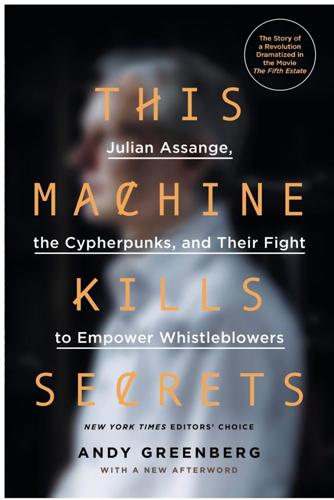
This Machine Kills Secrets: Julian Assange, the Cypherpunks, and Their Fight to Empower Whistleblowers
by
Andy Greenberg
Published 12 Sep 2012
worked with CIA agents during her time at the consulting firm McKinsey Julian Assange. “Statement by Julian Assange on the reported destruction of WikiLeaks source material by Daniel Domscheit-Berg,” August 20, 2011. a real problem of methodology and, therefore, of credibility “OPEN LETTER TO WIKILEAKS FOUNDER JULIAN ASSANGE: ‘A BAD PRECEDENT FOR THE INTERNET’S FUTURE.’” Reporters Without Borders website, August 12, 2010. “We were very, very upset with [the Afghan War release,] and with the way he spoke about it afterwards” John Burns and Ravi Somaiya. “WikiLeaks Founder on the Run, Trailed By Notoriety.” The New York Times, October 23, 2010.
…
“Wikileaks denies Tor hacker eavesdropping gave site its start.” TheRegister.co.uk, June 2, 2010. “When they pull, so do we” E-mail from Julian Assange to John Young, January 7, 2007, available at http://cryptome.org/wikileaks/wikileaks-leak2.htm thirty times the size of every text article stored on Wikipedia Wikipedia: Database download, available at http://en.wikipedia.org/wiki/Wikipedia:Database_download “let it flower into something new” Julian Assange to John Young, January 7, 2007, available at http://cryptome.org/wikileaks/wikileaks-leak2.htm spreading free software like a hacker Johnny Appleseed Jacob Appelbaum. “Personal experiences bringing technology and new media to disaster areas.”
…
And they would have remained unreadable if it weren’t for another simple mistake, this one committed by David Leigh, the reporter from The Guardian who first engineered the partnership with WikiLeaks to release the Cablegate files. In January 2011, The Guardian’s reporters published their own tell-all book about their work with WikiLeaks. And there, in the heading to the eleventh chapter, were printed the words that to Julian Assange must have jumped off the page with horrifying significance: “AcollectionOfDiplomaticHistorySince_1966_ToThePresentDay#—Julian Assange’s 58-character password.” It was the full passphrase to WikiLeaks’ copy of the encrypted, unredacted cables. To a technological muggle like Leigh, the PGP password must have seemed like a harmless historical detail to add intrigue to his cloak-and-dagger story.
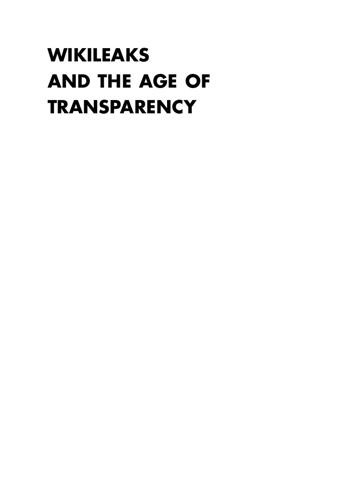
WikiLeaks and the Age of Transparency
by
Micah L. Sifry
Published 19 Feb 2011
/wikileaks/status/753 0875613. 6 Kevin Charles Redmon, “WikiLeaks Proves Its Worth as a Backstop,” The Atlantic, April 6, 2010, www.theatlantic.com/politics/archive /2010/04/ wikileaks-provides-its-worth-as-a-backstop/38517. 7 “Exclusive – Julian Assange Extended Interview,” The Colbert Report, April 12, 2010, www.colbertnation.com/the-colbert-report-videos /260785/ april-12-2010/exclusive-julian-assange-extended-interview. 8 Raffi Khatchadourian, “No Secrets: Julian Assange’s Mission for Total Transparency,” The New Yorker, June 7, 2010, www.newyorker.com/ reporting/2010/06/07/100607fa_fact_khatchadourian. 9 Ibid. 10 @wikileaks, April 7, 2010, http://twitter.com/#!/wikileaks/status /118016 13697. 11 12 13 14 15 16 17 18 19 20 190 Noam Cohen, “What Would Ellsberg Do With the Pentagon Papers Today,” The New York Times, April 19, 2010, www.nytimes.com/2010/04/19/ business/media/19link.html.
…
Newsweek, August 26, 2010, www.newsweek.com/blogs/declassified/2010/08/26/is-wikileakstoo-full-of-itself.print.html. 4 Kevin Poulsen and Kim Zetter, “Unpublished Iraq War Logs Trigger Internal WikiLeaks Revolt,” Wired.com, September 27, 2010, www. wired.com/threatlevel/2010/09/wikileaks-revolt. 5 Steven Aftergood, “Wikileaks Fails ‘Due Diligence’ Review,” Secrecy News, June 28, 2010, www.fas.org/blog/secrecy/2010/06/wikileaks_review.html. 6 Sarah Ellison, “The Man Who Spilled the Secrets,” Vanity Fair, February 2011, www.vanityfair.com/politics/features/2011/02/the-guardian-201102. 7 Alan Rusbridger, “WikiLeaks: The Guardian’s role in the biggest leak in the history of the world,” The Guardian, January 28, 2011, www.guardian. co.uk/media/2011/jan/28/wikileaks-julian-assange-alan-rusbridger and Marcel Rosenbach and Holger Stark, “An Inside Look at Difficult Negotiations with Julian Assange,” Spiegel Online, January 28, 2011, www.spiegel.de/international/world/0,1518,742163,00.html. 8 “Chinese cyber-dissidents launch WikiLeaks, a site for whistleblowers,” Agence France-Presse, January 11, 2007, www.theage.com.au/news/ Technology/Chinese-cyberdissidents-launch-WikiLeaks-a-site-forwhistl eblowers/2007/01/11/1168105082315.html. 9 Julian Assange, “State and Terrorist Conspiracies,” November 10, 2006, and “Conspiracy as Governance,” December 3, 2006. 10 http://twitter.com/#!
…
SIFRY Notes Chapter 1 1 David Leigh, “Guardian gagged from reporting Parliament,” The Guardian, October 12, 2009, www.guardian.co.uk/media/2009/oct/12/guardiangagged-from-reporting-parliament. 2 Guido Fawkes blog, “Guardian Gagged From Reporting Parliament,” October 12, 2009, http://order-order.com/2009/10/12/guardian-gaggedfrom-reporting-parliament. 3 Minton report secret injunction gagging The Guardian on Trafigura, September 11, 2009, http://mirror.wikileaks.info/wiki/Minton_report_ secret_injunction_gagging_The_Guardian_on_Trafigura,_11_Sep_2009. 4 See http://techpresident.com/blog-entry/wikileak-julian-assange-dontbe-martyr for the video of Assange’s remarks. 5 Noam Cohen and Brian Stelter, “Iraq Video Brings Notice to a Web Site,” The New York Times, April 6, 2010, www.nytimes.com/2010/04/07/ world/07wikileaks.html, and http://twitter.com/#!/wikileaks/status/753 0875613. 6 Kevin Charles Redmon, “WikiLeaks Proves Its Worth as a Backstop,” The Atlantic, April 6, 2010, www.theatlantic.com/politics/archive /2010/04/ wikileaks-provides-its-worth-as-a-backstop/38517. 7 “Exclusive – Julian Assange Extended Interview,” The Colbert Report, April 12, 2010, www.colbertnation.com/the-colbert-report-videos /260785/ april-12-2010/exclusive-julian-assange-extended-interview. 8 Raffi Khatchadourian, “No Secrets: Julian Assange’s Mission for Total Transparency,” The New Yorker, June 7, 2010, www.newyorker.com/ reporting/2010/06/07/100607fa_fact_khatchadourian. 9 Ibid. 10 @wikileaks, April 7, 2010, http://twitter.com/#!
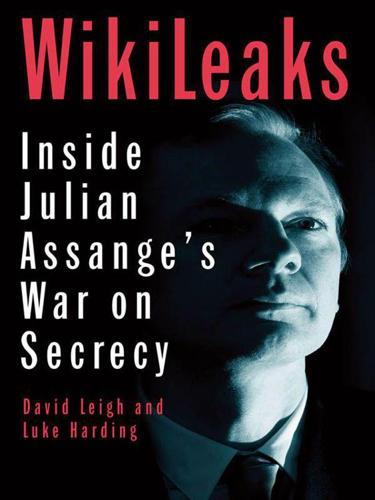
The End of Secrecy: The Rise and Fall of WikiLeaks
by
The "Guardian"
,
David Leigh
and
Luke Harding
Published 1 Feb 2011
First published in Great Britain in 2011 by Guardian Books Kings Place 90 York Way London N1 9GU www.guardianbooks.co.uk A CIP catalogue for this book is available from the British Library ISBN: 978-0-85265-239-8 CONTENTS Cast of characters Introduction Chapter 1: The Hunt Chapter 2: Bradley Manning Chapter 3: Julian Assange Chapter 4: The rise of WikiLeaks Chapter 5: The Apache video Chapter 6: The Lamo dialogues Chapter 7: The deal Chapter 8: In the bunker Chapter 9: The Afghanistan war logs Chapter 10: The Iraq war logs Chapter 11: The cables Chapter 12: The world’s most famous man Chapter 13: Uneasy partners Chapter 14: Before the deluge Chapter 15: Publication day Chapter 16: The biggest leak in history Chapter 17: The ballad of Wandsworth jail Chapter 18: The future of WikiLeaks Appendix: US Embassy Cables Acknowledgements CAST OF CHARACTERS WikiLeaks MELBOURNE, NAIROBI, REYKJAVIK, BERLIN, LONDON, NORFOLK, STOCKHOLM Julian Assange – WikiLeaks founder/editor Sarah Harrison – aide to WikiLeaks founder Julian Assange Kristinn Hrafnsson – Icelandic journalist and WikiLeaks supporter James Ball – WikiLeaks data expert Vaughan Smith – former Grenadier Guards captain, founder of the Frontline Club and Assange’s host at Ellingham Hall Jacob Appelbaum – WikiLeaks’ representative in the US Daniel Ellsberg – Vietnam war whistleblower, WikiLeaks supporter Daniel Domscheit-Berg – German programmer and WikiLeaks technical architect (aka Daniel Schmitt) Mikael Viborg – owner of WikiLeaks’ Swedish internet service provider PRQ Ben Laurie – British encryption expert, adviser to Assange on encryption Mwalimu Mati – head of anti-corruption group Mars Group Kenya, source of first major WikiLeaks report Rudolf Elmer – former head of the Cayman Islands branch of the Julius Baer bank, source of second major WikiLeaks report Smári McCarthy – Iceland-based WikiLeaks enthusiast, programmer, Modern Media Initiative (MMI) campaigner Birgitta Jónsdóttir – Icelandic MP and WikiLeaks supporter Rop Gonggrijp – Dutch hacker-businessman, friend of Assange and MMI campaigner Herbert Snorrason – Icelandic MMI campaigner Israel Shamir – WikiLeaks associate Donald Böstrom – Swedish journalist and WikiLeaks’ Stockholm connection The Guardian LONDON Alan Rusbridger – editor-in-chief Nick Davies – investigative reporter David Leigh – investigations editor Ian Katz – deputy editor (news) Ian Traynor – Europe correspondent Harold Frayman – systems editor Declan Walsh – Pakistan/Afghanistan correspondent Alastair Dant – data visualiser Simon Rogers – data editor Jonathan Steele – former Iraq correspondent James Meek – former Iraq correspondent Rob Evans – investigative journalist Luke Harding – Moscow correspondent Robert Booth – reporter Stuart Millar – news editor, guardian.co.uk Janine Gibson – editor, guardian.co.uk Jonathan Casson – head of production Gill Phillips – in-house head of legal Jan Thompson – managing editor New York Times NEW YORK, LONDON Max Frankel – former executive editor Bill Keller – editor Eric Schmitt – war correspondent John F Burns – London correspondent Ian Fisher – deputy foreign editor Der Spiegel HAMBURG, LONDON Georg Mascolo – editor-in-chief Holger Stark – head of German desk Marcel Rosenbach – journalist John Goetz – journalist El País MADRID, LONDON Javier Moreno – editor-in-chief Vicente Jiménez – deputy editor Other Media Raffi Khatchadourian – New Yorker staffer and author of a major profile of Assange Saeed Chmagh and Namir Noor-Eldeen – Reuters news agency employees accidentally killed by US army pilots in 2007 David Schlesinger – Reuters’ editor-in-chief Kevin Poulsen – former hacker, senior editor at Wired Gavin MacFadyen – City University professor and journalist, London host to Assange Stephen Grey – freelance reporter Iain Overton – former TV journalist, head of Bureau of Investigative Journalism Heather Brooke – London-based American journalist and freedom of information activist Bradley Manning Bradley Manning – 23-year-old US army private and alleged WikiLeaks source Rick McCombs – former principal at Crescent high school, Crescent, Oklahoma Brian, Susan, Casey Manning – parents and sister Tom Dyer – school friend Kord Campbell – former manager at Zoto software company Jeff Paterson – steering committee member of the Bradley Manning support network Adrian Lamo – hacker and online confidant Timothy Webster – former US army counter-intelligence special agent Tyler Watkins – former boyfriend David House – former hacker and supporter David Coombs – lawyer Julian Assange Christine Hawkins – mother John Shipton – father Brett Assange – stepfather Keith Hamilton – former partner of Christine Daniel Assange – Julian’s son Paul Galbally – Assange’s lawyer during his 1996 hacking trial Stockholm allegations / extradition “Sonja Braun” – plaintiff; member of Brotherhood movement “Katrin Weiss” – plaintiff; museum worker Claes Borgström – lawyer for both women, former Swedish equal opportunities ombudsman and prominent Social Democrat politician Marianne Ny – Swedish chief prosecutor and sex crimes specialist Mark Stephens – Assange lawyer Geoffrey Robertson, QC – Assange lawyer Jennifer Robinson – lawyer in Mark Stephens’ office Gemma Lindfield – lawyer acting for the Swedish authorities Howard Riddle – district judge, Westminster magistrates court Mr Justice Ouseley – high court judge, London Government Hillary Clinton – US Secretary of State Louis B Susman – US ambassador in London PJ Crowley – US assistant secretary of state for public affairs Harold Koh – US state department’s legal adviser Robert Gates – US defence secretary Sir Sherard Cowper-Coles – former UK government special representative to Afghanistan and former ambassador to Kabul INTRODUCTION Alan Rusbridger Back in the days when almost no one had heard about WikiLeaks, regular emails started arriving in my inbox from someone called Julian Assange.
…
Manning was even more impressed, because with his specialist knowledge he knew that WikiLeaks must have somehow obtained the messages anonymously from a National Security Agency database. And that made him feel comfortable that he, too, could come forward to WikiLeaks without fear of being identified. His search for a vessel through which to unload his mountain of top-secret material had succeeded. Within days of the WikiLeaks 9/11 spectacular, Manning took the first big step. He made contact with a man whom he described as “a crazy white-haired Aussie who can’t seem to stay in one country very long”. The game was on with Julian Assange. CHAPTER 3 Julian Assange Melbourne, Australia December 2006 “Give him a mask, and he will tell you the truth” OSCAR WILDE The unusual Australian who wrote up his dating profile for the OKCupid website used the name ‘Harry Harrison’.
…
The journalists were acutely aware that to ignore the fresh controversy that had erupted around their new collaborator could only increase the risk that it might taint the WikiLeaks enterprise as a whole. CHAPTER 13 Uneasy partners Editor’s office, the Guardian, Kings Place, London 1 November 2010 “I’m a combative person” JULIAN ASSANGE, TED CONFERENCE, OXFORD, 2010 The three partner papers decided it was time for a meeting with Julian Assange. Everything was threatening to get rather messy. The embattled WikiLeaks founder now wanted the Americans frozen out of the much-delayed deal to publish the diplomatic cables jointly – a punishment, so it was said, for a recent profile of him, by the New York Times veteran London correspondent John F Burns.
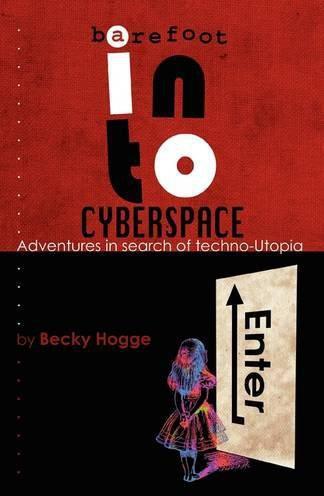
Barefoot Into Cyberspace: Adventures in Search of Techno-Utopia
by
Becky Hogge
,
Damien Morris
and
Christopher Scally
Published 26 Jul 2011
Although there have been no reports of revenge attacks, on 29 July, three days after the biggest leak in military history uncovered hundreds of previously unreported civilian casualties at the hands of NATO forces, the chairman of the US Joint Chiefs of Staff Admiral Mike Mullen was still able to accuse Julian Assange of having “blood on his hands”. The story was lapped up by the international press. An editorial in the Washington Post labelled WikiLeaks a criminal, if not a terrorist, enterprise and called for the Obama administration to circumvent international law and “employ not only law enforcement but also intelligence and military assets to bring Assange to justice and put his criminal syndicate out of business.” * * * Like thousands if not millions of people across the world, I was engrossed by these twists and turns in events. The character of Julian Assange as it was gradually painted – by the international press, by political officials, the commentariat, the bloggers and tweeters, the people I met in pubs who discussed WikiLeaks in wide-eyed terms – merged bit-by-bit with the man I met in Berlin until I could no longer be sure which picture was real.
…
It’s day two of the conference, and I’m pretty sure that the talk I’m waiting to watch is the main event this year. It hasn’t got anything to do with GSM, or mobile phones, and it won’t make headlines for a little while yet. But when it does, it will make them all over the world. Julian Assange and Daniel Schmitt take to the stage. They’re here as spokespeople for WikiLeaks, the whistle-blowing website that has published over one million leaked documents since its founding in 2007. In that short time, WikiLeaks has been behind more scoops than the Washington Post has notched up in 30 years. In the UK in 2009, it was at the centre of two major news stories. The first was about the use of libel law to gag reporting about a company who had dumped toxic waste illegally off the coast of Cote d’Ivoire leaving thousands of locals sick and at least a dozen dead.
…
Klein, Naomi. 2000. No Logo. Flamingo. Knight Lightning. 1989. “German Hackers Break Into Los Alamos and NASA”, Phrack, March 29 http://www.phrack.org/issues.html?issue=25&id=10#article. Levine, Adam. 2010. “Top military official: WikiLeaks founder may have ‘blood’ on his hands.” cnn.com, July 29. http://articles.cnn.com/2010-07-29/us/wikileaks.mullen.gates_1_julian-assange-leak-defense-robert-gates?_s=PM:US. Levy, Steven. 1984. Hackers: Heroes of the Computer Revolution. Anchor Press / Doubleday. ———. 1994. Insanely Great: The Life and Times of Macintosh, the Computer That Changed Everything.
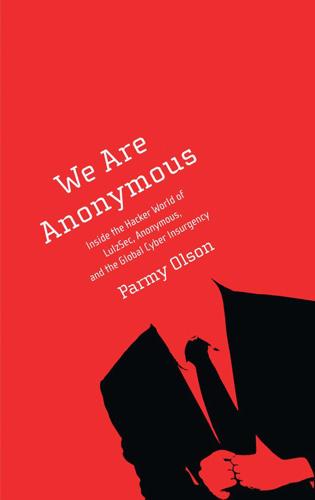
We Are Anonymous: Inside the Hacker World of LulzSec, Anonymous, and the Global Cyber Insurgency
by
Parmy Olson
Published 5 Jun 2012
I have sourced the assertion that Assange was “chuckling” to himself from interviews with Topiary, who said that when he was first talking to Assange on IRC, Assange claimed that he and others in WikiLeaks had “laughed” when they heard about the DDoS attack on the CIA. Details about Julian Assange’s state of affairs in June of 2011, including his defense against extradition and the wearing of an electronic tag, were sourced from various press reports, such as “Julian Assange Awaits High Court Ruling on Extradition,” published by the Guardian on November 2, 2011. Details about the IRC discussions within LulzSec (first between Topiary and Sabu, then among other members of the team) were sourced from interviews with Topiary and with one other hacker associated with LulzSec who does not wish to be named.
…
About a month prior, in December 2010, the news media exploded with reports that a large and mysterious group of hackers had started attacking the websites of MasterCard, PayPal, and Visa in retaliation for their having cut funding to WikiLeaks. WikiLeaks had just released a cache of thousands of secret diplomatic cables, and its founder and editor in chief, Julian Assange, had been arrested in the U.K., ostensibly for sexual misconduct. Hackers was a famously imprecise word. It could mean enthusiastic programmer, it could mean cyber criminal. But people in Anonymous, or Anons, were often dubbed hacktivists—hackers with an activist message.
…
He had no idea that, even though the anticopyright battle was dying, Operation Payback was about to explode with support for a little organization called WikiLeaks. Jake, now as Topiary, explored the AnonOps chat rooms while a former, widely-revered hacker from Australia named Julian Assange was getting ready to drop a bombshell on the American government. Earlier in 2010, a U.S. army private named Bradley Manning had allegedly reached out to Assange and given his whistleblower site, WikiLeaks, 250,000 internal messages, known as cables, that had been sent between American embassies. These diplomatic cables revealed American political maneuverings and confidential diplomatic reports.
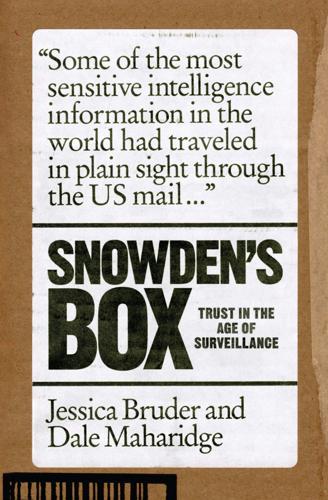
Snowden's Box: Trust in the Age of Surveillance
by
Jessica Bruder
and
Dale Maharidge
Published 29 Mar 2020
p. 129 “barometer of naughtiness”: Passionflix, Passionflix.com/bon. p. 129 Passionflix acquisition finalized: “First Look Media, Passionflix Strike Streaming Partnership,” MSNBC, Sept. 12, 2019, YouTube. p. 129 Julian Assange eighteen-count indictment: “WikiLeaks Founder Julian Assange Charged in 18-Count Superseding Indictment,” US Department of Justice, May 23, 2019, justice. gov. p. 130 Jabber singled out in Assange indictment: Glenn Greenwald and Micah Lee, “The US Government’s Indictment of Julian Assange Poses Grave Threats to Press Freedom,” Intercept, April 11, 2019. p. 130 Micah Lee comments on Assange indictment: twitter. com/micahflee/status/1116340396643082240?
…
Meanwhile, the presidency of Donald Trump has brought new threats to democracy and transparency in government. Chelsea Manning, whose role in leaking US diplomatic cables made her an inspirational figure to Snowden, has been thrown back in jail, despite having received a pardon by President Barack Obama. WikiLeaks founder Julian Assange has been charged under the Espionage Act and now faces up to 175 years in jail. Meanwhile, Trump is pushing to restore the NSA’s access to Americans’ phone and text records, a practice that was exposed — and then derailed — by the Snowden revelations. As we write this, a new whistleblower has emerged from the intelligence community to reveal a startling abuse of presidential power: Trump pressuring Ukrainian president Volodymyr Zelensky to investigate the son of Democratic presidential candidate Joe Biden.
…
Sometimes they temporarily confiscated and photocopied her notebooks. Once, they took away her computer. On April 6, 2012, after we had known each other for about four months, Laura was grilled at Newark Liberty International Airport. She was coming home from London, where she’d been filming WikiLeaks founder Julian Assange and his team for a documentary later titled Risk. As always, following her lawyer’s instructions, she took notes. This time, a federal agent declared her pen was a potential weapon. He threatened to handcuff her if she kept using it. When she offered to write with crayons instead, he said no.
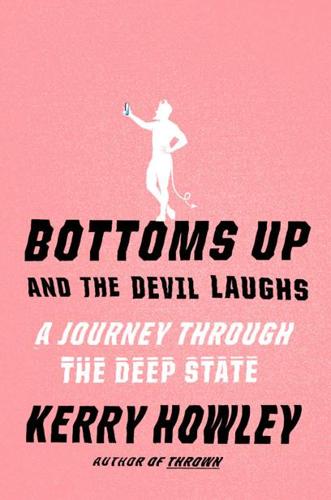
Bottoms Up and the Devil Laughs
by
Kerry Howley
Published 21 Mar 2023
I wanted people to see what I was seeing.” Zero America was conceived in a time when the legitimacy of the state was assured, unquestioned. But the state’s infrastructure was hard and solid and the sense of legitimacy a mist already burning off. The structure would outlast the faith that built it. Julian Assange established WikiLeaks in 2007. It was a list of links. It was “an uncensorable Wikipedia for untraceable mass document leaking.” “We’re going to crack the world open,” Assange said. He cited Aleksandr Solzhenitsyn and compared himself to academics forced to labor in Russian camps. “True belief begins only with a jackboot at the door.
…
* * * — In the SCIF on the basketball court Chelsea Manning opened a CD labeled lady gaga and downloaded hundreds of thousands of documents. She downloaded the video in which men with cameras were taken to be men with guns. While back home on leave, she sent it all to WikiLeaks via the anonymizing tool Tor. Julian Assange was not a legitimate participant. He was not even American. As a young boy he’d lived on a small island off the northeast coast of Australia, among koalas, giant clams, rock wallabies, and hippies who slept on beaches. His mother called the move “going native.” She married a theater director, Brett Assange.
…
The defendant had “traveled to Mexico various times between August 2002 and August 2006,” though she did not point out that between 2002 and 2006, the defendant was a child; she had been there to get cheap braces. Reality perhaps was not herself well financed for travel, but “someone has set up a GoFundMe page for the defendant, which, as of last night, having been up for only two days, had collected $12,415.” Julian Assange himself, “international fugitive and founder of WikiLeaks, has praised the defendant via Twitter.” And there was the trip to Belize. “By herself for only three days,” said Solari. “Nothing criminal about that, Your Honor, but it seems odd to spend the kind of money necessary for a trip all the way to Central America, to go alone, and then to come right back after such a short period of time with very little idea what she did there.”
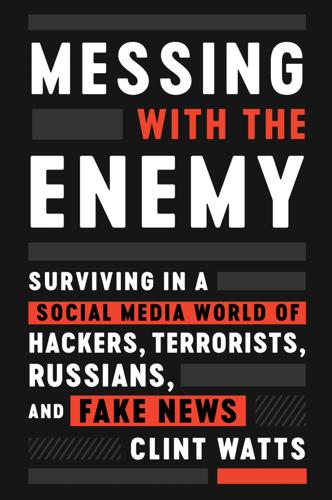
Messing With the Enemy: Surviving in a Social Media World of Hackers, Terrorists, Russians, and Fake News
by
Clint Watts
Published 28 May 2018
But Sheikh Aweys, years before his Shabaab escapades, surprisingly became the first victim of Julian Assange’s creation, WikiLeaks. WikiLeaks began its campaign for international transparency on December 28, 2006, posting a full English translation of a document allegedly written by Sheikh Aweys on November 9, 2005. The message made less news than the messenger. Julian Assange began his climb to international fame and today, more than a decade later, remains a disruptive force of information warfare. WikiLeaks thought “the crowd,” an open-source army of contributors scattered around the world, would investigate the contents of the alleged Aweys letter and determine collectively whether the document was true to its alleged source.
…
The largest leak of confidential information ever hit the presses on April 3, 2016, when 2.6 terabytes of data, containing 11.5 million documents from Mossack Fonseca, were obtained by the German newspaper Süddeutsche Zeitung and then shared with the International Consortium of Investigative Journalists (ICIJ). The leak, referred to internationally as the Panama Papers, dwarfed any previous disclosure by WikiLeaks. The data dump differed from WikiLeaks not only in size but in approach. Rather than post the raw data without context or with Julian Assange’s narrative, ICIJ shared the data with dozens of news outlets around the world familiar with the characters appearing in the documents and how the contents made sense in each country. In just the first eight months after their release, the Panama Papers generated more than 4,000 stories from media outlets and more than 6,500 investigations into companies and people potentially seeking to skirt laws and avoid taxes.30 Not only did the Panama Papers achieve far more transparency than WikiLeaks, but they exposed an authoritarian regime that WikiLeaks initially set out to challenge but mysteriously never touched: Russia.
…
D.C. police believe that Rich’s murder was the result of a robbery gone wrong. WikiLeaks’ Julian Assange, however, issued a reward for details regarding the murder, suggesting that he may have been the source of the DNC email leak. Alt-right websites and conspiracy theorists on 4chan and Reddit posited the same explanation: Rich knew of DNC corruption, they said, and was a closet Bernie Sanders supporter seeking to air the truth.24 RT and Sputnik continued stirring up these allegations through public news stories, amplifying WikiLeaks’ conspiracies,25 and Russian diplomats joined in this counternarrative as well.
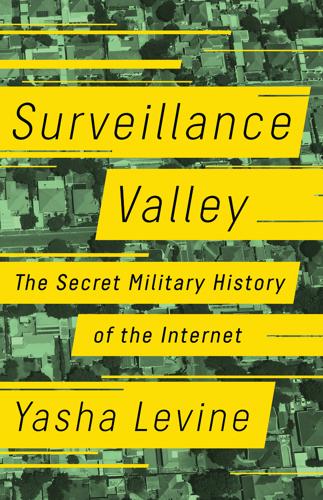
Surveillance Valley: The Rise of the Military-Digital Complex
by
Yasha Levine
Published 6 Feb 2018
Andrew Lewman, email message sent to Kelly DeYoe and Roger Dingledine, “EPIC, BBC, Tor, and FOIA,” September 10, 2013, https://surveillancevalley.com/content /citations/email-from-andrew-lewman-to-kelly-deyoe-and-roger-dingledine-epic-bbc-tor-and-foia-10-september-2013.pdf. 78. WikiLeaks, email message sent to John Young, “Martha Stewart pgp,” Cryptome, January 7, 2007, https://cryptome.org/wikileaks/wikileaks-leak2.htm. 79. Mona Mahmood, Maggie O’Kane, Chavala Madlena, and Teresa Smith, “Revealed: Pentagon’s Link to Iraqi Torture Centres,” Guardian, March 6, 2013. 80. Scott Shane and Andrew W. Lehren, “Leaked Cables Offer Raw Look at U.S. Diplomacy,” New York Times, November 28, 2010. 81. “Affidavit of Julian Paul Assange,” WikiLeaks, September 2, 2013, https://wikileaks.org/IMG/html/Affidavit_of_Julian_Assange.html. 82. “In late 2010, when Assange seemed to be on the brink of long-term jail awaiting questioning for alleged sex crimes, one WikiLeaks staffer told me he hoped Appelbaum might even be the favored successor to Assange in WikiLeaks’ hierarchy.”
…
.…”77 Appelbaum was energetic and did his best to promote Tor among privacy activists, cryptographers, and, most important of all, the radical cypherpunk movement that dreamed of using encryption to take on the power of governments and liberate the world from centralized control. In 2010, he snagged the support of Julian Assange, a silver-haired hacker who wanted to free the world of secrets. Tor Gets Radical Jacob Appelbaum and Julian Assange had met in Berlin sometime in 2005, just as the mysterious Australian hacker was getting ready to set WikiLeaks in motion. Assange’s idea for WikiLeaks was simple: government tyranny can only survive in an ecosystem of secrecy. Take away the ability of the powerful to keep secrets, and the whole facade will come crashing down around them.
…
“Please keep close hold, but my team is planning to launch a tool on Sunday that will publicly track and map the defections in Syria and which parts of the government they are coming from… which we believe are important in encouraging more to defect and giving confidence to the opposition,” Cohen wrote Hillary Clinton’s deputy secretary of state William Joseph Burns in a 2012 email. 149. As Julian Assange wryly noted in When Google Met WikiLeaks, “If Blackwater/Xe Services/Academi was running a program like [JigSaw], it would draw intense critical scrutiny. But somehow Google gets a free pass.” Julian Assange, When Google Met WikiLeaks (New York: OR Books, 2014). 150. Yazan al-Saadi, “StratforLeaks: Google Ideas Director Involved in ‘Regime Change,’” Al-Akhbar English, March 14, 2012; Doug Bolton, “Google Planned to Help Syria Rebels to Bring Down Assad Regime, Leaked Hillary Clinton Emails Claim,” The Independent, March 22, 2016, http://www.independent.co.uk /life-style/gadgets-and-tech/news/google-syria-rebels-defection-hillary-clinton-emails-wikileaks-a6946121.html. 151.

My Glorious Defeats: Hacktivist, Narcissist, Anonymous: A Memoir
by
Barrett Brown
Published 8 Jul 2024
Meanwhile I took the story to the Daily Beast national security reporter Spencer Ackerman, whom I’d met recently when he interviewed me onstage at a conference in New York. The resulting article was headlined, “Julian Assange Went After a Former Ally. It Backfired Epically.” WikiLeaks declined to comment. A few weeks later, Colvin joined my project as a board member, where she serves alongside the former member of Iceland’s parliament and early WikiLeaks volunteer Birgitta Jónsdóttir. Julian Assange has done more than anyone else to clarify what is possible in an age such as ours, where any sufficiently clever person has the world at his or her fingertips and the levers of power may be reached from anywhere. WikiLeaks struck at institutions that have committed such vast crimes against such a preponderance of the world, with so little real debate among the citizens who claim these governments as their own, that only a truly psychotic moral calculus could have found fault with its original mission of showing the public how such a system operates—particularly as it did these things via methods that were entirely legal, and pursued in partnership with traditional press outlets across the world.
…
And from the fact that I was around this time plotting to saturate the world with a web of self-replicating cooperative entities that I secretly hoped would solidify into a global network of effective opposition against states and anything else with more power than myself, one can likewise imagine that I had some eccentric and frankly megalomaniacal ideas about the role I myself was to play in the coming conflict (incidentally, I formulated this plan while living on a friend’s couch in Brooklyn and smoking her cigarettes because I’d spent all my money on heroin; such is the boundless regard I had for my own capabilities that I could nonetheless confidently chalk up the broad outlines of far-future propaganda wars). When Julian Assange reported on Twitter that he and other WikiLeaks volunteers were being tailed by U.S. officials and that another had been detained, I saw it as one of the early shots in what would become a decades-long struggle that would come to define this century. By this point I was convinced that WikiLeaks, which was still largely unknown but already being targeted by the United States and other states for its tendency to publicize inconvenient documents, would serve as the linchpin of a new, alternative political order, and I wanted a seat at the table.
…
He eventually became a fixture at the Project PM IRC, helping out here and there as my team continued work. The conflict I’d been awaiting had materialized, and was in fact accelerating; in addition to Anonymous’s campaign against Australia, WikiLeaks released the cache of U.S. diplomatic cables, prompting calls for the assassination of founder Julian Assange by a range of U.S. political and media figures. The United States’ back-end economic blockade vis-à-vis PayPal, Mastercard, et al. led in turn to the Anonymous strike on those companies, which was unlikely to be overlooked by law enforcement.
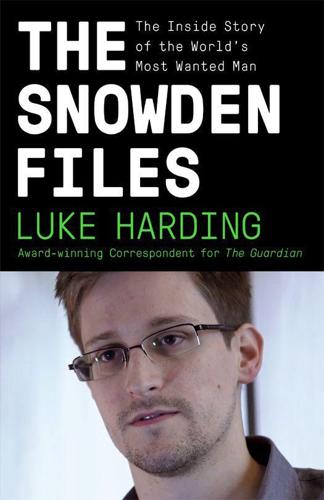
The Snowden Files: The Inside Story of the World's Most Wanted Man
by
Luke Harding
Published 7 Feb 2014
The other was Clement Walker, a 17th-century Somerset parliamentarian during the English civil war who was eventually locked up and died in the Tower of London. Significantly, verax is also an antonym of mendax. Mendax means ‘deceiving’ and was the handle used by Julian Assange of WikiLeaks when he was a young Australian hacker. WikiLeaks, with their electronic mass-leaking of US army files from Afghanistan, and of State Department diplomatic cables from all over the world, had recently plunged the US administration into uproar. Perhaps Snowden’s allusion was deliberate. Outwardly, his life continued as before.
…
Between 2007 and 2011 he was the Guardian’s Moscow bureau chief; the Kremlin expelled him from the country in the first case of its kind since the cold war. He is the author of three previous non-fiction books. They are The Liar: The Fall of Jonathan Aitken, nominated for the Orwell Prize; and WikiLeaks: Inside Julian Assange’s War on Secrecy, both written with David Leigh. Mafia State: How One Reporter Became an Enemy of the Brutal New Russia appeared in 2011. His books have been translated into 13 languages. Luke lives in Hertfordshire with his wife, the freelance journalist Phoebe Taplin, and their two children.
…
Over the ensuing decade, both in America and Britain, there came a new political willingness to invade individual privacy. At the same time, mushrooming technical developments started to make mass eavesdropping much more feasible. The intricate web of the internet secretly became what Julian Assange of WikiLeaks was to call, with only some exaggeration, ‘the greatest spying machine the world has ever seen’. But before the appearance of Edward Snowden, very little of the truth about that had reached the surface. The NSA – the biggest and most secretive of the US intelligence agencies – failed on 9/11 to give advance warning of al-Qaida’s surprise attack against the Twin Towers in New York.
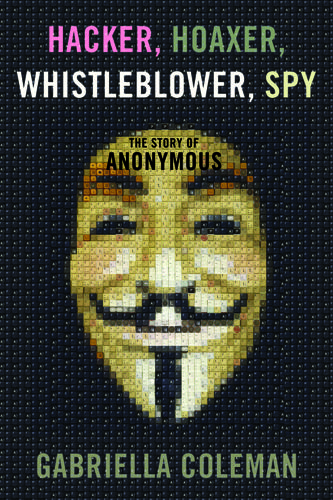
Hacker, Hoaxer, Whistleblower, Spy: The Story of Anonymous
by
Gabriella Coleman
Published 4 Nov 2014
Legal obstacles, which cannot be identified, involve proceedings, which cannot be mentioned, on behalf of a client who must remain secret.”1 And so, by April 2010, WikiLeaks had dramatically switched public relations strategies. When they released video footage of a Baghdad air strike, which they called “Collateral Murder,” WikiLeaks left nothing to chance—packaging the already shocking material in a way that delivered an extra punch. They edited the video for maximum effect and added simple but powerful editorial commentary at the beginning. Julian Assange, the Australian hacker who founded WikiLeaks, was then known in the media as an “international man of mystery.” Now he broke with his previous disavowal of the spotlight.
…
The FBI arrested Manning, ultimately leading to his admission that, as an act of whistle-blowing, he had providing WikiLeaks with not only the video footage seen in “Collateral Murder,” but also the diplomatic cables WikiLeaks would release over the next two years. Manning was sentenced by a military judge to thirty five years in prison, and is now at Fort Leavenworth, having spent almost a year in solitary confinement before he was sentenced.5 At the 2010 HOPE conference, there was palpable tension in the air. Rumors were swirling that Julian Assange was going to give the keynote. In a last-minute switch-up, it was not Assange who stepped out on stage, but the American hacker Jacob Appelbaum.
…
But now, as the revelations kept coming, members of the public discovered their jaws dropping lower and lower by the day, as if they were strapped into some orthodontic-transparency device, hand-cranked by Julian Assange himself. Sarah Palin suggested Assange be hunted down “with the same urgency we pursue al-Qaeda and Taliban leaders.”3 Senator Joe Lieberman declared it “an outrageous, reckless, and despicable action that will undermine the ability of our government and our partners to keep our people safe and to work together to defend our vital interests.”4 Lieberman’s staff reached out to Amazon—not only the world’s largest book retailer but also its largest web host—and asked it to ban WikiLeaks from its servers. It acquiesced. The financial firms that process credit card transactions worldwide followed suit, cutting the umbilical cord between donors and WikiLeaks.
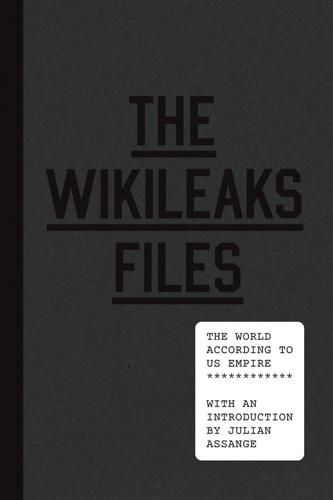
The WikiLeaks Files: The World According to US Empire
by
Wikileaks
Published 24 Aug 2015
Finer, “Iraqi Sunnis Battle to Defend Shiites,” Washington Post, August 14, 2005. 19Department of Defense, “Measuring Stability and Security in Iraq,” June 2007, Report to Congress, at defense.gov; Fred Kaplan, “Western Targets: The Iraqi Insurgency Is Still Primarily an Anti-Occupation Effort,” Slate, February 9, 2006. 20International Council on Security and Development, “Eight Years after 9/11 Taliban Now Has a Permanent Presence in 80% of Afghanistan,” press release, September 10, 2009, available at uruknet.info; Antonio Giustozzi, Koran, Kalashnikov, and Laptop: The Neo-Taliban Insurgency in Afghanistan (New York: Columbia University Press, 2007), pp. 108–9. 21“Leverage Xenophobia,” Washington Post, April 10, 2006. 22General Sir Richard Dannatt, “Address to the International Institute for Strategic Studies,” September 21, 2007, at mod.uk. 23“King: WikiLeaks Release ‘Worse than Military Attack,’” CBS New York, November 28, 2010, at newyork.cbslocal.com. 24Chris McGreal, “Is WikiLeaks Hi-Tech Terrorism or Hype? Washington can’t decide,” Guardian, February 5, 2011. 25K. T. McFarland, “Yes, WikiLeaks Is a Terrorist Organization and the Time to Act Is NOW,” Fox News, November 30, 2011, at foxnews.com. 26David Leigh and Luke Harding, WikiLeaks: Inside Julian Assange’s War on Secrecy (London: Guardian, 2011). 27This phrase is from a chat with Assange, discovered by US authorities. Kim Zetter, “Jolt in WikiLeaks Case: Feds Found Manning-Assange Chat Logs on Laptop,” Wired, December 19, 2011. 28Ed Pilkington, “Bradley Manning Treated More Harshly than a Terrorist, Lawyer Argues,” Guardian, July 12, 2012; Ed Pilkington, “Bradley Manning’s Treatment Was Cruel and Inhuman, UN Torture Chief Rules,” Guardian, March 12, 2012. 29See Richard Jackson, Marie Breen Smyth, and Jeroen Gunning, eds, Critical Terrorism Studies: A New Research Agenda (Oxford: Routledge, 2009); and Marie Breen-Smyth, ed., The Ashgate Research Companion to Political Violence (Farnham: Ashgate, 2012). 30Steve Inskeep, “State Department Defends America’s Image Abroad,” National Public Radio, March 27, 2006. 31George W.
…
CHAPTER 3: WAR AND TERRORISM 1Thomas Friedman, “A Manifesto for the Fast World,” New York Times Magazine, March 28, 1999. 2“Business and WikiLeaks: Be Afraid,” Economist, December 9, 2010. 3Andy Greenberg, “WikiLeaks’ Julian Assange Wants To Spill Your Corporate Secrets,” Forbes, November 29, 2010. 4https://wikileaks.org/wiki/Minton_report:_Trafigura_toxic_ dumping_along_the_Ivory_Coast_broke_EU_regulations,_14_Sep_2006. 5David Leigh, “Trafigura Hoped to Make a Fortune. Instead They Caused a Tragedy,” Guardian, September 16, 2009. 6“A Gag Too Far,” Index on Censorship, October 14, 2009. 7Mark Sweney, “Bank Drops Lawsuit against Wikileaks,” Guardian, March 6, 2008; “Wikileaks Given Data on Swiss Bank Accounts,” BBC News, January 17, 2011; “WikiLeaks to Target Wealthy Individuals,” Daily Telegraph, January 17, 2011. 8Yochai Benkler, “A Free Irresponsible Press: Wikileaks and the Battle over the Soul of the Networked Fourth Estate,” Harvard Civil Rights-Civil Liberties Law Review 46 (2011); Lisa Lynch, “‘We’re Going to Crack the World Open’: Wikileaks and the Future of Investigative Reporting,” Journalism Practice 4: 3 (2010)—Special Issue: The Future of Journalism. 9John Vidal, “WikiLeaks: US Targets EU over GM Crops,” Guardian, January 3, 2011. 10See Mariana Mazzucato, The Entrepreneurial State: Debunking Public vs Private Sector Myths (London/New York/Delhi: Anthem Press, 2013), Kindle loc. 2302–2320; and Leo Panitch and Sam Gindin, The Making of Global Capitalism: The Political Economy of the American Empire (London/New York: Verso, 2013), p. 288. 11https://wikileaks.org/tpp-ip2/pressrelease. 12Peter Gowan, The Global Gamble: Washington’s Faustian Bid for World Dominance (London/New York: Verso, 1999). 13Quoted in Leo Panitch and Sam Gindin, “Global Capitalism and the American Empire,” Socialist Register 40 (2004). 14Figure cited in Andrew G.
…
The WikiLeaks Files This eBook is licensed to Edward Betts, edward@4angle.com on 04/01/2016 The WikiLeaks Files The World According to US Empire Introduction by Julian Assange This eBook is licensed to Edward Betts, edward@4angle.com on 04/01/2016 First published by Verso 2015 The collection © Verso 2015 Contributions © The contributors 2015 Introduction © Julian Assange 2015 All rights reserved The moral rights of the authors have been asserted 1 3 5 7 9 10 8 6 4 2 Verso UK: 6 Meard Street, London W1F 0EG US: 20 Jay Street, Suite 1010, Brooklyn, NY 11201 www.versobooks.com Verso is the imprint of New Left Books ISBN-13: 978-1-78168-874-8 (HB) ISBN-13: 978-1-78478-271-9 (EXPORT) eISBN-13: 978-1-78168-875-5 (UK) eISBN-13: 978-1-78168-944-8 (US) British Library Cataloguing in Publication Data A catalogue record for this book is available from the British Library Library of Congress Cataloging-in-Publication Data A catalog record for this book is available from the Library of Congress Typeset in Sabon by MJ & N Gavan, Truro, Cornwall Printed in the US by Maple Press This eBook is licensed to Edward Betts, edward@4angle.com on 04/01/2016 Contents Introduction Julian Assange Part I 1.America and the Dictators 2.Dictators and Human Rights 3.War and Terrorism Part II 4.Indexing the Empire Sarah Harrison 5.US War Crimes and the ICC Linda Pearson 6.Europe Michael Busch 7.Russia Russ Wellen 8.Turkey Conn Hallinan 9.Israel Stephen Zunes and Peter Certo 10.Syria Robert Naiman 11.Iran Gareth Porter 12.Iraq Dahr Jamail 13.Afghanistan Phyllis Bennis 14.East Asia Tim Shorrock 15.Southeast Asia Richard Heydarian 16.South Africa Francis Njubi Nesbitt 17.Latin America and the Caribbean Alexander Main, Jake Johnston, and Dan Beeton 18.Venezuela Dan Beeton, Jake Johnston, and Alexander Main Notes List of Contributors Index This eBook is licensed to Edward Betts, edward@4angle.com on 04/01/2016 Introduction: WikiLeaks and Empire Julian Assange One day, a monk and two novices found a heavy stone in their path.
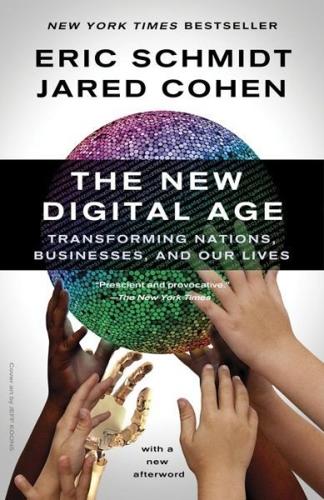
The New Digital Age: Transforming Nations, Businesses, and Our Lives
by
Eric Schmidt
and
Jared Cohen
Published 22 Apr 2013
Assange shared his two basic arguments on this subject: Julian Assange in discussion with the authors, June 2011. lightning rod, as Assange called himself: Atika Shubert, “WikiLeaks Editor Julian Assange Dismisses Reports of Internal Strife,” CNN, October 22, 2010, http://articles.cnn.com/2010-10-22/us/wikileaks.interview_1_julian-assange-wikileaks-afghan-war-diary?_s=PM:US. “Sources speak with their feet”: Julian Assange in discussion with the authors, June 2011. WikiLeaks lost its principal website URL: James Cowie, “WikiLeaks: Moving Target,” Renesys (blog), December 7, 2010, http://www.renesys.com/blog/2010/12/wikileaks-moving-target.shtml.
…
These groups will continue to demand attention from the governments and institutions they attack, and their threats may come to be taken more seriously than one might expect judging from today’s activities, which mostly seem like stunts. The story of WikiLeaks, the secrets-publishing website we discussed earlier, and its sympathetic hacker allies is an illustrative example. The arrest of WikiLeaks’ cofounder Julian Assange in December 2010 sparked flurries of outrage around the world, particularly among the many activists, hackers and computer experts who believed his indictment on sexual-assault charges was politically motivated. Shortly thereafter, a series of cyber attacks crippled, among others, the websites for Amazon, which had revoked WikiLeaks’ use of its servers, and MasterCard and PayPal, which had both stopped processing donations for WikiLeaks.
…
Some people will cheer for the end of control that connectivity and data-rich environments engender. They are the people who believe that information wants to be free,2 and that greater transparency in all things will bring about a more just, safe and free world. For a time, WikiLeaks’ cofounder Julian Assange was the world’s most visible ambassador for this cause, but supporters of WikiLeaks and the values it champions come in all stripes, including right-wing libertarians, far-left liberals and apolitical technology enthusiasts. While they don’t always agree on tactics, to them, data permanence is a fail-safe for society. Despite some of the known negative consequences of this movement (threats to individual security, ruined reputations and diplomatic chaos), some free-information activists believe the absence of a delete button ultimately strengthens humanity’s progress toward greater equality, productivity and self-determination.
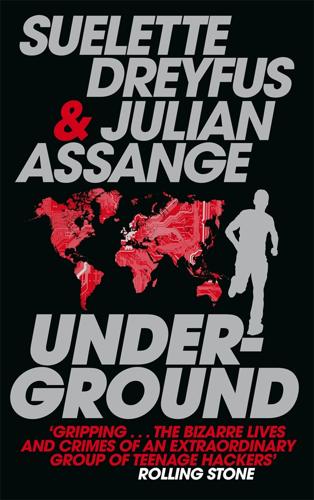
Underground
by
Suelette Dreyfus
Published 1 Jan 2011
The similarities with the Afghan and Iraq wars are striking. 5. Julian Assange, ‘Serious nuclear accident may lay behind Iranian nuke chief’s mystery resignation.’ WikiLeaks, 16 July, 2009. See mirror site: http://mirror.wikileaks. info/wiki/Serious_nuclear_accident_may_lay_behind_Iranian_nuke_chief%27s_mystery_resignation/ The short entry is included in case the mirror disappears: ‘Two weeks ago, a source associated with Iran’s nuclear program confidentially told WikiLeaks of a serious, recent, nuclear accident at Natanz. Natanz is the primary location of Iran’s nuclear enrichment program. WikiLeaks had reason to believe the source was credible however contact with this source was lost.
…
This goes back to the earliest definition of a hacker, which doesn’t imply any illegal activity, but, rather, simply reflects someone who can find clever technical solutions to hard problems. It is this kernel of unusual creativity, not their illegal activities, that makes the hackers in Underground so interesting. This kernel carried through to WikiLeaks. WikiLeaks revealed the creative application of technology, in the form of secure, anonymous online publishing, to the hard problem of getting governments and corporations to tell the truth. The founder of WikiLeaks, Julian Assange, and I worked on Underground for almost three years. He brought exceptional technical understanding and a detailed knowledge of the computer underground while I brought years of experience as a professional journalist and technology writer.
…
She began work on Underground while completing her PhD. She is a Research Fellow at the University of Melbourne, where she runs several major research projects in information systems. Julian Assange is an internet activist, journalist and publisher. Born and raised in Australia, Julian is the founder, spokesperson, and editor in chief of WikiLeaks, a whistleblower website that started in 2006. In 2010, WikiLeaks began to publish hundreds of thousands of classified details about American involvement in the wars in Afghanistan and Iraq, which created a media storm. At the end of 2010, the site published a series of classified US diplomatic cables, now known as Cablegate.
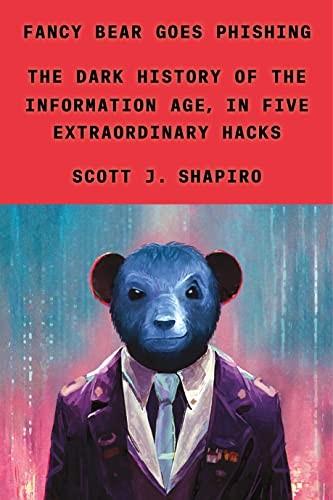
Fancy Bear Goes Phishing: The Dark History of the Information Age, in Five Extraordinary Hacks
by
Scott J. Shapiro
voting technology standards: Perlroth, “Hackers Used New Weapons.” internet outage map on Twitter: WikiLeaks (@WikiLeaks), “Mr. Assange is still alive,” Twitter, October 21, 2016, https://twitter.com/WikiLeaks/status/789574436219449345?ref_src=twsrc%5Etfw. The map is from DownDetector, a platform that provides information on service issues. See Blumenthal and Wiese, “Hacked Home Devices.” Julian Assange’s internet connection: WikiLeaks claims that Ecuador shut off Assange’s internet after WikiLeaks published Clinton’s Goldman Sachs speeches on October 16: WikiLeaks (@WikiLeaks), “We can confirm Ecuador cut off Assange’s internet access Saturday, 5pm GMT, shortly after publication of Clinton’s Goldman Sachs speechs,” Twitter, October 17, 2016, https://twitter.com/WikiLeaks/status/788099178832420865.
…
,” NPR, https://www.npr.org/sections/publiceditor/2016/10/19/498444943/how-should-npr-report-on-hacked-wikileaks-emails. See generally, Nieman Reports, “When Is It Ethical to Publish Stolen Data?,” Nieman Reports, https://niemanreports.org/articles/when-is-it-ethical-to-publish-stolen-data/. the next day: Donald Trump (@realDonaldTrump), “Leaked e-mails of DNC show plans to destroy Bernie Sanders,” Twitter, July 23, 2016, https://twitter.com/realDonaldTrump/status/756804886038192128. from Russia: Alex Johnson, “WikiLeaks’ Julian Assange: ‘No Proof’ Hacked DNC Emails Came from Russia,” NBC News, July 25, 2016, https://www.nbcnews.com/news/us-news/WikiLeaks-julian-assange-no-proof-hacked-dnc-emails-came-russia-n616541.
…
from Russia: Alex Johnson, “WikiLeaks’ Julian Assange: ‘No Proof’ Hacked DNC Emails Came from Russia,” NBC News, July 25, 2016, https://www.nbcnews.com/news/us-news/WikiLeaks-julian-assange-no-proof-hacked-dnc-emails-came-russia-n616541. inside job: Interview with Amy Goodman, “WikiLeaks’ Julian Assange on Releasing DNC Emails That Ousted Debbie Wasserman Schultz,” July 25, 2016, https://www.democracynow.org/2016/7/25/exclusive_WikiLeaks_julian_assange_on_releasing. “I mean, it could be”: First presidential debate of 2016, CNN, September 26, 2016, http://www.cnn.com/TRANSCRIPTS/1609/26/se.01.html. “Guccifer 2.0”: Roger Stone, “Dear Hillary: DNC Hack Solved, So Now Stop Blaming Russia,” Breitbart.com, August 5, 2016, https://www.breitbart.com/politics/2016/08/05/dear-hillary-dnc-hack-solved-so-now-stop-blaming-russia/.
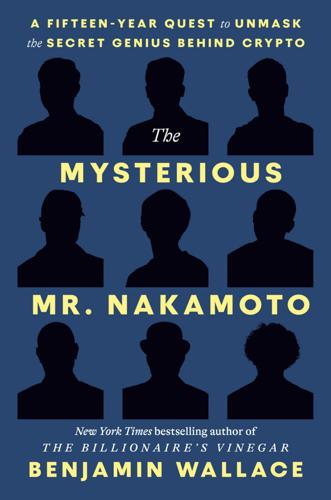
The Mysterious Mr. Nakamoto: A Fifteen-Year Quest to Unmask the Secret Genius Behind Crypto
by
Benjamin Wallace
Published 18 Mar 2025
And this is good, because that shows clearly that it’s not the fame he is after, but ideals. IMHO we should respect that and leave his identity alone.” But people couldn’t help throwing names around: Could Nakamoto be Neal Stephenson, the novelist whose Cryptonomicon had anticipated digital money? Julian Assange, the Australian founder of WikiLeaks? Grigori Perelman, a hermitic Russian genius who’d turned down a million-dollar math prize? The freakout proved unwarranted. On January 13, Gavin reassured the community: Nakamoto had emailed him that day “about a tricky bug…. He’s just busy.” But on April 16, 2011, a BitcoinTalker named Wobber, noting that a “long time [had] passed since he last posted in here,” started a new thread: “Who is Satoshi Nakamoto?”
…
A cypherpunk named John Draper was better known as Captain Crunch, because in the 1970s he’d figured out how to make free long-distance phone calls when he’d discovered that the giveaway whistles in Cap’n Crunch cereal boxes happened to emit the precise frequency, 2,600 hertz, needed to spoof AT&T’s call-routing system. (For this, Draper served time in federal prison.) The group would also come to include BitTorrent inventor Bram Cohen, Grateful Dead lyricist and Electronic Frontier Foundation cofounder John Perry Barlow, Signal creator Moxie Marlinspike, and Julian Assange. Though the Bay Area cypherpunks met in person once a month, their main gathering spot was an email list anyone could join. Many posters went by their real names, but there were also well-respected regulars known only by handles like Black Unicorn and Pr0duct Cypher. Using nyms to post to the list under multiple identities became a game for some and a tool for others.
…
I believe that there is more than enough help for ppl available. They just need to get off their butts and work.” He signed the message with one of the Japanese pseudonyms he sometimes used: “doshai.” “Do we really need your amateur political views?” responded another cypherpunk, a fellow Australian named Julian Assange. Dave In the early 2000s, Wright developed a friendship with an American named David Kleiman. By then, Wright was helping internet gambling companies like Lasseters Online Casino and Centrebet protect themselves. Kleiman was a computer forensics expert in South Florida who’d been paralyzed in a motorcycle accident in the 1990s.
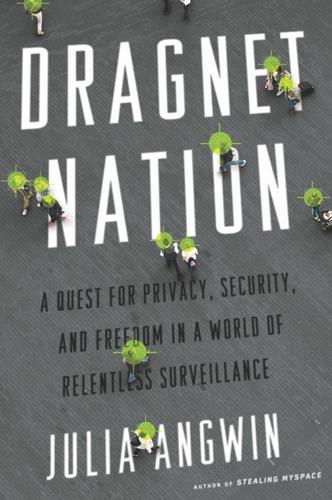
Dragnet Nation: A Quest for Privacy, Security, and Freedom in a World of Relentless Surveillance
by
Julia Angwin
Published 25 Feb 2014
Longer passwords that contain many types of symbols, letters, and numbers often have larger entropy because it takes more guesses to figure them out. Julian Assange knew this when he created the following password to the WikiLeaks cables database: AcollectionOfDiplomaticHistorySince_1966_ToThe_PresentDay#. It is fifty-eight characters long, with very few symbols, and easy to remember. Of course, the reason we know his password is that the Guardian newspaper published it in a book about WikiLeaks. So, obviously, it wasn’t a secure password in other respects. Entropy is frustratingly difficult to estimate. A long password can have low entropy if it is comprised of simple words and easy grammar.
…
Encryption is your friend. Use it well, and do your best to ensure that nothing can compromise it. That’s how you can remain secure even in the face of the NSA.” * * * In some ways, the Cypherpunk movement is coming back to life. Julian Assange, a longtime Cypherpunk, transformed the relationship between journalists and their sources with his 2006 launch of the WikiLeaks encrypted drop box that promised complete anonymity to people who wanted to leak information. Other Cypherpunks focused on building “liberation technology” to help liberate people from oppressive regimes. Moxie Marlinspike in San Francisco built encryption apps—RedPhone and TextSecure—for Android phones.
…
Sadly, salting is not: Paul Wagenseil, “LinkedIn, eHarmony Don’t Take Your Security Seriously,” TechNewsDaily, NBC News, June 8, 2012, http://www.nbcnews.com/technology/linkedin-eharmony-dont-take-your-security-seriously-819858. Jeffrey Goldberg, a password expert at AgileBits: Jeffrey Goldberg, in discussion with author, May 14, 2013. Julian Assange knew this: “Row Between Wikileaks and Guardian over Security Breach,” BBC News, September 1, 2011, http://www.bbc.co.uk/news/uk-14743410. One day I was sitting outside: Dan Wheeler, “Open Source Password Strength Estimator,” April 2012, https://dl.dropboxusercontent.com/u/209/zxcvbn/test/index.html. In 2012, researchers at the University of Cambridge: Joseph Bonneau and Ekaterina Shutova, “Linguistic Properties of Multi-Word Passphrases,” USEC ’12: Workshop on Usable Security, Kralendijk, Bonaire, Netherlands, March 2, 2012, http://www.jbonneau.com/doc/BS12-USEC-passphrase_linguistics.pdf.
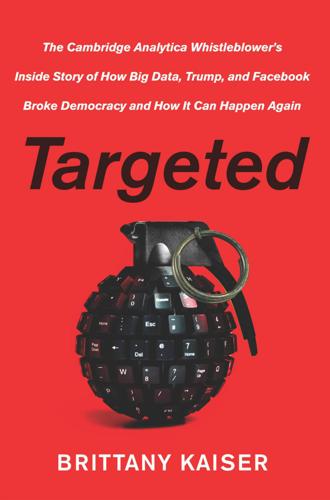
Targeted: The Cambridge Analytica Whistleblower's Inside Story of How Big Data, Trump, and Facebook Broke Democracy and How It Can Happen Again
by
Brittany Kaiser
Published 21 Oct 2019
Terrible news—that and the fact that in October, the Guardian revealed that Alexander himself had reached out to WikiLeaks during the campaign to try to obtain Hillary Clinton’s hacked emails. This had probably been enough to spark Congress’s interest in Cambridge’s relationship with the Trump campaign. Both Alexander Nix and Julian Assange had come out in public saying that the former’s attempt to get Hillary’s emails had been unsuccessful. Assange hadn’t even bothered to respond to him. Neither of these revelations surprised me. As far as I knew, Julian Assange had no reason to help out a man like Alexander Nix, and he wasn’t exactly a man to accept cold calls, either.
…
I had never believed a thing she’d reported because every single thing she’d ever written about me had been so inaccurate and speculative, to say the least. Later that year, Carole would cite an anonymous source stating that I was “funneling” Bitcoin to fund Wikileaks (I guess she’s referring to my student-budget donation in 2011) and had gone to visit Julian Assange to discuss the U.S. elections. Her theory and inference that I could be Guccifer 2.0, the conduit between Russia, the DNC hack, and Wikileaks, was a bit much to take in. Her allegations against me had real collateral damage: I was subpoenaed by Mueller the next day, which she then printed nine months later, conveniently leaving out the date and touting it as though it had just happened, further confusing the world and obfuscating the truth.
…
While Cambridge, she allowed, had never officially worked for Lukoil—Wylie had a copy of that proposal, which I myself had seen in my early days at SCL—Cadwalladr wanted to tie it all together, despite having no causal evidence. This features writer posing as an investigator wanted to connect CA with WikiLeaks, with the downfall of Hillary and the rise of Trump, and she presumed that both Julian Assange and Alexander Nix had been lying when each said that they had not in fact ended up working together when Alexander reached out to WikiLeaks in search of Hillary Clinton’s emails. Carole wanted so desperately to find a smoking gun that she blew smoke everywhere, with larger-than-life characters such as Chris Wylie and villainous companies such as Cambridge Analytica, which she described as deploying psyops and operating much like MI6.
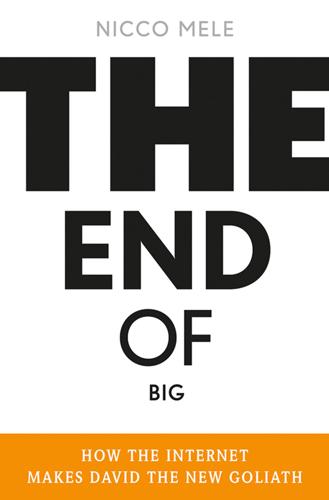
The End of Big: How the Internet Makes David the New Goliath
by
Nicco Mele
Published 14 Apr 2013
Ibid. 26. http://www.wired.com/threatlevel/2010/04/cyberwar-richard-clarke/ 27. www.youtube.com/watch?v=swHkpHMVt3A 28. Julian Assange, “The Non Linear Effects of Leaks on Unjust Systems of Governance,” WikiLeaks 31 Dec. 2006. Archived from the original on 2 Oct. 2007. 29. http://www.smh.com.au/technology/technology-news/the-secret-life-of-wikileaks-founder-julian-assange-20100521-w1um.html 30. http://www.guardian.co.uk/world/2010/dec/01/us-embassy-cables-executed-mike-huckabee 31. http://www.telegraph.co.uk/news/worldnews/wikileaks/8171269/Sarah-Palin-hunt-WikiLeaks-founder-like-al-Qaeda-and-Taliban-leaders.html 32. http://www.guardian.co.uk/media/2010/dec/19/assange-high-tech-terrorist-biden 33. http://www.democracynow.org/2010/12/31/pentagon_whistleblower_daniel_ellsberg_julian_assange 34.
…
Consider Bradley Manning and Julian Assange; together they changed diplomacy and, arguably, the governments of several countries—without any exceptional technical knowledge or expertise. Bradley Manning is a computer programmer, but not a technical genius. He was a low-ranking U.S. Army soldier, a private first class, who made use of a fundamental attribute of digital files: They are easily copied and, once copied, easily shared. Manning allegedly had access to the files through the U.S. military’s online data-management tools and copied them to share online on WikiLeaks. Julian Assange, a computer programmer and activist, had been working with a team to build WikiLeaks into a known repository for whistleblowers and a trusted source for journalists.
…
Archived from the original on 2 Oct. 2007. 29. http://www.smh.com.au/technology/technology-news/the-secret-life-of-wikileaks-founder-julian-assange-20100521-w1um.html 30. http://www.guardian.co.uk/world/2010/dec/01/us-embassy-cables-executed-mike-huckabee 31. http://www.telegraph.co.uk/news/worldnews/wikileaks/8171269/Sarah-Palin-hunt-WikiLeaks-founder-like-al-Qaeda-and-Taliban-leaders.html 32. http://www.guardian.co.uk/media/2010/dec/19/assange-high-tech-terrorist-biden 33. http://www.democracynow.org/2010/12/31/pentagon_whistleblower_daniel_ellsberg_julian_assange 34. Micah L. Sifry and Andrew Rasiej, WikiLeaks and the Age of Transparency (Berkeley: Counterpoint, 2011), 14. 35. http://gov20.govfresh.com/samantha-power-transparency-has-gone-global/ 36. http://wikileaks.ch/cable/2008/06/08TUNIS679.html 37. http://www.time.com/time/magazine/article/0,9171,2044723,00.html; http://www.cnn.com/2011/12/17/world/meast/arab-spring-one-year-later/index.html 38. Rebecca MacKinnon, Consent of the Networked (Philadelphia: Basic Books, 2012), 57. 39.

Active Measures: The Secret History of Disinformation and Political Warfare
by
Thomas Rid
Yet Cryptome pioneered and precipitated a larger cultural shift that would help reawaken active measures with a vengeance. Young met Julian Assange on the cypherpunk list, and Assange described Cryptome as the “spiritual godfather”6 of WikiLeaks. In 2006, Assange asked Young to become the public face of WikiLeaks in the United States, and suggested that Young could register WikiLeaks.org in his name.7 The cooperation failed; two eccentric personalities clashed, and the radical-libertarian partnership came to an end. Yet WikiLeaks would soon eclipse Cryptome. In 2010, Chelsea Manning, then a twenty-two-year-old Army private known as Bradley,8 leaked more than a quarter million State Department and Department of Defense documents to WikiLeaks.
…
The New York Post, usually adept at finding what it called “hair-raising data,” concluded there was none in the released opposition research.5 Press attention only picked up somewhat when Donald Trump claimed that the DNC itself “did the ‘hacking.’”6 It would take nearly six weeks before the story finally dominated the news cycle. Next, the GRU recruited the help of WikiLeaks. The Guccifer 2.0 account had claimed, in the first note on the DNC hack, that “the main part of the papers, thousands of files and mails, I gave to WikiLeaks.” The GRU had not yet handed over the treasure trove, but the announcement had caught Julian Assange’s attention, and WikiLeaks immediately but cryptically reacted on Twitter. “DNC ‘hacker’ releases 200+ page internal report on Trump, says gave WikiLeaks all the rest,” Assange posted hours after the first leaks appeared, carefully not acknowledging receipt, and only repeating what the GRU front had claimed in its ominous blog post.7 Events now started to move quickly.
…
By the end of the weekend, on June 12, the DNC’s networks were cleaned up and back online.23 That day, Julian Assange gave an interview to a British news network. He mentioned that a major political leak was forthcoming. “We have upcoming leaks in relation to Hillary Clinton, which are great,” Assange said. “WikiLeaks has a very big year ahead.”24 As was often his strategy, Assange was being deliberately cryptic. Later he persistently refused to clarify either from whom or precisely when his organization had received specific leaks. Two days later, on June 14, the GRU, sensing that DCLeaks was a hard sell and not exactly a success, started to reach out to WikiLeaks directly. The @DCleaks_ Twitter account privately messaged Julian Assange’s outfit.
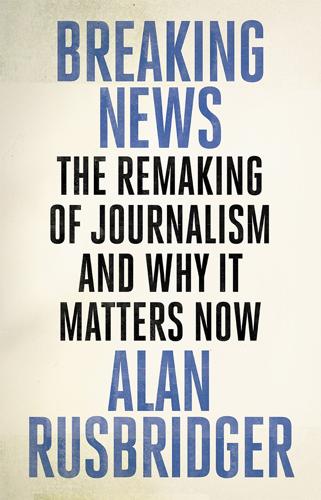
Breaking News: The Remaking of Journalism and Why It Matters Now
by
Alan Rusbridger
Published 14 Oct 2018
The effect of the Pentagon Papers Supreme Court judgment was that the government would have to demonstrate direct, immediate and irreparable damage to the state before the courts would restrict or prevent publication. 7. Twitter, 29 May 2015, 12.44 p.m.; @wikileaks 8. ‘Ghosting: Julian Assange’, London Review of Books, 6 March 2014; Andrew O’Hagan 9. James Clapper, the former Director of National Intelligence, told Raffi Khatchadourian of the New Yorker: ‘It was done by a cutout, which of course afforded Assange plausible deniability.’ (‘Julian Assange: A Man Without a Country’, New Yorker, 21 August 2017) 10. ‘Julian Assange: A Man Without a Country’, New Yorker, 21 August 2017 11. Interview with Ian Katz, editor of Newsnight, BBC Two, 15 December 2016 12.
…
Horowitz has described Rupert Murdoch’s Fox News as ‘a partner’ (‘They’ve done a phenomenal job of disseminating the videos and my point of view’),5 and they duly picked up on a YouTube video he’d published in December 2016 claiming that ‘rape and violence has exploded across Sweden due it’s [sic] immigration policies’.6 Within 15 seconds of the video, an alert viewer would see what kind of an exercise this was. Horowitz lingers on a BBC headline ‘Sweden’s rape rate under the spotlight’. In fact, that four-year-old, 1,200-word article – pegged to the extradition of WikiLeaks leader Julian Assange, rather than immigration – was a nuanced exploration of whether Sweden’s apparently higher rates of rape were mainly down to changes in the way the police record incidents. But that was not how Horowitz used the headline. Horowitz dealt in outrage, entertainment and provocation. It was central to his Unique Selling Point that he told uncomfortable home truths the despised Mainstream Media (MSM) ignored.7 He was not a reliable source for the President of the United States.
…
Official Secrets: The Use and Abuse of the Act. London: Secker & Warburg, 1987. Jarvis, J. Gutenberg the Geek. Kindle Single Edition, 2012. Kueng, L. Going Digital: A Roadmap for Organisation Change. Oxford: Reuters Institute for the Study of Journalism, 2017. Leigh, D. and Harding, L. WikiLeaks: Inside Julian Assange’s War on Secrecy. London: Guardian Books, 2010. Levy, D., Aslan, B. and Bironzo, D. UK Press Coverage of the EU Referendum. Oxford: Reuters Institute for the Study of Journalism, 2016. Lewis, A. Make No Law: The Sullivan Case and the First Amendment. New York: Random House, 1991. Lichter, R., Lichter, L. and Rothman, A.
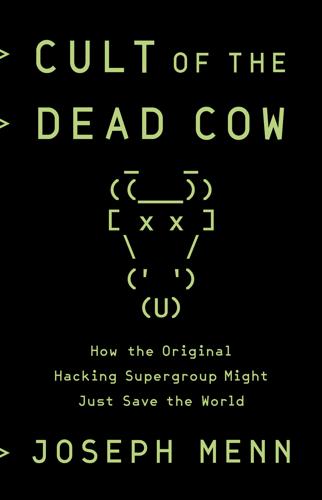
Cult of the Dead Cow: How the Original Hacking Supergroup Might Just Save the World
by
Joseph Menn
Published 3 Jun 2019
That accelerated after he hooked up with something even bigger than Tor: WikiLeaks. Activist hackers started the site in 2006 and first won wide attention in 2010, when they posted a video called “Collateral Murder” that captured the gunfire from a US helicopter that killed a dozen people, including two Reuters journalists, in Iraq. The video disproved US claims that the shooting was part of a battle. The one WikiLeaks founder who would be left standing after years of internal dissension and splits was Australian Julian Assange, who had nearly as bad a childhood as Jake, including hiding with his mother from a vengeful cult.
…
Toward the end, after puzzling as cDc did about what to do with all the attention, Davis announced that LulzSec would revive Antisec, an old campaign against white-hat security professionals. This time, LulzSec would ally with the broader Anonymous and go after government security agencies, banks, and other establishment powers. Julian Assange was tracking events closely, at one point contacting the group for help getting into Icelandic email services that might show that government treating WikiLeaks unfairly. After LulzSec supporter Jeremy Hammond hacked US intelligence consulting firm Stratfor, WikiLeaks published millions of Stratfor emails with clients. Eventually authorities caught almost the entire LulzSec crew. Technological ringleader Hector Monsegur, alias Sabu, flipped and helped put Davis and the others away.
…
Courtesy Danny Dulai German hacker Kemal Akman was a key addition to Laird Brown’s Hacktivismo spinoff from cDc. But then Akman brought in the man who invented FinFisher spyware, still used by repressive regimes against dissidents. Courtesy Declan McCullagh Jacob Appelbaum became one of the last close aides to WikiLeaks founder Julian Assange, with whom he spoke at a 2011 press conference touting the release of new files. Both would be accused of sexual misconduct. Still from “Wikileaks Press Conference,” uploaded to YouTube December 1, 2011, by Rima Amin Cult of the Dead Cow founders Bill Brown and Kevin Wheeler, known to the outside world as Franken Gibe and Grandmaster Ratte, met as middle-school students in Lubbock, Texas.
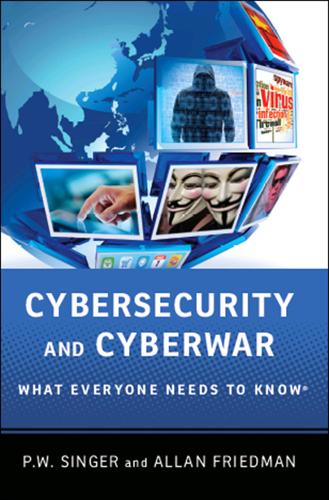
Cybersecurity: What Everyone Needs to Know
by
P. W. Singer
and
Allan Friedman
Published 3 Jan 2014
Sophisticated actors with resources can play a fairly long game of whack-a-mole with governments, even in the face of determined foes and international cooperation. Perhaps the WikiLeaks case best illustrates what governments can and can’t do. As we saw in Part II, American politicians reacted with horror to the documents released by the transparency website. Vice President Joe Biden labeled WikiLeaks head Julian Assange a “high-tech terrorist,” while others wanted him labeled an “enemy combatant,” to be jailed in Guantánamo Bay prison without traditional due process. Likewise, under pressure from the US government and its allies, a number of private companies began to sever ties with WikiLeaks, hampering its ability to operate. Visa, MasterCard, and PayPal, for instance, suspended payments, preventing their customers from supporting the organization through the traditional channels.
…
… (12:26:09 PM) bradass87: lets just say *someone* i know intimately well, has been penetrating US classified networks, mining data like the ones described … and been transferring that data from the classified networks over the “air gap” onto a commercial network computer … sorting the data, compressing it, encrypting it, and uploading it to a crazy white haired aussie who can’t seem to stay in one country very long =L … (12:31:43 PM) bradass87: crazy white haired dude = Julian Assange (12:33:05 PM) bradass87: in other words … ive made a huge mess. This exchange on AOL Instant Messenger launched one of the biggest incidents in cyber history. WikiLeaks not only changed the way the world thinks about diplomatic secrets, but also became a focal point for understanding how radically cyberspace has changed our relationship with data and access. In 2006, the website WikiLeaks was launched with the goal of “exposing corruption and abuse around the world.” With an agenda that scholars call “radical transparency,” the concept was to reform powerful actors’ behavior by exposing documented evidence of their wrongdoing online.
…
no one government could seize TorrentFreak, “The Pirate Bay: The Site Is Safe, Even If We Lose in Court,” January 31, 2008, http://torrentfreak.com/pirate-bay-is-safe-080131/. without traditional due process Ewan MacAskill, “Julian Assange Like a High-Tech Terrorist, Says Joe Biden,” Guardian, December 19, 2010, http://www.guardian.co.uk/media/2010/dec/19/assange-high-tech-terrorist-biden. “enemy combatant” Shane D’Aprile, “Gingrich: Leaks Show Obama Administration ‘Shallow,’ ‘Amateurish,’” Blog Briefing Room (blog), The Hill, December 5, 2010, http://thehill.com/blogs/blog-briefing-room/news/132037-gingrich-blames-obama-on-wikileaks-labels-assange-a-terrorist. traditional channels Ewen MacAskill, “WikiLeaks Website Pulled by Amazon after US Political Pressure,” Guardian, December 1, 2010, http://www.guardian.co.uk/media/2010/dec/01/wikileaks-website-cables-servers-amazon.
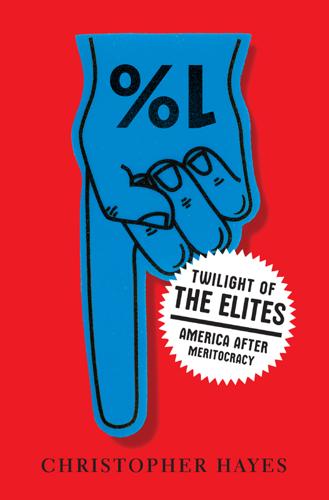
Twilight of the Elites: America After Meritocracy
by
Chris Hayes
Published 11 Jun 2012
And into the breach comes Julian Assange bearing a single, simple radical promise: total information can provide our salvation. If Julian Assange did not exist, we would have to invent him. With his white hair and lip that curls into something between a smirk and a snarl, his playful but vaguely sinister affect, Assange seems almost too cinematic to be real, as if our collective skepticism and distrust managed to conjure him into being. Founded in 2006 as a secure means by which international whistle-blowers and hackers could anonymously publish secret documents, WikiLeaks’ ethos was grounded in Assange’s worldview, one distrustful, to the point of near paranoia, of any source of authority.
…
The concentration of the media at that moment, in other words, provided activists with an Archimedean point of leverage: They could focus their energies on a relative handful of press outlets and through these outlets broadcast their message to almost every last member of the voting public. In some ways, the story told in The Race Beat bears out Julian Assange’s simple vision: The truth of the nature of segregation was exposed and the truth won. Roberts and Klibanoff quote Swedish economist Gunnar Myrdal, who prophetically observed in his 1944 book that “there is no doubt that a great majority of white people in America would be prepared to give the Negro a substantially better deal if they knew the facts.”
…
.”: See “Energy Update: 30% Say Global Warming a Very Serious Problem,” Rasmussen Reports, January 7, 2012, http://www.rasmussenreports.com/public_content/politics/current_events/environment_energy/energy_update, accessed January 20, 2012. 46 “At no other time in U.S. history were the news media more influential”: Gene Roberts and Hank Klibanoff, The Race Beat: The Press, the Civil Rights Struggle, and the Awakening of a Nation (New York: Random House, 2007), p. 7. 47 “there is no doubt”: Ibid., p. 6. 48 “We’re marching over the cliff”: See interview with Noam Chomsky in “Peak Oil and a Changing Climate,” Videonation, www.youtube.com/watch?v=UUmwy0VTnqM&feature=player_embedded, accessed February 22, 2012. 49 “State and Terrorist Conspiracies”: Available at http://cryptome.org/0002/ja-conspiracies.pdf, accessed January 19, 2012. 50 “Institutions are very important”: “Frost Over the World: Julian Assange Interview,” Aljazeera, http://www.aljazeera.com/programmes/frostovertheworld/2010/12/201012228384924314.html, accessed January 19, 2012. CHAPTER 5. WINNERS 1 “We are the 1%”: See “Board of Trade Has a Message for Occupy Chicago,” Chicagoist, http://chicagoist.com/2011/10/05/board_of_trade_has_a_message_for_oc.php, accessed January 22, 2012. 2 “I should sooner live in a society governed by the first two thousand names in the Boston telephone directory”: See William F.
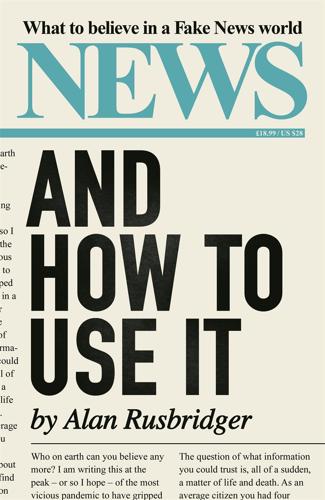
News and How to Use It: What to Believe in a Fake News World
by
Alan Rusbridger
Published 26 Nov 2020
The two most powerful gatekeepers of the day were the press barons Lords Rothermere and Beaverbrook, who stitched up a deal with their fellow proprietors that nothing would be printed (SEE: PROPRIETORS). It was left to an obscure bishop – the Bishop of Bradford – to spill the beans in an address to his clergy. The dam then broke. Our own age has thrown up characters who challenge, subvert and undermine the idea of gatekeepers. In starting Wikileaks, Julian Assange wanted to scatter information around the digital ecosphere – at times in a quite anarchic way (SEE: JOURNALIST). He would occasionally (and generally unhappily) partner with mainstream media organisations in redacting, editing and releasing a small selection of the material he possessed.
…
Although Pilger finds fewer outlets for his written journalism, he continues to make attention-grabbing films, aided now by his loyal fanbase. His last two films have been successfully crowdfunded. His friends include Roger Waters, of Pink Floyd – they have a shared interest in Palestine – and Julian Assange, whom he stands by even though he forfeited his share of the bail money when the Wikileaks founder fled. Pilger’s continuing hard-core appeal is undoubted. His films are rightly critically fêted even when reviewers bemoan a level of Lear-like ranting. In an age when authenticity is a much sought after quality his ‘revolutionary romanticism’ brings him respect.
…
New York: The Bodley Head, 2016. Thurman, Neil, Alessio Cornia and Jessica Kunert. ‘Journalists in the UK’. Reuters Institute for the Study of Journalism, 2016. <https://reutersinstitute.politics.ox.ac.uk/our-research/journalists-uk> Tiku, Nitasha. ‘Julian Assange Picks a Media Fight With the Guardian’. New York Magazine, 21 December 2010. <https://nymag.com/intelligencer/2010/12/julian_assange_picks_a_media.html> The Times. ‘The Times view on the press under coronavirus’. 4 April 2020. <https://www.thetimes.co.uk/article/the-times-view-on-the-press-under-coronavirus-7cvfk36vl> Timm, Trevor. ‘The media’s reaction to Seymour Hersh’s bin Laden scoop has been disgraceful’.
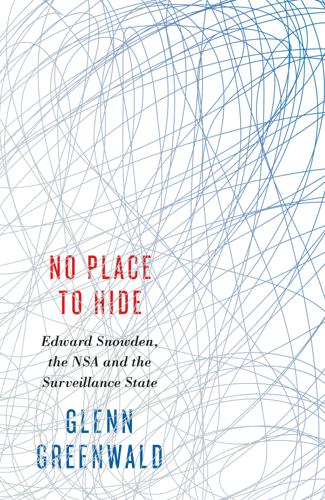
No Place to Hide: Edward Snowden, the NSA, and the U.S. Surveillance State
by
Glenn Greenwald
Published 12 May 2014
As Jaffer pointed out, the NSA has historically, at a president’s request, “used the fruits of surveillance to discredit a political opponent, journalist, or human rights activist.” It would be “naive,” he said, to think the agency couldn’t still “use its power that way.” Other documents describe the government’s focus not only on WikiLeaks and its founder, Julian Assange, but also on what the agency calls “the human network that supports WikiLeaks.” In August 2010 the Obama administration urged several allies to file criminal charges against Assange for the group’s publication of the Afghanistan war logs. The discussion around pressuring other nations to prosecute Assange appears in an NSA file that the agency calls its “Manhunting Timeline.”
…
One CNN show, Reliable Sources, debated the question while a graphic remained on the screen that read, “Should Glenn Greenwald be prosecuted?” The Washington Post’s Walter Pincus—who spied on US students abroad on behalf of the CIA in the 1960s—wrote a column strongly suggesting that Laura, Snowden, and I were all operating as part of a plot secretly masterminded by WikiLeaks founder Julian Assange. The column was filled with so many factual errors (ones I documented in an open letter to Pincus) that the Post was forced to append an unusually large, three-paragraph, two-hundred-word correction acknowledging multiple mistakes. On his own CNBC show, New York Times financial columnist Andrew Ross Sorkin said: I feel like, A, we’ve screwed this up, even letting [Snowden] get to Russia.
…
—Ellsberg understood it clearly: people do not want to be associated with someone who has been discredited or publicly humiliated. The same tactic was used to damage Julian Assange’s reputation well before he was accused of sex crimes by two women in Sweden. Notably, the attacks on Assange were carried out by the same newspapers that had worked with him and had benefited from Chelsea Manning’s disclosures, which Assange and WikiLeaks had enabled. When the New York Times published what it called “The Iraq War Logs,” thousands of classified documents detailing atrocities and other abuses during the war by the US military and its Iraqi allies, the paper featured a front-page article—as prominently as the disclosures themselves—by pro-war reporter John Burns that had no purpose other than to depict Assange as bizarre and paranoid, with little grip on reality.
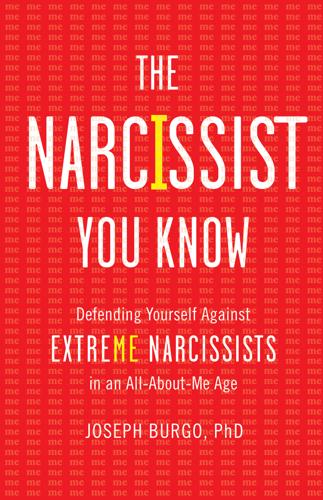
The Narcissist You Know
by
Joseph Burgo
Although their charitable foundations, LiveStrong and the Central Asia Institute, did much good, a closer look at the psychology of these men reveals the features of Extreme Narcissism and points toward core shame.9 Julian Assange, founder of WikiLeaks and tireless crusader against the secrecy of entrenched power, for a time appeared to be another hero in our feckless world. Standing up for truth, transparency, and the rights of the individual to access secret government information, Assange at first seemed to be a selfless advocate for the little man. He turned out to be a Grandiose Narcissist more interested in public acclaim and enjoying his “rock star” status than in pursuing the truth. Ghostwriter Andrew O’Hagan spent many months collaborating with Julian Assange on an autobiography and in the process came to know him well.
…
Joseph Burgo, The Hero as Narcissist: How Lance Armstrong and Greg Mortenson Conned a Willing Public (Chapel Hill: New Rise Press, 2013). 10. http://www.lrb.co.uk/v36/n05/andrew-ohagan/ghosting. 11. http://www.newyorker.com/reporting/2010/06/07/100607fa_fact_khatchadourian?currentPage=all. 12. O’Hagan, Ghosting. 13. http://www.independent.co.uk/news/uk/home-news/julian-assange-i-am-ndash-like-all-hackers-ndash-a-little-bit-autistic-2358654.html. 14. Daniel Domscheit-Berg, Inside WikiLeaks: My Time with Julian Assange at the World’s Most Dangerous Website (New York: Crown, 2011). 15. O’Hagan, Ghosting. 16. http://www.nytimes.com/2011/01/30/magazine/30Wikileaks-t.html?pagewanted=all&_r=0. 7. “I HAVE SO MUCH TO TELL YOU”: THE KNOW-IT-ALL NARCISSIST 1.
…
He enjoys the experience of thumbing his nose at authority and taking charge himself. With the founding of WikiLeaks, Assange found an even larger stage upon which to express his grandiose sense of self. He surely felt a passionate devotion to his cause—uncovering the government lies that preserve its power over the individual—but as the enterprise gained notoriety and he became a cult hero to millions, he increasingly saw himself as a sort of celebrity guru, often insisting that one person or another was in love with him, or wanted to be him. In his account of their years together at WikiLeaks, Daniel Domscheit-Berg paints a portrait of Assange as a man obsessed with his image, unwilling to share credit with collaborators, hostile to those who didn’t accord him due respect, and contemptuous of even those who supported him.14 He treated his collaborators as if they were his subjects.

Mindf*ck: Cambridge Analytica and the Plot to Break America
by
Christopher Wylie
Published 8 Oct 2019
She had grown up in a wealthy area outside of Chicago and attended Phillips Academy, an exclusive private school in Massachusetts (alma mater of both Presidents Bush). She went to the University of Edinburgh and afterward got involved in projects in Libya. Once there, she met a barrister named John Jones who represented not only Saif Qaddafi, Muammar Qaddafi’s son, but also Julian Assange of WikiLeaks. Jones was a well-respected member of the British bar. Kaiser started consulting for him and, as a result, became acquainted with Assange. She started working at Cambridge Analytica toward the end of 2014, just as I was leaving. Cambridge Analytica created a two-pronged approach to swaying the Nigerian election.
…
Petersburg. The meeting with Lukoil executives. Sam Patten’s boasts about working with the Russian government. Cambridge Analytica’s internal memos alluding to Russian intelligence. The Putin questions inexplicably inserted into our research. And even Brittany Kaiser’s apparent connection to Julian Assange and WikiLeaks. At the time, I had thought these were strange events, each one incidental to the others. But now they began to seem like something more. Trump became the GOP nominee at the Republican National Convention on July 19. If my hunch was correct, Cambridge Analytica was not only using the data tool I had worked on to manipulate American voters into supporting him, it may have been knowingly or unknowingly working with Russians to sway the election.
…
Instead, investigators compile small pieces of information—a fingerprint, a saliva sample, tire tracks, a strand of hair. In this case, Sam Patten worked for CA after working on pro-Russian campaigns in Ukraine; CA tested American attitudes toward Vladimir Putin; SCL’s work for NATO made it a Russian intel target; Brittany Kaiser used to consult for Julian Assange’s legal team; the head psychologist who was collecting Facebook data for CA was making trips to Russia to present lectures about social media profiling, one of which was titled “New Methods of Communication as an Effective Political Instrument”; CA systems were accessed by IP addresses that resolved to Russia and other CIS countries; memos referenced ex–Russian security services; and we have Alexander Nix telling Lukoil about Cambridge Analytica’s U.S. data sets and disinformation capacity.
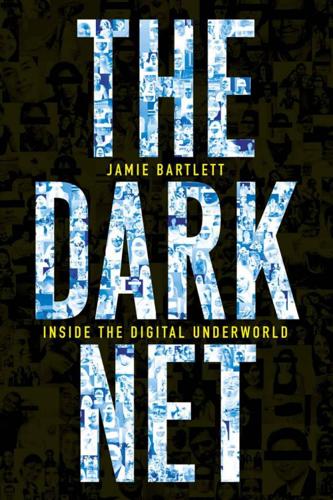
The Dark Net
by
Jamie Bartlett
Published 20 Aug 2014
Today there are hundreds of people like Amir and Miguel working on ingenious ways of keeping online secrets or preventing censorship, often in their own time, and frequently crowdfunded by users sympathetic to the cause. One is Smári McCarthy. Smári is unashamedly geeky: a computer whizz and founding member of the radical Icelandic Pirate Party. He used to work with Julian Assange in the early days of WikiLeaks. Smári isn’t really a cypherpunk – he resists any association with Ayn Rand’s philosophy – but he does believe that privacy online is a fundamental right, and worries about state surveillance of the net. He also believes that crypto is a key part of a political project. He wants you to encrypt all your emails with PGP, even (or especially) those you send to friends and family members.
…
Chapter 3 Into Galt’s Gulch p.74 ‘Millions of dollars’ worth of Bitcoin . . .’ http://www.theguardian.com/technology/2013/apr/26/bitcoins-gain-currency-in-berlin (accessed 9 January 2014). p.76 ‘One day in late 1992 . . .’ Manne, R., ‘The Cypherpunk Revolutionary: Julian Assange’ in Making Trouble: Essays Against the New Australian Complacency, Black Inc, p.204. This story is also brilliantly told in Greenberg, A., This Machine Kills Secrets: Julian Assange, the Cypherpunks, and their Fight to Empower Whistleblowers. I draw on Greenberg’s account throughout. p.76 ‘The all believed that the great political issue . . .’ Levy, S., ‘Crypto-rebels’, http://www.wired.com/wired/archive/1.02/crypto.rebels.html?
…
Chapter 3 Into Galt’s Gulch Greenberg, A., This Machine Kills Secrets: Julian Assange, the Cypherpunks, and their Fight to Empower Whistleblowers. An invaluable guide to cypherpunk technology and ideology, and the significance of the cypherpunk philosophy to whistleblowers. Levy, S., ‘Crypto-rebels’ in Wired and Crypto: How the Code Rebels Beat the Government Saving Privacy in a Digital Age. ‘Crypto-rebels’ was the first mainstream account of the cypherpunks; while Crypto remains the best account of the movement overall. Manne, R., ‘The Cypherpunk Revolutionary: Julian Assange’, in Making Trouble: Essays Against the New Australian Complacency May, T., Cyphernomicom, Tim May’s book-length essay, providing an excellent insight into the cypherpunk philosophy.
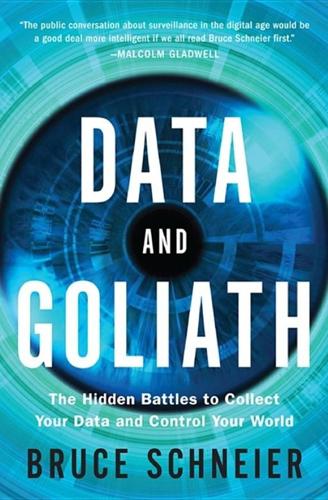
Data and Goliath: The Hidden Battles to Collect Your Data and Control Your World
by
Bruce Schneier
Published 2 Mar 2015
Another NSA database, MYSTIC: Ryan Devereaux, Glenn Greenwald, and Laura Poitras (19 May 2014), “Data pirates of the Caribbean: The NSA is recording every cell phone call in the Bahamas,” Intercept, https://firstlook.org/theintercept/article/2014/05/19/data-pirates-caribbean-nsa-recording-every-cell-phone-call-bahamas. Julian Assange (23 May 2014), “WikiLeaks statement on the mass recording of Afghan telephone calls by the NSA,” WikiLeaks, https://wikileaks.org/WikiLeaks-statement-on-the-mass.html. The NSA stores telephone metadata: David Kravets (17 Jan 2014), “Obama revamps NSA phone metadata spying program,” Wired, http://www.wired.com/2014/01/obama-nsa. If you use encryption: I do not know whether this includes all encrypted SSL sessions.
…
we know it is doing so: Ryan Devereaux, Glenn Greenwald, and Laura Poitras (19 May 2014), “Data pirates of the Caribbean: The NSA is recording every cell phone call in the Bahamas,” Intercept, https://firstlook.org/theintercept/article/2014/05/19/data-pirates-caribbean-nsa-recording-every-cell-phone-call-bahamas. Julian Assange (23 May 2014), “WikiLeaks statement on the mass recording of Afghan telephone calls by the NSA,” WikiLeaks, https://wikileaks.org/WikiLeaks-statement-on-the-mass.html. The agency’s 2013 budget: Barton Gellman and Greg Miller (29 Aug 2013), “‘Black budget’ summary details U.S. spy network’s successes, failures and objectives,” Washington Post, http://www.washingtonpost.com/world/national-security/black-budget-summary-details-us-spy-networks-successes-failures-and-objectives/2013/08/29/7e57bb78-10ab-11e3-8cdd-bcdc09410972_story.html.
…
Kids do this to each other all the time: forwarding private chats, photos, and messages, or showing each other private postings on social networking sites. One of the reasons apps that delete messages and photos after a few seconds are so popular among teenagers is that they help prevent this sort of thing. Old web pages have a way of sticking around. In 2010, WikiLeaks founder Julian Assange’s old OKCupid dating profile was dug up for public discussion. Even worse are people who use the Internet to shame and harass. Revenge porn—for the most part, ex-boyfriends posting compromising photographs of former girlfriends—is an extreme example. Mug shot extortion sites turn this sort of thing into a business.

Hiding in Plain Sight: The Invention of Donald Trump and the Erosion of America
by
Sarah Kendzior
Published 6 Apr 2020
Among the few who saw the threat clearly was computer scientist Jaron Lanier, who, in 2010, warned the public of a new danger: WikiLeaks. At the time, free speech advocates were hailing WikiLeaks, and its founder, Julian Assange, as defenders of government transparency. Their lionization of the leaker organization was largely due to frustration with the criminal impunity of the Bush administration. In February 2010, soldier Chelsea Manning exposed war crimes by sending classified documents to WikiLeaks, which WikiLeaks then published online. The emphasis on civilian victims led human rights advocates to believe that WikiLeaks would prove a formidable opponent for autocratic regimes. But after WikiLeaks dropped hacked documents from the US State Department in November, Lanier predicted the opposite—that WikiLeaks would ultimately ally with dictators and that social media networks would abet them: The WikiLeaks method punishes a nation—or any human undertaking—that falls short of absolute, total transparency, which is all human undertakings, but perversely rewards an absolute lack of transparency.
…
It is not easy, but it is possible: witness the peaceful revolutions that preceded the collapse of the USSR, the dissolution of apartheid in South Africa, and the fall of tyrants throughout history, from Hitler to Milosevic to Mubarak. But the crisis we face now is new. Its transnational nature and reliance on non–state actors who can use digital media to override borders—Julian Assange, the founder of WikiLeaks, is a prime example—means it lacks true historic precedent. Climate change is another factor that makes our current crisis distinct from any other. It is doubtful that this group of roving criminals and kleptocrats are the climate skeptics they purport to be. It is far more likely that they are, as Naomi Klein phrases it, “disaster capitalists” who see opportunity in a dying planet, and who will spare no expense in pursuit of their own preservation.16 Throughout this book, I describe how digital media has transformed state repression and citizen protest, and how globalization allowed organized crime to proliferate on an unparalleled scale.
…
I was also not surprised when, over the course of the next few years, officials gradually revealed that Russian hackers had targeted election systems in 2016 in all fifty states.23 The most damning evidence of this was brought forward by NSA whistleblower Reality Winner, a twenty-five-year-old Air Force veteran who anonymously sent proof of the attacks to the website The Intercept. The Intercept then published the leaked information in a way that made Winner easy for officials to identify and then arrest.24 The Intercept is home to Glenn Greenwald, the journalist famous for aiding Kremlin abettor Julian Assange and Edward Snowden, who gained asylum in Russia after fleeing the United States with classified documents. In 2018, Winner was jailed under the Espionage Act and was given the longest sentence in US history for her particular offense, totaling sixty-three months.25 She is banned from speaking to the press.
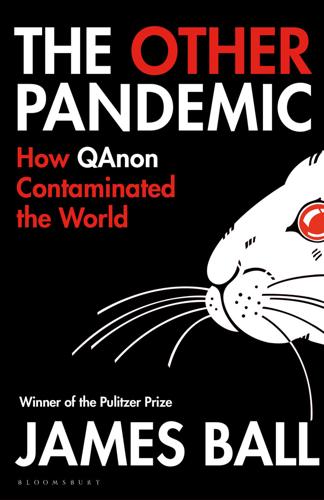
Other Pandemic: How QAnon Contaminated the World
by
James Ball
Published 19 Jul 2023
The whistleblowing website WikiLeaks was perfect for the task. First, it had a mission of disclosing confidential documents. Second, its founder, Julian Assange, bore a personal grudge against Clinton, who had been in charge of the US response to the State Department cables the site had released in 2010. Finally, though it’s not clear whether the Russian hackers were aware of this, Assange had an interest in Trump winning the election, believing he would be much likelier to drop any possible prosecution or extradition bid over WikiLeaks’ activities. Later in the race, it emerged that WikiLeaks had been communicating with Donald Trump Jr over its handling of the leaks, even proposing that Trump should suggest Assange for an ambassadorial post.38 No one knows if Assange was aware that the documents he was receiving were the result of Russian state hacking (he has denied that they were), but he was certainly not about to spend too much time asking inconvenient questions of his anonymous source.
…
With hindsight, helping those who stayed on the board, which is to say those for whom life never really got started, and preventing the effect they’d have on the next generation of teens arriving, could have staved off many disasters. In practice, I never really left 4chan for very long. My early jobs as a journalist tended to lean hard on my experience with tech and internet culture – especially hacker culture and Anonymous – not least because for a time I worked for WikiLeaks and lived with its enigmatic founder Julian Assange. As a result, not long after leaving 4chan as a regular user, I was keeping an eye on it as a journalist, and saw it change from something chaotic but fundamentally innocent into something far darker. From mass hoaxing to mass action Even in its early incarnation, 4chan had its dark side.
…
Luke Harding, Julian Borger and Dan Sabbagh, ‘Kremlin papers appear to show Putin’s plot to put Trump in White House’, www.theguardian.com, 15 July 2021. 37. Katelyn Polantz and Stephen Collinson, ‘12 Russians indicted in Mueller investigation’, https://edition.cnn.com, 14 July 2018. 38. Michael McGowan, ‘Help make Julian Assange Australia’s US ambassador, WikiLeaks urged Trump Jr’, www.theguardian.com, 14 November 2017. 39. Catherine Herridge and Adam Shaw, ‘State Department report on Clinton emails finds hundreds of violations, dozens of individuals at fault’, www.foxnews.com, 18 October 2019. 40. Weiner had been sending lewd messages to numerous women, including minors: Joanna Walters, ‘Anthony Weiner sent sexually explicit messages to 15-year-old, report says’, www.theguardian.com, 22 September 2016. 41.
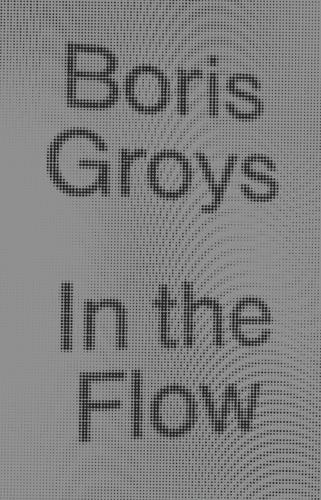
In the Flow
by
Boris Groys
Published 16 Feb 2016
Kojève understood the path of universal service and administration as a secure one. WikiLeaks and Assange himself have proved that the path of universal service can also involve taking a substantial risk. They became dissidents of universal service, and so invented a new form of risk. Or rather, they thematized this risk and made it explicit by committing themselves to universal service and administration as a form of conspiracy from the very beginning. It is a true historical innovation. And it is to be expected that this innovation will have interesting consequences. ___________________________ 1‘In Conversation with Julian Assange Part I’, WikiLeaks.org, 23 May 2011. 2Ibid.
…
In this sense, the new universality – the universality of Internet clerks – creates a universal image after all. But this image is not a universal idea, project or commitment, but rather a universal event – the fact that the sign flow took this and not that form at a particular moment in time. Julian Assange described eloquently this new, postmodern, posthistorical universalist vision in a recent interview with Hans-Ulrich Obrist: There’s a universe of information, and we can imagine a sort of Platonic ideal in which we have an infinite horizon of information. It’s similar to the concept of the Tower of Babel.
…
Thus, the phenomenon of WikiLeaks signals a reintroduction of universalism into politics. This fact alone makes the emergence of WikiLeaks highly significant. We know from history that only universalist projects can lead to real political change. But WikiLeaks signals not only a return of universalism but also the deep transformation that the notion of universalism has undergone during recent decades. WikiLeaks is not a political party. It does not offer any universalist vision of society, political programme or ideology designed to ‘spiritually’ or politically unify mankind. Rather, WikiLeaks offers a sum of technical means that would allow universal access to any specific, particular content.
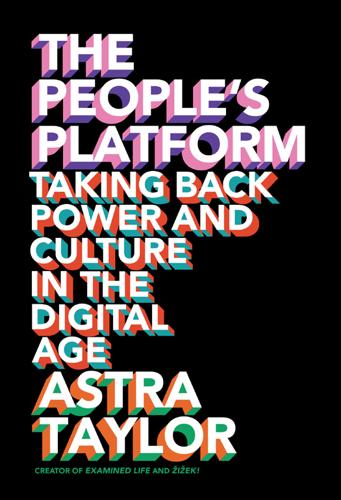
The People's Platform: Taking Back Power and Culture in the Digital Age
by
Astra Taylor
Published 4 Mar 2014
Deep investigations into questions about what had caused the blowout, the devastation of the local ecosystem and economy, the health risks associated with fuel and dispersants, and the work needed to be done monitoring the four thousand oil platforms and twenty-seven thousand old oil wells, many of them leaking, were well beyond the scope of any individual. Even Julian Assange had been unable to act independently, joining up with major news organizations like the New York Times and the Guardian to release the thousands of cables. WikiLeaks had been organized initially around the premise that the public would sift through and interpret raw data, collaboratively writing necessary analysis, making sense of the issues and evidence without professional censors and meddling middlemen.
…
id=CPT&year=2011. 15. Glenn Greenwald, “Surveillance State Democracy,” Salon, May 6, 2012, http://www.salon.com/2012/05/06/surveillance_state_democracy/singleton/. Also note a similar comment by Julian Assange, who said Google joining the SOPA fight “scared the hell out of me,” because the company was beginning to see itself as a “ ‘political player’ with enormous power over Congress.” Quoted in Julian Assange, Cypher-punks: Freedom and the Future of the Internet (New York: OR Books, 2012), 83. 16. David Segal, “CISPA Is the New SOPA: Help Kill It This Week,” Huffington Post, April 16, 2012. Segal also discusses this issue at length in the book he coedited with David Moon and Patrick Ruffini, Hacking Politics: How Geeks, Progressives, the Tea Party, Gamers, Anarchists and Suits Teamed Up to Defeat SOPA and Save the Internet (New York: OR Books, 2013). 17.
…
.… But once you factor in money spent on schooling, the earnings I’ve received outside of aggregation-oriented writing positions is still in the bloodiest shade of red imaginable. It’s unlikely the numbers will ever even out.”43 4 UNEQUAL UPTAKE Not long after WikiLeaks released its enormous cache of classified diplomatic cables, making the private observations of jaded attachés public for all to see, I spent a Saturday afternoon at a quickly assembled conference trying to make sense of the implications. The conversation hinged on the tangled theme of media, technology, and politics. Does WikiLeaks represent a new kind of transnational investigative journalism? Has the Web made us all reporters? Is transparency an unambiguous good?
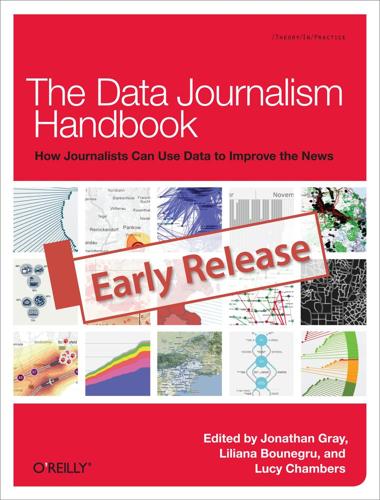
The Data Journalism Handbook
by
Jonathan Gray
,
Lucy Chambers
and
Liliana Bounegru
Published 9 May 2012
Going further back, the principle that sits at the foundation of the hyperlinked structure of the Web is the citation principle used in academic works. Quoting and sharing the source materials and the data behind the story is one of the basic ways in which data journalism can improve journalism, what WikiLeaks founder Julian Assange calls “scientific journalism.” By enabling anyone to drill down into data sources and find information that is relevant to them, as well as to to verify assertions and challenge commonly received assumptions, data journalism effectively represents the mass democratization of resources, tools, techniques, and methodologies that were previously used by specialists; whether investigative reporters, social scientists, statisticians, analysts, or other experts.
…
What we wanted to do was enable our team of specialist reporters to get great human stories from the information—and we wanted to analyze it to get the big picture, to show how the war really is going. It was central to what we would do quite early on that we would not publish the full database. WikiLeaks was already going to do that and we wanted to make sure that we didn’t reveal the names of informants or unnecessarily endanger NATO troops. At the same time, we needed to make the data easier to use for our team of investigative reporters led by David Leigh and Nick Davies (who had negotiated releasing the data with Julian Assange). We also wanted to make it simpler to access key information, out there in the real world, as clear and open as we could make it.
…
But the game-changer for data journalism happened in spring 2010, beginning with one spreadsheet: 92,201 rows of data, each one containing a detailed breakdown of a military event in Afghanistan. This was the WikiLeaks war logs. Part one, that is. There were to be two more episodes to follow: Iraq and the cables. The official term for the first two parts was SIGACTS: the US military Significant Actions Database. News organizations are all about geography—and proximity to the news desk. If you’re close, it’s easy to suggest stories and become part of the process; conversely, out of sight is literally out of mind. Before WikiLeaks, we were placed on a different floor, with graphics. Since WikiLeaks, we have sat on the same floor, next to the newsdesk.
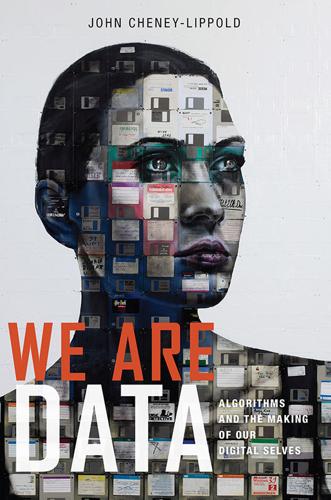
We Are Data: Algorithms and the Making of Our Digital Selves
by
John Cheney-Lippold
Published 1 May 2017
,” Wired, June 23, 2008, http://archive.wired.com. 92. Kai Eriksson, “Foucault, Deleuze, and the Ontology of Networks,” European Legacy 10, no. 6 (2005): 599–600; Foucault, History of Sexuality, Volume 1, 92–93. Chapter 3. Subjectivity 1. Babycastles, “JULIAN ASSANGE—When Google Met WikiLeaks Book Release Party,” Facebook, 2014, www.facebook.com. 2. James Camp, “Julian Assange: ‘When You Post to Facebook, You’re Being a Rat,’” Guardian, September 25, 2014, www.theguardian.com. 3. Google, “Google’s Mission Is to Organize the World’s Information and Make It Universally Accessible and Useful,” 2015, www.google.com. 4.
…
Stupid sound and screaming with one voice we leave out everything —Black Eyes, “Letter to Raoul Peck” The RSVP link for Julian Assange’s 2014 book-launch party in New York City was posted on the Facebook page of Manhattan art gallery Babycastles. Although it was met with skeptical comments such as “Is this supposed to be white irony Or this Actually happening?” and “Is this real?,” the guest list filled up weeks before the event.1 Assange, famed for founding WikiLeaks and defamed by sexual assault charges in Sweden, was in de facto detention in the Ecuadorian embassy in London. But, thanks to broadband video chat, his face was temporarily freed and beamed onto the gallery’s walls for a conversation with those guests who believed enough in the event to RSVP.2 During the party, a discussion sparked by Assange’s book, When Google Met WikiLeaks, highlighted the striking similarity between the mission statements of Google and the U.S.’s National Security Agency.
…
Wood, “Gender, Race, and Authenticity: Celebrity Women Tweeting for the Gaze,” in Feminist Surveillance Studies, ed. Rachel E. Dubrofsky and Shoshana Amielle Magnet (Durham, NC: Duke University Press, 2015). 10. Joseph Turow, The Daily You: How the Advertising Industry Is Defining Your Identity and Your World (New Haven, CT: Yale University Press, 2012); WikiLeaks, The Spy Files, 2011–2014, https://wikileaks.org. 11. Lisa Gitelman and Virginia Jackson, introduction to “Raw Data” Is an Oxymoron, ed. Lisa Gitelman (Cambridge, MA: MIT Press, 2013), 3. Introduction 1. Marshall McLuhan, Understanding Media: The Extensions of Man (Cambridge, MA: MIT Press, 1994), 22. 2.
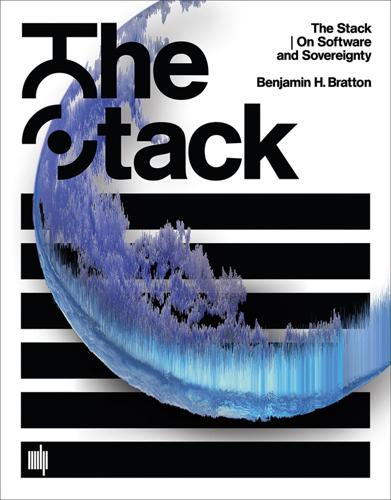
The Stack: On Software and Sovereignty
by
Benjamin H. Bratton
Published 19 Feb 2016
(The next five sentences then repeat the oldest and most conventional calls for general well-being through measured oversight.) By comparison Assange's When Google Met Wikileaks is a fascinating, self-contradictory, hyperactive tangle of ideas, accusations, and bizarre rationalizations. Within critical Google discourse it is in a league of its own, for both better or worse. Julian Assange, When Google Met Wikileaks (New York: OR Books, 2014). 64. See Julian Assange, “The Banality of ‘Don't Be Evil,’” New York Times, June 1, 2013, http://www.nytimes.com/2013/06/02/opinion/sunday/the-banality-of-googles-dont-be-evil.html It was later republished in Assange, When WikiLeaks Met Google. 65. As recently occurred in Turkey, when the AK Party tried to shut down Twitter, and the government also tried to shut off access to Google DNS as well.
…
See Danielle Citron, “Bright Ideas: Anita Allen's Unpopular Privacy,” Concurring Opinions, January 13, 2012, http://www.concurringopinions.com/archives/2012/01/bright-ideas-anita-allens-unpopular-privacy.html. 65. Jacob Applebaum, Andy Mueller-Maguhn, Jeremie Zimmermann, and Julian Assange, “Episode 8, Part 1,” WikiLeaks World Tomorrow, April 2012, https://worldtomorrow.wikileaks.org/episode-8.html.If you look at it from a market perspective, I'm convinced that there is a market in privacy that has been mostly left unexplored, so maybe there will be an economic drive for companies to develop tools that will give users the in-dividual ability to control their data and communication.
…
See, for example, Nikolai von Kreitor, “The Concept of Grossraum in Carl Schmitt's Jurisprudence: The Historical Necessity of a New Russian Grossraum,” August 7, 1970, http://www.amerika.org/globalism/the-concept-of-grossraum-in-carl-schmitts-jurisprudence-nikolai-von-kreitor/. This is the language of today's Russian Eurasianists, France's Nouvelle Droite, Japanese imperial revisionists, as well, it must be said, of some voices on the European Left. 34. For a melodramatic but not uninformed account, see Julian Assange, When WikiLeaks Met Google (N.p.: OR Books, 2014). 35. See, for example, the European Schengen Cloud, or Brazil's proposed “independent Internet”: http://www.itworld.com/article/2705173/networking-hardware/bric-nations-plan-their-own–independent-internet.html. 36. Chris C. Demchak and Peter J. Dombrowski, “Rise of a Cybered Westphalian Age: The Coming Age,” Strategic Studies Quarterly 5, no. 1 (2011): 31–62. 37.
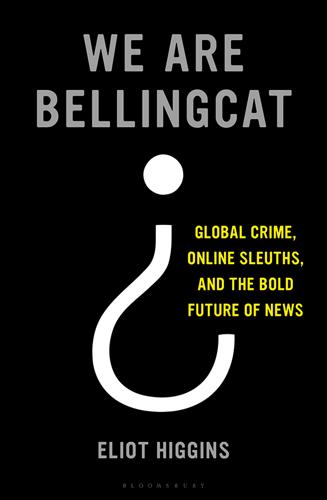
We Are Bellingcat: Global Crime, Online Sleuths, and the Bold Future of News
by
Eliot Higgins
Published 2 Mar 2021
This was termed ‘digilantism’, a reckless version of open-source investigation where scaremongering masqueraded as122 detective work. Others wondered if open-source investigation was what WikiLeaks did. Absolutely not. WikiLeaks was about leaking classified information, while open-source investigators analyse what sits in public. The secrecy of WikiLeaks placed vast power into its hands, which became problematic when Julian Assange exhibited strong political preferences, timing drops to harm those he despised, notably Hillary Clinton during the 2016 presidential campaign.123 Another problem with WikiLeaks is that it is hard to verify huge data dumps of shadowy origin. Are the floods of diplomatic cables legitimate?
…
url=http://www.foreignpolicy.com/articles/2011/11/28/the_fp_top_100_global_thinkers?page=0,23 122 academic.oup.com/bjc/article/57/2/341/2623876 123 Wikileaks had their Twitter group chat logs leaked by a former member in 2018. In those chat logs, the Wikileaks account – perhaps even run by Julian Assange himself – speculated that Britain’s Ministry of Defence funded Bellingcat, a totally false claim. emma.best/2018/07/29/11000-messages-from-private-wikileaks-chat-released/ 2 BECOMING BELLINGCAT 1 en.wikipedia.org/wiki/List_of_Ukrainian_aircraft_losses_during_the_Ukrainian_crisis 2 www.rferl.org/a/ukraine-separatist-leader-boasts-downing-plane/25460930.html 3 youtu.be/MiI9s-zWLs4 4 republic.ru/posts/l/1129893 5 rusvesna.su/news/1405676334 6 www.pressgazette.co.uk/russia-today-london-correspondent-resigns-protest-disrespect-facts-over-malaysian-plane-crash www.buzzfeed.com/jimwaterson/russia-today-correspondent-resigns-over-coverage-of-ukranian?
…
But in June 2016, months before the presidential election pitting Hillary Clinton against Donald Trump, news reports emerged that a Russian military intelligence cyber-espionage unit, nicknamed Fancy Bear by security experts, had sought to derail Clinton’s election bid. Wikileaks took stolen emails from ‘Guccifer 2.0’ – purportedly a Romanian hacker but actually Russians1 – and counselled this Kremlin front operation on how to have the greatest impact on American voters, according to a US indictment.2 In July 2016, WikiLeaks released tens of thousands of emails before the Democratic National Convention, stirring dissent in the party and undermining Clinton. Cybersecurity companies such as ThreatConnect and CrowdStrike were building a picture of what was going on, explaining how this cyber-espionage unit used fake Google password alerts.3 The poor syntax of a spoof email caught my attention – we had received messages like that, going back more than a year.
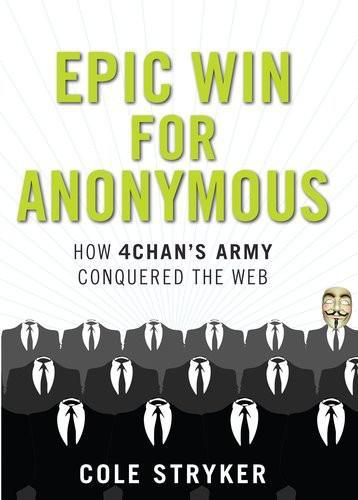
Epic Win for Anonymous: How 4chan's Army Conquered the Web
by
Cole Stryker
Published 14 Jun 2011
It’s simply that US intelligence is able to bring to bear legal and political pressure on them. And it’s costly for them to hand out records one by one, so they have automated the process. Everyone should understand that when they add their friends to Facebook, they are doing free work for United States intelligence agencies in building this database for them. So declared WikiLeaks founder Julian Assange in May 2011 during an interview with Russian news site RT. A spokesman for Facebook responded to CNET: We don’t respond to pressure, we respond to compulsory legal process . . . There has never been a time we have been pressured to turn over data [and] we fight every time we believe the legal process is insufficient.
…
Anonymouse thinks that the press is asking the wrong questions, claiming that they tend to focus on the illegal hacks rather than the illegal acts that the hackers are able to expose. He says that most of the media coverage belies a “sick” acceptance of HBGary’s activities, using government power to spy on its citizens. He draws parallels to the freedom-fighting actions of Anonymous and those of Bradley Manning and Julian Assange, who have also experienced a fair amount of negative press. How about prosecuting the soldiers named in one of the Afghan war diaries as having shot a bunch of unarmed teenagers? The number one response I’ve noticed when I argue about this is “Well this is the real world, corruption happens, deal with it.”
…
Then Anonymous went after the RIAA because it sought legal action against file sharing site Limewire. In December 2010, Amazon, Paypal, Bank of America, PostFinance, MasterCard, and Visa decided to stop processing donations for the global news leak network WikiLeaks, which had recently caused global controversy by posting sensitive internal documents. These payment-processing sites had bowed to political pressure, refusing to work with WikiLeaks. In retaliation, Anonymous launched DDoS attacks against several of these companies, successfully bringing down the websites for MasterCard and Visa. A 16-year-old boy from the Netherlands was arrested in relation to the attack, and the FBI is probably still investigating.
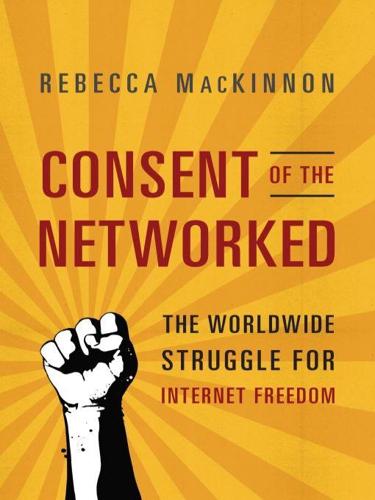
Consent of the Networked: The Worldwide Struggle for Internet Freedom
by
Rebecca MacKinnon
Published 31 Jan 2012
But without clear transparency and accountability about how, when, and under what specific circumstances personal information is being collected and used, citizens have good reason to worry about the growth of the state’s “panoptic” power. WIKILEAKS AND THE FATE OF CONTROVERSIAL SPEECH WikiLeaks and several news organizations that the whistle-blowing organization had chosen as partners published the first batch of classified US diplomatic cables, leaked by disgruntled US Army Private Bradley Manning, in November 2010. Vice President Joseph Biden declared WikiLeaks’ leader, Julian Assange, to be a “digital terrorist.” Senator Joe Lieberman declared that “WikiLeaks’ illegal, outrageous, and reckless acts have compromised our national security and put lives at risk around the world.” Meanwhile, the WikiLeaks “Cablegate” website, dedicated to showcasing the leaked diplomatic cables, came under distributed denial of service attacks of unknown origin.
…
Regardless of whether one views the intentions and consequences of WikiLeaks’ release of diplomatic cables favorably, the US government’s response to WikiLeaks highlights a troubling murkiness, opacity, and lack of public accountability in the power relationships between government and Internet-related companies. In a speech in February 2011, Secretary of State Hillary Clinton sought to distance the State Department—and the US government more generally—from individual politicians and media commentators who called for Julian Assange’s head without any apparent interest in due process. She also made the point that the US government did not pressure private companies such as Amazon and PayPal to sever their ties with WikiLeaks.
…
Two days after Assange moved the Cablegate site to Amazon, Amazon headquarters received a call of complaint from Lieberman’s office. Shortly thereafter, Amazon booted WikiLeaks. The senator responded with a statement: “I wish that Amazon had taken this action earlier based on WikiLeaks’ previous publication of classified material. The company’s decision to cut off WikiLeaks now is the right decision and should set the standard for other companies WikiLeaks is using to distribute its illegally seized material.” Amazon later insisted that it had acted independently of Lieberman’s phone call. At any rate, legally Amazon was off the hook.
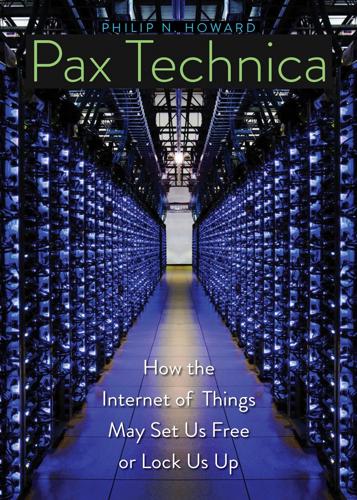
Pax Technica: How the Internet of Things May Set Us Free or Lock Us Up
by
Philip N. Howard
Published 27 Apr 2015
When overwhelmed, governments have begun to address Anonymous as an equal in negotiation. The government of the Philippines has tried to engage with the group by making concessions and involving it in national cyberstrategy.18 Internet pundits have added to the chaos of international politics. Julian Assange’s online WikiLeaks project exposed diplomatic correspondence and upset many delicately balanced relationships among states and between power brokers. Both Assange and Edward Snowden decided that democracies were the least likely to provide them with just treatment as whistle blowers. The Russians gave Assange an online talk show and have sheltered Snowden.
…
Srđa Popović, the Serb who in 2000 mobilized the resistance to end Slobodan Milošević’s rule, went on in 2003 to train protesters for Georgia’s “Rose Revolution,” Ukraine’s 2005 “Orange Revolution,” and the Maldives’ revolution in 2007, before training activists in Egypt’s April 6 Movement in 2008. Popović’s book Nonviolent Struggle: 50 Crucial Points has been downloaded thousands of times.19 For the presidents of countries and companies, people like Aaron Swartz, Chelsea Manning, and Julian Assange are threats to national security and the corporate bottom line. But in many networks they are heroes. Every few years, hacktivists and whistle blowers turn national security and diplomacy upside down by putting large amounts of previously secret content online. Conservative security analysts and industry pundits often react hostilely to people who play with information technologies and exploit consumer electronics beyond designers’ intent.
…
Symantec, Norton Report 2013: Cost per Cybercrime Victim Up 50 Percent (Mountain View, CA: Symantec, October 2013), accessed September 30, 2014, http://www.symantec.com/about/news/release/article.jsp?prid=20131001_01. 28. Luke Harding, “WikiLeaks Cables: Russian Government ‘Using Mafia for Its Dirty Work,’” Guardian, December 1, 2010, accessed September 30, 2014, http://www.theguardian.com/world/2010/dec/01/wikileaks-cable-spain-russian-mafia. 29. Homi Kharas and Andrew Rogerson, Horizon 2025: Creative Destruction in the Aid Industry (London: Overseas Development Institute, July 2012), accessed September 30, 2014, http://www.aidmonitor.org.np/reports/horizon%202012.pdf. 30.

There's a War Going on but No One Can See It
by
Huib Modderkolk
Published 1 Sep 2021
Though not a member himself, he hung out on their chat channels. These were exciting times in the hacking world. Members of Anonymous had been targeting a succession of organisations and declaring their solidarity with WikiLeaks, which was publishing hundreds of thousands of US diplomatic communications. When Julian Assange’s whistleblower website was blocked by the payment services PayPal, Mastercard and VISA, cutting off lots of donations to WikiLeaks, Anonymous struck back with a DDoS attack that took out the PayPal and Mastercard websites and inflicted an estimated $5.5 million in losses. One member would ultimately wind up doing eighteen months in prison in England.
…
The latter was the domain of hardcore hackers, of men and women in black T-shirts with sticker-covered MacBooks. As I stood taking it all in, a four-propeller quadcopter, aka a delivery drone, zoomed by on its way to drop off a pizza. I listened to speeches. I watched a video interview with WikiLeaks founder Julian Assange, in which he talked about a fast-proliferating system of surveillance by corporations and governments trying to control the internet. Assange called the system ‘the national security state’, talking in terms of ‘us’ and ‘them’. ‘It’s hurtling towards a dystopia,’ he predicted, and ‘it is dragging many of us along with it.’
…
Another said, ‘I’d definitely check the cabinets where the cables are hooked up. That’s where you want to be.’ One person informed me that besides being the perfect place from which to eavesdrop, the AMS-IX had also switched early on to hardware made by Glimmerglass, a US-based company. Could that be a lead? While browsing the Spy Files (leaked espionage documents) on WikiLeaks, I ran across a folder about Glimmerglass. It said their equipment was also popular with US intelligence. Bingo! I thought. Until someone else pointed out that having Glimmerglass hardware isn’t significant in itself: what matters is how it’s installed and who has access to it. Which took me right back to square one.
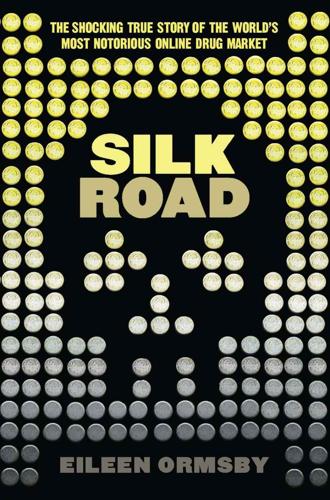
Silk Road
by
Eileen Ormsby
Published 1 Nov 2014
Although Nakamoto’s initial posts had described his vision for an absence of regulation, his later posts remained technical and academic until WikiLeaks began to canvass the viability of accepting bitcoin. Nakamoto was adamant that he did not want his creation associated with the whistleblowing site. ‘No, don’t “bring it on”,’ he wrote. ‘I make this appeal to WikiLeaks not to try to use Bitcoin. Bitcoin is a small beta community in its infancy. You would not stand to get more than pocket change, and the heat you would bring would likely destroy us at this stage.’ He seemed more focused on the potential effects on his invention rather than any judgments about Julian Assange and his website. Nakamoto’s only other political statement was unearthed by cryptographers and was embedded in the source code of bitcoin itself, a little Easter egg for determined crypto-sleuths.
…
Articles painting him as a hero and visionary were no longer confined to a few fringe online publications. Forbes started to report regularly on Silk Road and its owner in positive terms. The magazine published a collection of Roberts’ quotes, describing him as a ‘principled libertarian and cypherpunk in the same vein as WikiLeaks founder Julian Assange and bitcoin creator Satoshi Nakamoto’. Although many would be appalled at the notion of a drug dealer as a hero, those who were against prohibition believed Silk Road offered a better, safer way for users to buy the drugs they would acquire anyway. As one member put it, ‘I came for the drugs and stayed for the revolution.’
…
‘Tor’s original design was to give users privacy and anonymity online and that’s still the core of what we do,’ Lewman said. ‘The vast majority of Tor usage is by normal people who are just looking to not give out all their information; who they are, where they are and every website they visit. Of course jerks and criminals do use Tor but frankly they have far better options.’ WikiLeaks is one example of an organisation that took advantage of darknets to maintain the integrity of its submissions, recommending that those who required anonymity when whistleblowing use Tor. Even if a server were to be confiscated, there would be little risk to users of the site, because there would be no IP trail and no typical user traffic trails that led out of the server.
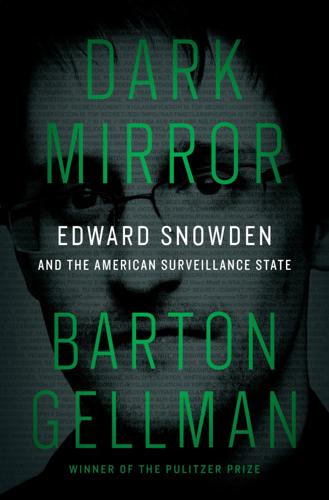
Dark Mirror: Edward Snowden and the Surveillance State
by
Barton Gellman
Published 20 May 2020
He was referring, as he had done with me before, to a “dead man’s switch,” a device or arrangement according to which the most sensitive files in his possession would somehow come to light automatically in circumstances he did not specify. Julian Assange of WikiLeaks had made an explicit arrangement like this in 2011, distributing online an encrypted “insurance file” and threatening to release the decryption key if the U.S. government did anything to harm him or shut down WikiLeaks. Snowden never made this kind of threat himself, but Glenn Greenwald did so in a published interview. “Snowden has enough information to cause more harm to the U.S. government in a single minute than any other person has ever had,” Greenwald told the Argentinian daily La Nación.
…
The government had never tried to prosecute a journalist or publisher under the Espionage Act of 1917, which is so broadly drafted that it could be read as banning any news story about “national defense information,” whether classified or not. No one knew for certain how such a prosecution would fare under First Amendment analysis. In mid-2019, the Trump administration decided to test the question. In an indictment unsealed against Julian Assange, the founder of WikiLeaks, the Justice Department charged him with sixteen counts of espionage, three of them based entirely on his communication of secrets “to all the world by publishing them on the Internet.” Whether you wish to call Assange a “journalist” or not, the distinction is not important legally.
…
Fourth Amendment does not apply: See “Notes: The Border Search Muddle,” Harvard Law Review 132, no. 8 (June 1, 2019): 2278–92, https://harvardlawreview.org/2019/06/the-border-search-muddle/. “The damage is incalculable”: George Cotter, email to author, December 1, 2016. Advocates for radical transparency: Julian Assange of WikiLeaks and John Young of the leak website Cryptome often criticized me, along with Glenn Greenwald and Laura Poitras, for holding back any documents at all. See, for example, “Snowden Long Drip Pie Charts,” March 14, 2014, at https://perma.cc/FZ9M-ZXPF. trafficking in stolen goods: Publishing information obtained by theft is not trafficking in stolen goods in part because the Supreme Court interprets the National Stolen Property Act, 18 U.S.C. §§ 2314 and 2315, as limited to tangible “goods, wares, or merchandise.”
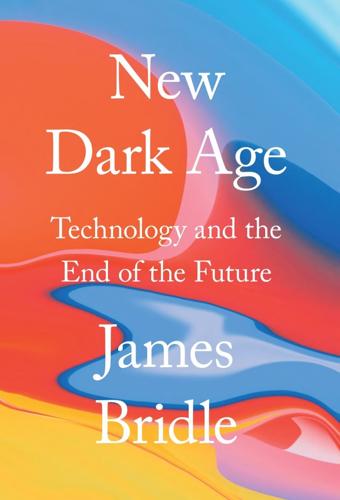
New Dark Age: Technology and the End of the Future
by
James Bridle
Published 18 Jun 2018
Under this analysis, the National Security Agency and Wikileaks share the same worldview, with differing ends. Both essentially believe that there is some secret at the heart of the world that, if only it can be known, will make everything better. Wikileaks wants transparency for all; the NSA only wants transparency for some – its enemies; but both function according to the same philosophy. Wikileaks’ original intent was not to become a kind of mirror to the NSA, but to break the whole machine. In 2006, in the very early days of Wikileaks, Julian Assange wrote an analysis of conspiratorial systems of government and how they can be attacked, entitled ‘Conspiracy as Governance’.
…
, January 13, 2014, newamerica.org. 35.Jennifer King, Deirdre Mulligan, and Stephen Rafael, ‘CITRIS Report: The San Francisco Community Safety Program’, UC Berkeley, December 17, 2008, available at wired.com. 36.K. Pease, ‘A Review Of Street Lighting Evaluations: Crime Reduction Effects’, Crime Prevention Studies 10 (1999). 37.Stephen Atkins, ‘The Influence Of Street Lighting On Crime And Fear Of Crime’, Crime Prevention Unit Paper 28, UK Home Office, 1991, available at popcenter.org. 38.Julian Assange, ‘State and Terrorist Conspiracies’, Cryptome, November 10, 2006, cryptome.org. 39.Caroline Elkins, Imperial Reckoning: The Untold Story of Britain’s Gulag in Kenya, New York: Henry Holt and Company, 2005. 40.‘Owners Watched Fort McMurray Home Burn to Ground Over iPhone’, YouTube video, username: Storyful News, May 6, 2016. 8Conspiracy 1.Joseph Heller, Catch-22, New York: Simon & Schuster, 1961. 2.See James Bridle, ‘Planespotting’, blog post, December 18, 2013, booktwo.org, and other reports by the author. 3.For a good overview of the trial, see: Kevin Hall, The ABC Trial (2006), originally published at ukcoldwar.simplenet.com, archived at archive.li/1xfT4. 4.Richard Aldrich, GCHQ: The Uncensored Story of Britain’s Most Secret Intelligence Agency, New York: HarperPress, 2010. 5.Duncan Campbell, ‘GCHQ’ (book review), New Statesman, June 28, 2010, newstatesman.com. 6.Chris Blackhurst, ‘Police robbed of millions in plane fraud’, Independent, May 19, 1995, independent.co.uk. 7.US Air Force, Weather as a Force Multiplier: Owning the Weather in 2025, 1996, csat.au.af.mil. 8.
…
For Assange, all authoritarian systems are conspiracies because their power depends on keeping secrets from their peoples. Leaks undermine their power, not because of what is leaked, but because increased internal fear and paranoia degrades the system’s ability to conspire. What is damaging is the act of leaking itself, not the contents of any specific leak.38 As Wikileaks entered the public eye and Assange himself became an increasingly powerful and arrogant figure, the organisation became involved in a series of feuds with the intelligence agencies – and ultimately a tool for states to attack one another – and this realisation was lost. What replaced it was a mistaken belief in the power of the ‘smoking gun’: the single source or piece of evidence that would bring down authority.
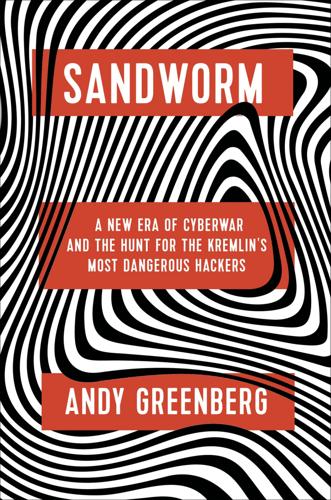
Sandworm: A New Era of Cyberwar and the Hunt for the Kremlin's Most Dangerous Hackers
by
Andy Greenberg
Published 5 Nov 2019
The hackers sent the news site Gawker the Trump opposition research document, and it published a story on the file that received half a million clicks, robbing the Democrats of the ability to time the release of their Trump dirt. Soon, as promised, WikiLeaks began to publish a steady trickle of the hackers’ stolen data, too; after all, Julian Assange’s secret-spilling group had never been very particular about whether its “leaks” came from whistle-blowers or hackers. The documents, now with WikiLeaks’ stamp of credibility, began to be picked up by news outlets including The New York Times, The Washington Post, The Guardian, Politico, BuzzFeed, and The Intercept. The revelations were very real: It turned out the DNC had secretly favored the candidate Hillary Clinton over her opponent Bernie Sanders as the presumptive Democratic nominee for president, despite the committee’s purported role as a neutral arbiter for the party.
…
The original Guccifer had been a Romanian amateur hacker named Marcel Lehel Lazăr who had broken into the email accounts of high-profile figures like Colin Powell, the Rockefeller family, and the sister of former president George W. Bush. Guccifer 2.0 took on the persona of a cocky eastern European cyberpunk who idolized figures like the original Guccifer, Edward Snowden, and Julian Assange. “Personally I think that I’m among the best hackers in the world,” he would write in a FAQ. When CrowdStrike maintained that Guccifer 2.0 was a thin disguise meant to obscure the Russian state hackers behind the DNC intrusion, Guccifer 2.0 shot back with vague denials. “They just fucked up!
…
The site, of course: Raphael Satter, “Inside Story: How Russia Hacked the Democrats’ Email,” Associated Press, Nov. 4, 2017, www.apnews.com. Another seemed to call for “open borders”: “HRC Paid Speeches,” email via WikiLeaks, sent Jan. 25, 2016, wikileaks.org, archived at bit.ly/2RRtcNA. The security firm Secureworks found the link: “Threat Group 4127 Targets Hillary Clinton Presidential Campaign,” June 16, 2016, www.secureworks.com, archived at bit.ly/2RecMtu. “I love WikiLeaks!”: Mark Hensch, “Trump: ‘I Love WikiLeaks,’ ” Hill, Oct. 10, 2016, thehill.com. But for the most part, Trump: Andy Greenberg, “A Timeline of Trump’s Strange, Contradictory Statements on Russian Hacking,” Wired, Jan. 4, 2017, www.wired.com.
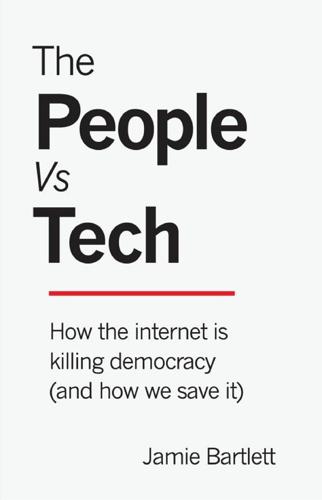
The People vs Tech: How the Internet Is Killing Democracy (And How We Save It)
by
Jamie Bartlett
Published 4 Apr 2018
It allows people to communicate, browse and transact beyond the reach of government, making it significantly harder for the state to control information, and subsequently, its citizens. This is because of a simple-but-magic rule: due to some arcane properties of prime numbers, it takes far more computing power to decrypt something than to encrypt it.3 It’s like an egg: a lot easier to crack than to put back in its shell. Julian Assange, who was an active contributor to Timothy May’s email list, puts it this way: ‘the universe believes in encryption’. Crypto-anarchy in the UK Over the course of the nineties this remarkable group predicted, developed or helped spread several techniques that are now routinely employed by computer users to protect against various forms of surveillance.
…
Most liberals have been very short-sighted about this, because they want total freedom and equality, without realising that the two are sometimes in tension. This is why the issue of encryption and privacy throws up peculiar political alliances. (The most notable of recent years is surely the idiotic social democratic love affair with crypto-anarchist Julian Assange.) Democracy is about individual liberty of course, but that’s only half the picture. It is also a system of coercion because your liberty must sometimes be taken away too. The state must be able to force you to pay tax, remove your passport, restrict your right to assemble and back it up with the use of force if it needs to by arresting you and throwing you in prison.
…
Thousands of paid content producers pushed out pro-Trump or anti-Hillary content, flooding feeds and overwhelming serious hashtags with nonsense, making them unusable. Russian hackers ran very big Facebook pages, which created the illusion of grassroots support for Trump. They allegedly hacked Hillary Clinton’s private emails and shared them with the whistleblowing site WikiLeaks – who leaked them slowly over the campaign, and to good effect. They also ran an aggressive campaign of paid advertising on Facebook and Google. I won’t tell this story in full here, because it is still unfolding (at the time of writing, the investigation into alleged collusion between the Trump campaign and the Russian Government is ongoing).* But it seems that the purpose was obviously the same as Alamo: to win the information war, shape people’s reality and use the internet to subtly shift opinion in new and hidden ways.
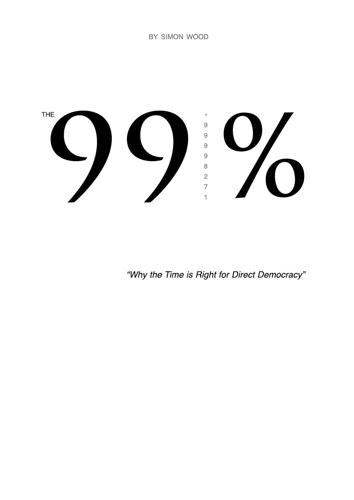
The 99.998271%
by
Simon Wood
Published 23 Apr 2012
How long will it take before a way is found to limit the internet as well? As soon as it can be shown to be a credible threat to the status quo, how can we be sure it will not be taken out? Anyone who stands up to the empire is swatted down, as can be seen in the hysterical reaction to Wikileaks and Julian Assange, who could be extradited to the US where he can be held in indefinite detention. The Occupy Wall Street movement, at first ignored completely by the establishment media, is now feeling the full force of the propaganda mill, with protestors smeared as ‘hippies’ and ‘pot smokers’ with ‘no direction in their lives’ and so on. 41 The author of this book is not a professional journalist, so I hereby request that professional journalists in the media point out to me the part of the course in journalism they studied at college which says that journalists are supposed to criticize, insult, judge and demean the subjects of the stories they cover.
…
These corporations pay workers in Haiti, the poorest country in the western hemisphere, which is still struggling to recover from a devastating earthquake, extremely low wages to sew clothes in their sweatshops. A Wikileaks cable showed that the corporations lobbied the US State Department, who then had the US ambassador put pressure on Haiti’s president. The result? A new minimum wage of 31 cents an hour. This may never have been revealed had it not been released in a Wikileaks cable, demonstrating that the US government acts in secrecy. The justification for secrecy is usually national security interest, but it would be hard for anyone to place this in such a category.
…
Unless this madness is stopped, tragedies like the following will continue to occur: on 15th March 2006, during a house raid in Iraq by US forces, a family and their children were handcuffed and then summarily executed with shots to the head. Philip Alston, the Special Rapporteur on Extrajudicial, Summary, or Arbitrary Executions, wrote the following in a letter (exposed by Wikileaks) to the then Secretary of State, Condoleeza Rice: “It would appear that when the MNF [Multinational Forces] approached the house,” Alston wrote, “shots were fired from it and a confrontation ensued” before the “troops entered the house, handcuffed all residents and executed all of them.” Mr. Faiz Hratt Khalaf, (aged 28), his wife Sumay’ya Abdul Razzaq Khuther (aged 24), their three children Hawra’a (aged 5) Aisha ( aged 3) and Husam (5 months old), Faiz’s mother Ms.
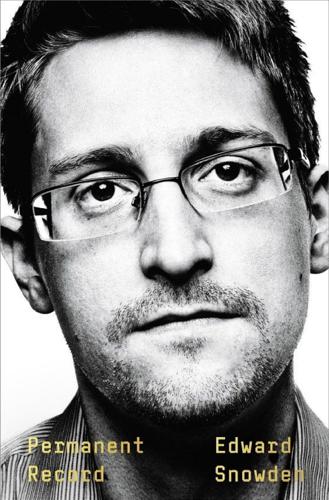
Permanent Record
by
Edward Snowden
Published 16 Sep 2019
Kirk Wiebe and Ed Loomis—though the triumvirate I actually had in mind consisted of Thomas Drake, who disclosed the existence of TRAILBLAZER to journalists, and Daniel Ellsberg and Anthony Russo, whose disclosure of The Pentagon Papers helped expose the deceptions of the Vietnam War and bring it to an end. The final name I chose for my correspondence was “Verax,” Latin for “speaker of truth,” in the hopes of proposing an alternative to the model of a hacker called “Mendax” (“speaker of lies”)—the pseudonym of the young man who’d grow up to become WikiLeaks’ Julian Assange. You can’t really appreciate how hard it is to stay anonymous online until you’ve tried to operate as if your life depended on it. Most of the communications systems set up in the IC have a single basic aim: the observer of a communication must not be able to discern the identities of those involved, or in any way attribute them to an agency.
…
With this announcement, Correa freed his people from decades of economic serfdom, though he made not a few enemies among the class of financiers who direct much of US foreign policy. Ecuador, at least in 2013, had a hard-earned belief in the institution of political asylum. Most famously, the Ecuadorean embassy in London had become, under Correa, the safe haven and redoubt of WikiLeaks’ Julian Assange. I had no desire to live in an embassy, perhaps because I’d already worked in one. Still, my Hong Kong lawyers agreed that, given the circumstances, Ecuador seemed to be the most likely country to defend my right to political asylum and the least likely to be cowed by the ire of the hegemon that ruled its hemisphere.
…
It might be hard to remember, or even to imagine, but at the time when I first considered coming forward, the whistleblower’s forum of choice was WikiLeaks. Back then, it operated in many respects like a traditional publisher, albeit one that was radically skeptical of state power. WikiLeaks regularly joined up with leading international publications like the Guardian, the New York Times, Der Spiegel, Le Monde, and El País to publish the documents provided by its sources. The work that these partner news organizations accomplished over the course of 2010 and 2011 suggested to me that WikiLeaks was most valuable as a go-between that connected sources with journalists, and as a firewall that preserved sources’ anonymity. WikiLeaks’ practices changed following its publication of disclosures by US Army private Chelsea Manning—huge caches of US military field logs pertaining to the Iraq and Afghan wars, information about detainees at Guantanamo Bay, along with US diplomatic cables.
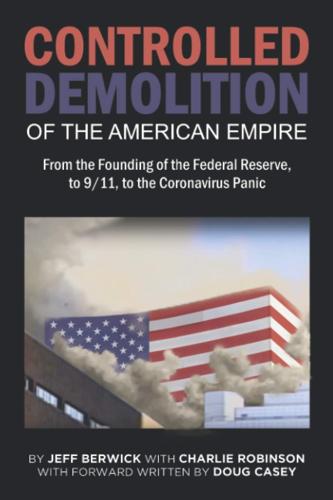
The Controlled Demolition of the American Empire
by
Jeff Berwick
and
Charlie Robinson
Published 14 Apr 2020
It does not take a seasoned FBI investigator to realize that the story simply did not add up, especially once one factors in the reality that he was the leaker that provided Kim Dotcom with information from the DNC that proved that Bernie Sanders’ nomination was suppressed by Hillary Clinton and others in the Democratic National Convention.179 This information was sent to Wikileaks and Julian Assange, and leads to another story that lacked in substance, but was universally portrayed to be of a legitimate origin: the narrative that Russia hacked the 2016 election. The mainstream media has been polishing that turd for so long that it says more about their lack of actual pull within the establishment political apparatus that despite 24/7 coverage and a unified front by the Democrats and their partners at CNN and MSNBC, they still have not been able to convince the public that Russia actually had any role in Trump’s election victory because it is so plainly obvious to anyone that Hillary Clinton was the reason why Hillary Clinton lost the election.
…
There was the alleged robbery and murder of Seth Rich, the Democratic National Committee analyst that provided proof that the DNC conspired to suppress votes for Bernie Sanders so that Hillary Clinton could be the nominee. He downloaded information to a thumb drive that was given to Kim Dotcom, who in turn made the information available to Wikileaks and Julian Assange. He was murdered in an alleged robbery in a park in Washington D.C., except that the robbers forgot to take his wallet, his watch, his gold necklace, or his cell phone. Sounds like a hit, not a robbery. It is interesting that John Podesta said “I’m definitely for making an example of a suspected leaker whether or not we have any real basis for it.”, and then Seth Rich ends up dead.
…
Censorship is what happens when powerful people get nervous, so the rise in online censorship is both a good thing and a horrible thing. It is good in the sense that those in positions of power are legitimately nervous about the weakening grip they hold on society. The “alternative media” has been making things more difficult for the controllers over the past half-decade, starting with the revelations from Edward Snowden and Julian Assange, both were rewarded with sequestration and isolation in foreign countries for their troubles. It is a horrible thing in the sense that the controllers do have the ability to switch off those voices that dare to stand up to their plan for an Orwellian Ministry of Truth by de-platforming them one at a time, or in the case of Alex Jones, colluding to remove him from multiple platforms all at the exact same time.
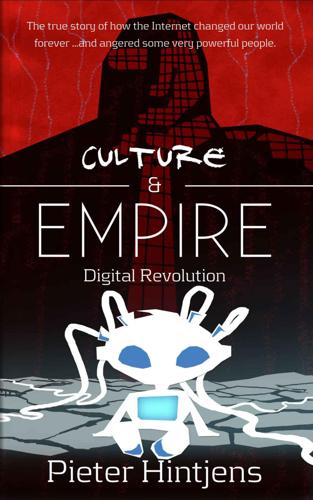
Culture & Empire: Digital Revolution
by
Pieter Hintjens
Published 11 Mar 2013
The most obvious and widely used is to attack any website that acts as a broker for leaks. WikiLeaks drew a massive amount of fire and fury for declaring its mission to be a broker for leaks, in 2006, leading to its founder Julian Assange infamously holed up in the Ecuadorian embassy in London, with Hollywood painting him in 2013 as a glory-seeking egomaniac. Threaten the powers that be, and you will pay. While it can be tricky to arrest and disappear a public figure, it is trivial to launch a "distributed denial of service attack," or DDoS, on any troublesome website. One simply tells hundreds of thousands of slave PCs to request the main page of the website, say wikileaks.org, at the same time.
…
Other whistle blowers of note are Annie Machon, Gareth Williams, Russel Tice, Jeffrey Sterling, Stephen Jin-Woo Kim, Jesselyn Radack, Thomas Drake, Daniel Ellsberg, and William Binney. We then have the independent media who are willing to report these documents, at personal risk. There is Julian Assange, building wikileaks.org around Manning's leaks, and Glenn Greenwald and Laura Poitras, reporting in the Guardian on Edward Snowden's leaks. Again, heroic figures who have changed the course of history. We see academics like Dr Daniele Ganser, who know their history and are immune to this particular Narrative because they have seen so many like it.
…
Big sites need hosting, and that costs money. WikiLeaks was the target of this in 2010, with US credit card processors cutting off all donations to the site. Despite not getting money from US contributors, WikiLeaks survived and got good press from being the victim of clearly abusive conduct by the US government and financial industry. So attacking a site will often just make it stronger. The very fact that authorities target a leaks site promotes its accuracy and importance. It is also technically hard to sustain. In 2011, Bank of America hired three firms to attack Wikileaks. One of the firms, HBGary Federal, was hacked by Anonymous, and the plan was discovered.
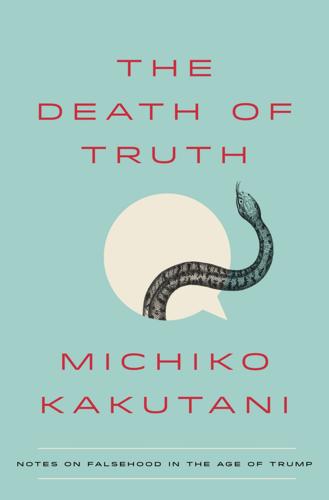
The Death of Truth: Notes on Falsehood in the Age of Trump
by
Michiko Kakutani
Published 17 Jul 2018
“a chaos of peeves”: Pynchon, Gravity’s Rainbow, 676. “They were careless people”: F. Scott Fitzgerald, The Great Gatsby (New York: Oxford University Press, 1998), 142. The new nihilism is WikiLeaks: Sue Halpern, “The Nihilism of Julian Assange,” New York Review of Books, July 13, 2017; Haroon Siddique, “Press Freedom Group Joins Condemnation of WikiLeaks’ War Logs,” Guardian, Aug. 13, 2010; Matthew Weaver, “Afghanistan War Logs: WikiLeaks Urged to Remove Thousands of Names,” Guardian, Aug. 10, 2010. upward of ten thousand dollars a month: Laura Sydell, “We Tracked Down a Fake-News Creator in the Suburbs.
…
* * * — The master manipulators of social media in the 2016 election, of course, were the Russians whose long-term goal—to erode voters’ faith in democracy and the electoral system—dovetailed with their short-term goal of tipping the outcome toward Trump. U.S. intelligence agencies also concluded that Russian hackers stole emails from the Democratic National Committee, which were later provided to WikiLeaks. These plots were all part of a concerted effort by the Kremlin, stepped up since Putin’s reelection in 2012, to use asymmetrical, nonmilitary means to achieve its goals of weakening the European Union and NATO and undermining faith in globalism and Western democratic liberalism. Toward such ends, Russia has been supporting populist parties in Europe, like Marine Le Pen’s far-right National Front party in France, and has interfered in the elections of at least nineteen European countries in recent years.
…
And Twitter found that more than fifty thousand Russia-linked accounts on its platform were posting material about the 2016 election. A report from Oxford University found that in the run-up to the election the number of links on Twitter to “Russian news stories, unverified or irrelevant links to WikiLeaks pages, or junk news” exceeded the number of links to professionally researched and published news. The report also found that “average levels of misinformation were higher in swing states”—like Florida, North Carolina, and Virginia—than in uncontested states. Russians had become very adept not only at generating fake news but also at inventing fake Americans who commented on that fake news and joined fake American groups.
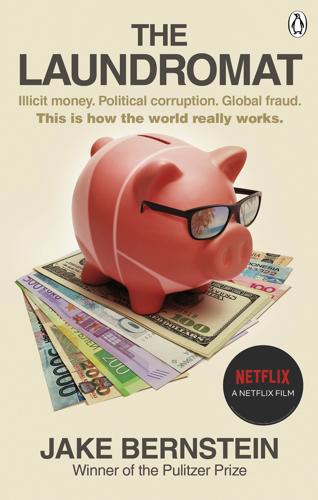
The Laundromat : Inside the Panama Papers, Illicit Money Networks, and the Global Elite
by
Jake Bernstein
Published 14 Oct 2019
Jóhannesson would essentially be suing himself.14 The media mogul thought about this for a second and acknowledged that Hrafnsson had a point. But three months after the tax haven program aired, Jóhannesson canceled Kompás, citing its high cost. The station’s CEO fired Kristjánsson and Hrafnsson by phone, telling them to gather their belongings and leave the building by day’s end. Hrafnsson went on to serve as a spokesman for Julian Assange’s WikiLeaks. Kristjánsson, devastated over the loss of a program into which he’d poured his heart and soul, left journalism to paint buildings in downtown Reykjavík. After a few months, he went back to work for a tabloid. On June 3, 2010, Kristjánsson’s seventeen-year-old daughter died from an overdose of fentanyl, a powerful opioid.
…
Many, if not most, of the people found in the database had committed no crime. There was little public-interest rationale for publishing personal information such as passports, bank account information, and emails filled with intimate details. This explanation was insufficient for WikiLeaks, whose founder, Julian Assange, was holed up in Ecuador’s embassy in London. The organization pounded ICIJ for not releasing the data. “If you censor more than 99% of the documents you are engaged in 1% journalism by definition,” the group nonsensically tweeted.24 Matters took a more serious turn, when a television project partner mistakenly aired a Blacklight URL.
…
utm_term=.8c58c6f5e967. 65 a $2.5 billion fine for unpaid taxes: “IPI Troubled by Tax Case Targeting Turkey Media Owner,” International Press Institute, July 8, 2016, https://ipi.media/ipi-troubled-by-tax-case-targeting-turkey-media-owner/. 66 “the largest oil distribution company in Turkey”: General Comments, Petrol Ofisi International Oil Trading Ltd., September 23, 2003. 67 its principal beneficiary was listed as Imre Barmanbek: Source of Funds/Wealth Declaration, November 5, 2015. 68 how Yalçındağ worked hard to ingratiate himself with Erdoğan: Amberin Zaman, “WikiLeaks Dump Casts Rare Light on Erdogan Inner Circle,” Al-Monitor, December 6, 2016, http://www.al-monitor.com/pulse/originals/2016/12/erdogan-albayrak-wikileaks.html#ixzz4m5CoQZu. 69 a complete list of Turks and their companies: https://wikileaks.org/berats-box/emailid/27681. EPILOGUE 1 the partners’ original idea was to sell the firm: Author interview with Ramón Fonseca, Panama City, August 2016. 2 the British Virgin Islands fined the firm $440,000: British Virgin Islands Financial Services Commission, Enforcement Action, http://www.bvifsc.vg/Publications/EnforcementAction/tabid/378/ctl/EnforcementSummary/mid/1188/actionId/17069/language/en-AU/Default.aspx. 3 Company incorporations in the jurisdiction dropped 30 percent: “British Virgin Islands: Have They Cleaned Up Since the Panama Papers?
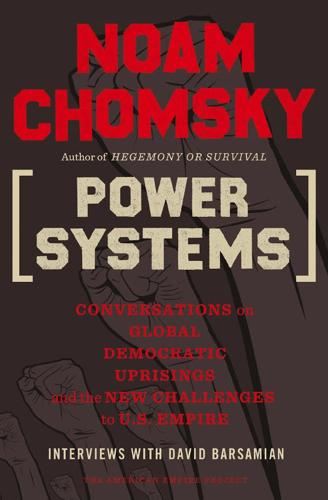
Power Systems: Conversations on Global Democratic Uprisings and the New Challenges to U.S. Empire
by
Noam Chomsky
and
David Barsamian
Published 1 Nov 2012
I doubt that Tunisians cared very much about French and U.S. hypocrisy, which is all that WikiLeaks revealed—nothing that they didn’t know themselves. Talk about the connection between Daniel Ellsberg and Bradley Manning. Dan is an old friend. I was involved with him in helping release the Pentagon Papers, which I thought was a quite proper thing to do. I testified at his trial. In the case of Bradley Manning, he’s charged with having released material to Julian Assange, who distributed it on WikiLeaks.18 He’s been in prison now since May 2010, a large part of that in solitary confinement—which is torture.
…
In response to the question, “Name two countries that you think pose the biggest threat to you,” Israel received 88 percent, the United States 77 percent, and Iran 9 percent among those aged thirty-six and over and 11 percent among those thirty-six and under. 2010 Arab Public Opinion Survey. 16. Ian Black, “WikiLeaks Cables: Tunisia Blocks Site Reporting ‘Hatred’ of First Lady,” Guardian (London), 7 December 2010. Ian Black, “Profile: Zine al-Abidine Ben Ali,” Guardian (London), 14 January 2011. See also Amy Davidson, “Tunisia and WikiLeaks,” New Yorker, Close Read blog, 14 January 2011. 17. Steven Erlanger, “French Foreign Minister Urged to Resign,” New York Times, 3 February 2011. 18. Charlie Savage, “Soldier Faces 22 New WikiLeaks Charges,” New York Times, 2 March 2011. 19. Scott Shane, “Court Martial Recommended in WikiLeaks Case,” New York Times, 12 January 2012. 20.
…
The same is true of terror, aggression, torture, human rights, freedom of speech, whatever it might be. So the line that the enormous trove of information that was disseminated through WikiLeaks was somehow compromising U.S. security doesn’t wash. It compromised the security that governments are usually concerned about: their security from inspection by their own populations. I haven’t read everything on WikiLeaks, but I’m sure there are people who are searching very hard to find some case where they can claim there has been a harm to genuine security interests. I couldn’t find any myself. One respect in which the United States is unusually open is in declassifying government documents.
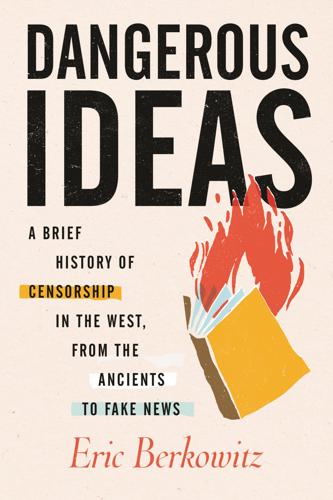
Dangerous Ideas: A Brief History of Censorship in the West, From the Ancients to Fake News
by
Eric Berkowitz
Published 3 May 2021
Another publisher of stolen government documents, Julian Assange, is in serious legal jeopardy for publishing confidential US government materials on his WikiLeaks website in 2010. The materials were stolen by Chelsea Manning, an army intelligence analyst, who was given a lengthy sentence in a military prison for the theft. Should Assange be celebrated along with Greenwald as a journalist who brought important matters to the public, or is he a criminal along with Snowden and Manning? The answer, according to the US prosecutors who unsealed an indictment against Assange in 2019, is obvious: “Julian Assange is no journalist.” Indeed, he deserves up to 175 years in prison under the Espionage Act.47 Assange is, to put it mildly, an unsavory individual, and his irresponsible release of the information exposed people to danger, but the indictment is still a travesty of press freedom.
…
Adrian Shahbaz, “Freedom on the Net 2018: The Rise of Digital Authoritarianism,” Freedom House, https://freedomhouse.org/report/freedom-net/2018/rise-digital-authoritarianism. 47. Jon Allsop, “Espionage Charges Against Assange Are a ‘Terrifying’ Threat to Press Freedom,” Columbia Journalism Review, May 24, 2019, https://www.cjr.org/the_media_today/julian_assange_espionage_act.php?utm_source=CJR+Daily+News. 48. Packingham v. North Carolina, 137 S.Ct. 1730 (2017), citing in part Reno v. ACLU, 521 U.S. 844 (1997). 49. Tim Wu, “Is the First Amendment Obsolete?,” Knight First Amendment Institute, September 1, 2017, https://knightcolumbia.org/content/tim-wu-first-amendment-obsolete. 50.
…
Roberts, “How the Chinese Government Fabricates Social Media Posts for Strategic Distraction, Not Engaged Argument,” American Political Science Review 111, no. 3 (2017): 484, https://gking.harvard.edu/files/gking/files/how_the_chinese_government_fabricates_social_media_posts_for_strategic_distraction_not_engaged_argument.pdf. 99. Wu, “Is the First Amendment Obsolete?” 100. Zeynep Tufecki, Twitter and Tear Gas: The Power and Fragility of Networked Protest (New Haven, CT: Yale University Press, 2017), 231, 241. 101. Zeynep Tufecki, “Wikileaks Isn’t Whistleblowing,” New York Times, November 4, 2016, https://www.nytimes.corn/2016/11/05/opinion/what-were-missing-while-we-obsess-over-john-podestas-email.html. 102. Bobby Allyn, “Researchers: Nearly Half of Accounts Tweeting About Coronavirus Are Likely Bots,” NPR, May 20, 2020, https://www.npr.org/sections/coronavirus-live-updates/2020/05/20/859814085/researchers-nearly-half-of-accounts-tweeting-about-coronavirus-are-likely-bots; Thor Benson, “Trolls and Bots Are Flooding Social Media with Disinformation Encouraging States to End Quarantine,” Business Insider, April 20, 2020, https://www.businessinsider.com/trolls-bots-flooding-social-media-with-anti-quarantine-disinformation-2020-4. 103.
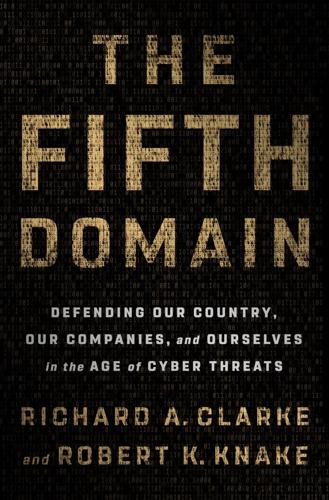
The Fifth Domain: Defending Our Country, Our Companies, and Ourselves in the Age of Cyber Threats
by
Richard A. Clarke
and
Robert K. Knake
Published 15 Jul 2019
Joshua Schulte, a CIA employee, was arrested by the FBI in August 2017 and charged with passing over eight thousand pages of highly classified information to Julian Assange, who subsequently posted them publicly on the WikiLeaks website. Assange, an Australian who had taken refuge in Ecuador’s London embassy, has been accused by numerous American authorities of acting in cooperation with Russian intelligence. The CIA documents were called Vault 7 by WikiLeaks, and they too revealed numerous zero-day exploits of widely used software, including products of Apple, Microsoft, and Samsung (e.g., allegedly a tool to listen to rooms in which Samsung televisions were installed, even when the television appeared to be turned off).
…
All of those devices had been affected by a malicious bot, a piece of software that guided itself around the world looking for unprotected IoT devices to infect and take over. The bot was given a name by the cybersecurity world. They called it Mirai. Suspicions about who launched Mirai fell on the supporters in North America of the hacker Julian Assange, who has been linked to Russian intelligence and the hacking of the U.S. 2016 election. Word had been spreading that the United States was putting pressure on Ecuador to throw Assange out of their embassy in London, where he had taken refuge after arrest warrants were issued for him. Assange’s organization eventually publicly called on his supporters to “stop taking down the U.S. internet.
…
in the Vault 7 documents: Semantic Security Response, “Longhorn: Tools used by cyberespionage group linked to Vault 7,” Symantec Official Blog, April 10, 2017, www.symantec.com/connect/blogs/longhorn-tools-used-cyberespionage-group-linked-vault-7. groups known as APT 3 and APT 10: Andrew Griffin, “Wikileaks Files Detail CIA ‘Umbrage’ Project, Which Would Allow Spies to Pin Attacks on Other Countries,” Independent, March 8, 2017, www.independent.co.uk/life-style/gadgets-and-tech/news/wikileaks-files-cia-umbrage-hacker-secret-spies-explained-countries-donald-trump-russia-a7618661.html. most “reckless and indiscriminate”: This quote is attributed to British Defense Secretary Gavin Williamson, said at a meeting with U.S.
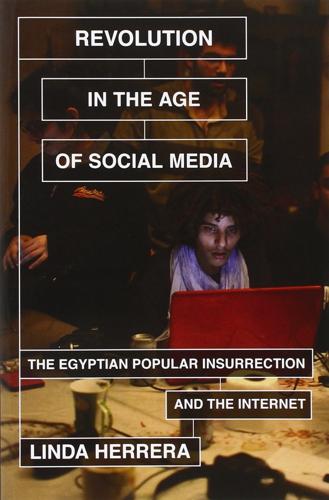
Revolution in the Age of Social Media: The Egyptian Popular Insurrection and the Internet
by
Linda Herrera
Published 14 Apr 2014
Tunisia’s cyberwars escalated to even greater heights when Anonymous, the decentralized internet group that promotes online freedom, launched Operation Tunisia. During the Tunisian uprising, WikiLeaks founder Julian Assange released a series of incriminating cables detailing embezzlement and nepotism by the Ben Ali oligarchy, information that further fueled the revolt. When the government tried to block access to the cables, Operation Tunisia used the Twitter hashtag #OpTunisia to inform Tunisians about backdoor ways to access the WikiLeaks cables and protect themselves online. Anonymous also managed to hack and take down high-profile Tunisian governmental websites, including those of the stock exchange, the government Internet Agency, the Office of the President and Prime Minister, the Ministry of Industry, and the Ministry of Foreign Affairs.
…
Abbas contacted YouTube directly to reinstate the videos, but to no avail. He then reached out to the US Embassy in Cairo and requested that they contact Google, which owns YouTube, on his behalf. The details of Abbas’s request to the embassy appear in an embassy cable dated December 2007, which was made public by WikiLeaks. It reads: Prominent Egyptian blogger, human rights activist and winner of the 2007 Knight-Ridder International Journalism Award, Wael Abbas, contacted us November 17 to report that YouTube removed from his website two videos exposing police abuses—one of a Sinai bedouin allegedly shot by police and thrown in a garbage dump during the past week’s violence … and the other of a woman being tortured in a police station.
…
In September 2013, Abbas was one of thirty-five activists, including the founders of the 6th of April Facebook page, named in a complaint to the Egyptian public prosecutor. He was called in for questioning on suspicion of treason and working with a foreign government. The names of the activists were taken from a confidential US embassy memo from 2007 entitled “Outreach to Egyptian Democracy and Human Rights Activists,” made public by WikiLeaks in August 2011. This memo details meetings with Egyptian activists from the blogosphere, civil society, and the opposition press. At the time of writing, the fate of those activists remains unclear. What is certain is that activists often risk their own security, credibility, and public standing when they are on record as working with the US government.
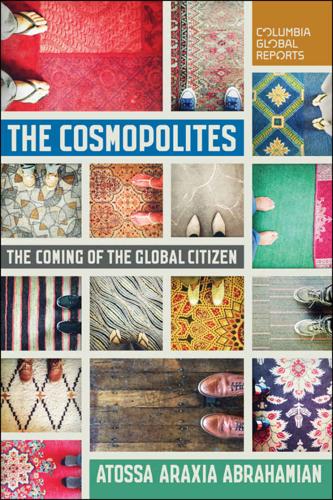
The Cosmopolites: The Coming of the Global Citizen
by
Atossa Araxia Abrahamian
Published 14 Jul 2015
In the final decade of his life, Garry Davis saw non-state actors such as Al Qaeda force nations to redefine the ways they wage war. Organizations like WikiLeaks and Anonymous challenge these wars with troves upon troves of information. Looming environmental crises reveal the cracks in our system of international governance, and threaten the very existence of many countries as we know them. Davis saw it all coming, and the world was his stage. Before tax-free zones, freeports, and airports became indispensable cogs in the machinery of globalization, Davis found ways to exploit them. It’s essentially the same loophole that has allowed WikiLeaks founder Julian Assange to seek refuge at the Ecuadorean embassy in London, where, as of this writing, he languishes still.
…
_r=0 42human rights organizations had issued tersely worded recommendations: “Without Citizenship: Statelessness, discrimination and repression in Kuwait,” Refugees International and Open Society Justice Initiative. http://refugeesinternational.org/policy/in-depth-report/kuwait-without-citizenship 51there wasn’t a strong, pre-existing sense of unifying Emirati nationalism: “Nationalism in the Gulf States,” by Neil Patrick, October 2009, Kuwait Programme on Development, Governance and Globalisation in the Gulf States. http://eprints.lse.ac.uk/55257/1/Patrick_2009.pdf 55fewer than 5,000 bidoon: “Arab Spring energises Gulf’s stateless,” by Rania El Gamal and Sylvia Westall, Reuters, Dec. 19, 2012. http://www.reuters.com/article/2012/12/19/gulf-stateless-idUSL5E8NDAGU20121219 56a stateless man doused himself in gasoline: “Immolation in Riyadh exposes plight of Arab stateless in Saudi Arabia,” by Angus McDowall, Reuters, June 26, 2013. http://www.reuters.com/article/2013/06/26/us-saudi-immolation-poverty-idUSBRE95P0RX20130626 57Emirati citizens receive benefits that would make a Scandinavian social democracy blush: “U.A.E.’s Drive for Emirati-Run Economy Is Thwarted by Handouts,” by Matthew Brown, Bloomberg, Oct. 3, 2007. http://www.bloomberg.com/apps/news?pid=newsarchive&sid=axmdijbZMi5k 582009 U.S. diplomatic cable: “Kuwait’s Stateless Bidoon: Background and Recent Promising Developments,” WikiLeaks, June 3, 2009. https://www.wikileaks.org/plusd/cables/09KUWAIT558_a.html 59According to a 1995 Human Rights Watch report: “The Bedoons of Kuwait: Citizens Without Citizenship,” Human Rights Watch, August 1995. http://www.hrw.org/reports/1995/Kuwait.htm 5925 percent of Kuwait’s army of 20,000 were bidoon: ibid. 62“traitor without a nation”: “Arrested UAE Blogger Accused of Possessing Alcohol,” Reuters, April 12, 2011. http://www.reuters.com/article/2011/04/12/us-emirates-activists-idUSTRE73B2EP20110412 63“waving the country’s flag and clutching pictures of the Emir”: “Kuwait’s Stateless Bidun Demand Greater Rights,” by Simon Atkinson, BBC News, July 19, 2011. http://www.bbc.com/news/business-14185365 63dispensing cash bonuses: “The ‘Arab Spring’ in the Kingdoms,” by Zoltan Barany, Arab Center for Research and Policy Studies, Sept. 2012. http://english.dohainstitute.org/file/get/e02ce87b-f3ab-45d3-bfd8-3f3e97f6a6a9.pdf 63life was good for Emirati citizens: “Why the Arab Spring Never Came to the U.A.E.,” by Angela Shah, Time, July 18, 2011. http://content.time.com/time/world/article/0,8599,2083768,00.html 64stage of the Edinburgh festival: “Comedians and Writers Lead Amnesty Campaign to Free Jailed UAE Activists,” by Severin Carrell, The Guardian, August 7, 2011. http://www.theguardian.com/culture/2011/aug/07/amnesty-uae-activists-edinburgh-festival?
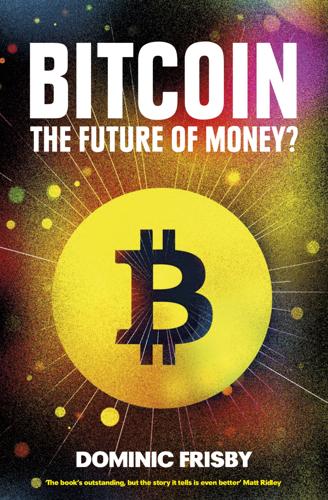
Bitcoin: The Future of Money?
by
Dominic Frisby
Published 1 Nov 2014
But on December 4th 2010, under pressure from the US government, PayPal froze the WikiLeaks account. Domain name providers and other payment systems followed suit and refused to handle WikiLeaks’ business. Julian Assange, the WikiLeaks boss, was involved in expensive litigation at the same time. WikiLeaks was starved of funds. And, unbeknownst to most, the organization was crumbling from within due to a falling-out between Daniel Domscheit-Berg, WikiLeaks’ number two, and Assange. One poster at BitcoinTalk thought that Bitcoin would be a means to help WikiLeaks. Others jumped at the idea. ‘Bring it on,’ said one. ‘Let’s encourage WikiLeaks to use Bitcoins and I’m willing to face any risk or fallout from that fact.’
…
Milton Friedman, economist The US Department of Defense called it the ‘largest leak of classified documents in its history’. It’s difficult to overstate how big a threat to the existing world order WikiLeaks was perceived to be in late 2010. There has been revelation after revelation – the Bradley Manning leaks, the video of US soldiers shooting at Reuters cameramen, the ‘friendly fire’ and civilian casualties, then the leak of another 400,000 documents relating to the Iraq war. WikiLeaks had caught the imagination of those opposed to the US and other governments. Many wanted to help. PayPal was the main means by which WikiLeaks was able to receive funds for its activities and, in 2010, its donors gave around one million dollars.
…
Is that really the end result the Bitcoin community most desires? Does it make sense to actively give multiple world governments incentive to shut down Bitcoin?’ asked Garzik. ‘WikiLeaks is the enemy of major world powers right now, with many influential elites feeling that Assange committed an act of war against the United States, or, at a minimum, irrevocably disrupted world affairs. This is not some mailing list discussion or theoretical exercise; there are very real, very powerful organizations actively targeting WikiLeaks’ network infrastructure, organizational infrastructure, and most importantly, financial infrastructure. It is extraordinarily unwise to make Bitcoin such a highly visible target, at such an early stage in this project.
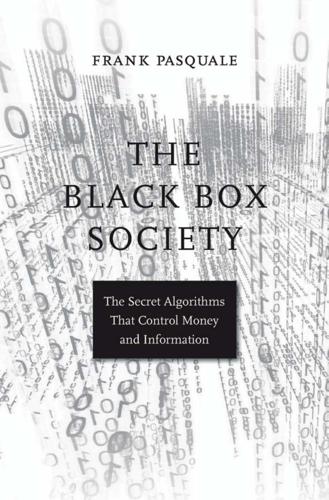
The Black Box Society: The Secret Algorithms That Control Money and Information
by
Frank Pasquale
Published 17 Nov 2014
The Snowden leaks make the shared infrastructure of state and private data collection incontrovertible. Never again can data deregulationists claim that corporate data collection is entirely distinct and far less threatening than government surveillance. They are irreversibly intertwined. Enduring Opacity Despite the leaks of Snowden (and Chelsea Manning and Julian Assange), the national surveillance apparatus is still opaque on many levels.193 It enjoys both real and legal secrecy, hidden as it is in secure networks and protected by the heavy hand of the law. There’s plenty of complexity, too, should secrecy fail. Intelligence agencies commission private defense contractors like SAIC, Northrop Grumman, Booz Allen, and Palantir to devise specialized software to monitor their data sources—which include social networks.194 Their algorithms are complex enough by themselves, but the contractors are also bound to protect company trade secrets.
…
A fully transparent society would be a nightmare of privacy invasion, voyeurism, and intellectual property theft. Sometimes the route to orderly and productive investigation is to entrust the job to a small group of experts. For example, courts often need to have a deep knowledge about events leading up to a legal dispute. Even leading leakers seem to agree: both Julian Assange and Edward Snowden fi ltered their revelations though trusted news sources. I call this general trend “qualified transparency”—limiting revelations in order to respect all the interests involved in a given piece of information. As time goes on, the negative impact of disclosure fades. Statutes of limitation run; power moves to other hands; technology that was once state-of-the-art becomes irrelevant.
…
THE HIDDEN LOGICS OF SEARCH 77 Topics break into the Trends list when the volume of Tweets about that topic at a given moment dramatically increases. . . . Sometimes, popular terms don’t make the Trends list because the velocity of conversation isn’t increasing quickly enough, relative to the baseline level of conversation happening on an average day; this is what happened with #wikileaks this week.109 The #wikileaks and #occupy controversies died down quickly after Twitter offered these explanations. But when a site called Thunderclap attempted to hold a trending topic in reserve until it could unleash its followers all at once, timing all their tweets for maximum impact, Twitter suspended Thunderclap’s access to its API.110 Media studies scholar Tarleton Gillespie analyzed the company’s position in a widely shared blog post titled “Can an Algorithm Be Wrong?”
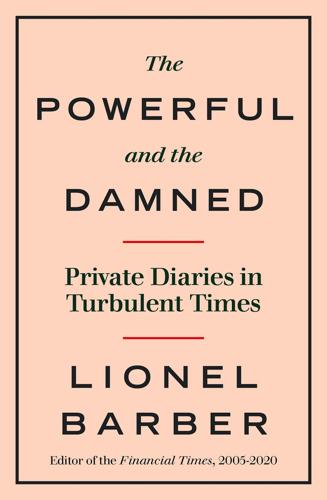
The Powerful and the Damned: Private Diaries in Turbulent Times
by
Lionel Barber
Published 5 Nov 2020
This led to the Leveson inquiry into the conduct and regulation of the press which consumed my attention for almost two years. Throughout this period, I also saw the rise of ‘new media’ first hand, through regular trips to Silicon Valley. An important subtext is the ‘asymmetric information flow’ and ‘open-source journalism’ symbolised by WikiLeaks, Julian Assange and the Snowden affair, all of which presented ethical and professional dilemmas for the press. The fourth section begins with the terrorist attack in 2015 on the offices of Charlie Hebdo, the Parisian satirical magazine – the first wave of a series of violent Islamist acts of terror in Europe’s major cities.
…
Then he repeats the question: ‘How could you do it?’ Another tirade follows. Finally, I tell Brown I have to get back to the office. A grumpy goodbye. On the way out, Brown’s aide apologises. ‘That was quite something,’ I reply, ‘but by Gordon’s standards I would say: pretty mild.’ SUNDAY, 5 DECEMBER Julian Assange, founder of WikiLeaks, has been arrested this morning by officers from Scotland Yard. He is facing extradition to Sweden where he faces charges of sexual molestation and a single count of rape. Tonight, he is spending the night in Wandsworth prison. Jane Owen, editor of House and Home, the Weekend FT supplement, knows Mark Stephens, Assange’s lawyer.
…
FRIDAY, 11 JUNE The Guardian, New York Times and other international news organisations have published leaks from 250,000 classified US diplomatic cables, part of a data dump obtained by WikiLeaks, the whistleblowers’ website. There are embarrassing disclosures about official views on Pakistan’s nuclear weapons programme, US commanders’ withering criticism of the UK’s military effort in Afghanistan and allegations that Russia’s intelligence agencies are using mafia bosses to carry out criminal operations. We’ll have to follow up, however painful. Matching the story turned out to be trickier than I imagined. For a while afterwards, every other FT foreign news story was peppered with ‘according to WikiLeaks’. Finally, I imposed a temporary WikiLeaks ban. It was time our reporters did some original reporting rather than parroting or feeding off selectively leaked documents.
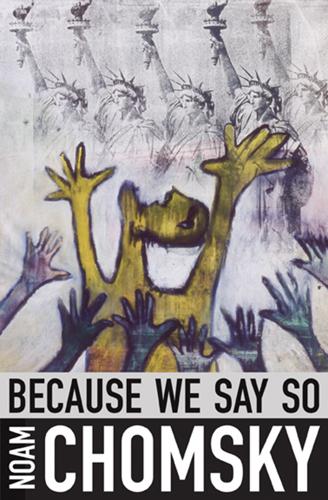
Because We Say So
by
Noam Chomsky
Furthermore, Iran must be punished for its “successful defiance,” which was Washington’s charge against Cuba half a century ago, and still the driving force for the U.S. assault against Cuba that continues despite international condemnation. Other events featured on the front pages might also benefit from a different perspective. Suppose that Julian Assange had leaked Russian documents revealing important information that Moscow wanted to conceal from the public, and that circumstances were otherwise identical. Sweden would not hesitate to pursue its sole announced concern, accepting the offer to interrogate Assange in London. It would declare that if Assange returned to Sweden (as he has agreed to do), he would not be extradited to Russia, where chances of a fair trial would be slight.
…
Joining the Vietnamese appeal against Dow are the government of India, the Indian Olympic Association, and the survivors of the horrendous 1984 Bhopal gas leak, one of history’s worst industrial disasters, which killed thousands and injured more than half a million. Union Carbide, the corporation responsible for the disaster, was taken over by Dow, for whom the matter is of no slight concern. In February, Wikileaks revealed that Dow hired the U.S. private investigative agency Stratfor to monitor activists seeking compensation for the victims and prosecution of those responsible. Another major crime with very serious persisting effects is the Marine assault on the Iraqi city of Fallujah in November 2004. Women and children were permitted to escape if they could.
…
The United States will “chase him to the ends of the earth,” Senator Lindsey Graham warned. But U.S. government spokespersons assured the world that Snowden will be granted the full protection of American law—referring to those same laws that have kept U.S. Army soldier Bradley Manning (who released a vast archive of U.S. military and diplomatic documents to WikiLeaks) in prison for three years, much of it in solitary confinement under humiliating conditions. Long gone is the archaic notion of a speedy trial before a jury of peers. On July 30 a military judge found Manning guilty of charges that could lead to a maximum sentence of 136 years. Like Snowden, Manning committed the crime of revealing to Americans—and others—what their government is doing.
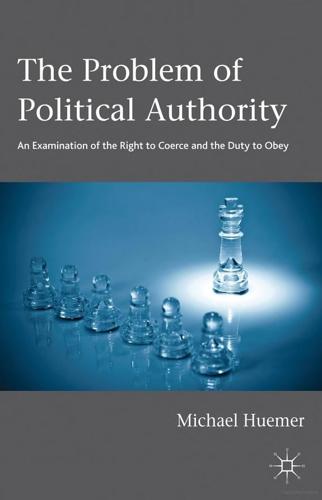
The Problem of Political Authority: An Examination of the Right to Coerce and the Duty to Obey
by
Michael Huemer
Published 29 Oct 2012
The government brought twelve felony counts against Ellsberg (ultimately dismissed), and President Nixon ordered illegal wiretaps and a break-in at the office of Ellsberg’s psychiatrist in an effort to find information to discredit Ellsberg.31 A more recent case is that of Wikileaks, which published thousands of government documents in 2010, most of which concerned the wars in Afghanistan and Iraq, including videos showing U.S. troops killing civilians. The uniform reaction from American politicians on both the left and the right was one of outrage at both Wikileaks and its sources. Vice President Biden called Wikileaks founder Julian Assange a terrorist and promised that the Justice Department would be looking for ways to prosecute him. Former Arkansas governor and sometime presidential candidate Mike Huckabee called Wikileaks’ source a traitor and called for his execution.
…
Pp. 63–80 in Rationality, Relativism and the Human Sciences, ed. J. Margolis, M. Krausz, and R. M. Burian. Dordrecht: Kluwer. Mackie, John L. 1977. Ethics: Inventing Right and Wrong. New York: Penguin. Maley, William. 2009. The Afghanistan Wars, second edition. New York: Palgrave Macmillan. Mandel, Nina. 2010. ‘Biden: Wikileaks’ Julian Assange Closer to a “High-Tech Terrorist” Than Pentagon Papers’, New York Daily News, December 19, http: //articles.nydailynews.com/2010–12–19/news/27084869_1_vice-president-joe-biden-world-leaders-accuser. Accessed March 10, 2011. Mao Tse-tung. 1972. Quotations from Chairman Mao Tsetung. Peking: Foreign Languages Press.
…
‘Deaths by Mass Unpleasantness: Estimated Totals for the Entire Twentieth Century’, http://users.erols.com/mwhite28/warstat8.htm. Accessed February 13, 2012. Wikileaks. 2010. Collateral Murder (video), www.collateralmurder.com/. Accessed March 10, 2011. Williams, Juan. 1987. Eyes on the Prize. New York: Viking Penguin. Wilson, Edward O. 2000. Sociobiology: The New Synthesis, 25th anniversary ed. Cambridge, MA: Harvard University Press. Wilson, James Q. 1990. ‘Against the Legalization of Drugs’, Commentary 89: 21–8. Wing, Nick. 2010. ‘Mike Huckabee: WikiLeaks Source Should Be Executed’, Huffington Post, November 30, www.huffingtonpost.com/2010/11/30/mike-huckabee-wikileaks-execution_n_789964.html. Accessed March 10, 2011.
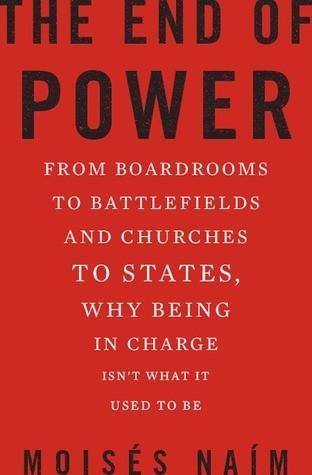
The End of Power: From Boardrooms to Battlefields and Churches to States, Why Being in Charge Isn’t What It Used to Be
by
Moises Naim
Published 5 Mar 2013
The bigger picture is a cascading diffusion of power that has put individuals in an unprecedented position not only to bypass political institutions developed over decades but also to influence, persuade, or constrain “real” politicians more directly and more effectively than any classical political theorist could have imagined. HEDGE FUNDS AND HACKTIVISTS Left in a room together, John Paulson and Julian Assange might soon be at each other’s throats. Paulson runs Paulson & Co, one of the world’s largest hedge funds. Assange is the founder of WikiLeaks, the Web-based organization that specializes in divulging the secret information of governments and corporations. And yet they have one very significant thing in common: both symbolize a new breed of actors who are transforming national politics by limiting the power of governments.
…
And the dawn of the twenty-first century, with the Soviet Union consigned to the history books, found just one player paramount: the sole superpower, the hegemon, the United States. For the first time in history, many argued, the struggle for power among nations had produced one single, clear, and maybe even final winner. Consider the evidence from WikiLeaks, which released a trove of more than 250,000 US diplomatic cables that, as the organization’s leader Julian Assange luridly put it, “show the extent of U.S. spying on its allies and the UN; turning a blind eye to corruption and human rights abuse in ‘client states’; backroom deals with supposedly neutral countries; lobbying for U.S. corporations; and the measures U.S. diplomats take to advance those who have access to them.”3 The reaction of experienced analysts such as Jessica Mathews, the president of the Carnegie Endowment in Washington, is that this is not a surprise: “This is precisely what hegemony has always been.
…
In geopolitics, small players—whether “minor” countries or nonstate entities—have acquired new opportunities to veto, interfere in, redirect, and generally stymie the concerted efforts of “big powers” and multilateral organizations such as the International Monetary Fund (IMF). To name just a few instances: Poland’s vetoing of the EU’s low-carbon policy, the attempts by Turkey and Brazil to derail the big powers’ negotiations with Iran over its nuclear program, Wikileaks’ disclosure of US diplomatic secrets, the Gates Foundation’s contesting of the World Health Organization leadership in the fight against malaria, and spoilers of various stripes and sizes in global negotiations on trade, climate change, and numerous other issues. These newly and increasingly relevant “small players” are vastly different from one another, as are the fields they compete in.
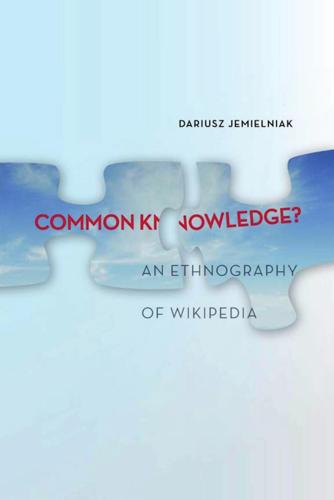
Common Knowledge?: An Ethnography of Wikipedia
by
Dariusz Jemielniak
Published 13 May 2014
However, he was laid off because of lack of funds in 2002, after which he apparently lost faith in the project (in his farewell message he skeptically wrote that “Wikipedia still might succeed brilliantly”; Berstein, 2011). Since then he has been very critical of it. In 2007 he launched his own online encyclopedia website, Citizendium. Clearly, both being let go from Wikipedia and having his cofounder status questioned left Sanger resentful. Nonetheless, as late as December 2010, when criticizing WikiLeaks and addressing Julian Assange, he mentioned his former affiliation rather than his later projects: “Speaking as Wikipedia’s co-founder, I consider you enemies of the U.S.—not just the government, but the people” (Crovitz, 2010). Identifying himself as Wikipedia’s cofounder might have created the impression that he was speaking for the Wikipedia community or the Wikimedia Foundation, but his view was far from unanimously shared by Wikipedians.
…
The British Journal of Sociology, 8(3), 197–207. Courpasson, D. (2000). Managerial strategies of domination: Power in soft bureaucracies. Organization Studies, 21(1), 141–161. Crombie, A. (1985). The nature and types of search conferences. International Journal of Lifelong Education, 4(1), 3–33. Crovitz, L. G. (2010, December 6). Julian Assange, information anarchist. The Wall Street Journal. Retrieved from http://topics.wsj.com/article/SB100014240527487039890045 75653113548361870.html Crowston, K., & Howison, J. (2006). Hierarchy and centralization in free and open source software team communications. Knowledge, Technology and Policy, 18(4), 65–85.
…
([[User_talk:Jimbo_Wales/Archive_122]]) At the time of this writing, discussion of the changes is still under way, yet it is quite clear that Wales recognized that his resignation from operational influence has further legitimized his strategic authority. 1 7 4 L e a d e r s h i p T r a n s f o r m e d Modes of Leadership in Open Collaboration While the founder’s exit has been shown to be a natural stage in organizational development, in this case the limitation of Wales’s involvement was both consciously planned and a contingent process of management models and philosophies open-community leadership, both to some extent present in the free/ libre and open-source-software (F/LOSS) environment. E. G. Coleman (2011) points out that digital-generation communities may be governed by principles as diverse as those of WikiLeaks (with one charismatic leader making all decisions and monopolizing the limelight) to those of Anonymous (an antileader and anticelebrity group). Even though rarely falling on the extremes of that continuum, large open-collaboration projects tend to rely on two kinds of models: a democratic community-decision-making process (elections, representation) and “benevolent dictatorship” (Raymond, 1998, 1999/2004).
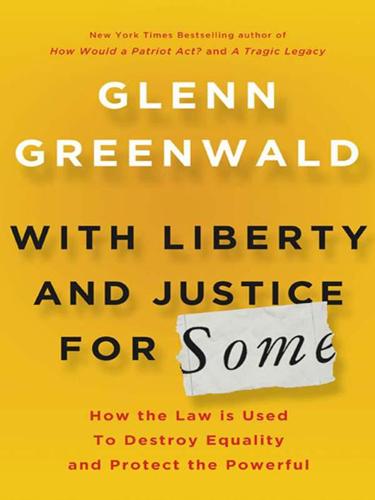
With Liberty and Justice for Some: How the Law Is Used to Destroy Equality and Protect the Powerful
by
Glenn Greenwald
Published 11 Nov 2011
Obama’s administration, once again, showed no interest in holding the perpetrators of these outrages responsible. Instead, the administration did something else entirely: it launched an all-out war on WikiLeaks itself. Numerous reports quickly surfaced that the Obama DOJ was actively attempting to indict WikiLeaks founder Julian Assange, an Australian citizen, under the Espionage Act of 1917—which, if successful, would be the first time in U.S. history that a nongovernment employee was convicted of espionage for publishing classified material. Meanwhile, a very sophisticated cyberattack temporarily drove WikiLeaks offline. Overt pressure from American government officials resulted in Australia threatening to revoke Assange’s passport.
…
Joe Lieberman, chairman of the Senate Homeland Security Committee, publicly warned companies not to associate with WikiLeaks in any way, after which the assets of WikiLeaks were frozen and the organization’s accounts with MasterCard, Visa, PayPal, and Bank of America were terminated, impeding the group’s ability to raise funds. What’s more, when a handful of teenage hackers targeted a few of these companies with some trivial “denial of service” attacks, Attorney General Holder announced that the DOJ was criminally investigating those attacks—but not the far more sophisticated and damaging cyber-attacks that had caused WikiLeaks to lose its Internet home. To recap “Obama justice,” then: if you create a worldwide torture regime, illegally spy on Americans without warrants, abduct people with no legal authority, or invade and destroy another country based on false claims, then you are fully protected.
…
He said, “I don’t want to get involved in hypotheticals.” What he didn’t disclose was that the Obama administration, working with Republicans, was actively pressuring the Spaniards to drop the investigation. Those efforts apparently paid off, and, as this WikiLeaks-released cable shows, Gonzales, Haynes, Feith, Bybee, Addington, and Yoo owed Obama and Secretary of State Hillary Clinton thank-you notes. The release of the WikiLeaks cable prompted the Philadelphia Daily News’s Will Bunch to write a scathing column titled “The Day That Barack Obama Lied to Me.” Recalling his interview with the candidate who had committed to look into Bush crimes, Bunch wrote: “The breakdown of justice in this country is far from exceptional.
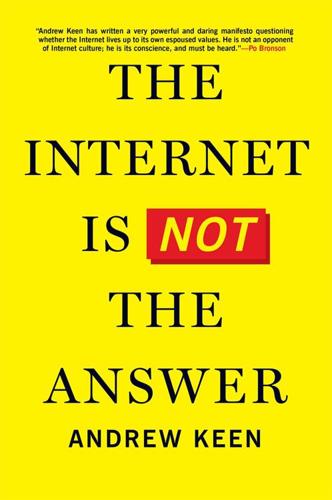
The Internet Is Not the Answer
by
Andrew Keen
Published 5 Jan 2015
TechCrunch’s Natasha Lomas suggests that Facebook’s “creepy data-grabbing ways,” such as the 2013 harvesting of the personal contact information of 6 million of its users, or that secret 2012 study to control the emotions of 689,000 of its users,9 make it the “Borg of the digital world.”10 WikiLeaks founder Julian Assange, who knows a thing or two about spying himself, even accuses Facebook of being the “greatest spying machine the world has ever seen.”11 So is Facebook really the greatest spying machine in world history—greater than either the Stasi, the CIA, or Google? Citing Google’s Street View car privacy violations, the German privacy regulator Johannes Caspar might doubt Assange’s assertion, as probably would privacy watchdogs in the United Kingdom, Germany, and Italy who collectively told Google in the summer of 2013 that the company would face legal sanctions unless it changed its 2012 policy of unifying personal data collected from all its different services.12 Others would also award this dubious honor to Google.
…
Chapter Seven 1 Noam Cohen, “Borges and the Foreseeable Future,” New York Times, January 6, 2008. 2 Victor Sebestyen, Revolution 1989: The Fall of the Soviet Empire (New York: Pantheon 2009), p. 121. 3 Ibid. 4 Anna Funder, Stasiland (London: Granta, 2003), p. 57. 5 Viktor Mayer-Schönberger and Kenneth Cukier, Big Data: A Revolution That Will Transform How We Live, Work and Think (Boston: Houghton-Mifflin, 2013), p. 150. 6 Andrew Keen, “Opinion: Beware Creepy Facebook,” CNN, February 3, 2012. 7 Ibid. 8 Karin Matussek, “Google Fined 145,000 Euros Over Wi-Fi Data Collection in Germany,” Bloomberg News, April 22, 2013. 9 Robert Booth, “Facebook Reveals News Feed Experiment to Control Emotions,” Guardian, June 29, 2014. 10 Natasha Lomas, “Facebook’s Creepy Data-Grabbing Ways Make It the Borg of the Digital World,” TechCrunch, June 24, 2013. 11 Patrick Kingsley, “Julian Assange Tells Students That the Web Is the Greatest Spying Machine Ever,” Guardian, March 15, 2011. 12 Charles Arthur, “European Watchdogs Order Google to Rewrite Privacy Policy or Face Legal Action,” Guardian, July 5, 2013. 13 Claire Cain Miller, “Google Accused of Wiretapping in Gmail Scans,” New York Times, October 1, 2013. 14 Las Vaas, “Google Sued for Data-Mining Student Email,” Naked Security, March 18, 2014. 15 Stefan Wolle, Die heile Welt der Diktatur, p. 186. 16 “The NSA’s Secret Spy Hub in Berlin,” Spiegel Online, October 27, 2013. 17 Ian Traynor and Paul Lewis, “Merkel Compared NSA to Stasi in Heated Encounter with Obama,” Guardian, December 17, 2013. 18 Duncan Campbell, Cahal Milmo, Kim Gengupta, Nigel Morris, and Tony Patterson, “Revealed: Britain’s ‘Secret Listening Post in the Heart of Berlin,’” Independent, November 5, 2013. 19 David Sellinger, “Big Data: Getting Ready for the 2013 Big Bang,” Forbes, January 15, 2013.
…
Certainly online eyes remain much less valuable than offline ones, with average advertising rates of the printed edition of a major newspaper being around ten times its online cost.36 The same is true of the value of offline versus online readers, with the Newspaper Association of America estimating that the average print reader is worth around $539 versus the $26 value of the online reader.37 And free certainly isn’t working as an economic model for online newspapers. Take, for example, the world’s third most frequently visited news website, the London Guardian. In spite of breaking the News of the World phone hacking scandal and the Edward Snowden and WikiLeaks stories, the Guardian has reported operating losses of more than £100 million since 2010, with a stunning £50 million lost just between 2012 and 2013.38 No wonder the Guardian is experimenting with a robot-generated print edition called #Open001, which replaces editors with algorithms to select relevant stories for publication.39 But robots can’t write the kind of high-quality journalism that distinguishes the Guardian from most of its rivals.
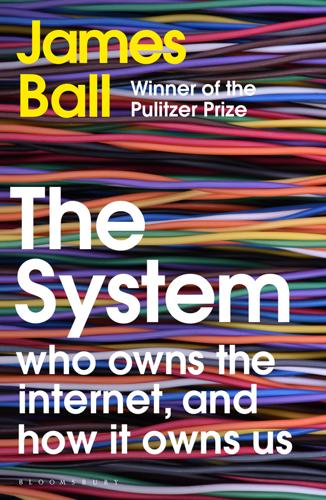
The System: Who Owns the Internet, and How It Owns Us
by
James Ball
Published 19 Aug 2020
Bamford, J., The Shadow Factory: The Ultra-Secret NSA from 9/11 to the Eavesdropping on America, Anchor, 2009. Bartlett, J., People Vs Tech, Ebury Press, 2018. Beckett, C., and Ball, J., Wikileaks: News in the Networked Era, Polity, 2012. Blum, A., Tubes, Viking, 2019. Greenwald, G., No Place to Hide: Edward Snowden, the NSA and the Surveillance State, Penguin UK, 2015. Harding, L., The Snowden Files, Guardian Faber Publishing, 2016. Leigh, D., Wikileaks: Inside Julian Assange’s War on Secrecy, Guardian Books, 2010. Miller, C., The Death of the Gods: The New Global Power Grab, Windmill Books, 2019. Susskind, J., Future Politics: Living Together in a World Transformed by Tech, Oxford University Press, 2018.
…
Particular thanks are also due to Nick Hancock and his current fiancée for actually giving up their home permanently during the reporting of the book. Several chapters of this book draw from previous reporting projects I’ve been lucky to have been part of. On WikiLeaks, David Leigh and Luke Harding were a pleasure to work with and their book is a valuable reminder of the time. LSE’s Charlie Beckett was a joy to co-write an academic book with on the era. As to those within WikiLeaks itself, the good ones know who they are, even if the world doesn’t – and Chelsea Manning deserves to be a free woman. I discovered the surprisingly strange world of ICANN thanks to a story idea from Merope Mills, and worked with Laurence Mathieu-Léger reporting the feature and the video, which was a joy.
…
The reach and scale of the internet would enable a ‘long tail’ of small and independent producers to flourish. Online companies were launched talking in earnest terms of changing the world, with ‘don’t be evil’ mantras alongside – and generous share options making even their office decorators rich. For a long time, you could convince yourself it was all the real deal. At the start of the last decade, WikiLeaks used its unique online platform to challenge the world’s biggest superpower with an unprecedented series of leaks. Shortly afterwards, the world’s biggest social media companies were credited with boosting Arab Spring protests against corrupt and dictatorial governments. Such was the mood towards the internet that the exultant opening ceremony to the 2012 London Olympics culminated in a seventeen-minute dance sequence celebrating Tim Berners-Lee for creating the World Wide Web and giving it to the world for free.

Animal: The Autobiography of a Female Body
by
Sara Pascoe
Published 18 Apr 2016
What keeps surprising me is how relaxed some people seem about men using women’s bodies. Like there’s something ‘natural’ or understandable about it. I’ll give you an example. In 2010, a warrant was issued by Swedish police for the arrest of Julian Assange. The case gained a lot of publicity because of Assange’s pre-existing notoriety as the co-founder of the WikiLeaks website. He was accused of rape by one woman and of molestation by another. In both cases the alleged assault took place AFTER consensual sex. In the first account, a woman who willingly had sex with Assange one night, at her apartment, awoke the next morning to find that he was having penetrative intercourse with her against her will.
…
But if I tell you I was mugged by someone with no weapon but I still gave him all my money and was scared for my life … then maybe you fail to sympathise. I was stupid or weak, I did something wrong. You might walk away muttering, ‘Wasn’t really a mugging at all, I dunno why she’s so upset about it.’ Which was how George Galloway reacted to the claims against Julian Assange. In a podcast the politician went on record to say: ‘Even taken at its worst, if the allegations made by these two women were true, one hundred per cent true, and even if a camera in the room captured them, they don’t constitute rape. At least not rape as anyone with any sense can possibly recognise it.
…
In 2005 the Swedish penal code was extended and clarified so that ‘this also applies if a person engages with another person in sexual intercourse or in a sexual act by improperly exploiting that person, due to unconsciousness, sleep, serious fear, intoxication or other drug influence, illness, physical injury or mental disturbance, or otherwise in view of the circumstances, is in a particularly vulnerable situation’. George Galloway may not recognise the allegations against Julian Assange as rape but the Swedish legal system most certainly does. ‘Sleep’, it says. In between ‘unconsciousness’ and ‘serious fear’, recognised as a state in which someone cannot properly give their consent. Oh but that’s in liberal old Sweden,† maybe the confusion has arisen because our British legal system has a different definition and putting your erect penis in sleeping folk is okay here … let me check … okay, so looking at statutory law, since 1956 rape is ‘unlawful sexual intercourse with a woman who at the time of the intercourse does not consent to it’, when either the rapist ‘knows that she does not consent to the intercourse or he is reckless as to whether she consents to it’.
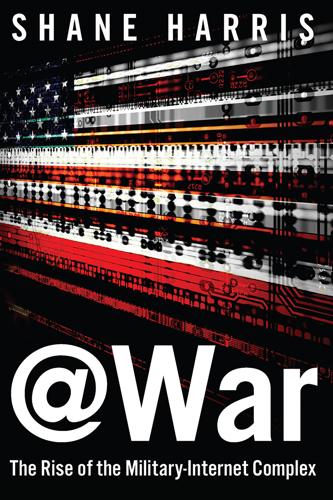
@War: The Rise of the Military-Internet Complex
by
Shane Harris
Published 14 Sep 2014
Hunton & Williams asked the trio, which operated under the name Team Themis, if they could do the same job for supporters of WikiLeaks, and also if they could locate where the organization was storing classified information it got from its anonymous sources. “Apparently, if they can show that WikiLeaks is hosting data in certain countries, it will make prosecution easier,” a member of the trio wrote in an e-mail to his colleagues. Justice Department officials were looking for information they could use to indict WikiLeaks’ founder, Julian Assange, who had posted classified military intelligence reports and State Department cables. Now the feds wanted to outsource part of their investigation, by putting Bank of America in touch with Team Themis, which drew its name from the mythological Greek Titan who represented “divine law,” as opposed to the law of men.
…
The CEO of HBGary, Aaron Barr, said the team should collect information about WikiLeaks’ “global following and volunteer staff,” along with the group’s donors, in order to intimidate them. “Need to get people to understand that if they support the organization we will come after them,” Barr wrote in an e-mail. He suggested submitting fake documents to WikiLeaks in hopes that the site would publish them and then be discredited. Barr also urged targeting “people like Glenn Greenwald,” the blogger and vocal WikiLeaks supporter, and he said he wanted to launch “cyberattacks” on a server WikiLeaks was using in Sweden, in order to “get data” about WikiLeaks’ anonymous sources and expose them.
…
The Los Angeles Police Department is another Palantir customer, as is the New York Police Department, which runs an intelligence and counterterrorism unit that many experts believe is more sophisticated than the FBI’s or the CIA’s. Though Team Themis failed, the US government has turned to other private cyber sleuths to go after WikiLeaks and help with other investigations. Tiversa, a Pittsburgh-based company, grabbed headlines in 2011 when it accused WikiLeaks of using peer-to-peer file-sharing systems, like those used to swap music downloads, to obtain classified US military documents. WikiLeaks, which claims only to publish documents that it receives from whistleblowers, called the allegations “completely false.” Tiversa gave its findings to government investigators, who had been trying to build a case against Assange.
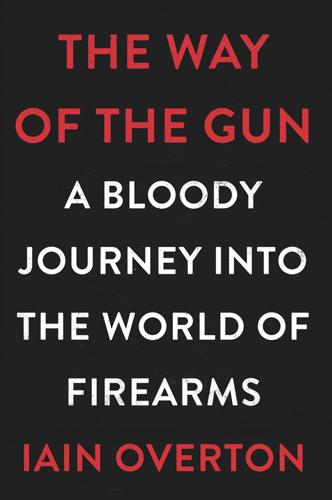
The Way of the Gun: A Bloody Journey Into the World of Firearms
by
Iain Overton
Published 15 Apr 2015
I was told this could be of real interest to me, and on hearing his name I thought the same. Julian Assange – the Australian provocateur, a Scarlet Pimpernel for our digital age – wanted to talk. Julian was at London’s choice venue for hard-bitten hacks and war correspondents, the Frontline Club in Paddington. Heading there, I found him holed up in one of their rooms, being interviewed by CNN. Nervous and a little self-conscious, he was unused to the media spotlight and here he was being asked about a set of documents his whistleblowing organisation, Wikileaks, had just released: a cache of military reports that exposed the truth about America’s war in Afghanistan.
…
Power 5. THE KILLERS The world of mass shooters and assassins – Finland recalled – a bloody day in a teaching college – the American mass shooter examined – Norway – travelling into the wilds – the scene of the worst mass shooting in history – an Oslo drink with a killer’s expert – a meeting with Julian Assange in London – the ugly offerings of the dark web There are many types of people who kill other people with guns. There are those who do so for the explicit control of power. They are, by and large, criminals, gang members, terrorists, policemen or military personnel. When they pull a trigger and a life is ended, people in one of these groups do so out of obedience to a specific ideology or dogma.
…
He told me about TOR, a system that allows its users to search the internet without their computer’s address being revealed. One that lets you look at websites untraced, because TOR wraps your servers’ information around other servers’ information, hiding you behind peeled layers of anonymity, like an onion. Clearly, the head of Wikileaks needed the anonymity that TOR offers, just like investigative journalists do. But some others do not. Others use TOR not out of need, but desire. For many things lurk deep in the hearts of men, and if you give them a tool to hide their identities they will use it. Within minutes I had access to sites that sold things like $20 syringes full of HIV positive blood, a vendetta’s stabbing tool.
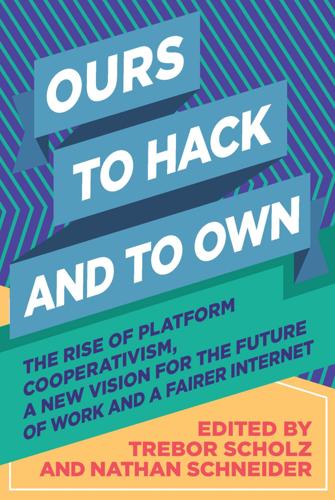
Ours to Hack and to Own: The Rise of Platform Cooperativism, a New Vision for the Future of Work and a Fairer Internet
by
Trebor Scholz
and
Nathan Schneider
Published 14 Aug 2017
FURTHER RESOURCES LAUNCH EVENT “Platform Cooperativism: The Internet, Ownership, Democracy,” The New School (November 2015), video archive: http://platformcoop.net/2015/video READINGS Trebor Scholz, “Platform Cooperativism vs. the Sharing Economy,” Medium (December 5, 2014), https://tinyurl.com/oj8rna2 Nathan Schneider, “Owning Is the New Sharing,” Shareable (December 21, 2014), http://shareable.net/blog/owning-is-the-new-sharing Janelle Orsi, Frank Pasquale, Nathan Schneider, Pia Mancini, Trebor Scholz, “5 Ways to Take Back Tech,” The Nation (May 27, 2015), http://thenation.com/article/5-ways-take-back-tech Trebor Scholz, Platform Cooperativism: Challenging the Corporate Sharing Economy (Rosa Luxemburg Stiftung, New York Office, 2016, with additional translations in Spanish, French, Portuguese, German, Italian, and Chinese), http://platformcoop.net/about/primer Trebor Scholz, Uberworked and Underpaid: How Workers are Disrupting the Digital Economy (Polity, 2016) WEBSITES Platform Cooperativism portal, http://platformcoop.net Platform Cooperativism Consortium, http://platformcoop.newschool.edu The Internet of Ownership, http://internetofownership.net Shareable, http://shareable.net Sustainable Economies Law Center, http://theselc.org OR Books PUBLISHING THE POLITICS OF THE INTERNET What’s Yours is Mine: Against the Sharing Economy TOM SLEE Black Ops Advertising: Native Ads, Content Marketing, and the Covert World of the Digital Sell MARA EINSTEIN Splinternet: How Geopolitics and Commerce are Fragmenting the World Wide Web SCOTT MALCOLMSON Lean Out: The Struggle for Gender Equality in Tech and Start-Up Culture ELISSA SHEVINSKY, EDITOR When Google Met WikiLeaks JULIAN ASSANGE The Big Disconnect: Why the Internet Hasn’t Transformed Politics (Yet) MICAH L. SIFRY Cypherpunks: Freedom and the Future of the Internet JULIAN ASSANGE WITH JACOB APPELBAUM, ANDY MüLLER-MAGUHN, AND JéRéMIE ZIMMERMANN Hacking Politics: How Geeks, Progressives, the Tea Party, Gamers, Anarchists and Suits Teamed Up to Defeat SOPA and Save the Internet DAVID MOON, PATRICK RUFFINI, AND DAVID SEGAL, EDITORS For more information, visit our website at www.orbooks.com
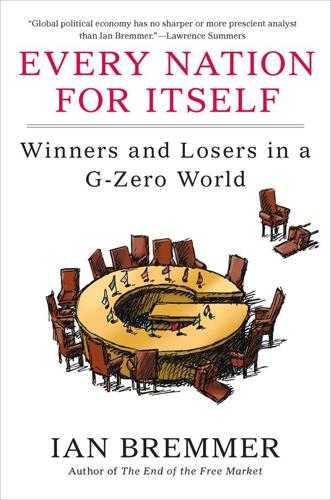
Every Nation for Itself: Winners and Losers in a G-Zero World
by
Ian Bremmer
Published 30 Apr 2012
Finally comes the threat posed by info-anarchists and technically sophisticated criminals. In 2010, WikiLeaks founder Julian Assange barely missed becoming Time magazine’s Person of the Year after the release of thousands of politically sensitive documents badly embarrassed Washington and other governments around the world.5 In 2011, efforts by several governments to shut him and WikiLeaks down made him the world’s first cybermartyr. In response, an army of info-anarchists operating under the name Anonymous launched cyberattacks on those governments and denial-of-service attacks on financial services companies PayPal and MasterCard after they severed ties with WikiLeaks. Other companies have become targets of online criminals.
…
climate change and, 94 as debtor nation, 65, 158, 187 decline of, 63–66 defense program of, 12, 71, 76, 186, 191 entitlement programs in, 12–13, 65, 190 federal debt of, 3, 12, 34, 38, 51, 60, 62, 81, 172, 186, 189 fiscal stimulus in, 11 in G2 with China, 155–84 growing divergence with Chinese economic policies, 62–63, 77 intellectual property laws and, 84 Internet protocol in, 89 leadership role of, 3, 5, 14–15, 24, 25, 40–41, 111, 129, 154, 195 loss of manufacturing jobs in, 64 military commitments of, 187 nuclear program of, 59 oil exported by, 47–48 outsourcing by, 126–27 Pakistan’s relationship with, 115 pollution caused by, 158 poor infrastructure of, 186, 189 possibility of Chinese war with, 170–74 reduced role of, 194, 195 smart grids in, 73 taxes in, 190 trade by, 116–17, 120, 143, 153, 154, 158, 163 unemployment in, 77 in withdrawal from Iraq, 32 in world currency and debt crises, 38 United States and the World Economy, The (Bergsten), 157–58 urbanization, 52, 99, 104–5, 118 Uzbekistan, 135 Varyag, 23 vegetable oil, 100 Venezuela, 25, 48, 138, 168, 177, 182 state capitalism in, 78 Vietnam, 23, 70, 114, 121, 129, 140–41, 194 multinationals in, 80 rice exported by, 102 water security in, 105 Vietnam War, 49 Voice of America, 92 WAPI, 86 war on terror, 11 wars, 123 prevention of, 68 Warsaw Pact, 53 Washington, George, 7 Washington Consensus, 42, 46, 174 water, 68 security of, 3, 5, 97, 104–7, 129–30, 140, 147 Wells, H. G., 86–87 Wen Jiabao, 8, 12, 21, 143 Western Europe, 46–47 oil imported by, 47 West Germany, 45, 46, 47, 53, 82, 165 Wi-Fi, 86 WikiLeaks, 75 World Bank, 4, 28, 29–30, 99, 104, 118, 134, 135 American and European influence in, 42, 43–44 creation of, 39, 43 in world currency and debt crises, 38 World Brain (Wells), 86–87 World Trade Organization, 60 Doha Round, 103 World War I, 3, 11, 40, 141, 167, 170 World War II, 11, 38–40, 56–57, 151, 170, 187 Xinhua, 8, 62, 70 Yanukovych, Viktor, 138 Yeltsin, Boris, 54 Yemen, 14, 67, 114 chaos in, 112, 175, 183 yen, 83 Yom Kippur War, 48–49 yuan: China accused of manipulation of, 79–80, 154, 161–62 as international currency, 83 Yugoslavia, 32 Zambia, 119, 120 Zimbabwe, 7–8, 130, 131–32 Zoellick, Robert, 157 ALSO BY IAN BREMMER The End of the Free Market: Who Wins the War Between States and Corporations?
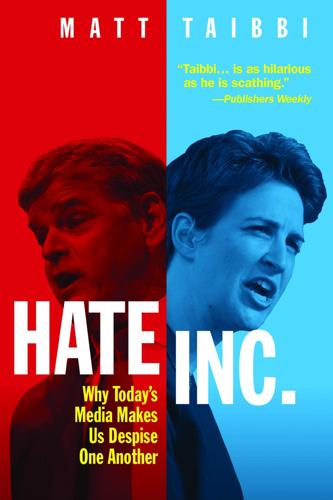
Hate Inc.: Why Today’s Media Makes Us Despise One Another
by
Matt Taibbi
Published 7 Oct 2019
I call these stories “four-sourced clovers,” because the number of unnamed sources claiming to bolster such questionable scoops has, humorously, grown over time. The “senior Russian intelligence officials” story James Comey was forced to shoot down in 2017 had four unnamed sources. So did one suggesting Trump was about to fire the Fed chair. Luke Harding had two for his recent Guardian bombshell about Paul Manafort supposedly having met with Julian Assange (that story is still unconfirmed). Some of these stories begin with a single high-ranking intelligence official speaking to a reporter (or team of reporters) at an esteemed paper like the Times or the Washington Post. The reporters might ask for additional confirmation. The official may give them some names.
…
How is it possible NBC and other outlets continued to use New Knowledge as a source in stories identifying antiwar Democrat Tulsi Gabbard as a Russian-backed candidate? How do the Guardian’s editors not already have Harding’s head in a vice for hanging them out to dry on the most dubious un-retracted story in modern history—the tale that the most watched human on earth, Julian Assange, had somehow been visited in the Ecuadorian embassy by Paul Manafort without leaving any record? I’d be dragging Harding’s “well placed source” into the office and beating him with a hose until he handed them something that would pass for corroborating evidence. The lack of blowback over episodes in which reporters were put in compromised public situations speaks to the overly cozy relationships outlets had with official sources.
…
Four more CNN reporters (Gloria Borger, Eric Lichtblau, Jake Tapper and Brian Rokus) were bylined in a story that claimed Comey was expected to refute Trump’s claims he was told he wasn’t the target of an investigation. Comey blew that one up, too. In another CNN scoop gone awry, “Email pointed Trump campaign to WikiLeaks documents,” the network’s reporters were off by ten days in a “bombshell” that supposedly proved the Trump campaign had foreknowledge of Wikileaks dumps. “It’s, uh, perhaps not as significant as what we know now,” offered CNN’s Manu Raju in a painful on-air retraction. The worst stories were the ones never corrected. A particularly bad example is “After Florida School Shooting, Russian ‘Bot’ Army Pounced,” from the New York Times on February 18, 2018.
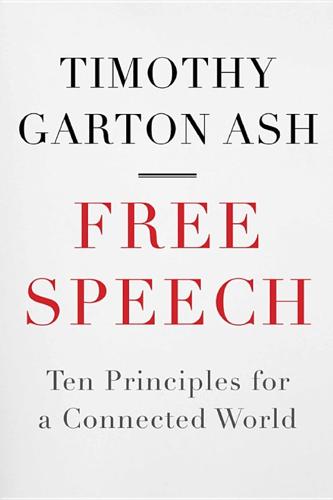
Free Speech: Ten Principles for a Connected World
by
Timothy Garton Ash
Published 23 May 2016
Many Americans will think of the publication of the Pentagon Papers by the New York Times and Washington Post in the early 1970s: leaked copies of internal US government reports showing just how unsuccessfully and mendaciously the United States was prosecuting the Vietnam War. More recently, we think of the publication by the Guardian and other leading newspapers and magazines—including Der Spiegel, Le Monde and The Hindu—of carefully redacted versions of secret US State Department communications leaked by Private Bradley (subsequently Chelsea) Manning via Julian Assange’s WikiLeaks, and then a selection of the NSA and GCHQ documents passed to them by Snowden. When he first met the journalists involved, in a hotel in Hong Kong, Snowden specifically explained that he wanted experienced news media to decide what it would be in the public interest to publish.56 One can always argue about this or that specific editorial decision, but in general, these newspapers exercised an important controlling function in the public interest; one which government, parliament and the courts had failed to perform.
…
But maybe the combined secret power of the state and companies, P2, is sometimes such that you need these extraordinary measures to combat it? It was not just hacktivists who covered their faces with the stylised Guy Fawkes mask of Anonymous, inspired by the film ‘V for Vendetta’, when they joined real-life protests at what they saw as the abuse of anonymous state and corporate power revealed by Julian Assange and Edward Snowden.144 After all, police or secret services would photograph you as you marched, and enter your digital image ineradicably into a searchable database. Perhaps it takes anonymous to restrain the power of anonymous? 8 SECRECY ‘We must be empowered to challenge all limits to freedom of information justified on such grounds as national security’.
…
The US supports such technologies to promote the spread of good things (democracy, human rights, free speech) and opposes them to prevent the spread of bad ones (terrorism, cybercrime, child pornography, infringements of intellectual property). But who decides what is good or bad? The United States. A State Department spokesperson, asked to explain the apparent inconsistency between her criticism of the Indian government for blocking sites the Indian government considered dangerous and Washington’s own stance on Wikileaks, said: ‘WikiLeaks didn’t have to do with freedom of the internet. It had to do with . . . the compromise of US Government classified information’.87 While governments must naturally assert perfect consistency, there is a tension here, as America’s left hand points in a different direction to and sometimes wrestles with its right.
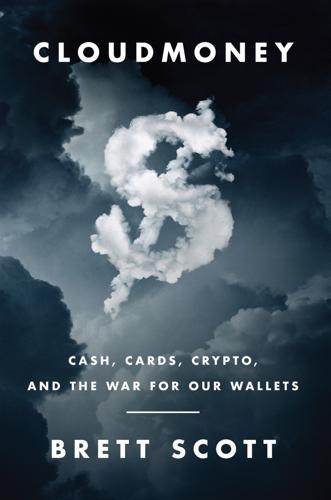
Cloudmoney: Cash, Cards, Crypto, and the War for Our Wallets
by
Brett Scott
Published 4 Jul 2022
The cyber-resistance In the early days of the Internet, the fear of looming conglomerations of corporate and state leviathans led to the emergence of so-called cypherpunks and crypto-anarchists. Starting out in the early 1990s, they foresaw the spread of digital surveillance and began an urgent quest to use cryptography – the military art of sending and verifying secret messages – to create autonomous Internet communities. Cypherpunks went on to spearhead divergent movements (WikiLeaks’ Julian Assange was a member) but they also set out to pioneer anonymous digital money. David Chaum (whom we met here), for example, saw dystopian potentials in a future cashless society and proposed a system called DigiCash as a private layer grafted over the normal bank system. The cypherpunks drew upon a range of political traditions, and were an offshoot of radical hacker culture.
…
Morgan, 8, 96, 150, 156, 227, 232 Jamaica, 42 Japan, 18, 35, 135, 215, 248 Johannesburg, South Africa, 129 Johnson, Alexander Boris, 38 Kazakhstan, 11, 227–9, 233, 247 Keep Cash UK, 262 Kelly, Kevin, 12 Kentridge, William, 144 Kenya, 47, 75, 129, 130–31, 169, 178, 179 Kerouac, Jack, 173, 175 Keynesianism, 80 ‘Kindness is Cashless’, 40 Kiva, 238 Kowloon Walled City, Hong Kong, 216, 219, 220, 226 Kuala Lumpur, Malaysia, 60, 74 Kurzweil, Ray, 153, 252–3 Kyoto, Japan, 135 La Guardia Airport, New York, 128 learning methodology, 163–4 left-wing politics, 7, 184, 191, 211–12, 215 Lehman Brothers, 17–18 Lenddo, 169 Level 39, Canary Wharf, 17, 20, 27, 41, 143 Leviathan (Hobbes), 177 leviathans, 177–84, 215–16 libertarianism, 7, 14, 42, 155, 156, 184 cryptocurrency and, 191, 212, 215–16, 225–6 Libra, 236–41, 245 Litecoin, 218 Lloyds, 72–3, 144, 146 loans, 70–71, 107, 159 artificial intelligence and, 167–8, 172 London, England, 128, 247, 248 Brixton Market, 177 Camberwell, 128 Canary Wharf, 17–18, 20, 41, 62, 211 City of London, 6, 135 Mayor’s Fund, 38 Somali diaspora, 116, 179 Stock Exchange, 24 Underground, 11, 37–8, 86, 87 longevity derivatives, 160 Lonsdale, Joe, 155 Lord of the Rings, The (Tolkien), 19, 155 Los Angeles, California, 101 Luther, Martin, 212 M-Pesa, 79, 109 machine-learning systems, 163–4 Macon, USS, 153 Mafia, 163 Main Incubator, 143 Malaysia, 7, 45, 60, 74 Malick, Badal, 127–8 malware, 32 manifest destiny, 212 ‘Manifesto for Cashlessness’ (Emili), 37 Maputo, Mozambique, 96 Marcus, David, 237, 241 Maréchal, Nathalie, 113 marijuana industry, 101–3 market price, 29, 171 markets, 65, 124–6, 176–80 choice and, 124–6 giant parable, 54 informal, 176–9 oligopolies and, 124–5 payments companies and, 29, 30, 31, 32–3 Marxism, 155, 262 Massachusetts, United States, 46 Massachusetts Institute of Technology (MIT), 7 Mastercard, 30, 37, 39, 77, 91 automatic payments, 149 data, 109, 111 financial inclusion and, 131–2 Wikileaks blockade, 116 Masters, Blythe, 232 Matrix, The (1999 film), 226 Mayfair, London, 6 McDonald’s, 145, 153 Medici family, 135 Melanesia, 255–6 Mercy Corps, 131, 132 Mexico, 42 Microsoft, 7 Azure cloud, 233 Word, 32, 156 middle class, 86, 128, 129 Mighty Ducks, The (1992 film), 234 Military Spouse, 153 millennials, 86, 140 Minority Report (2002 film), 10 mis-categorisations, 167 mist, 30–33 MIT Media Lab, 7 Modi, Narendra, 43, 93 Moffett airfield, California, 153 Monetarism, 80 money creation, 59–63, 67–72, 202 Money Heist (2017 series), 61 money laundering, 42, 116 money users vs. issuers, 50–52 money-passers, 30, 32–3 Monzo, 113, 142 Moon Express Inc., 153 mortgages, 26–7, 94 motor cortex, 248 Mountain View, Silicon Valley, 153 Moynihan, Brian, 38 Mr Robot, 184 Mubarak, Hosni, 116 Mugabe, Robert, 239–41 Mumbai, India, 96 Musk, Elon, 15, 212, 257 mutual credit systems, 259–60 N26, 142 Nairobi, Kenya, 129, 179 Nakamoto, Satoshi, 13, 184–5, 187, 191, 204 NASDAQ, 157, 233 National Aeronautics and Space Administration (NASA), 153 National Arts Festival, 144 National Retail Federation, 86 National Security Agency (NSA), 112, 155 Nationwide, 145–6 Natural Language Processing (NLP), 146 natural market order, 192 Nazarbayev, Nursultan, 227 Neener Analytics, 169 neo-Nazism, 226 nervous system, 20–22, 57, 80, 81, 240, 247–8, 251–2 Nestlé, 24, 28 Netflix, 61 Netherlands, 48, 49, 128–9 Nets Union Clearing Corp, 115 Network Computing, 78 New Age spiritualism, 7, 14, 193, 226 New Jersey, United States, 46 New Scientist, 137 New World Order, 261 New York City, New York, 18, 91–2, 128, 248 La Guardia Airport, 128 Wall Street, 6, 178–9 Nigeria, 43 No Cash Day, 37 no-file clients, 169 Nobel Prize, 93 nomadism, 228 non-seepage, 73 Norway, 35 nudging, 39, 93, 114 Nur-Sultan, Kazakhstan, 11, 227–9 O’Gieblyn, Meghan, 154 Oakdale, California, 101 Occupy movement (2011–12), 211, 215 Office of National Statistics, 83 oil industry, 6, 22–4 oligopolies, 2, 12, 15, 89, 124–5, 142, 151, 180–83, 191 cryptocurrencies and, 229–33, 246 On the Road (Kerouac), 173, 175 OpenBazaar, 229 OpenOil, 24 operating system, 141–2 Oracle, 109 Oxford English Dictionary, 144 Pakistan, 61 Palantir, 155, 157, 226 Panama Papers leak (2016), 81 panopticon effect, 118–19, 172 Papua New Guinea, 191 passive process, 125–6 PATRIOT Act (2001), 111, 179 payments companies, 30, 32–3, 39–41, 77–8, 79 automatic payments, 149 data, 108–9 interpellation, 86–7 plug-ins, 79, 115, 141–2 PayPal, 50, 79, 109, 155, 226, 233–7, 243 New Money campaign (2016), 86–7 Wikileaks blockade, 116 Payter, 31–2 Paytm, 44, 79, 150 Peercoin, 218 Penny for London, 37–8 pension funds, 7, 23 People’s Bank of China, 79, 242 periphery, 28, 248 Peru, 129–30, 176 Peter Diamandis, 153 Philadelphia, Pennsylvania, 41, 133 Pierce, Brock, 234 Piercy, Marge, 150 Pisac, Peru, 129 point-of-sales devices, 40, 77, 130 points of presence, 148 poker games, 91 Poland, 37, 91 police, trust in, 93 Politics of Bitcoin, The (Golumbia), 225 posture, 49 pre-capitalist societies, 55, 215, 251 Premier League, 231 primary system, 50–64 Privacy International, 168 privacy, 2, 43, 44, 46, 47, 104–19 private blockchains, 229, 231 Prohibition (1920–33), 102 promises, 50, 52, 58–9, 61, 70–72, 205–6, 259–60 casino chips, 68–9 deposits as, 69 digital money, 70–72 giant parable, 52–6, 63–4, 188 loans, 70–71, 107, 159 mutual credit systems, 259–60 Promontory Financial Group, 38 Protestantism, 212, 255 psilocybin, 226 psychometric testing, 169 pub quizzes, 91 Pucallpa, Peru, 130, 176, 249 Puerto Rico, 234 Quakers, 135 Quechuan people, 129 Quorum, 232 R3, 233 RAND Corporation, 105 re-localisation, 259 re-skinning, 16, 135–51, 171, 175 Red Crescent, 131 refugees, 131–2 Reinventing Money conference (2016), 31 remittances, 105, 116 Revolut, 140, 142 right-wing politics, 7, 14, 184, 191–3, 211–12, 215, 225–6, 261 rippling credit, 260 risk-adjusted profit, 94 Robert Koch Institute, 34 robotics, 11 Rogoff, Kenneth, 47, 92–3 rolling blackouts, 247 Roman Empire (27 BCE–395 CE), 55–6 Romeo and Juliet (Shakespeare), 29, 30, 32 Rowe, Paulette, 38 Royal Bank of Canada, 158 Royal Bank of Scotland, 62 Russia, 6, 42, 48, 140, 227 Samsung, 11 San Francisco, California, 35, 46, 119, 133, 179, 247 Sān people, 4 Santander, 38 Sardex system, 259 Satoshi’s Vision Conference, 215 Save the Children, 131 savers, 25 Scott, James, 228 seasteading, 156, 216 secondary system, 50, 63–4 self-service, 145–6 SEPA, 80 September 11 attacks (2001), 111 Serbia, 7 sex workers, 96 Shakespeare, William, 29 Shanghai, China, 18, 115, 248 Shazam, 180 Sherlock Holmes series (Doyle), 114, 162, 165, 166 Shiba Inu, 13 Shipibo-Conibo people, 130 Sikoba, 260 Silicon Valley, 7, 9, 139–41, 148, 153, 180, 221 Libra, 237 Singularity, 154–6, 252–3 Silk Road, 227, 229 Singapore, 11, 18, 168, 248 Singularity, 153–6, 226, 252, 252–3 Singularity University, 153–6, 252–3 six degrees of separation theory, 260 skyscrapers, 17–20, 27, 253 slow-boiling frogs, 104 smart cities, 11, 180 smart contracts, 220–24, 258 smart homes, 180 smartphones, 4, 28 financial inclusion and, 95 posture and, 49 Smith, Adam, 251 smoking, 181 Snow Crash (Stephenson), 10 social class, 91–9, 113, 128, 129, 155, 167 Somalia, 116, 179 South Africa, 3–4, 11, 28, 55, 62, 128, 175–6 apartheid, 95 hut tax, 55 National Arts Festival, 144 rolling blackouts, 247 syncretism in, 175–6 South Sudan, 105 Spiegel, Der, 112 Spotify, 166 spread-betting companies, 26 stablecoins, 233–41, 245–6, 255 Standard Bank, 95, 144 states, 42–5, 50–64, 176–85, 215 anti-statism, 42, 184, 215–16 base money, 69 centralisation of power, 15, 180–83 cryptocurrency and, 215 data surveillance, 110–12, 114–15, 155, 168 digital currencies, 242–5 expansion and contraction, 57–8 giant parable, 52–6, 63–4 markets and, 176–80 money issuance, 58–9 primary system, 50, 51, 63 Stockholm syndrome, 121, 131 sub-currencies, 72–3 sub-prime mortgages, 26–7, 94 subsidiary companies, 24, 26–7 Sufism, 91 suits, 124 Sunset Boulevard, Los Angeles, 101 Super Bowl, 8, 261 super-system, 3 supply, 29 surveillance, 2, 7, 8, 10, 15, 33, 39, 42, 72, 104–19, 153–72, 180, 250 artificial intelligence and, 153–72 banking sector and, 108–9 Big Brother, 113–15 CBDCs and, 244, 245 panopticon effect, 118–19, 172 payments censorship, 116–18 predictive systems, 105 states and, 110–12, 114–15, 168 Suspicious Activity Reports (SARs), 111 Sweden, 35, 43, 48, 84, 121 Sweetgreen, 91, 93 SWIFT, 32, 75–6, 80, 108, 112 Switzerland, 35, 108 Symbiosis Gathering, 101 syncing, 195–7, 200–202, 231 syncretism, 175–6 systems failures, 32, 34, 48 Szabo, Nick, 220 Taiwan, 234, 235 Tala, 169 taxation, 55, 57, 110 evasion, 42, 43, 45, 46 TechCrunch Disrupt, 130 Tencent, 2, 7, 114, 178 terrorism, 42, 48, 112, 127 Tether, 234–5, 241 Thaler, Richard, 93 Thatcher, Margaret, 193 Thiel, Peter, 155, 226 thin-file clients, 169 timelines, 197–200 Times of India, 44 tobacco, 181 Tokyo, Japan, 18, 215, 248 Tracfin, 112 transfers, 74–8 transhumanism, 180 Transport for London, 11, 37–8, 86, 87 Transylvania, 65 Trustlines, 260 Twitter, 167, 198 Uber, 2, 149, 177, 179, 237 Uganda, 168 unbanked, 35, 94, 181, 238 underdog, support for, 106 Unilever, 99, 131 United Kingdom American Revolutionary War (1775–83), 60 banking oligopoly, 230 Canary Wharf, 17–18, 20, 41, 62, 211 cash use in, 249 City of London, 6, 135 colonialism, 55, 97, 175–6, 178, 239 digital money system in, 72 GCHQ, 112 HMRC, 110 Premier League, 231 Royal Mint, 60 Somali diaspora, 116, 179 Taylor Review (2016–17), 110 Transport for London, 11, 37–8, 86, 87 United Nations, 14 blockchain research, 222 Capital Development Fund, 37 World Food Programme, 132 United States cash use in, 41, 46, 133 CBDCs and, 244–5, 254 Central Intelligence Agency (CIA), 155 China, relations with, 74–5, 245, 255 data surveillance, 111–12, 155 dollar system, 80, 182, 210, 233–6, 239, 240 Federal Bureau of Investigation (FBI), 111, 155 Federal Reserve, 32, 35, 36, 234 Financial Crimes Enforcement Network, 111 hurricanes in, 36 leviathan complex, 178 marijuana industry, 101–3 NASA, 153 National Security Agency (NSA), 112, 155 Occupy movement (2011–12), 211, 215 PATRIOT Act (2001), 111, 179 Prohibition (1920–33), 102 Revolutionary War (1775–83), 60 Senate, 105–6 September 11 attacks (2001), 111 Singularity University, 153–6 Super Bowl, 8, 261 Wall Street, 6, 178–9 Uruguay, 42 USAID, 45, 127, 178, 179, 245 vending machines, 31–2, 220 Venmo, 79, 243 Ver, Roger, 212, 214, 215 Vienna, Austria, 7 virtual reality, 10 Visa, 15, 30, 31, 37, 39, 40, 41, 44, 77, 80, 127, 174, 255 automatic payments, 149 data, 108, 109, 111, 112 plug-ins, 142 USAID and, 128, 178, 245 Wikileaks blockade, 116 VisaNet, 77 Wall Street, New York City, 6, 178–9 Occupy movement (2011–12), 211, 215 Wall Street (1987 film), 8 Wall Street Journal, 133 Warner, Malcolm, 106 WarOnCash, 37 Weber, Max, 179 WeChat, 79, 109, 114–15, 150 welfare, 43, 113, 118 Wells Fargo, 109, 234, 235 WhatsApp, 75, 198, 237–8, 244, 255 Wikileaks, 116, 183 Wilson, Cody, 216 Winton Motor Carriage Company, 87, 90 Wired, 12 World Economic Forum, 11 World Food Programme, 132 World Health Organisation (WHO), 34 World of Warcraft (2004 game), 234 Xhosa people, 175–6 YouTube, 163, 166, 167, 170 Zambia, 131 Zimbabwe, 11, 239–41, 245 Zuckerberg, Mark, 241 About the Author BRETT SCOTT is an economic anthropologist, financial activist, and former broker.
…
Nation states can wield power by preventing their banks from processing transactions of key foreign businesses or individuals, or getting them to freeze accounts (such as those of former rulers like Egypt’s Hosni Mubarak). In places like India, Greenpeace’s bank accounts have been subject to freezes to stop it engaging in political activism, while Wikileaks was famously subject to a ‘banking blockade’. In the latter, Visa, PayPal and Mastercard refused to process donations to the site, without being ordered to do so. While the techniques described above are effective in the international payment realm, and effective against wealthy individuals and institutions, they cannot easily be used against poorer people who operate with cash in more local settings.
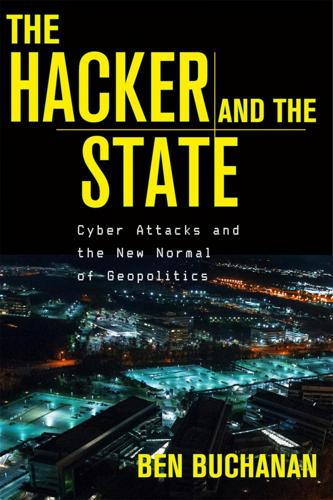
The Hacker and the State: Cyber Attacks and the New Normal of Geopolitics
by
Ben Buchanan
Published 25 Feb 2020
Among other things, they noted overlaps in the hacking infrastructure used to target the Democratic organizations and other operations attributed to Russia, including a notable one against the German Parliament.29 As an amusing extra sign that something was amiss, when a journalist interviewing Guccifer online asked him to switch over to his native Romanian, it quickly became apparent that he did not speak the language.30 Enter WikiLeaks. Even prior to the Democrats’ announcement and Guccifier’s creation, the group’s founder, Julian Assange, had sought to be relevant to the 2016 election. On June 12, he promised that WikiLeaks would release damaging Democratic emails. Why he said this remains a mystery, since the first known direct contact between the GRU and WikiLeaks occurred on June 14, though it is possible there had been a previous undetected transfer of information through intermediaries.31 The GRU and WikiLeaks continued to talk. On June 22, WikiLeaks messaged Guccifer, requesting access to any new material.
…
Even Podesta’s advice on how best to cook risotto garnered many media mentions, as if the country had no bigger things to worry about.49 The Access Hollywood tape, and certainly the United States government’s condemnation of the Russian activity, were yesterday’s news. It is hard to say whether WikiLeaks timed the Podesta leaks to bury the other stories that were less favorable to Trump. The available evidence suggests both that WikiLeaks had long planned for an October operation independent of other events and that senior officials in the Trump campaign knew about it. In the days prior to the October 7 email dump, Trump’s friend Stone told an unnamed senior Trump campaign official and other Trump supporters that WikiLeaks would imminently dump many more embarrassing files, and would commence with weekly releases.
…
On June 22, WikiLeaks messaged Guccifer, requesting access to any new material. WikiLeaks promised to distribute it with a higher profile and impact than Guccifer could. On July 6, the group reached out to Guccifer again, highlighting the upcoming Democratic convention and asking for any information related to the Clinton campaign. Time was of the essence, the message said, because the damaging material had to leak before Hillary Clinton could win over Bernie Sanders supporters in her run toward the general election.32 On July 14, the GRU provided WikiLeaks with a large encrypted batch of hacked files in an email with the subject “big archive” and the message “a new attempt.”33 After all the discussion, Assange delivered for the GRU.
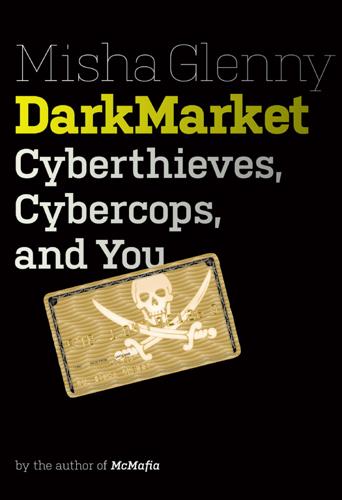
DarkMarket: Cyberthieves, Cybercops and You
by
Misha Glenny
Published 3 Oct 2011
He said that they had not received any directive from Ankara and that after lunch in the canteen I would be able to talk to Mr Evyapan. Eventually I was led through to the small, oblong room. Çagatay Evyapan is cautious but self-confident. Just as Bilal Sen had told me, his instincts would detect immediately if I was trying to ferret out some snippet of information in a devious way. He reminded me of Julian Assange, the mastermind behind WikiLeaks – super-smart, but with an iron conviction in his own intellectual superiority, which at times might be taken for extreme narcissism. When I suggested to him that Lord Cyric was Tony – the tubby, bespectacled businessman named by Mert Ortaç – he emitted a snort of the deepest contempt.
…
Successive US governments have granted greater powers to law enforcement than most European governments would contemplate, allowing officers easier access to data from private companies, in the name of fighting crime and terrorism. The implications of this are both profound and, for the moment, impenetrable. Concerns about crime, surveillance, privacy, the accumulation of data by both private and state institutions, freedom of speech (step forward WikiLeaks), ease of access to websites (the so-called net neutrality debate), social networking as a political tool, and national-security interests constantly bump up against one another in cyberspace. One might argue, for example, that Google’s multi-platform, multitasking omnipresence violates the principles of America’s anti-trust legislation and that the agglomeration of all that personal data is both an opportunity for criminals and a threat to civil liberties.
…
That evening the websites of Estonia’s President and several government ministries started receiving inordinate amounts of spam email, while the Prime Minister’s photo on his party’s website was defaced. Russian-language chat rooms began to exhort hackers to launch attacks on Estonian sites and were distributing the software to do so. According to sources quoted in a US Embassy telegram to Washington (c/o WikiLeaks), the initial attacks were technically unsophisticated and ‘seemed more like a cyber riot than a cyber war’. Over the weekend, however, the attacks escalated from spam showers to DDoS attacks. Hackers had created dozens of those pesky botnets, suborning infected zombie computers around the world and forcing them to request Estonian websites.
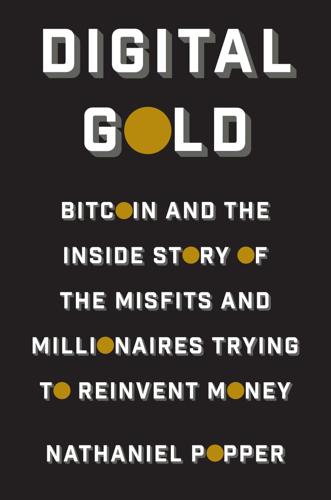
Digital Gold: Bitcoin and the Inside Story of the Misfits and Millionaires Trying to Reinvent Money
by
Nathaniel Popper
Published 18 May 2015
These problems became particularly pronounced after Bitcoin’s next big jump into the spotlight. In November, WikiLeaks, the organization founded by a regular participant in the old Cypherpunk movement, Julian Assange, released a vast trove of confidential American diplomatic documents that revealed previously secret operations around the world. The large credit card companies and PayPal came under immediate political pressure to cut off donations to WikiLeaks, which they did in early December, in what became known as the WikiLeaks blockade. This move pointed to the potentially troubling nexus between the financial industry and the government.
…
The financial industry seemed to provide politicians with an extralegal way to crack down on dissent. The WikiLeaks blockade went to the core of some of the concerns that had motivated the original Cypherpunks. Bitcoin, in turn, seemed to have the potential to counteract the problem. Each person on the network controlled his or her coins with his or her private key. There was no central organization that could freeze a person’s Bitcoin address or stop coins from being sent from a particular address. A few days after the WikiLeaks blockade began, PCWorld wrote a widely circulated story that noted the obvious utility of Bitcoin in the situation: “Nobody can stop the Bitcoin system or censor it, short of turning off the entire Internet.
…
Here was a broader philosophical issue that could attract a wider audience, and the forums were full of new members who had been drawn in by the attention. One new user, a young man in England named Amir Taaki, proposed making Bitcoin donations to WikiLeaks. Amir argued this could raise Bitcoin’s profile at the same time that it could help WikiLeaks raise money. This kicked off a vigorous debate on the forum. A number of programmers worried that the Bitcoin network was not ready for all the traffic—and government scrutiny—that might come if it started to be used for controversial donations. “It is extraordinarily unwise to make Bitcoin such a highly visible target, at such an early stage in this project.
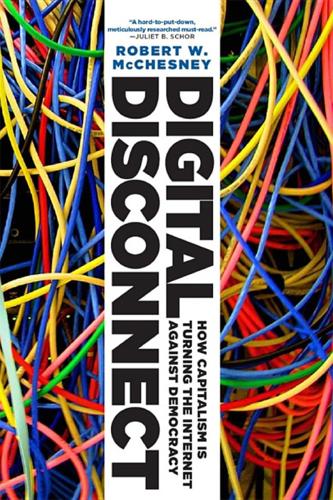
Digital Disconnect: How Capitalism Is Turning the Internet Against Democracy
by
Robert W. McChesney
Published 5 Mar 2013
Moreover, there was no independent journalism to respond when the U.S. government launched a successful PR and media blitz to discredit WikiLeaks. Attention largely shifted from the content of these documents to overblown and unsubstantiated claims that WikiLeaks was costing innocent lives, and to a personal focus on WikiLeaks leader Julian Assange. Glenn Greenwald was only slightly exaggerating when he stated that “there was almost a full and complete consensus that WikiLeaks was satanic.” The onslaught discredited and isolated WikiLeaks, despite the dramatic content that could be found in the documents WikiLeaks had published. The point was to get U.S. editors and reporters to think twice before opening the WikiLeaks door.
…
The consequences of this became striking in the wake of the brouhaha surrounding WikiLeaks after it released government documents in 2010. The “U.S. government response to WikiLeaks,” MacKinnon writes, “highlights a troubling murkiness, opacity, and lack of public accountability in the power relationships between government and Internet-related companies.” Amazon booted WikiLeaks off its servers, and the site immediately collapsed, as there was nowhere else to go.229 Apple pulled a WikiLeaks app from its store.230 Monopolist PayPal—as well as MasterCard, Visa, and Bank of America—also severed ties to WikiLeaks. There is no evidence that the executive branch made any explicit demand of the firms to do what they did; it appears they acted proactively, possibly egged on by all the saber rattling and macho talk coming from Capitol Hill.231 The firms responded to vague claims of illegality on the part of WikiLeaks, but no charges had been filed, nor had anyone been convicted.
…
Nothing demonstrates the situation better than the release by WikiLeaks of an immense number of secret U.S. government documents between 2009 and 2011. To some this was investigative journalism at its best, and WikiLeaks had established how superior the Internet was as an information source. It clearly threatened those in power, so this was exactly the sort of Fourth Estate a free people needed. Thanks to the Internet, some claimed, we were now truly free and had the power to hold leaders accountable.112 In fact, the WikiLeaks episode demonstrates precisely the opposite. WikiLeaks was not a journalistic organization. It released secret documents to the public, but the “documents languished online and only came to the public’s attention when they were written up by professional journalists,” as Heather Brooke put it.
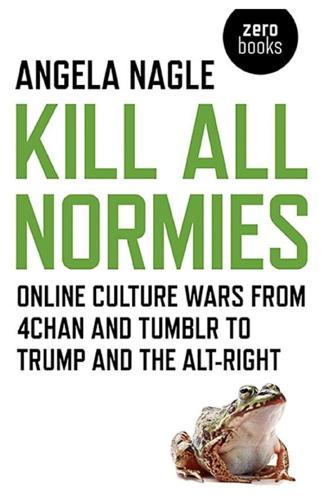
Kill All Normies: Online Culture Wars From 4Chan and Tumblr to Trump and the Alt-Right
by
Angela Nagle
Published 6 Jun 2017
. […] I read about how I’m apparently too ugly for any man to want to rape, or I read graphic descriptions detailing precisely how certain implements should be shoved into one or more of my various orifices. Feminist blogger Dawn Foster wrote: The worst instance of online abuse I’ve encountered happened when I blogged about the Julian Assange extradition case. […] Initially it was shocking: in the space of a week, I received a rabid email that included my home address, phone number and workplace address, included as a kind of threat. Then, after tweeting that I’d been waiting for a night bus for ages, someone replied that they hoped I’d get raped at the bus stop.
…
Chapter One The leaderless digital counter-revolution It is worth thinking back now to the early 2010s, when cyberutopianism had its biggest resurgence since the 90s, before the dot-com bubble burst. This time it emerged in response to a series of political events around the world from the Arab Spring to the Occupy movement to new politicized hacker movements. Anonymous, Wikileaks and public-square mass protests in Spain and across the Middle East were getting huge coverage in the news, causing a flurry of opinion and analysis pieces about their profound significance. All of these events were being attributed to the rise of social media and characterized as a new leaderless form of digital revolution.
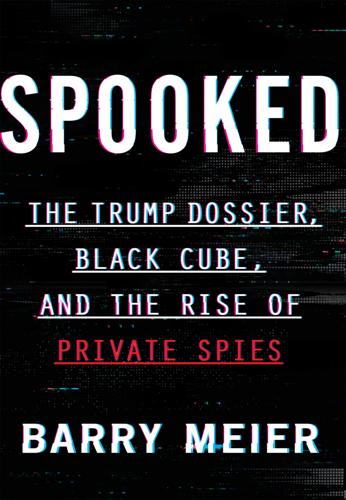
Spooked: The Trump Dossier, Black Cube, and the Rise of Private Spies
by
Barry Meier
Published 17 May 2021
For its part, The Guardian never addressed what some journalists believed was a major miscue by its star reporter on the Trump/Russia beat, Luke Harding. In 2018, he and two colleagues published a scoop that looked for a moment like a game changer. They reported that Paul Manafort, Trump’s campaign manager, had held a secret meeting in 2016 with Julian Assange, the founder of WikiLeaks, the group that would publicize the Democratic Party emails obtained by Russian hackers. The story was all the more sensational because it involved a Houdini-like feat. At the time of the supposed meeting, Assange was living inside the Ecuadorian embassy in London, where he had taken refuge to avoid arrest.
…
Several corporate investigators were unable to identify the firm that produced them. In a subsequent report: “Operation Hellenic” report dated November 2, 2007. a 2009 State Department cable: The cable, which is dated January 13, 2009, was among the trove of documents disclosed by WikiLeaks. The U.S. ambassador in Kazakhstan was then Richard Hoagland. with the help of Baker and Hostetler LLC: This State Department document was released by Wikileaks. Over the years, Baker and Hostetler has used differing styles for its corporate name. It currently uses BakerHostetler and I have used it throughout. CHAPTER 2: “LAPDANCE ISLAND” When a freelance private spy named Rob Moore: I first wrote about Rob Moore’s work for K2 Intelligence in The New York Times on April 27, 2018, “A Spy’s Tale: The TV Prankster Who Says He Became a Double Agent.”
…
SOME OF THE JOURNALISTS who met with Christopher Steele at the Tabard Inn thought he was right. Since the start of the 2016 campaign, Trump had kowtowed toward Vladimir Putin with a subservience that suggested that the Russian leader had a hold over him. There also seemed to be plenty of signs pointing to collusion between the Trump campaign and Moscow. By the fall of 2016, for instance, WikiLeaks was unleashing a nonstop barrage of hacked Clinton campaign emails and Russian operatives were deploying social media bots aimed at swaying American voters toward Trump. However, believing that the Trump campaign was colluding with the Kremlin was one thing: proving it was very different. And for the reporters who met with Steele at the Tabard Inn, deciding what to do next was a big problem.
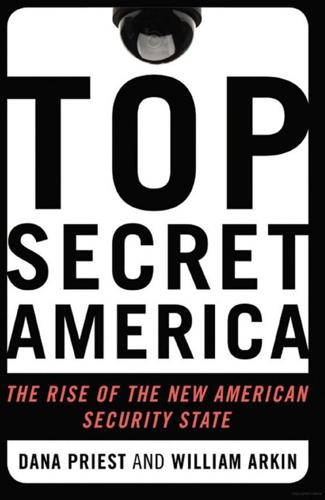
Top Secret America: The Rise of the New American Security State
by
Dana Priest
and
William M. Arkin
Published 5 Sep 2011
In August 2007, eighteen FBI agents, some with their guns drawn, burst into his home with only his wife and children present, to raid his files during an investigation into his alleged role in helping the New York Times develop its seminal warrantless surveillance story in 2004. The government dropped his case nearly four years later, in April 2011, after Tamm’s career had been ruined and he faced financial peril. The Justice Department is also mulling an indictment on espionage charges against WikiLeaks founder Julian Assange for publishing tens of thousands of pages of classified U.S. diplomatic cables and war-related field reports, some of them allegedly provided by a young army private first class, who is also under arrest. Regardless of Assange’s publicly stated bias against U.S. policies and the allegations against his personal behavior, this unprecedented trove of material has allowed reporters around the world to write some of the most insightful and revealing stories of our time.
…
That is one lesson from the WikiLeaks disclosures. The leaked State Department cables were allegedly first available to a disgruntled army private with a history of instability because the government wasn’t giving even a basic level of protection to those documents, and because his colleagues allowed him to bring a rewritable CD-ROM with Lady Gaga’s music into work, not realizing it could act as the black bag into which a quarter of a million sensitive diplomatic cables could be dumped and carted away. In the government-wide security and counterintelligence investigation that has followed the WikiLeaks disclosures, government experts have learned that most federal agencies have little understanding of how to protect their sensitive information, according to people involved in the review.
…
As he did so, Arkin started to count government organizations and private companies working at the “secret” level of classification. Something is classified secret5 if its unauthorized disclosure would cause “serious damage” to national security. For instance, many of the State Department cables published by WikiLeaks are classified secret because they provide candid assessments of foreign leaders and agreements. Routine field reports from military units are also classified secret on the theory that they might provide useful tidbits to an enemy. He was quickly overwhelmed by the volume. There were simply too many organizations and companies to track.
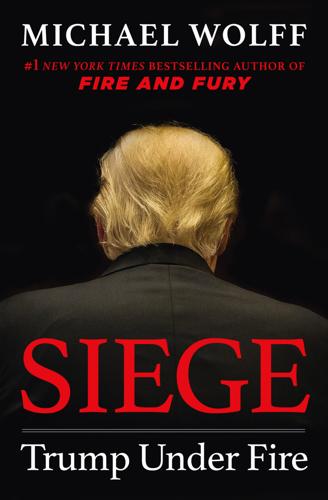
Siege: Trump Under Fire
by
Michael Wolff
Published 3 Jun 2019
Indeed, he was Trumpian, but even more so, often leading Trump to brand him as a nuisance and a nutter. It certainly would be an odd kind of justice, Bannon thought, if the case against the president came down to Stone, Julian Assange, and Jerome Corsi—crazies, conspiracists, bullshit artists, and fringe players all. Corsi, a right-wing gadfly who had recently become a figure in the investigation, connecting Stone to WikiLeaks and Assange, had once spearheaded the rumors that Breitbart News founder Andrew Breitbart, who died in 2012 from a heart attack, had been assassinated—and that Bannon, in cahoots with the CIA, was involved.
…
Beyond finding that here, in the Trump camp, were some of the sloppiest, most unsophisticated, stupidest people on earth—who, to say the least, had little or no sensitivity “to, shall we say, accepting foreign assistance,” as Bannon put it—what did the investigators have? Or, to put it another way, who did they have? Roger Stone, Carter Page, George Papadopoulos, Julian Assange? Bannon was unimpressed: “No way you impeach the president over those dragoons.” They were hopeless flotsam and jetsam. Obstruction? “Give me a break.” With a Republican Congress in place, what Mueller needed was something that would undermine Trump with the something less than 35 percent of the electorate that had become fanatically his.
…
Vanity Fair Veterans Affairs Department Vietnam, Kim summit in Vietnam War View, The (TV show) Virginia, midterms of 2018 and Wachtell, Lipton, Rosen & Katz Waco standoff Wag the Dog (film) Wahlberg, Mark Wall Wall Street Journal Walter Reed National Military Medical Center War on Terror Warren, Elizabeth Washington, Michigan, rally Washington Post Watergate scandal Waters, Maxine Weinstein, Harvey Weisselberg, Allen Weissmann, Andrew Wexton, Jennifer Whitaker, Matthew White House Correspondents’ Dinner White House staff “Anonymous” op-ed and communications team DOJ and midterms and Mueller and Whitestone, Erik Whitewater investigations WikiLeaks Wiles, Susie Wilson, Woodrow Winfrey, Oprah witness tampering WME company Wolf, Michelle Woman’s Day Woodward, Bob working class World Bank World War I commemoration World War II Wray, Christopher Wu Xiaohui Xi Jinping Young, Cy Zelinsky, Aaron ALSO BY MICHAEL WOLFF Fire and Fury: Inside the Trump White House Television Is the New Television: The Unexpected Triumph of Old Media in the Digital Age The Man Who Owns the News: Inside the Secret World of Rupert Murdoch Autumn of the Moguls: My Misadventures with the Titans, Poseurs, and Money Guys Who Mastered and Messed Up Big Media Burn Rate: How I Survived the Gold Rush Years on the Internet Where We Stand White Kids About the Author Michael Wolff is the author of Fire and Fury, the number one bestseller that for the first time told the inside story of the Trump White House.
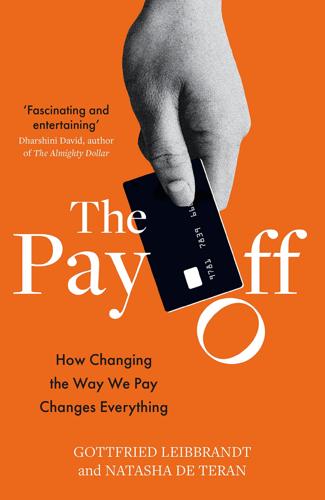
The Pay Off: How Changing the Way We Pay Changes Everything
by
Gottfried Leibbrandt
and
Natasha de Teran
Published 14 Jul 2021
Having travelled to access cash, where are people more likely to spend it – near the ATM that dispensed it or back home in the village that so needs it?1 In central London there is no such ATM shortage, but that didn’t help Julian Assange back in 2010 when he gave himself up to the British police over charges he faced in Sweden. Assange was also wanted in the USA over ‘Cablegate’: his organisation, Wikileaks, had published several hundred thousand leaked messages between the US State Department and its embassies. It was as a result of this that PayPal, Visa, Mastercard and others had started to refuse to process donations to Wikileaks.2 Unable to access funds, neither the organisation nor Assange could pay their bills, not least for the servers that hosted the leaked information.
…
It was as a result of this that PayPal, Visa, Mastercard and others had started to refuse to process donations to Wikileaks.2 Unable to access funds, neither the organisation nor Assange could pay their bills, not least for the servers that hosted the leaked information. Whatever you think of Assange or Wikileaks, he had at that point only been accused of a crime; it was unrelated to money and no judicial process had actually taken place – and yet private companies chose to rescind his access to payments. Alongside Assange and Wikileaks, the likes of InfoWars (the American far right ‘news’ website) and Pornhub have been subject to similar ‘payment blocking’. Whatever you think of this crew, consider that such moves effectively put censorship in the hands of private enterprise. For most of us, access to payments is unlikely to be high on the list of things we worry about – or have even thought to think about.
…
Russell) 4 printing money 34 private keys see public-private key encryption Promontory 257 public-private key encryption 16, 189–91, 195, 200, 214, 215 Puerto Rico 36–7 Punjab National Bank (PNB) 115 Q QR codes 75, 76, 84 QuadrigaCX 200 Qualcomm 226, 271 R railway design 68, 71 Ransomware 195 Rato, Rodrigo 262 Reagan, Ronald 65 real-time gross settlement (RTGS) 126–30, 240 Red Cross 150 red envelope tradition, Chinese 76 Red Packet digital gift 77 Reed, John 220 refugees and immigrants 265, 266 regulation authorities, financial 135, 156, 179, 184, 198, 208, 212, 217, 223–4, 225–6, 229, 230–6, 237–42, 265, 267, 268, 271–2, 273 Ren Zhengfei 251 Reserve Bank of India 86 retail payment flows 120, 122 retail payment instruments 18 retailer lawsuit against card networks, US 56–7 revaluation of currency 30 Revolut 89, 158, 159 Rickards, Jim 31 Ripple/XRP 197–8, 199 risk, payment 15–16, 19, 108, 112–16, 121, 122, 214 robbery, bank 107–8, 112–16 Rogen, Seth 112 Romania 172 Royal Bank of Canada (RBC) 150 Royal Bank of Scotland (RBS) 131 Russell, Bertrand 4 Russia 25, 89, 243, 253–4 Russian Central Bank 256–7 S Safaricom 74 Safeway 56 Sampo Bank 256, 257 sanctions 144, 213, 243, 244–5, 246, 249, 250–1, 252, 253, 254, 258, 266, 270 Sandinista National Liberation Front 65 Sands, Peter 28 Saxo 159 Scandinavia 67 Schneider, Ralph 40 Schuijff, Arnout 165 screen-scrapers 181–2 scrip 170, 219–20 Sears 56 Second World War 7–8, 12, 249 secondary sanctions, US 250, 253 Securities and Exchange Commission, US 198 securities market 132, 140, 247 semi-open payment systems 222 settlement risk 15–16 shopping channels 50 Shor, Ilan 261 shorting 188 Siemiatkowski, Sebastian 174 Signature cards 49–50, 57, 58, 69 Simmons, Matty 40 Simple 159 Single Euro Payments Area (SEPA) 60, 240 Single Euro Payments Regulation 98 Singles Day, China 76 size and methods, payment 120–1, 217, 272 small economies 5–6 smart contracts 194–6, 198–9 smuggling 27 Snowden, Edward 234 social media 110, 119, 179, 206 social media fraud 110 Sofort 180–1, 183 ‘soft’ credit checks 175 Sony Pictures 112 Soros, George 226 sort codes, bank 65–6 South Korea 112 sovereign gold coins 203 Soviet bloc countries, former 24–5, 257 Space Shuttle 71 Spain 81, 261–2 spear-phishing 110 Special Drawing Right (SDR), IMF’s 202 Specially Designated Nationals (SDNs) 250, 251, 252 spies, government 233–4 Spotify 202, 225 Spring Festival Gala, CCT’s 77 Square 155, 162–3, 164–5, 216, 269 Sri Lanka 113 stablecoins 196, 201 Standard Chartered 258–9, 260, 270 standing orders 82 Starling 158 Stephenson, George 68, 71 STET (Systèmes Technologiques d’Échange et de Traitement) 119 Stiftung Warentest 89 stimulus package payments, US 66 store of value, Libra as 206 store of value, money 202 Stripe 15, 162, 163–5, 216 sub-prime mortgages 132 Sun 119 Sunak, Rishi 35 Swartz, Lana 177 Sweden 32–3, 35–6, 58, 172 Swift network 102, 111, 113 114, 115, 140, 141–2, 147, 220, 222, 233–4 Swiss bank accounts 66 Switzerland 23, 67, 201, 260 Syria 266 T tabu 8 TARGET 86, 240–1 Target (US retailer) 109 TARGET2 241 TARGET2 Securities 241 targeted markets 179 tax evasion 27, 29, 258, 260 telegraphs 141 telex 141 Tencent 76, 77 Tenpay 73, 75, 76, 78–9, 85, 100, 161, 178, 216, 217, 220, 221, 222, 235, 270–1 terrorism 232–3, 250, 266 Tether (THT) 196–7, 199 Tez payment app 185 theft risk, payment gateways as 15–16, 108, 112–16, 121 three-corner model 174 Three Mobile 119 TIBER-EU 233 tokens – temporary digital identifiers 109, 189–90, 191, 195, 196, 205, 214 TOR (The Onion Router) 199 TransferWise 89, 146, 216, 241 Transport for London 11 travel shops 90 tribal societies, early 9 truck systems 219–20 Truman, Harry S. 249 Trump, Donald 115, 229, 243–5 tulip bulbs 6 Tumpel-Gugerell, Gertrude 241 Twitter 155 U Uber 82–3, 165, 169, 202 Ubiquity Networks 110–11 UBS 260 UFC-Que Choisir 89 unbanked people 6–7, 38, 212 underground/criminal economy 25, 27–8, 29–30, 199–200 see also financial crime; illegal activities; money-laundering ‘unicorn’ start-ups 146 Unified Payment Interface (UPI) 82–5, 182, 271 Union Pay 55, 59 unit of account, money as 202–4 United Kingdom cheques 117 credit card debt 101 decline of cash 32, 36 digital IDs 270 Faster Payments Service (FPS) 82, 83, 84, 86 GCHQ – National Cyber Security Centre 233 GCHQ – spies 234 HM Treasury 86 INSTEX transactions 245 JCPOA 243 United Kingdom (continued) neo-banks 158 Payment Systems Regulator 237 prepaid cards 37–8 Truck Act (1831) 220 United States of America $100 dollar bills 23, 24, 108 bank fines and financial crime 258–60, 270 checking accounts 91 CIA (Central Intelligence Agency) 65, 149, 264 Congress 57 credit card debt 45, 100 Currency Education Program (CEP) 25 Department of Homeland Security 232–3 Department of State 267 dollars as global reserve currency 246–7, 252 dollars circulating abroad 24–5, 30 domestic securities market 247 Fair Labor Standards Act (1938) 220 Federal Reserve 12, 36, 37, 113–14, 131, 232, 259 free banking era (1837–63) 208 international power of the dollar 246–54 JCPOA 243–4, 252, 254 National Security Agency (NSA) 114, 233, 234, 255 National Security Council (NSC) 64–5, 244, 264 Office of Foreign Assets Control (OFAC) 249–50, 252, 253, 255, 259 open banking 182 paying to pay 97, 101 regulation agencies 231–2 removal of access to WeChat app 270–1 sanctions 213, 243, 244–5, 246, 249, 250–1, 252, 253, 254, 258–9, 270 Securities and Exchange Commission 198 State Department 3–4 Treasury 9, 248, 249–50, 255, 260, 265 use of cheques/checks 63, 117 utility coins 193 V V-pay 58 van der Does, Pieter 165 van Hall, Walraven 7–8 Venezuela 213 Venmo 177 venture capital money 157 Verifone 48 Verizon 130–1 Vestager, Margrethe 224, 225–6 VHS vs Betamax 71, 221 Visa 3–4, 41, 42, 47, 49, 50, 53, 55, 56, 57–9, 90, 102, 161, 162, 174, 201–2, 204, 223, 269 Visa Europe 58–9 Visa Inc. 58–9 W Wal-Mart 56, 57 Watergate scandal 255 WeChat Pay app 270–1, 229 Weidmann, Jens 28 Western Union 144, 216 WhatsApp 184, 202 Which? 66, 89 wholesale payment flows 121 Wikileaks 3–4 Williams, Joe 45–6 wire transfers 141 Wirecard 37–8, 166–7 Woodward, Bob 255 World Bank 17, 32, 150, 211 World Economic Forum, Davos 187–8, 226 WorldPay 165 X, Y, Z Xoom 111 Yuebao 77, 206 ZON credit card authorisation 48 First published 2021 by Elliott and Thompson Limited 2 John Street London WC1N 2ES www.eandtbooks.com Epub ISBN: 978-1-78396-607-3 Copyright © Gottfried Leibbrandt and Natasha de Terán 2021 The Authors have asserted their rights under the Copyright, Designs and Patents Act, 1988, to be identified as Authors of this Work.
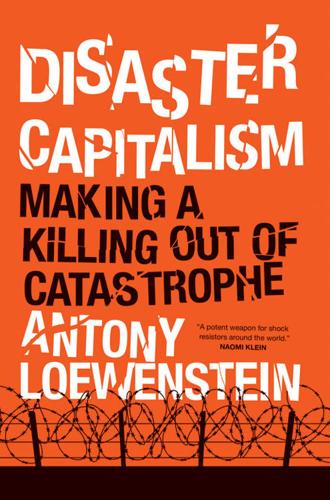
Disaster Capitalism: Making a Killing Out of Catastrophe
by
Antony Loewenstein
Published 1 Sep 2015
Thanks to my Australian publisher, Melbourne University Press, for continuing to back my vision. Louise Adler, Elisa Berg, Sally Heath, Paul Smitz, and Penelope White have all contributed hugely to the vision in your hands. I continue to be inspired by a range of journalists and groups whose work informs my own: Julian Assange and WikiLeaks, Pratap Chatterjee, Glenn Greenwald, Amy Goodman, the late and great Michael Hastings, Naomi Klein, Dahr Jamail, Chelsea Manning, George Monbiot, Greg Palast, John Pilger, Jeremy Scahill, Edward Snowden, and Matt Taibbi. Alison Martin is a truly unique woman who constantly challenges, provokes, and loves me.
…
New York Times, May 28, 2014. 46Saskia Sassen, “European Economy’s Invisible Transformation: Expulsions and Predatory Capitalism,” London School of Economics and Political Science, July 3, 2014, at blogs.lse.ac.uk. 47Harriet Alexander, “Greece’s Great Fire Sale,” Telegraph, April 20, 2013. 48“Privatization of Athens Water Utility Ruled Unconstitutional,” Press Project, May 28, 2014, at thepressproject.net. 49Niki Kitsantonis, “Greece Wars with Courts over Ways to Slash Budget,” New York Times, June 12, 2014. 50Daniel Trilling, “Shock Therapy and the Gold Mine,” New Statesman, June 18, 2013. 51“Europe’s Failed Course,” New York Times, February 17, 2012. 52Joanna Kakissis, “36 hours in Athens,” New York Times, October 19, 2014. 53Yiannis Baboulias, “Our Big Fat Greek Privatisation Scandals,” Al Jazeera English, June 10, 2014. 54Helen Smith, “Greece Begins 50 Billion Euro Privatisation Drive,” Guardian, August 1, 2010. 55Slavoj Žižek, “Save Us from the Saviours,” London Review of Books, May 28, 2012. 56Alexander, “Greece’s Fire Sale.” 57Ibid. 58Katie Allen, “Austerity in Greece Caused More than 500 Male Suicides, Say Researchers,” Guardian, April 21, 2014. 59Mark Lowen, “Greek’s Million Unpaid Workers,” BBC News, December 5, 2013. 60“Sisa: Cocaine of the Poor,” Vice News, May 22, 2013, at vice.com. 61Liz Alderman, “Societal Ills Spike in Crisis-Stricken Greece,” New York Times, May 22, 2013. 3Haiti 1Mark Schuller and Pablo Morales, eds, Tectonic Shifts (Sterling, VA: Stylus, 2012). 2Ibid., p. 2. 3Ansel Herz and Kim Ives, “Wikileaks Haiti: The Post-Quake ‘Gold Rush’ for Reconstruction Contracts,” Nation, June 15, 2011. 4Deepa Panchang, Beverly Bell, and Tory Field, “Disaster Capitalism: Profiting from Crisis in Post-Earthquake Haiti,” Truthout, February 16, 2011, at truth-out.org. 5Herz and Ives, “Wikileaks Haiti.” 6The AshBritt company was accused of questionable practices in the wake of Hurricane Katrina, the CEPR revealing that a “2006 congressional report examining federal contract waste and abuse noted AshBritt used multiple layers of subcontractors, each of whom got paid while passing on the actual work.”
…
Market speculators pressurize fragile nations such as Greece, whose citizens are forced to survive with fewer public services.9 British citizens living on the margins face eviction or spiraling rent increases because global fund managers, such as Westbrook—based in the United States—purchase homes as assets to be milked for profit.10 The International Monetary Fund (IMF) traverses the world with the backing of Western elites, strong-arming nations into privatizing their resources and opening up their markets to multinationals. Resistance to this bitter medicine is only one reason that large swathes of Latin America have become more independent since the 2000s. The mass privatization that results—a central plank of US foreign policy—guarantees corruption in autocracies. Wikileaks’ State Department cables offer countless examples of this, including in Egypt under former president Hosni Mubarak.11 The World Bank is equally complicit and equally unaccountable. In 2015 it admitted that it had no idea how many people had been forced off their lands around the world due to its resettlement policies.
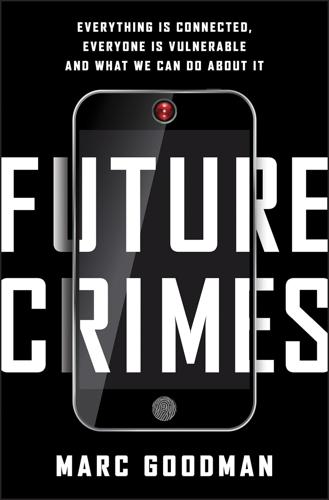
Future Crimes: Everything Is Connected, Everyone Is Vulnerable and What We Can Do About It
by
Marc Goodman
Published 24 Feb 2015
The number and reach of these highly profitable transnational organized cyber-crime rings have grown, and the security intelligence firm CrowdStrike was actively tracking more than fifty such major organizations globally. Besides transnational organized crime syndicates, hacktivists—politically motivated cyber attackers—represent one of the most influential and powerful groups in cyberspace. Anonymous, LulzSec, AntiSec, WikiLeaks, and the Syrian Electronic Army fall into this group and launch their attacks in retaliation for perceived injustices. Personalities such as Julian Assange, Chelsea (Bradley) Manning, and Edward Snowden have become household names for challenging some of the world’s most powerful institutions and for releasing data that others would most certainly have preferred remain hidden.
…
One such notable example is Anonymous, a self-described leaderless organization whose members have become recognizable in public for wearing Guy Fawkes masks. The group’s motto, “We are Anonymous. We are legion. We do not forgive. We do not forget. Expect us,” manifests its organizational ethos: “The corrupt fear us. The honest support us. The heroic join us.” When MasterCard, Visa, and PayPal all agreed to stop funneling donations to Julian Assange’s WikiLeaks organization, Anonymous responded by launching a series of effective cyber attacks against the financial firms. Anonymous is strongly against what it perceives to be rigid antipiracy laws, and it took credit for an earlier attack against the Sony PlayStation Network in response to Sony’s support of U.S. antipiracy legislation known as the Stop Online Piracy Act.
…
Eventually, your personal details will fall into the hands of criminal cartels, competitors, and even foreign governments. While big data may be the new oil, our personal data are more like weapons-grade plutonium—dangerous, long lasting, and once they are leaked, there’s no getting them back. Even the federal government is realizing it too can fall victim to this problem. Just look at the 2010 WikiLeaks debacle and the hundreds of thousands of classified diplomatic cables Private Chelsea (Bradley) Manning was able to steal while working as an army intelligence analyst in Iraq. Of course just a few years later, the world would meet Edward Snowden, who used his skills and access as an NSA system administrator to steal millions of highly classified files from America and its allies and share them with journalists for publication online.
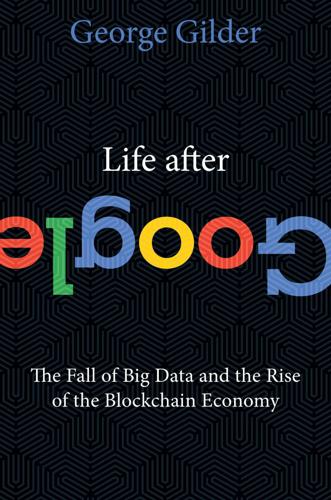
Life After Google: The Fall of Big Data and the Rise of the Blockchain Economy
by
George Gilder
Published 16 Jul 2018
“Well, your avatar surely did,” I said. “Why did you stop posting?” “Don’t you remember the time?” he asked with some asperity. “I won’t ever forget it. It was December 2010. Julian Assange, my virtual colleague on the Cypherpunks list, blazed on the covers of all the news magazines. He was charged with treason. People talked of bitcoin as an important facilitator for WikiLeaks. It would have been nice to get all this attention in any other context. But WikiLeaks had kicked the hornets’ nest, and now the swarm was headed toward us. “We had to get away from the swarm. Bitcoin’s success depends on being distributed and peer-to-peer,” concluded Satoshi.
…
Aren’t you a threat to the entire monetary world, to central banks and G8 summits and International Monetary Fund mandates, to five-point-one trillion dollars a day of oceanic currency trading, to preening financial strategists in Washington and New York, London and Davos, Tokyo and San Francisco, of tax collectors and financial regulators around the world?” “We do not want to lead with ‘anonymous currency’ or ‘currency outside the reach of any government.’ ” Satoshi said. “I am definitely not making such a taunt or assertion. Some people say, ‘Bring it on, WikiLeaks.’ I say, ‘No, don’t bring it on, WikiLeaks!’ The bitcoin project needs to grow gradually, so the software can be strengthened along the way.” “But in the initial ‘Genesis Block’ of bitcoin, you did put a headline from the Times of London declaring that the ‘Chancellor was bailing out the banks again,’ ” I said. “That was kind of a poke at the hive.”
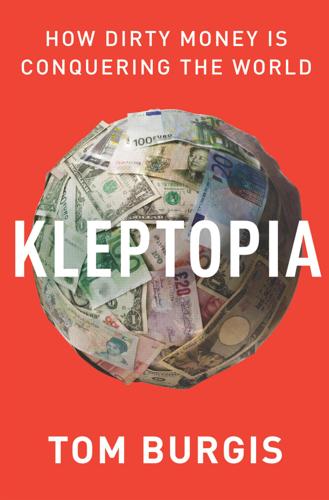
Kleptopia: How Dirty Money Is Conquering the World
by
Tom Burgis
Published 7 Sep 2020
Elmer had developed the same suspicions as Nigel: that all the corporate legerdemain his bank supplied to its clients allowed them to evade tax and launder money. He had raised his concerns with his managers, then with the Swiss authorities, then at a press conference in London during which he handed WikiLeaks’ Julian Assange two discs containing the account details of 2,000 ‘prominent people’. The Economist story about Elmer that Nigel read described the Swiss authorities’ response. They used the banking secrecy law to visit a ‘legal hell’ on him. He was locked up without charge for 187 days, and he and his family were so hounded by the bank’s agents that his daughter was left traumatised.
…
O’Brien, ‘Bank settles US inquiry into money laundering’, New York Times, November 9, 2005, nytimes.com/2005/11/09/business/bank-settles-us-inquiry-into-money-laundering.html Benex: Bonner, ‘Reputed Russian mobster’ carrying a business card: Friedman, Red Mafiya, p.212 mutilations: Ibid., p.202 mortars and missiles: Ibid., p.211 in contact with an official from the criminal division of the Interior Ministry: A leaked entry dated 1986 from the Interior Ministry files describes Mogilevich’s current criminal enterprise and past convictions and says he has been ‘in contact’ with an official deal with German intelligence: Friedman, Red Mafiya, p.210 danced with Bob Levinson: Levinson’s reports of the US law enforcement meetings with Mogilevich; Barry Meier, Missing Man, Farrar, Straus and Giroux, 2016, p.59 intelligence file disappeared: Friedman, Red Mafiya, p.211 in a bar nearby: Glenny, McMafia, pp.87–9; Friedman, Red Mafiya, pp.215–16; transcript of Tom Mangold’s interview with Mogilevich for ‘The Billion Dollar Don’, Panorama, 1999 annual profits: Roman Olearchyk, Haig Simonian and Stefan Wagstyl, ‘Energy fears highlight trade’s murky side’, Financial Times, January 9, 2009 his cable: ‘USG concerns over Austrian banking operations’, cable sent by US embassy in Austria on February 17, 2006, later published by WikiLeaks, wikileaks.org/plusd/cables/06VIENNA515_a.html bearer shares: Andrew E. Kramer, ‘Ukraine gas deal draws attention to secretive importer’, New York Times, February 1, 2006, nytimes.com/2006/02/01/business/worldbusiness/ukraine-gas-deal-draws-attention-to-secretive.html Seva’s blessing: ‘Ukraine: Firtash makes his case to the USG’, December 10, 2008, later published by WikiLeaks, wikileaks.org/plusd/cables/08KYIV2414_a.html. The cable contains the ambassador’s record of his conversation with Firtash: ‘He acknowledged ties to Russian organized crime figure Seymon [sic] Mogilevich, stating he needed Mogilevich’s approval to get into business in the first place.
…
However, the ruling also records that the document was accompanied by a cover letter from the Ministry of Industry and Energy of the Russian Federation to TNK-BP billions of dollars: Alexander Kots, ‘FSB catches energy spies’, Komsomolskaya Pravda, March 20, 2008, kp.ru/daily/24067/307041 (in Russian) told American diplomats: ‘Update on GOR investigation of TNK-BP’, US state department cable published by WikiLeaks, wikileaks.org/plusd/cables/08MOSCOW816_a.html ‘the FSB suspects’: Vera Surzhenko and Alexey Nikolsky, ‘Lubyanka does not sleep’, March 20, 2008, Vedomosti (in Russian), vedomosti.ru/newspaper/articles/2008/03/21/lubyanka-ne-dremlet business cards of CIA officers: Asked about this by the author, McCormick neither confirmed nor denied that the cards were his seventeen hours: McCormick later told Lough in an email that the interrogation had lasted seventeen hours.
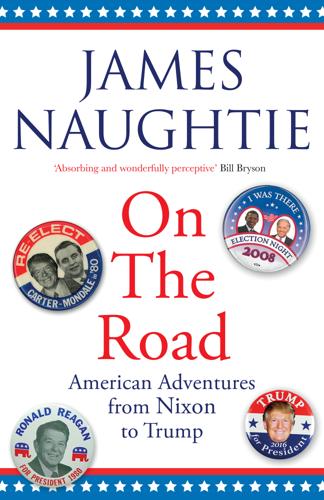
On the Road: Adventures From Nixon to Trump
by
James Naughtie
Published 1 Apr 2020
It was the kind of thing of which any mainstream political campaign, operating out of dingy rooms in New York or Chicago or Atlanta, would be proud. Except it was coming from St Petersburg – at least 123 million Facebook posts – and, with the help of WikiLeaks, it was directed, secretly, at achieving one outcome, the disruptive one that would most please the man who could then deal with Trump: Vladimir Putin. That campaign cry – ‘I love WikiLeaks!’ from Trump – rolled down the years. There is no doubt about where Julian Assange of WikiLeaks stood on this question. In a 2015 Twitter comment he confirmed that they believed it would be better for their purpose – widespread disruption, the aim he shared with Putin – if the Republican candidate were to win.
…
The investigation into Clinton’s use of a personal email server when she was secretary of state from 2008 to 2011 was enough. It was perfect conspiracy material, because the less that was known about what the emails contained, the more sinister Trump could make them sound. At every stop he urged WikiLeaks, which said it had a huge cache of hacked Democratic emails, to publish them. ‘I love WikiLeaks!’ he would say. And if the Russians were holding emails too? ‘Bring it on! Publish!’ The campaign was to be as much an attack on his opponent as a set of promises, with assistance welcome from anyone who would join the fun, for whatever reason. At rally after rally, he responded to the crowd’s chant with remarks like this one, in Pennsylvania – ‘Lock her up is right!
…
We were on a very solid footing until the Russian co-operation with WikiLeaks and the weaponising of those emails that were stolen, and not only that, as Mueller points out in his second indictment, the Russians hacked into the cloud where very valuable information that the Democratic Party – and my campaign – had stored, and they stole it. We always were wondering how did they know who to target on Facebook. Who were these people that they were clearly going after? And however he knew it, Trump knew it. He mentioned WikiLeaks 161 times between the day that they dropped the emails and the day of the election.
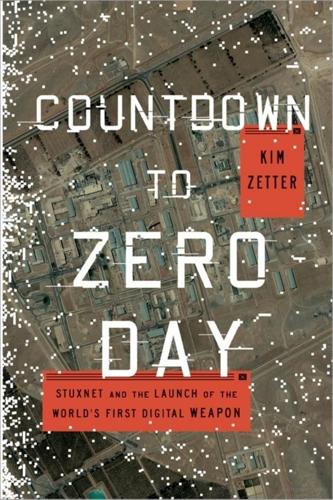
Countdown to Zero Day: Stuxnet and the Launch of the World's First Digital Weapon
by
Kim Zetter
Published 11 Nov 2014
The article quoted a US source speculating that “malicious software” could be used to commandeer or crash controls at an enrichment plant.11 But there was another reason to suspect that Natanz was Stuxnet’s target. On July 16, 2009, three weeks after the 2009 version of Stuxnet was released, WikiLeaks founder Julian Assange posted a cryptic note to his website about a possible accident at Natanz. An anonymous source claiming to be associated with Iran’s nuclear program had told Assange that a “serious” nuclear accident had recently occurred at the plant.12 WikiLeaks usually published only documents on its site, not tips from anonymous sources, but Assange broke protocol, he said, because he had reason to believe the source was credible.
…
The Age of Deception: Nuclear Diplomacy in Treacherous Times (New York: Metropolitan Books, 2011), 141–47. 26 Karl Vick, “Iran’s President Calls Holocaust ‘Myth’ in Latest Assault on Jews,” Washington Post, Foreign Service, December 15, 2005. 27 “06Kuwait71, Kuwait’s Country Wide Radiation Monitoring System,” US State Department cable from the US embassy in Kuwait to the State Department in Washington, DC, January 2006. Published by WikiLeaks at wikileaks.org/cable/2006/01/06KUWAIT71.html. 28 The assessment comes from Ariel (Eli) Levite, deputy director general of the Israel Atomic Energy Commission, in a September 2005 US State Department cable from the Tel Aviv embassy, published by WikiLeaks at wikileaks.org/cable/2005/09/05TELAVIV5705.html. 29 “06TelAviv293, Iran: Congressman Ackerman’s January 5 Meeting at,” US State Department cable from the US embassy in Tel Aviv, January 2006. Published by WikiLeaks at wikileaks.org/cable/2006/01/06TELAVIV293.html. See this page in this book for an explanation of the problems. 30 Privately, Israel and Russia both told the United States they believed Iran could actually master its enrichment difficulties within six months.
…
See “06Cairo601, Iran; Centrifuge Briefing to Egyptian MFA,” US State Department cable, February 2006, published by WikiLeaks at wikileaks.org/cable/2006/02/06CAIRO601.html. 31 “06TelAviv688, Iran-IAEA: Israeli Atomic Energy Commission,” US State Department cable, February 2006, published by WikiLeaks at wikileaks.org/cable/2006/02/06TELAVIV688.html. 32 Ibid. 33 “Iran Defiant on Nuclear Deadline,” BBC News, August 1, 2006, available at news.bbc.co.uk/2/hi/5236010.stm. 34 “07Berlins1450, Treasury Under Secretary Levey Discusses Next,” US State Department cable from the embassy in Berlin, July 2007, published by WikiLeaks at wikileaks.org/cable/2007/07/07BERLIN1450.html.
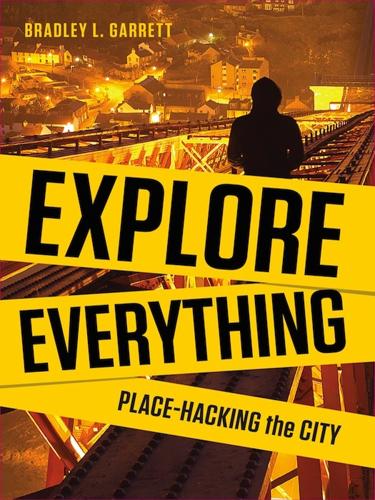
Explore Everything
by
Bradley Garrett
Published 7 Oct 2013
Once inside, we found that the magnetic reed switch alarm systems on the doors had been disabled prior to our arrival, a technique straight out of Ninjalicious’ book Access All Areas.81 We concluded that the PIRs must also have been disabled, based on the fact that the bunker was not teeming with angry police by this point. So it seemed we had free access to an entire bunker full of potentially sensitive documents, though in the end, we all joked about how unexciting most of it actually was. Just weeks after Julian Assange’s WikiLeaks fiasco, when he appeared in a London courtroom for disclosing government secrets, we had gained entry into a secure file-storage area and had unrestrained access to all the documents it contained. I imagined Assange would have been pleased to know this was happening; his ethos for transparency so closely aligned with ours.
…
Brick, Subterranean Twin Cities (Minneapolis, MN: University of Minnesota Press, 2009). 26 John Hollingshead, Underground London (London: Kessinger, 2009 [1862]); Charles Dickens, All the Year Round (London, 1861). 27 Whipplesnaith, The Night Climbers of Cambridge (Cambridge: Oleander Press, 2007 [1937]). 28 See Tom Whipple, ‘Confessions of a Night Climber’, Times, 2 November 2007. 29 Tom Wells, ‘Deck the Halls with, er, 150ft-high Santa Hats’, Sun, 4 December 2009. 30 Patrick Sawer, ‘Cambridge University’s 1958 Car on Roof Prank Secrets Revealed’, Telegraph, 28 June 2008. 31 Jon Lackman, ‘The New French Hacker-Artist Underground’, Wired, 20 January 2012. 32 Steven Jones, The Tribes of Burning Man: How an Experimental City in the Desert Is Shaping the New American Counterculture (San Francisco: CCC Publishing, 2011). 33 Geoff Manaugh, The Bldg Blog Book (San Francisco: Chronicle, 2009). 34 D. Wershler-Henry, ‘Urban Life: Usufruct in the City’, Globe and Mail (2005), quoted in Steven High and David W. Lewis, Corporate Wasteland (Ithaca, NY: Cornell University Press, 2007), p. 42. 35 Ashley Fantz and Atika Shubert, ‘Wikileaks “Anonymous” Hackers: “We Will Fight” ’, CNN, 10 December 2010. 36 Lucy Osborne, ‘Urban Explorers Enter London’s Landmarks’, Evening Standard, 10 November 2011. 37 David Pinder, ‘Old Paris No More: Geographies of Spectacle and Anti-Spectacle’, Antipode 32: 4 (October 2000). 38 Quentin Stevens, The Ludic City: Exploring the Potetial of Public Spaces (London: Routledge, 2007). 39 Michael Scott, ‘Hacking the Material World’, Wired 1: 3 (July/August 1993). 40 E.
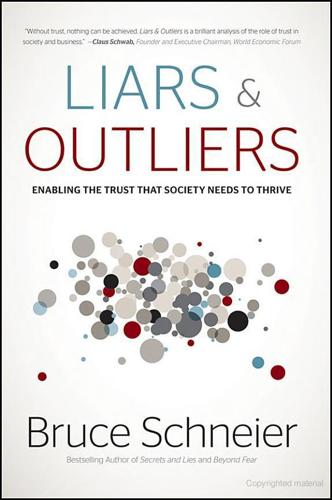
Liars and Outliers: How Security Holds Society Together
by
Bruce Schneier
Published 14 Feb 2012
On the other hand, Microsoft probably has better systems in place to prevent infiltration by rogue programmers. WikiLeaks is another stateless organization. WikiLeaks sits somewhere between a loose organization of activists and the personal mission of a single individual named Julian Assange. It exposes information that governments and powerful corporations would rather keep secret. In this way it is very much like an organization of journalists. But because it is not a commercial enterprise, and because it is not moored within a country, it's much more difficult to corral. And this scares countries like the United States. Compare WikiLeaks to a traditional newspaper. That newspaper is in a societal dilemma with all the other newspapers in that country.
…
In mid-2004, the New York Times learned about the NSA's illegal wiretapping of American citizens without a warrant, but delayed publishing the information for over a year—until well after the presidential election. Presumably there are things the New York Times has learned about and decided not to publish, period. WikiLeaks changes that dynamic. It's not an American company. It's not even a for-profit company. It's not a company at all. And it's not really located in any legal jurisdiction. It simply isn't subject to the same pressures that the New York Times is. This means the government can't rely on the partial cooperation of WikiLeaks in the same way it can rely on that of traditional newspapers.5 In a blog post about the topic, Clay Shirky referred to the Supreme Court ruling in the Pentagon Papers case that said it's illegal to leak secrets but not illegal to publish leaks: The legal bargain from 1971 simply does not and cannot produce the outcome it used to.
…
In 2005, Captain Ian Fishback exposed the U.S.'s use of torture in Iraq because of his religious convictions. Similarly, Bradley Manning had to deal with two competing societal dilemmas in 2010 when he allegedly became a whistle-blower and sent 250,000 secret State Department cables to the anti-secrecy group WikiLeaks, which made them public.5 Like the Libyan pilots, he chose to defect from the government and cooperate with what he perceived as the country as a whole. His subsequent treatment by the U.S. government—which incarcerated him, stripped him of due process, and tortured him—is in part a societal pressure by the government to prevent copycat defections.
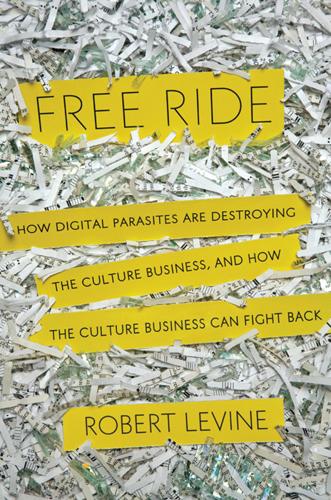
Free Ride
by
Robert Levine
Published 25 Oct 2011
In 1996, when most newspapers were still figuring out how to put stories online, Rusbridger, who had been named top editor the previous year, started the Guardian Online as a separate division. During the dot-com bust, as other newspapers cut online staff, he kept investing in digital journalism. More recently, he delivered some of the smartest coverage of the U.S. diplomatic cables from WikiLeaks, dealing with Julian Assange to get the information and asking readers what was worth searching for in the trove of documents. Although more news outlets have started charging for content, Rusbridger believes Internet “paywalls” could hurt journalism itself. “That might be the right direction in business terms, while simultaneously reducing access and influence in editorial terms,” Rusbridger said in a January 2010 speech at the London College of Communication.
…
The demand for U.S. movies isn’t likely to change soon; countries with homegrown film businesses rarely produce effects-driven popcorn fare like Wolverine. But exporting them relies on international recognition of copyright, which the Internet is eroding. Movies also shape the world’s idea of what the United States stands for, as a cable written by an American diplomat in Saudi Arabia released on WikiLeaks showed. “It’s still all about the War of Ideas here, and the American programming on [the television channels] MBC and Rotana is winning over ordinary Saudis in a way that [the U.S.-funded satellite channel] ‘Al Hurra’ and other U.S. propaganda never could,” read the May 2009 message.25 Titled “David Letterman: Agent of Influence,” it mentioned Friends and Desperate Housewives as being particularly popular.
…
This ratio was used in the March 2010 Terra Consultants study, “Building a Digital Economy: The Importance of Saving Jobs in the EU’s Creative Industries.” 22. According to Nash Information Services. 23. According to BigChampagne. 24. This ratio was also used in the Terra Consultants study. 25. Robert Booth, “WikiLeaks Cable: Jihad? Sorry, I Don’t Want to Miss Desperate Housewives,” Guardian, December 7, 2010. 26. Ricardo H. Cavazos Cepeda, Douglas C. Lippoldt, and Jonathan Senft, “Policy Complements to the Strengthening of IPRs in Developing Countries” (OECD Trade Policy Working Paper No. 104, Organisation for Economic Co-operation and Development, September 14, 2010). 27.
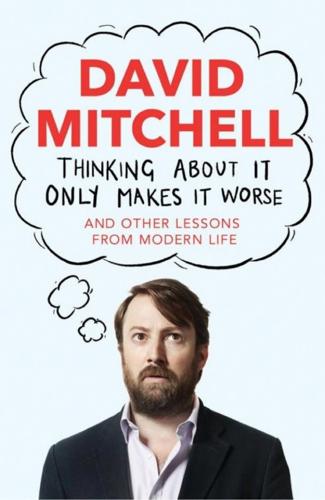
Thinking About It Only Makes It Worse: And Other Lessons From Modern Life
by
David Mitchell
Published 4 Nov 2014
“The effects of ‘toffee-lung’, ‘cracknell shin’ and ‘vibration white chocolate finger’ on the Oompa-Loompa communities of the Midlands have to be seen to be believed,” Rantzen claimed. A spokesman for Cadbury’s said: “If they could get the chocolate to stick to the Curly Wurlys properly, maybe they’d deserve the minimum wage.” Shock WikiLeaks revelations The debate over transparency and freedom of information intensified in 2019 when WikiLeaks published details of what everyone in the world would be getting for Christmas. “Secrets are used to control people,” said Julian Assange via Skype from his Mars-bound prison rocket. “Wrapping paper is one of the most oppressive inventions in human history. As for the Christmas cracker, it is a highly dangerous form of violent concealment.
…
But not as much as Nick Clegg, I’m afraid. 1 Weight Watchers 1, 2 West Country 1 West, Kanye 1 West Midlands, desire to evacuate of 1 WH Smith, David Cameron’s incomprehension of the business model of 1 wheelie bins 1, 2 Whisperers, The (Figes) 1 White, Charlene 1 Who Wants to Be a Millionaire? 1 Why Don’t You …? 1 Widdecombe, Ann 1, 2 WikiLeaks 1 Wilby, Peter 1, 2 William I 1 William, Prince, Duke of Cambridge, fictional nudey antics of 1 Williams, Ch. Supt Stuart 1 Witchell, Nicholas, arousal of 1 Wolverhampton 1 Wolverhampton Wanderers FC 1 Woods, Tiger 1 words, new, favourite and not so favourite 1, 2 World Cup 2010 1 world heritage sites 1 World War One 1 and Gove 1 Somme 1, 2, 3 World War Two 1, 2 World’s Most Hated Company 1 X Factor, The 1, 2 X-Men 1 Yarwood, Mike, inferiority to Dustin Hoffman of 1 Yes Minister 1 York, Duchess of 1 Young, Toby 1 Zimbabwe 1 About the Author David Mitchell is a comedian, actor, writer and the polysyllabic member of Mitchell and Webb.
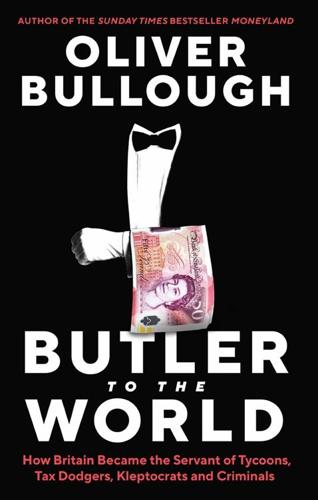
Butler to the World: How Britain Became the Servant of Tycoons, Tax Dodgers, Kleptocrats and Criminals
by
Oliver Bullough
Published 10 Mar 2022
The long delay in issuing the arrest warrant had been entirely a result of waiting for Firtash to fly to a country which might be prepared to extradite him. The US has no extradition treaty with Ukraine, so he couldn’t be arrested at home, and previous attempts to extradite suspects from the UK had convinced them there was little prospect of bringing him to Chicago from London either. ‘Look at Julian Assange. Whether you agree or disagree with what his crimes are, it’s been, what, ten years? The sheikh who was part of 9/11 planning, he took years to get to the US,’ the source said. ‘The only other option was France, and they’re even worse than the UK. We only had a few places we could go to, because he only went to a few places, so the choice we had was Austria.’
…
Gazprom told the post-revolutionary government it would be renegotiating its gas supply contract, and when Ukraine refused to agree to its terms, cut it off. In the depths of winter the whole country suddenly realised quite how dependent it was on Russian goodwill. There’s a plaintive account in the State Department archive released by Wikileaks of a meeting between the US ambassador and Yushchenko’s prime minister. It describes the sudden urgency of the choice that had previously been postponed since 1991. ‘He was on the horns of a dilemma. If he went ahead with the deal with RUE, he and the Our Ukraine Party would be accused of corruption.
…
‘There is no business connection between Mr Mogilevich and me. I have never had any direct business dealings with him, nor does he have any interests in any of my companies,’ Firtash wrote in a letter to the WSJ in 2007. According to an account of a meeting between Firtash and US officials a year later, and released by Wikileaks, ‘Firtash acknowledged that he needed, and received, permission from Mogilevich when he established various businesses, but he denied any close relationship with him.’ (After the cable was published, Firtash issued a statement denying he had ever acknowledged this, and suggested the claim was a ‘mistranslation or misunderstanding’.)
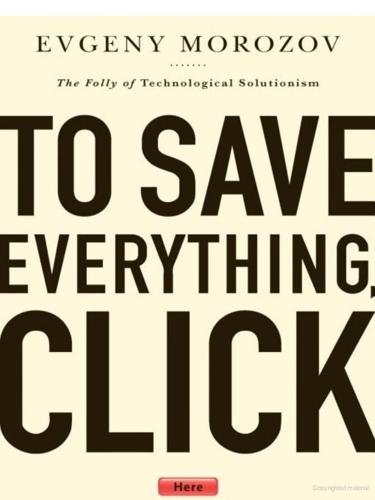
To Save Everything, Click Here: The Folly of Technological Solutionism
by
Evgeny Morozov
Published 15 Nov 2013
This notion of the almost God-given superiority of networks informs Shirky’s interpretation of WikiLeaks, the one transnational network to rule them all. Thus, in a later speech, Shirky argues that “there was no way the State Department could go to WikiLeaks and have a conversation that hinged on or even involved anything called the national interest. Julian [Assange] is not a U.S. citizen, he is an Australian citizen. He was not operating on U.S. soil, he was in Iceland. The Pentagon Papers conversation took place entirely within the national matrix, and the WikiLeaks conversation took place outside of it.” Groups win; nation-states lose.
…
PayPal may have obviated the theoretical need for banks—but its investors still need a bank to cash their checks from PayPal, so no technoescape actually takes place. Consider the role that PayPal has played in the WikiLeaks saga: yes, it was initially a great tool to raise money for Assange’s cause, but the moment WikiLeaks took on the US government, PayPal ran away from Assange (freezing WikiLeaks’s account) in much the same way that Peter Thiel wants to run from reality. Likewise, as of July 2012, PayPal had revised how it deals with file-sharing sites, requiring any sites that want to use PayPal to solicit membership fees from users to ensure that they host no illegal files.
…
The problem here is that Clay Shirky believes that global affairs now work according to the demands of “the Internet,” while, in reality, the story is much more complicated. A conversation about the national interest between the transglobal network that is (was?) WikiLeaks and the US government actually did take place. In fact, according to at least some credible reports, WikiLeaks did offer the State Department the opportunity to review the diplomatic cables and highlight what should be redacted—an opportunity that the ugly and messy hierarchy of the State Department reportedly declined (Mark Stephens, one of Assange’s numerous ex-lawyers, once claimed that two cables were actually removed at their request).
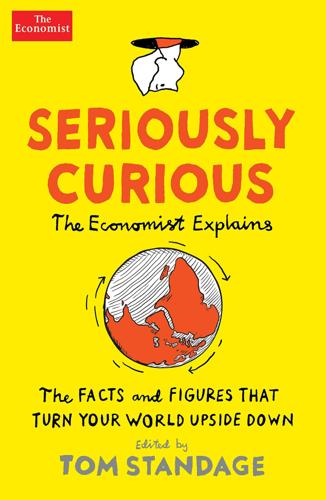
Seriously Curious: The Facts and Figures That Turn Our World Upside Down
by
Tom Standage
Published 27 Nov 2018
Whether or not people get married is their own business. But the finding does offer some comfort to those who worry that declining marriage rates are purely the product of worsening economic prospects for men. Clearly, some other factor is at play. What explains Europe’s low birth rates? Julian Assange, the founder of WikiLeaks and apparently an amateur demographer, is worried about Europe’s declining birth rate. In a tweet posted in 2017 he posited that “Capitalism + atheism + feminism = sterility = migration”, and noted that the leaders of Britain, France, Germany and Italy were all childless. Never mind that Mr Assange needs a dictionary.
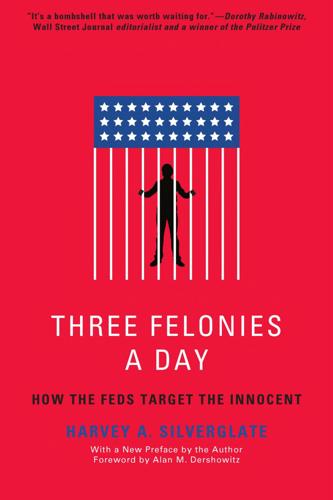
Three Felonies a Day: How the Feds Target the Innocent
by
Harvey Silverglate
Published 6 Jun 2011
His sister, Sally Goodson, succinctly and accurately summed up his “crime” in a remembrance of her beloved brother: “Truthful speech to fellow physicians about the off-label use of an FDA-approved drug.” Just as federal prosecutors managed to disrupt the activism of Siobhan Reynolds and derail the medical practice of Dr. Peter Gleason, so the feds in late 2010 took up the task of finding some basis in federal law for putting Julian Assange, founder of the whistleblowing platform WikiLeaks, out of business. The international organization had made 2010 a landmark year for the exposure of government secrets. Among the groundbreaking releases: a video depicting U.S. military forces killing two Reuters journalists and nine Iraqis in 2007; Pentagon files detailing abuse of Iraqi prisoners as well as 15,000 previously unreported civilian deaths; and a steady stream of U.S. diplomatic cables dealing with subjects like Iran’s nuclear program and alleged CIA torture.
…
The still unfolding WikiLeaks saga also provided instruction as to how the feds, in trying to pin a crime on their ultimate target, intimidate that target’s supporters. Salon’s Glenn Greenwald noted that his readers, even while believing strongly in WikiLeaks’s cause, were apprehensive about offering their financial support. They worried about being put on a government blacklist, Greenwald wrote, “or, worse, incur[ring] criminal liability for materially supporting a Terrorist organization.”9 While Greenwald pointed out that it would be a stretch to apply this statute to WikiLeaks’s supporters, a Supreme Court ruling in June 2010 nonetheless gave well-informed, rational citizens grounds to fear punishment.
…
Anzalone, 180, 229, 247, 264 University of Pittsburgh Human Genetics Laboratory, 235, 236 Weil, Jonathan, 125–126, 146 Welch, Matt, 209–210 Weld, William Floyd, 14–27 Wexler, Leonard D., 53–54 whistleblowers, 88–90, 94 White, Byron, 199 unlawful incitement to violence, 240 White, Kathryn, 17, 19 Urso, Lindy, 163 White, Kevin Hagan, 14–27, 229 336 index White, Patricia, 19, 21 workplace safety, 255–256 white collar sentencing guidelines, 143–144 Wright, Otis D., xxi wiggle room, 37–38 Wrongful Death Accountability Act (proposed), 256 WikiLeaks, xiii–xiv Wu, Tim, l Wilkerson, Dianne, xvii–xviii Williams, Thomas, 163 Xyrem®, xiii, 63–65 Wilmot, Pamela H., 35 Wilson, Joseph, 207 Yeltsin, Boris, xxiii wire fraud Burkle and Stern and, 194 Ferrell and Kurtz and, 234–237 Lay and, 124 Milken and, 99 The New York Times and, 213 Stern, Jared Paul, and, 194 Yukos Oil, xxiii Wiretap Act, 258–260, 263 wiretapping, 257–264 witness bribery, xlvii–xlviii witness cooperation Anzalone and, 19–20, 22 Councilman and, 264 Gleason and, 66, 95–96 Greenberg and, 154–155 journalists and, 205 judges and, 270 KPMG and, 143–147, 149–150 LaFreniere and, 170, 172, 178–179 Martinez and, 7, 10–11 Milken and, 99, 101, 103, 105–106 prosecutorial threats and, xxvi, xlvi–xlix See also plea bargaining Wolf, Mark L., 17 Wood, Kimba, 102–105 Woodlock, Douglas, xvii–xviii, 33, 224–231 Woodrow Wilson Center’s Middle East program, 223 Zehe, Albert, 217–224 Zobel, Rya, 242 Zoladex®, 91
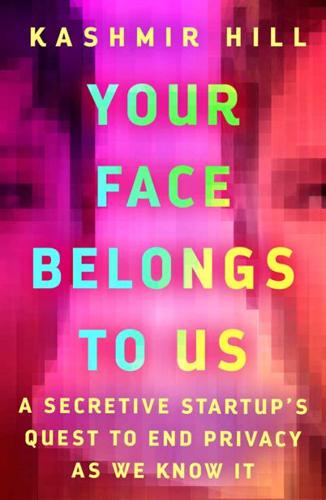
Your Face Belongs to Us: A Secretive Startup's Quest to End Privacy as We Know It
by
Kashmir Hill
Published 19 Sep 2023
And, of course, Facebook had induced them to post photos. So many photos. By 2010, Facebook users were uploading 2.5 billion photos per month, mainly of themselves, their friends, and their family members (whom they were dutifully tagging). It was the “most appalling spying machine that has ever been invented,” as Wikileaks founder Julian Assange memorably put it. The online social network was free, but only because Facebook users were themselves the commodity for sale. Marketers loved Facebook because it had the eyeballs and data of millions of people, increasing the odds of targeting the right person with the right ad. For Acquisti, Facebook was an incredible case study at a massive scale of the economics of privacy.
…
GO TO NOTE REFERENCE IN TEXT Ton-That befriended: Author’s interviews with acquaintances of Hoan Ton-That who spoke on the condition of anonymity, 2020–2021. GO TO NOTE REFERENCE IN TEXT “I’ll stop using”: Hoan Ton-That Twitter page from January 2016, retrieved via Wayback Machine. GO TO NOTE REFERENCE IN TEXT an opportunity to launder money: After Bill Clinton adviser John Podesta’s inbox was hacked, WikiLeaks published the contents online, including an email from an aide to Clinton, who was seemingly disgruntled about public remarks by his daughter, Chelsea, and wrote that she should quiet down or face a possible “investigation into her getting paid for campaigning, using foundation resources for her wedding and life for a decade.”
…
GO TO NOTE REFERENCE IN TEXT “On the internet”: Peter Steiner, “On the Internet, Nobody Knows You’re a Dog,” The New Yorker, July 5, 1993. GO TO NOTE REFERENCE IN TEXT uploading 2.5 billion photos: Eric Eldon, “New Facebook Statistics Show Big Increase in Content Sharing, Local Business Pages,” Adweek, February 15, 2010. GO TO NOTE REFERENCE IN TEXT “most appalling spying machine”: “WikiLeaks Revelations Only Tip of Iceberg—Assange,” RT, May 2, 2011. GO TO NOTE REFERENCE IN TEXT Marketers loved Facebook: Anthony Ha, “Author Clara Shih on the Facebook Era, and What It Means for Businesses,” VentureBeat, March 29, 2009. GO TO NOTE REFERENCE IN TEXT “one of the holy grails”: Stephanie Rosenbloom, “On Facebook, Scholars Link Up with Data,” New York Times, December 17, 2007.
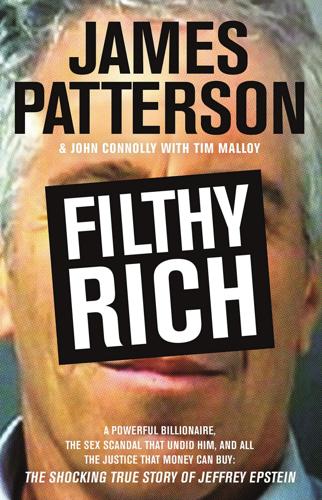
Filthy Rich: A Powerful Billionaire, the Sex Scandal That Undid Him, and All the Justice That Money Can Buy: The Shocking True Story of Jeffrey Epstein
by
James Patterson
,
John Connolly
and
Tim Malloy
Published 10 Oct 2016
You’ll get it back tenfold.” “Once again,” she said afterward, “my errors have compounded and rebounded and also impacted on the man I admire most in the world: the Duke.” Prince Andrew had had his troubles already—with shady real estate deals, sticky romances, highly embarrassing document dumps (courtesy of Julian Assange and WikiLeaks), and questionable ties to Tunisian oligarchs, corrupt presidents of former Soviet republics, and Mu’ammar Gadhafi, among other entanglements, many of which were explored in a Vanity Fair article headlined THE TROUBLE WITH ANDREW. “The duke has a record of being loyal to his friends,” a “royal source” told Vanity Fair’s Edward Klein.
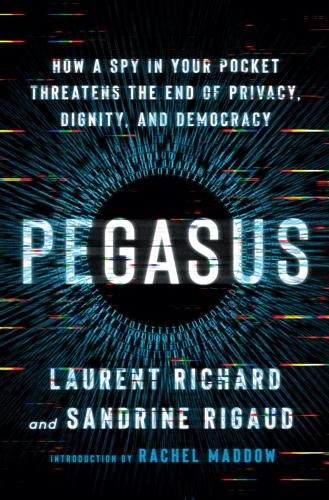
Pegasus: How a Spy in Your Pocket Threatens the End of Privacy, Dignity, and Democracy
by
Laurent Richard
and
Sandrine Rigaud
Published 17 Jan 2023
Two weeks in Berlin and Donncha knew thirty different cybergeeks locked in battle against the rising tide of cybersurveillance. Donncha ended up back in Berlin after graduation, in the summer of 2015, a few weeks after the unveiling in Alexanderplatz of the life-size bronze statues of Edward Snowden, Julian Assange, and Chelsea Manning, the US whistleblower who had released hundreds of thousands of documents to Wikileaks, a number of them classified or sensitive, and a lot more of them simply embarrassing. Donncha was in Berlin for a Summer of Privacy internship at Tor, a nonprofit cybersecurity venture. “We believe everyone should be able to explore the internet with privacy,” read the Tor mission statement.
…
We were already in the middle of our third major investigation. I was still scanning the room as Sandrine talked, and I was having some doubts. We were a new organization, young in every way. The average age of our core reporting team was about twenty-five. This new investigation we were contemplating had the potential to blow up into a Wikileaks- or an Edward Snowden–sized revelation, much bigger and more sensitive than anything Forbidden Stories had ever tackled—with added layers of danger. NSO would fight us every step of the way. The company had enormous financial resources, as well as the protection of powerful military and intelligence officials in the Israeli government.
…
Tunisia Turkey Turkmenistan Twitter Tzachi Uganda Ukraine Unit 8200 alumni of United Arab Emirates DarkMatter and Israel and NSO and United Kingdom United Nations Guiding Principles of Human Rights Security Council United States (see also specific states) aid to Mexico against drug cartels Azerbaijan and blacklisting of NSO by CIA Department of Defense Department of Homeland Security Drug Enforcement Agency (DEA) FBI Israel and lack of action on Radi’s case Morocco and National Security Agency (NSA) presidential inauguration of 2021 State Department University of Michigan, Knight-Wallace Fellowship program University of Toronto, Citizen Lab peer review by prepublication reports to NSO Untersinger, Martin “US-Azerbaijan: Vision for the Future” conference Vanity Fair Varadarajan, Siddharth Venu, M. K. Veracruz, Mexico Videgaray, Luis Vincenzetti, David virtual private networks (VPNs) Wall Street Journal Washington, D.C. Washington Post Global Opinion columns Khashoggi and Radi and Western Sahara WhatsApp Wickr Wikileaks the Wire Wired World Bank, Control of Corruption report world leaders (see also specific leaders) Wyoming Yom Kippur War Yunus, Leyla Ziv, Amitai ABOUT THE AUTHORS LAURENT RICHARD is a Paris-based award-winning documentary filmmaker who was named the 2018 European Journalist of the Year at the Prix Europa in Berlin.
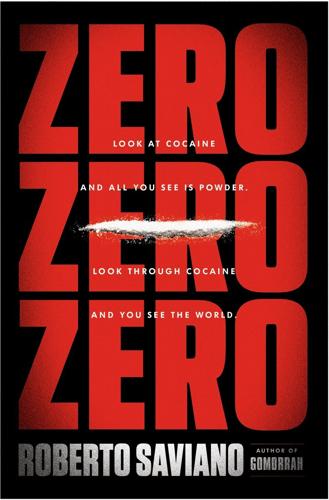
ZeroZeroZero
by
Roberto Saviano
Published 4 Apr 2013
Another cable, which predates their meeting, talks of potential ties between Firtaš and Mogilevic, suggested by their shared investment in certain offshore companies and the fact that they have the same lawyer. These ties had already been noted in a previous intermediary gas company, Eural Trans Gas. But that same lawyer sues the Guardian for publishing documents circulated by WikiLeaks’s Julian Assange in an article by Luke Harding titled “WikiLeaks Cables Link Russian Mafia Boss to EU Gas Supplies.” In the correction that the London paper was forced to print on December 9, 2010, “to clear up any subsequent mistranslation or misunderstanding of their meeting,” Firtaš denies having any connection to Mogilevic other than a simple acquaintance.
…
In 2006 Julija Timošenko had already told the BBC: “We have no doubt that Mogilevic is the person behind the entire RosUkrEnergo operation.” Hers is one of the loudest among the many accusing voices that fell on deaf ears for years, until a document surfaced and caught the notice of public opinion in the West. It’s one of the secret files published by WikiLeaks: a cable from Kiev dated December 10, 2008, from the American ambassador William Taylor. It refers to a meeting with Dmitro Firtaš, the Ukrainian oligarch behind RosUkrEnergo, in which he warned Taylor that Timošenko planned to eliminate his company both for personal interests and internal political conflicts, for which she was willing to make concessions to Putin, thus strengthening his influence in Europe.
…
John, 375 Saint-Raphaël, France, 213 Šalamov, Varlam, 348 Salento, Italy, 217 Salerno, Italy, 179, 189, 291 Salina Cruz, Mexico, 295 Salinas de Gortari, Raúl, 255–57 Samper Pizano, Ernesto, 151 San Calogero, Italy, 175, 177, 195 Sánchez Celis, Leopoldo, 20 Sánchez Hinojosa, Alberto (El Tony), 296 San Diego, Calif., 40 San Fernando, Mexico, 102–3 San Lazzaro di Savena, Italy, 180, 196 San Luca, Italy, 168, 174, 203, 218 San Marino, 198–99 San Miguel de Allende, Mexico, 50 San Nicolás de los Garza, Mexico, 97 San Salvador, 352 Santa Marta, Colombia, 144–45 Santa Martha Acatitla prison, 365–66 Santa Monica Hospital, 46 Santos, Brazil, 307 São Paulo, Brazil, 332, 334 Scali, Natale, 173–74, 182, 184–85, 188, 189, 190, 191 Scampia (Naples neighborhood), 231, 338–42, 344, 346 Scipione, Santo (Papi), 174, 184–85, 187, 189 “scissionisti” (secessionists), 340 Scopelliti, Antonino, 169 scorpion logo, 302, 303 Scotland Yard, 245, 278 SEA, 179 Secondigliano (Naples neighborhood), 344 Secretariat of National Defense (SEDENA), Mexican, 95–96 Semana, 163–64 Senate Permanent Subcommittee on Investigations, 253–54 Senegal, 320–21 September 11 attacks (2001), 242, 246 Sepúlveda, Dario, 360 Sepúlveda Blanco, Michael Corleone (Paco), 360, 362 Sergej (Mogilevic associate), 267–68 Sergi, Paolo (Shorty), 229–30, 235 Severa, Roberto, 225–26 sexual dysfunction, 120–22 Shadow Warriors, 350 Shakira, 133 Sheldan (yacht), 300 Sheremetyevo International Airport, 276 Sicilia, Javier, 71 Sicily, 167–69, 170, 217, 229, 230, 232–34 Siderno, Italy, 194, 214, 217 Sierra Leone, 321–22 Sinaloa, Mexico, 20, 25, 38–42, 46, 51–56, 60, 62, 66, 102, 126, 243, 306–7, 363–64 Sinopoli, Italy, 194 Sin tetas no hay paraíso (Without Breasts There Is No Paradise), 135 Sirio (sailboat), 300 Sirleaf, Fumbah, 321 Širokov, Nikolaj, 270 60 Minutes, 166 Slovakia, 272, 286 Smorfia Napoletana, 337–38 Sneath, Paul, 328 sniffer (antidrug) dogs, 289, 313, 330, 343–47 “snow,” 108, 113 Société Générale, 247 sodium bicarbonate, 113 sodium hydroxide, 113 Soldini, Giovanni, 297 Solís, Luis, 101 Solive, Carole, 355 Solncevo neighborhood, 262–63 Solncevskaja Bratva (Solncevo Brotherhood), 262–63, 268, 269–71, 275–76, 277, 284 Sol y Sombra discotheque, 63 Sonora, Mexico, 30, 45, 102 Sotheby’s, 271–72 South Africa, 322 South Sea (ship), 317 Soviet Jews, 260–61, 262, 268–69 Soviet Tango class submarines, 279–81 Soviet Union, 260–62, 264, 265, 268–69, 279–83, 287, 293 see also Russia Spain, 52, 76, 179, 180, 216, 219, 222, 226–27, 234, 236, 237, 238, 291, 294, 306–7, 308, 331 Specially Designated Narcotics Trafficker, 185–86 Special Operations Group (ROS), 178, 191, 298, 328 State Department, U.S., 32, 97 Stone cocaine, 118 Strangio, Francesco, 202, 203, 205 street pushers, 115–16, 123 strip clubs, 279–80 submarines, 127, 279–81, 293–96, 306 subprime mortgages, 247–48 sulfuric acid, 75 Summit International, 273–74 SuperEnalotto lottery, 193 superhero logos, 303 Supreme Court, Italian, 236 Supreme Court, Mexican, 41 suspicious activity reports (SARs), 199, 243–46 Switzerland, 255–57 synaptic junctures, 35–36 Taliban, 185 Tamaulipas, 42, 54, 60, 96, 100, 102–3 Tampico Alto, Mexico, 68 Taurianova, Italy, 197 Taxceno (Taxi Aéreo del Centro Norte), 44 Taylor, William, 286–87 Terremoto de Manizales (racehorse), 223 Texas, 42, 68 Thomson Reuters, 250 Thoreau, Henry David, 374 Tiempo, 368 Tierra Caliente (Hot Land), 63 Tijuana, Mexico, 30, 40, 44, 60, 93, 98 Time, 259, 317 Timofeev, Sergej (Sylvester), 273 Timošenko, Julija, 285 tocra coke, 112 Tocumen International Airport, 319 Top Rate Change, 227 Torre Cantú, Rodolfo, 100 transit taxes, 255–56 transnational organized crime (TOC), 250 Trapani, Italy, 231–32, 233 traveler’s checks, 243–46 Treasury Department, U.S., 245–46, 254 Trevi, Gloria, 101 Treviño Morales, José, 252–53 Treviño Morales, Miguel Ángel (El Z40), 98, 103, 252 Treviño Morales, Omar (El Z42), 98–99 Trimboli, Rocco, 230 Trinidad Cerón, Luis Alberto (El Guicho), 61 tripulantes (ship’s crew), 291–92, 297, 299, 300 Troika restaurant, 274 tropane alkaloids, 113–14 Trujillo, Carlos (Griselda Blanco’s first husband), 359–60 Truxillo coca, 114 Turatello, Francis (Angel Face), 212 Turin, 298, 331 Turkey, 215, 232 Twenty-first Motorized Cavalry Regiment, Mexican, 60 Ufa (sniffer dog), 345 U Holubů restaurant, 275 Ukraine, 260, 276, 277, 279, 285–87 UniCredit Bank, 193 Unidad Revolucionaria Nacional Guatemalteca (Guatemalan National Revolutionary Unity), 83 Union Frigo Transport Logistic, 196–97 United Nations, 74, 207–9, 250 United Nations Office on Drugs and Crime, 207–9, 250 United Sacred Crown, 296–97 United States: access routes to, 20–23, 39–40, 42, 49, 57, 59 cocaine market of, 34, 38–39, 51–53, 59, 73–77, 127, 289 Colombian relations with, 127, 131, 148–49, 154–66, 189 drug enforcement in, 19–34, 64–65, 97, 148–66, 168, 294–95 extraditions to, 41, 59, 131, 148–51, 162–66, 282, 285, 366 illegal immigration to, 102, 289 Italian relations with, 168, 178, 185–86 Mexican border of, 20–22, 39–40, 44, 53, 57, 60, 61, 69–70, 102, 289–90, 328 Mexican relations with, 28, 31, 41, 58, 158, 366 Russian mafia in, 262, 268, 273–74, 276, 279, 289, 294 war on terror of, 155–57, 187, 242, 254–55 Uralmaševskaja crime group, 269–70 Uribe, Álvaro, 155, 157, 166 Uribe Escobar, Mario, 166 Vado Ligure, Italy, 291, 329 Valdez Villarreal, Edgar (Barbie), 42–43 Valencia, Armando (Maradona), 158 Valencia, Erick (El 85), 67 Vallanzasca, Renato, 212 Valtur vacation resorts, 227 Van Kleef, Leon, 234–36 Varela, Wílber (Soap), 135 Vásquez Romero, Luis Roberto, 353, 354–55 Vega, Baruch, 149–51, 158–59, 162 Vendemini, Valter, 199 Venezuela, 164, 179–80, 202, 233, 238, 291 Ventrans, 180, 196 Ventrici, Francesco (El Gordo; Fatty), 175–76, 177, 180, 182–84, 190, 192, 195–200 Ventura Moussong, Juan Carlos, 365 Veracruz, Mexico, 67–68 Vibonesi group, 193 Vibo Valentia, Italy, 172, 175–76, 183, 191, 204–5, 254 Vida loca, La, 348–56 Vieira, João Bernardo, 316 Villarreal Barragán, Sergio (El Grande), 50 VM Trans, 196–97 Volkov, Aleksandr, 273–74 Vološin, Vladimir, 273–74 Volpiano, Italy, 344 Voltan, Mattia, 297–98, 299 Vory v zakone organization, 264–65, 271, 273, 285 Voz de Durango, La, 368 Voz de Michoacán, La, 64 Voz y Solución, 64 Wachovia Bank, 243–46, 249–50, 253 Wall Street, 247, 254, 273–74 Waridel, Paul Eduard (The Turk), 232–34 “white petrol,” 38, 57 WikiLeaks, 286–87 wiretapping, 181, 202, 228–30, 237, 298, 362 witness protection programs, 157–60, 164, 362 Woods, Martin, 243–46, 249–50, 252, 253 Woods, Ray, 332 Woods M5 Associates, 249 World Drug Report (2012), 207–9 yachts, 296–300 YBM Magnex International, 251, 276–77, 286 YouTube videos, 43, 67, 94 Yugoslavia, 219, 257 Yuma, Ariz., 290 Zacazonapan, Mexico, 68 Zambada García, Ismael (El Mayo), 30, 41, 55–56, 66, 363, 365 Zapata, Emiliano, 62 Zola, Émile, 348 Looking for more?
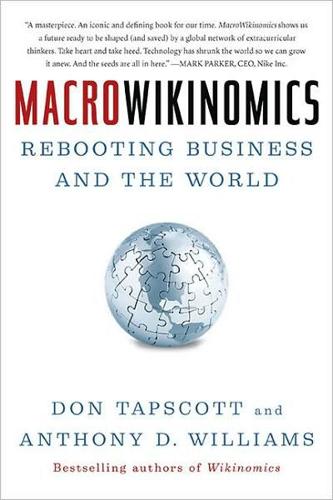
MacroWikinomics: Rebooting Business and the World
by
Don Tapscott
and
Anthony D. Williams
Published 28 Sep 2010
Its annual Freedom in the World report is a respected global benchmark assessment of the state of political rights in 192 countries and 14 related and disputed territories. 4. “Undermining Democracy: 21st Century Authoritarians,” Freedom House (June 2009). 5. James Gwartney and Robert Lawson, “Ten Consequences of Economic Freedom,” National Center for Policy Analysis (July 30, 2004). 6. We do know, however, that WikiLeaks was founded by an Australian (Julian Assange) who lives in East Africa. 7. Evgeny Morozov, “Think Again: The Internet,” Foreign Policy (May/June 2010). 8. Experts suggest that the differences between Mir Hossein Mousavi and Mahmoud Ahmadinejad are far less significant than what unites them. In the aftermath of their failed attempts to overturn the election results, many pro-democracy activists started to question whether Mousavi truly embraces their ideals.
…
In just a few short years, WikiLeaks has released more than a million confidential documents from highly classified military secrets to text messages of those killed in the 9/11 attacks. Not a great deal is known about its founders, except that WikiLeaks describes the group as comprising Chinese dissidents, hackers, computer programmers, lawyers, and journalists.6 To protect their sources (and their own identities), they spread assets, encrypt everything, and move telecommunications and people around the world to activate protective laws in different national jurisdictions. But who watches WikiLeaks? Can it be fully trusted?
…
Can it be fully trusted? The jury is out, but so far its track record is good. And when you put WikiLeaks together with the events in Iran and other places you can begin to see why dictators everywhere are wondering when this new citizen power is going to come knocking on their door. Indeed, the Pentagon may wonder whether WikiLeaks can be held to account when sensitive information leaks to the public. But the question we’re asking in this chapter is whether these developments are a prelude to an inevitable wave of democratization around the world—a wave generated by an explosive combination of youthful demographics, the spread of the Internet, and the lure of opportunity in the global economy.
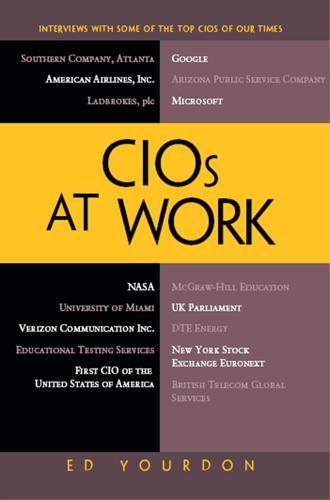
CIOs at Work
by
Ed Yourdon
Published 19 Jul 2011
And he rode through CIA and accessed files, which he had no business accessing, but nobody knew. Yourdon: Is he the one that provided it to the WikiLeaks guy, to [Julian] Assange? Or is that someone else? Strassmann: No, Ames provided to the Russians. Yourdon: Yeah. I thought he was the more traditional one. Who is the guy who gave all of the Wiki stuff? Strassmann: Oh, you know, a low-level sergeant. Yourdon: But the same problem? Strassmann: Same problem, exfiltration. And by the way, the stuff that is being reported is defective. The stuff that is reported that he downloaded, he cut a CD, and sent out by mail for WikiLeaks. Yourdon: Really? Strassmann: So now you are dealing with a problem.
…
Strassmann: So now you are dealing with a problem. I have several trays in there [pointing to his desktop computer] with CDs. Now, are you going to permit people to burn their own CDs? And, you know, today on a DVD, you can put a big database. Right now, WikiLeaks has a list of all the people who had accounts in the Cayman Islands. You know, that’s a three-million download. Yourdon: Right. [laughter] Amazing. Any other significant changes and developments that you think have really been worth mentioning over your career? Strassmann: Yeah, the awareness of money. You see, it used to be that everybody was budgeting the cost of money.
…
Index A AdKnow ledge, Inc., 87 Agile development methodology, 62 Amazon, 314, 319 America COMPETES Act, 304 American Airlines, 47, 72 American Defense Department, 84 American Marketing Society, 113 American Production Inventory Control Society, 211 Ames, 320 AMR Corp, 47 Android, 43 Annapolis, 340 Apple, 97, 101, 217, 242, 295 Computer, 35 Genius Bar, 8 Archipelago Holdings Inc., 87 Arizona Public Service (APS) Company, 66, 211, 223 Arizona State University, 227 ARPANET, 19, 117, 135 Art of Computer Programming, 2 Atlanta-based Southern Company, 191 AT&T, 191, 249 B Ballmer, Steve, 39 Bank of Boston, 47 Baylor-Grapevine Board of Trustees, 47 Bedrock foundation, 249 Bell Atlantic Mobile, 231 Bell Labs, 2, 249 BlackBerry, 60, 96, 116, 121, 171, 184, 246, 261, 296, 317 Blalock, Becky, 182, 191, 215 adaptability, 192 Air Force brat, 191, 192 Atlanta-based Southern Company, 191 banking industry, 203 Boucher, Marie, 196 brainstorm, 202 24/7 business, 199 business intelligence, 204 cloud computing, 205 cognitive surplus, 206 cognitive time, 206 Coker, Dave, 196 communication and education, 200 Community and Economic Development, 194 consumer market, 202 cybersecurity, 207, 209 data analytics, 204, 205 disaster recovery, 209 distributed generation, 204 distribution organization, 201 Egypt revolution, 198 farming technology, 206 finance backgrounds/marketing, 200, 209 Franklin, Alan, 193 Georgia Power, 191 Georgia Power Management Council, 193 global society, 206 Google, 198 incredible technology, 195 Industrial Age, 206 Information Age, 206 InformationWeek's, 196 infrastructure, 202 intellectual property, 196 intelligence and redundancy, 207 Internet, 198, 206 leapfrog innovations, 205 mainframe system, 207 marketing and customer service, 193, 200 MBA, finance, 192 microfiche, 207 microwave tower, 207 mobile devices, 203 mobility and business analytics, 205 Moore's Law, 205 new generation digital natives, 197 flexible and adaptable, 199 innovation and creativity, 199 superficial fashion, 198 Olympic sponsor, 193 out pushing technology, 202 reinforcement, 201 sense of integrity, 200 Southern Company, 194, 198, 201, 207 teamwork survey, 201 technology lab, 202 undergraduate degree, marketing, 192 virtualization, 205 VRU, 203 Ward, Eileen, 196 wire business, 201 world-class customer service, 203 Bohlen, Ken, 211 American Production Inventory Control Society, 211 Apple, 217 APS, 211, 223 ASU, 227 benchmarking company, 216 chief innovation officer, 229 Citrix, 217 cloud computing, 218, 219 cognitive surplus, 220 DECnet, 212 Department of Defense, 222 distributed computing, 217 energy industry, 214 gizmo/whiz-bang show, 216 GoodLink, 217 hard-line manufacturing, 218 home computing, 219 home entertainment, 219 Honeywell, 219 HR generalists, 215 information technology department, 211 Intel machines, 217 John Deere, 213 just say yes program, 223 Lean Six Sigma improvement process, 211 Linux, 220 MBA program, 214 mentors, 213 national alerts, 224 North American universities, 228 paradigm shifts, 218, 220 PDP minicomputers, 212 Peopleware, 226 prefigurative culture, 221 R&D companies, 218 Rhode Island, 226 role models, 213 San Diego Fire Department, 224 security/privacy issues, 217 skip levels, 223 smart home concepts, 219 smartphone, 217 social media, 225 Stead, Jerry, 214 Stevie Award, 211 Storefront engineering, 212 traditional management, 219, 226 Twitter, 224 vocabulary, 221 Waterloo operations, 213 Web 2.0 companies, 227 Web infrastructure, 215 wikipedia, 220 Y2K, 222 Botnets, 23 Brian's and Rob Pike's, 2 Bristol-Myers Squibb, 33 Broadband networks, 241 Brown, 227 Bryant, 227 BT Global Services, 253 BT Innovate & Design (BTI&D), 253 Bumblebee tuna, 130 C Career writing technology, 67 CASE tools, 232 Cash, Jim, 50 Christensen, Clyde, 212 Chrome, 14, 18 Chrysler Corporation, 175 Citibank, 337 Citicorp, 313 Citrix, 217 Client-server-type applications, 59 Cloud computing, 218, 219, 239, 240, 261, 262, 310, 311, 313 Cloud technology, 62 CNN, 54 COBOL, 250 Cognitive surplus, 20, 79, 206, 291 College of Engineering, University of Miami, 113 Columbia University, 1 Community and Economic Development, 194 Computer Sciences Corporation, 35 Computerworld magazine, 196 Consumer-oriented technology, 22 Content management system, 133 Corporate information management (CIM) program, 309 Corporate Management Information Systems, 87 Corvus disk drive, 36 Customer Advisory Boards of Oracle, 191 Customer-relationship management (CRM), 56 Cutter Business Technology Council, 173 D Dallas Children's Medical Center Development Board, 48 DARPA, 19 DDoS attacks and security, 81 DECnet, 212 Dell Platinum Council, 113 DeMarco, Tom, 16, 226 Department of Defense, 222, 329, 332 Detroit Energy, 252 Digital books, 30 Digital Equipment, 48 Distributed computing, 217 Dodge, 189 Dogfooding, 11, 37, 38, 236 DTE Energy, 173 DuPont Dow Elastomers, 151 E Educational Testing Service (ETS), 151 E-government, 282, 285 Electrical distribution grid, 182 Elementary and Secondary Education Strategic Business Unit, 151 Elements of Programming Style, 2 Ellyn, Lynne, 173 advanced technology software planning, 175 Amazon, 184 artificial intelligence group, 175 Association for Women in Computing, 173 benchmark, 180, 181 BlackBerries, 184 Burns, Ursula, 175 Chrysler, 176 Cisco, 186 cloud computing, 183, 184 component-based architecture, 186 corporate communications customer service, 185 Crain's Detroit Business, 173 cyber security threats, 177 degree of competence, 187 diversity and sophistication, 182 DTE Energy, 173 energy trading, 176 engineering and science programs, 188 enterprise business systems policy, 186 executive MBA program, 176 Facebook, 185 fresh-out-of-the-university, 187 General Electric, 174 Google, 184 Grace Hopper, 174 grid re-automation, 182 Henry Ford Hospital, 174 internal social media, 185 International Coaching Federation, 178 iPads, 184 IP electrical grids, 182 iPod applications, 182 IT budgets, 186 IT responsibilities, 176 Java, 186 level of sophistication, 179 lobbying efforts, 181 medical computing, 175 Miller, Joan, 174 Mulcahey, Anne, 175 Netscape, 175 neuroscience leadership, 189 object-oriented programming, 186 Oracle, 186 peer-level people, 179 people system, 177 policies and strategies, 180 Radio Shack, 180 remote access capacity, 189 security tool and patch, 183 sense of community, 180 Shipley, Jim, 174 smart grid, 177, 182 smart meters, 182 smart phone applications, 183 swarming, 179 technical competence, 178, 179 Thomas, Marlo, 174 Twitter, 185 UNITE, 181 vendor community, 186 virtualization, 183, 184 Xerox, 175 E-mail, 9 Employee-relationship management (ERM), 56 Encyclopedia, 115 Encyclopedia Britannica, 292 ERP, 123 F Facebook, 244 Ellyn, Lynne, 185 Sridhara, Mittu, 73, 84 Temares, Lewis, 116, 121, 131 Wakeman, Dan, 169 Federal information technology investments, 299 Flex, 236 Ford, 102 Ford, Monte, 47 agile computing, 59 agile development, 62, 66 airplanes, 51 American Airlines, 47 Arizona Public Services, 66 Bank of Boston, 47 Baylor-Grapevine Board of Trustees, 47 BlackBerry, 60 board of Chubb, 51 board of Tandy, 51 business organizations, 63 business school, dean, 50 career writing technology, 67 client-server-type applications, 59 cloud technology, 62 CNN, 54 common-sense functionality, 49 consumer-based technology, 60 CRM, 56 Dallas Children's Medical Center Development Board, 48 Digital Equipment, 48 ERM, 56 financial expert, 69 frequent-flier program, 57 frontal lobotomy, 57 Harvard Business Review, 50 HR policies, 65 IBM, 48 information technology, 47, 52 Internet, 54 Internet-based protocol, 59 iPhone, 52 IT stuff, 58 Knight Ridder, 51 legacy apps, 59 mainframe-like applications, 59 management training program, 64 marketing and technical jobs, 48 Maynard, Massachusetts mill, 48 MBA program, 50 mentors, 49 Microsoft, 50 mobile computing, 62 New York Times, 53 operations center, 54 PDP-5, 49 PDP-6, 49 Radio Shack, 51 revenue management, 57 role models, 49 security paradigms, 62 self-service machine, 57 Silicon Valley companies, 68 smartphones, 54 social networking, 51, 53, 56, 58 stateful applications, 59 techie department, 48 The Associates First Capital Corporation, 47 transmission and distribution companies, 47 wireless network, 59 YouTube, 65 Fort Worth, 226 Free software foundation, 19 Fried, Benjamin, 1, 241 agile development, 25 agile methodologies, 26 Apple Genius Bar, 8 ARPANET, 19 Art of Computer Programming, 2 Bell Labs, 2 books and records, accuracy, 25 botnets, 23 Brian's and Rob Pike's, 2 cash-like principles, 29 CFO, 4 check writers, 18 chrome, 14, 18 classic computer science text, 1 cognitive surplus, 20 Columbia University, 1 compensation management, 7 competitive advantage, 9, 18 computer science degree, 1 computer scientists, 6 consumer-driven computing, 12 consumer-driven software-as-a-service offerings, 12 consumer-driven technology, 12 consumer-oriented technology, 14, 22 corporate leadership, 25 cost centers, 4 DARPA, 19 decision makers, 17 decision making, 13 360-degree performance management, 7 detroit energy, 30 digital books, 30 document workbench, 2 dogfooding, 11 e-books, 29 Elements of Programming Style, 2 e-mail, 9 end-user support, 7 engineering executive group, 4 European vendors, 6 file servers and print servers, 17 Folger Library editions, 30 free software foundation, 19 German company, 13 German engineering, 13 Gmail, 15 Godot, 26 Google, 1 books, 29 products, 5, 10 software engineers, 6 hiring managers, 6 HR processes and technologies, 6 IBM model, 13 instant messaging, 9 Internet age, 6 interviewers, training, 6 iPad, 29 iPhone, 29 IPO, 3 IT, engineering and computer science parts, 4 Knuth's books, 2 Linux machine, 8 Linux software, 19 machine running Windows, 8 Macintosh, 8 Mac OS, 9 macro factors, 11 Managing Director, 1 mentors, 1 microcomputers, 18 Microsoft, 5 Minds for Sale, 20 Morgan Stanley, 1–3, 5, 16 nonacademic UNIX license, 2 nontechnical skills, 5 oil exploration office, 17 open-source phone operating system, 20 outlook, 15 PARC, 19 performance review cycles, 7 personal computer equipment, 15 post-Sarbanes-Oxley world, 25 project manager, 13 quants, 24 rapid-release cycle, 26 R&D cycle, 24 regression testing, 27 role models, 1 shrink-wrapped software, 14 signature-based anti-virus, 22 smartphone, 20, 27 social contract, 8 society trails technology, 21 software engineering tool, 13 software installation, 14 supply chain and inventory and asset management, 10 SVP, 4 telephony, 17 ten things, 13 TMRC, 19 TROFF, 2 typesetter workbench, 2 UI designer, 14 university computing center, 28 videoconferencing, 12 Visicalc, 24 Wall Street, 23 Walmart, 6 waterfall approach, 25 XYZ widget company, 5 YouTube video, 20 G Gates, Bill, 39, 50 General Electric, 134 General Foods, 309, 326–328 General Motors, 33, 321, 329, 332 George Mason School of Information Technology, 309 Georgia Power Company, 191–193, 196 Georgia Power Management Council, 193 German company, 13 German engineering, 13 German manufacturing company, 232 Gizmo/whiz-bang show, 216 Gmail, 15 GoodLink, 217 Google, 1, 84, 85, 117, 217, 219, 220, 222, 235, 241, 263, 302, 319 apps, 314 books, 29 commercial products, 10 model, 293 Government Accountability Office (GAO), 305 4G program, 250 4G smartphone, 235 GTE, 231 Gupta, Ashish aspiration, organization, 256 bandwidth and network infrastructure, 267 BlackBerry, 261 business and customer outcomes, 274 capital investment forums, 269 career progression, 255 cloud-based shared infrastructure model, 263 cloud computing, 261, 262 collaboration, 272 communications infrastructure, 258 compute-utility-based model, 262 control and integrity, 268 core competency, 255 core network infrastructure, 267 core strengths, 256 cost per unit of bandwidth, 267 customer demands, 268 data protection, 261, 262 decision-making bodies, 269 demographics, 272, 273 device convergence, 263 dogfooding, 259 employee flexibility, 260, 264 engagement and governance, 269 enterprise market segment, 261 equipment management, 260 executive MBA, 256 fourth-generation LTE networks, 267 functional service departments, 270 Global Services, distributed organization, 257 Google, 263, 275 Google Apps, 266 handheld devices, 265 hastily formed networks, 258 IMF, 266 innovation and application development, 265 iPad, 257, 260, 261, 266,267 iPhone, 266 Japan, 257, 258 London Business School, 253 management functions, 257 management sales functions, 257 market segments, 259 MBA, General Management, 253 measurements, 271 messaging with voice capability, 264 mini-microcomputer model, 261 mobile communications network, 258 mobile-enabling voice, 259 mobile phone network, 260 mobile traffic explosion, 265 network infrastructures, 265 network IT services, 254 network quality, 257 new generation digital natives, 271 disadvantages, 273 Google, 273 opportunities, 273 Olympics, 263 opportunities, 275 organizational construct, 272 outsourced network IT services, 259 outsourcing, 271 per-use-based model, 262 portfolio and business alignment, 274 Portfolio & Service Design (P&SD), 253 primary marketing thrust, 264 product development thrust, 264 product management team, 259 project and program management, 255 resource balance, 270 scalability, 262 security, 262 Selley, Clive, 254, 255 service delivery organization, 254 single-device model, 264 smart devices, 267 smart phones, 266 telecommunications capability, 259 upward-based apps, 264 virtualization, 261 voice-over-IP connections, 258 Windows platform, 261 Gurnani, Roger, 231 accounting/finance department, 233 analog cellular networks, 250 AT&T, 249 bedrock foundation, 249 Bell Atlantic Mobile, 231 Bell Labs, 249 blogs, 244 broadband networks, 241 business benefits, 237 business device, 240 business executives, 238 business leaders, 248, 249 business relationship management, 248 buzzword, 239 CASE tools, 232 cloud computing, 239, 240 COBOL, 250 consumer and business products, 231 consumer electronics devices, 241 consumer telecom business, 233 customer-engagement channel, 244 customer forums, 244 customer support operations, 251 customer-touching channels, 236 degree of control, 246 distribution channel, 250 dogfooding, 236 ecosystem, 243, 249 enterprise business, 233 ERP systems, 236 face-to-face communications, 244 FiOS product, 235 flex, 236 "follow the sun" model, 239 German manufacturing company, 232 4G program, 250 4G smartphone, 235 hardware/software vendors, 247 information assets, 245 information technology strategy, 231 intellectual property rights, 244 Internet, 235, 239 iPhone, 243 Ivan, 232 Lowell, 232 LTE technology-based smartphone, 235 marketing, 251 MIT, 246 mobile technology, 234 Moore's law, 242 MP3 file, 235 network-based services, 240 Nynex Mobile, 233 P&L responsibility, 251 PDA, 238 personal computing, 235 product development, 234, 251 role models, 232 sales channels, 251 smartphones, 238 state-level regulatory issues, 251 state-of-the-art networks, 243 telecom career, 232 telephone company, Phoenix, 234 Verizon Communication, 231, 232 virtual corporations, 241 Web 2.0, 244 Williams Companies, 232, 233 WillTell, 233 wireless business, 233 H Hackers, 19 Harmon, Jay, 213 Harvard Business Review, 50 Harvard Business School, 331 Heller, Martha, 171 Henry Ford Hospital, 174 Hewlett-Packard piece, 129 Home computing, 219 Honda, 102 Honeywell, 219 Houghton Mifflin, 134, 136 I IBM, 48, 250 manpower, 311 model, 13 Indian IT outsourcing company, 255 Information technology, 52 Intel machines, 217 International Coaching Federation, 178 Internet, 9, 44, 54, 117, 235, 239, 316, 322 Internet-based protocol, 59 Interoperability, 341 iPads, 2, 94, 97, 184, 257, 260, 264, 267, 288, 289, 295, 296 IP electrical grids, 182 iPhones, 43, 52, 96, 101, 170, 181, 260, 264,296 iPod, 101 IT lifecycle management process, 37 Ivan, 232 J John Deere, 213 K Kansas, 226 Kernigan, Brian, 2 Knight Ridder, 51 Knuth, Donald, 2, 29 Kraft Foods Inc, 309 Krist, Nicholas, 28 Kundra, Vivek Clever Commute, 305 cognitive surplus, 303 command and control systems, 301 consumerization, 302 consumption-based model, 300 cyber-warfare, 301 Darwinian pressure, 302 desktop core configuration, 306 digital-borne content, 301 digital oil, 300, 307 digital public square, 304 enterprise software, 303 entrepreneurial startup model, 306 frugal engineering, 306 Google, 302 government business, 302 innovator's dilemma, 307 iPad, 302 IT dashboard, 302 leapfrog technology, 306 massive consumerization, 301 megatrends, 301 parameter security, 302 Patent Office, 305 pharmaceutical industry, 304 phishing attacks, 301 policy and strategic planning, 299 security and privacy, 301 server utilization, 300 social media and technology, 300, 306 storage utilization, 300 Trademark Office, 305 Wikipedia, 303 L LAN, 259 Lean Six Sigma improvement process, 211 Levy, Steven (Hackers), 19 Linux, 220 machine, 8 open-source software, 19 Lister, Tim, 226 London Business School, 73, 253, 256 Long-term evolution (LTE), 235 Lowell, 232 M MacArthur's intelligence officer, 327 Macintosh, 8 Mainframe computers, 118 Mainframe-like applications, 59 Marriott's Great America, 35 McDade, 327 McGraw-Hill Education, 133, 147, 150 Mead, Margaret, 221 Mendel, 311 Microcomputers, 18 Microsoft Corporation, 5, 11, 33, 36, 38, 41, 44, 46, 50, 156, 217, 223, 236, 250, 293 Microsoft Higher Education Advisory Group, 113 Microsoft's operational enterprise risk management, 33 Middlesex University, 189 Miller, Joan Apple products, 295 authority and accuracy, 292 award-winning ICT programs and services, 277 back locked-down information, 289 big-scale text issues, 294 big-time computing, 279 BlackBerry, 296 business management training, 281 business skills, 281 central government, 283 cognitive surplus, 291 community care project, 278 community development programs, 277, 278 computers, constituency office, 294 confidential information, 284 data management, 281 decision making, 286 democratic process, 288 economics degree, 278 e-government, 282, 285 electronic communication, 289 electronic-enabled public voice, 286 electronic information, 288 electronic media, 286 electronic records, 280, 284 electronic services, 294 e-mail, 289, 290, 295 forgiving technology, 296 front-office service, 282, 283 Google, 292 Google's cloud service, 290 Government 2, 287 Health and Social Care, 284 House business, 294 House of Lords, 288 ICT strategy, 289, 290 information management, 278 insurance company, 278 Internet information, 285 iPad, 288, 289, 296 IT data management, 279 management principle, 280 local government, 283 mainframe environment, 289 member-led activity, 287 messages, 289 Microsoft, 293 Microsoft's cloud service, 290 mobile electronic information, 284 mobile technology, 289 national organization, 284 network perimeters, 290 official government information, 285 on-the-job training, 281 organizational planning, 278 Parliamentary ICT, 277 project management, 279 public sector, 282 public transportation, 285 quango-type organizations, 283 representational democracy, 286 security, 290, 291 social care organization, 279 social care services, Essex, 278 social care systems, 284 social networking, 285 sovereignty, 291 sustainability and growth, 293 technical language, 294 technology skills, 281 transactional services, 285 transferability, 291 Web-based services, 285 Wikipedia, 291, 292 X-factor, 286 Minds for Sale, 20 Mitchell & Co, 333 MIT Media Labs, 149 Mobile computing, 62 Mobile technology, 234 Mooney, Mark, 133 artificial intelligence, 134 back-office legacy, 136 balancing standpoint, 145 BBC, 140 Bermuda Triangle, 135 BlackBerry shop, 142 Bureau of National Standards, 136 business model, 140 career spectrum, 144 cloud computing, 148 competitive intelligence and knowledge, 143 Connect, 141 customer-facing and product development, 135 customer-facing product space, 137 customer space and product development, 136 digital products development, 144 digital space and product, 146 educational and reference content, 139 educational products, 141 entrepreneur, 150 General Electric, 134 GradeGuru, 140 handheld devices, 142 hard-core technical standpoint, 146 hardware servers, 142 Houghton Mifflin, 134, 136 HTML, 138 industrial-strength product, 141 intellectual content, 148 Internet, 148 iPad, 138, 139, 142 iPhone, 142, 143 iTunes, 138 Klein, Joel, 147 learning management systems, 137 long-term production system, 141 Marine Corps, 134 McGraw-Hill Education, 133, 147 media development, 144 media space, 138, 142 mobile computing, 139 MOUSE, 150 online technology, 138 open-source capabilities, 142 Oracle quota-management system, 143 people's roles and responsibilities, 137 Phoenix, 149 product development, 149 publishing companies, 142 publishing systems, 137 Reed Elsevier, 133, 136 Salesforce.com, 144, 149 scalability testing, 145 senior business leaders, 146 social network, 148 soft discipline guidelines, 141 solar energy, 149 Strassmann, Paul, 135 technical skill set, 143, 144 testing systems integration, 145 The Shallows, 139 transactional systems, 142 trust and integrity, 145 TTS, QuickPro, and ACL, 144 Vivendi Universal, 134 War and Peace today, 139 Moore's law, 242 Morgan Stanley, 2, 3, 16 N NASA, 309, 333, 334 National Institute of Standards and Technology (NIST), 173 Naval Postgraduate School, 134 Netscape, 175 New Brunswick model, 282 News Corp., 147 New York Stock Exchange (NYSE), 87, 116, 223, 278 New York Times, 53 North American universities, 228 NSA/CIA software, 134 Nynex Mobile, 233 O Oil exploration office, 17 Open-source phone operating system, 20 Outlook, 15 P Pacer Software, 135 Paradigm shifts, 218, 220 Parks and Recreation Department, 126 PDP minicomputers, 212 Peopleware, 226 Personal computing, 235 Personal digital assistant (PDA), 238 Petri dish, 44 Phoenix, 211 Plauger, Bill, 2 Q Quants, 24 R Radio Shack, 51 Reed Elsevier, 133, 136 Reed, John, 335 Rubinow, Steve, 87 AdKnowledge, Inc., 87 agile development, 110 Agile Manifesto, 110 Archipelago Holdings Inc., 87 attributes, 108 capital market community, 91 cash/actual trading business, 88 channel marketing departments, 92 cloud computing, 97 CNBC, 89 collaborative technology, 95 collective intelligence, 95 communication skills, 102, 106 conference organizations, 99 consumer marketplace, 94 data center, 90 decision making, 105, 108 economy standpoint, 100 e-mail, 100 Fidelity Investments, 105 financial services, 92 IEEE, 101 innovative impression, 94 Internet, 98 iPad, 97 iPod device, 91 labor laws, 110 listening skills, 106 logical progression, 104 Mac, 96 mainframe, 104 management and leadership, 104, 105 market data system, 89 micro-second response time, 89 mobile applications, 94 multidisciplinary approach, 103 multimedia, 97 multi-national projects, 110 multiprocessing options, 99 network operating system, 103 NYSE Euronext, 87 open outside system, 88 parallel programming models, 99 personal satisfaction, 109 PR function, 106 proclaimed workaholic, 109 real estate business, 88 regulatory and security standpoint, 96 Rolodex, 94 Rubin, Howard, 99 server department, 97 software development, 89 sophisticated technology, 101 technology business, 88 technology integration, 91 trading engines, 90 typewriter ribbon, 94 virtualization, 98 Windows 7, 96 younger generation video games, 93 visual interfaces, 93 Rumsfeld, Donald, 222 S San Diego Fire Department, 224 Santa Clara University, 36 SAS programs, 131 Scott, Tony, 10, 33, 236 Android, 43 Apple Computer, 35 architectural flaw, 44 BASIC and Pascal, 35 Bristol-Myers Squibb, 33 Bunch, Rick (role model), 34 business groups, 42 COO, 39 Corporate Vice President, 33 Corvus disk drive, 36 CSC, 35 Defense department, 45 dogfooding, 37, 38 games and arcades, 35 General Motors, 33 IBM's role, 37 information systems management, 36 integrity factor, 40 Internet, 44 iPhone, 43 IT lifecycle management process, 37 leadership capability, 40 leisure studies, 34 macro-architectural threats, 44 Marriott's Great America, 35 math models, 36 Microsoft Corporation, 33, 36, 38, 41, 44, 46 Microsoft's operational enterprise risk management, 33 parks and recreation, 34 Petri dish, 44 playground leader, 42 product groups, 42 quality and business excellence team, 33 Santa Clara University, 36 Senior Vice President, 33 smartphone, 43 social computing, 38 Sun Microsystems, 36 theme park industry, 35 University of Illinois, 34 University of San Francisco, 36 value-added business, 33 Walt Disney Company, 33 Senior Leadership Technology and Product Marketing, 71 Shakespeare, 30 Shirky, Clay, 220 Sierra Ventures, 191 Silicon Valley companies, 68 Silicon Valley software factories, 323 Skype, 118 Smart Grid Advisory Committee, 177 Smartphones, 20, 27, 43, 54, 217, 238 Social care computer electronic record system, 279 Social computing, 38, 320 Social networking, 51, 53, 56, 58 Society trails technology, 21 SPSS programs, 131 Sridhara, Mittu, 71 Amazon, 76 American Airlines, 72 back-end computation and presentation, 80 banking, 77 B2B and B2C, 85 business/product departments, 82 business work context, 74 buzzword, 77 career aspiration, 73 career spans, 73 coders, 72 cognitive surplus, 79 competitive differentiation, 74 computing power, 78 contribution and energy, 85 convergence, 75 CPU cycles, 78 cross-channel digital business, 71 cultural and geographic implementation, 72 customer experience, 84, 85 customer profile, 76 data visualization, 79, 80 DDoS protection, 81 economies of scale, 77 elements of technology, 72 encryption, 82 end customer, 83 entertainment, 75 ERP system, 72 Facebook, 84 finance and accounting, 73 foster innovation and open culture, 81 friends/mentors/role models, 74 FSA, 76 gambling acts, 81 games, 79 gaming machines, 80 GDS, 72 global organization, 71 Google, 75, 84, 85 Group CIO, Ladbrokes PLC, 71 industry-standard technologies, 77 integrity and competence, 83 IT, 74, 82 KickOff app, 71 land-based casinos, 79 live streaming, 78 London Business School, 73 mobile computing, 78 multimedia, 84 new generation, 84 on-the-job training, 73 open-source computing, 79 opportunity, 80, 83 PCA-compliant, 81 personalization, 76 real-time systems, 74 re-evaluation, 81 reliability and availability, 77 security threats, 80 smart mobile device, 75 technology-intense customer, 85 top-line revenue, 74 trader apps, 82 true context, 73 underpinning business process, 76 virtualization, 78 Visa/MasterCard transactions, 78 Web 3.0 business, 76 web-emerging web channel, 76 Wikipedia, 79, 85 Word documents and e-mail, 82 work-life balance, 84 young body with high miles, 72 Zuckerberg, Mark, 73 Stead, Jerry, 214 Storefront engineering, 212 Strassmann, Paul, 228, 309 agile development, 340 Amazon EC2, 314 America information processors, 322 Annapolis, 340 AT&T, 332 backstabbing culture, 339 BlackBerry, 317 block houses, 319 CFO/CEO position, 337 CIM program, 309 Citibank, 337 Citicorp, 313, 339 cloud computing, 310, 311, 313 coding infrastructure, 341 communication infrastructure, 341 corporate information management, 329 Corporate Information Officer, 309 counterintelligence, 320 cyber-operations, 338 Dell server, 314 Department of Defense, 329, 332 Director of Defense Information, 309 employee-owned technology, 316 enterprise architecture, 316 exfiltration, 313 financial organizations, 320 firewalls and antiviruses, 312 General Foods, 309, 326–328 General Motors, 321, 329, 332 George Mason School of Information Technology, 309 Google apps, 314 government-supported activities, 326 Harvard Business School, 331 HR-related issues, 331 IBM manpower, 311 infiltration, 313 Internet, 316, 322 interoperability, 315, 317, 341 Kraft Foods Inc, 309 MacArthur's intelligence officer, 327 Machiavellian view, 327 mash-up, 316 military service, 331 NASA, 309, 333, 334 police department, economics, 312 powerpoint slides, 324 Radio Shack, 319 senior executive position, 334 service-oriented architecture, 316 Silicon Valley software factories, 323 social computing, 320 Strassmann's concentration camp, 318 structured methodologies, 342 U.S. Navy, 318 Virginia Tech, 323 virtualization, 310, 311 VMware, 311 Web 2.0, 325 WikiLeaks, 320 Windows machine, 317 Xerox Corporation, 309, 326, 330, 338 Xerox video center, 318 Sun Microsystems, 36 Supply-demand organization, 157 T Tech Mahindra, 253, 255 Tech Model Railroad Club (TMRC), 19 Telephony, 17 Temares, Lewis, 113 adaptability, 128 American Marketing Society, 113 Apple device, 116 ARPANET and Internet, 117 BBA, 126 camera, 124 CIO responsibilities and duties, 127 classroom information, 119 client and terminal, 124 College of Engineering, University of Miami, 113 combination of degrees, 125 communication and business skills, 126 computer conference, 116 customer service, 130 cyber security, 121 day-to-day administration, 128 digital device, 125 document management, 129 electronic hospital record, 115 encyclopedia and Wikipedia, 115 entrepreneurial characteristics, 114 ERP, 123 Facebook, 116, 121 faculty members, 121 financial industry, 123 Fortune 500 commercial land, 114 Google, 117 GPS technology, 117 grocery store, 130 Hewlett-Packard piece, 129 higher education, 114, 122 high-performance computing, 119 IBM data center, 124 independent entrepreneurs, 114 Information Technology (IT), 113, 118 Jones, Sam, 131 leading-edge technology, 119 mainframe computers, 118 marketing, 122 matchmaker.com, 131 matchmakerexecs.com, 131 MBA, 126 MIT and Berkeley, 120 mobile technology, 115 New-Age, technology-savvy kids, 115 online degree, 121 passion, 128 personal computer, 117 philanthropism, 123 presentation skills, 128 project management, 126 rainmaker.com, 131 retail industry, 123 revenue producer, 123 RIM device, 116, 121, 124 Skype, 118 social media, 115, 116 SPSS and SAS programs, 131 telecommunications, 120 telemedicine, 118 TRS-80s, 129 Twitter, 116 up-to-date technology, 119 video entertainment, 116 voice/data integration, 117 Web 2.0 industry, 132 wireless computers, 115 yellow notepaper, 115 YouTube, 120 Texas, 226 The Associates First Capital Corporation, 47 Toyota, 102 Tracy, Michael, 212 Transmission and distribution companies, 47 Turner, Kevin, 39 Twitter, 244 Ellyn, Lynne, 185 Temares, Lewis, 116 U University computing center, 28 University of Chicago, 104 University of Florida, 139 University of Illinois, 34 University of San Francisco, 36 Utilities Telecom Council, 177 V Verizon Communications, 231, 232 Videoconferencing, 12 Virtual corporations, 241 Virtualization, 310, 311 Visicalc, 24 Vivendi Universal, 134 VMware, 311 Vodafone AirTouch, 231 voice capability, 259 Voice-response unit (VRU), 203 W Wakeman, Dan, 151 advanced placement program, 168 back-end systems, 154, 155 business maxims, 159 business peers, 160, 161 cloud computing, 168 collaborative environment, 160 Computer Choice, 170, 171 consumerization, 166, 170 credibility, 160 decision making, 152 defect-free code, 164 demand-supply model, 157 digital nation, 169 disaster recovery, 154 education business, 160 ElastomerSolutions.com, 151 ETS, 151 mission, 162, 163 packaging and selling information, 163 EXP program, 159 Facebook, 169 fair value and reliable assessments, 159 for-profit business, 152 Gartner CIO Academy, 157 Gen-Xer stuff, 169 Google, 170, 172 Heller, Martha, 171 intellectual property, 171 iPad, 169 IT core competency, 172 engine, 163 industry, 156 skills, 154 ITIL version 3, 158 judgment, 162 leadership and personal integrity, 161 McGenesis, Steve, 155 mentor, 155, 156 metrics and quantitative benchmarking, 166 on-demand services, 168 operational excellence, 163 operations and maintenance, 166 Salesforce, 154 scorecard, 164, 165 security budget, 167 security organization, 167 services and packaging, 171 Six Sigma, 164 smart phones, 170 standardization, 164 Taylor, John, 154–156 virtualization and cloud computing, 167, 168 Wallington, Pat, 175 Wall Street, 23 Wall Street Journal, 168 Walmart, 6, 50 Walt Disney Company, 33 WAN, 259 Web 2.0, 244, 325 Web 3.0 business, 76 Web 2.0 companies, 227 Web infrastructure, 215 Wichita, 226 WikiLeaks, 320 Wikipedia, 79, 85, 115, 185, 220, 291, 292, 303 Williams Companies, 232, 233 WillTell, 233 Wilson, Carl, 225, 228, 229 Wilson, Joe, 338 Wireless network, 59 World Wide Web, 266 X Xerox Corporation, 175, 326, 330, 338 Xerox video center, 318 Y Y2K, 222 YouTube, 20, 65
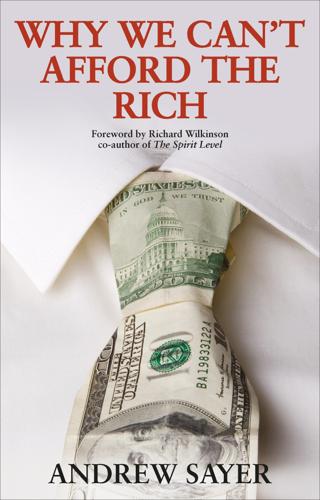
Why We Can't Afford the Rich
by
Andrew Sayer
Published 6 Nov 2014
Internet service providers will be required to filter and block content – thereby giving companies control over users’ use of ‘their’ products, stopping sharing or reverse engineering and adaptation. Tim Berners-Lee, the inventor of the internet, may have said ‘this is for everyone’, but some major companies want to privatise and control it for their own interests. Julian Assange of Wikileaks comments: If instituted, the TPP’s intellectual property regime would trample over individual rights and free expression, as well as ride roughshod over the intellectual and creative commons. If you read, write, publish, think, listen, dance, sing or invent; if you farm or consume food; if you’re ill now or might one day be ill, the TPP has you in its crosshairs.123 Most alarming of all are the ‘investor–state dispute settlement’ mechanisms: these allow big corporations to sue governments before secretive arbitration panels composed of corporate lawyers, bypassing domestic courts and overriding the will of parliaments!
…
idcatart=134&lang=1. 116 White, A. (2012) ‘PwC fined record £1.4m over JP Morgan audit’, Telegraph, 5 January, http://www.telegraph.co.uk/finance/newsbysector/supportservices/8995981/PwC-fined-record-1.4m-over-JP-Morgan-audit.html. 117 Thanks to John Christensen for this information. 118 https://www.gov.uk/government/organisations/hm-revenue-customs/groups/hmrc-board. 119 http://www.ushistory.org/us/24d.asp. 120 Bowman, A., Ertürk, I., Froud, J., Johal, S., Moran, M., Law, J., Leaver, A. and Williams, K. (2012) ‘Scapegoats aren’t enough: a Leveson for the banks?’, CRESC Discussion Paper, p 8. 121 Canada, US, Mexico, Peru, Chile, New Zealand, Australia, Brunei, Singapore, Malaysia, Vietnam and Japan. 122 Wikileaks (2013) ‘Secret Trans-Pacific Partnership agreement (TPP)’, https://wikileaks.org/tpp/pressrelease.html. 123 Wikileaks (2013). 124 Monbiot, G. (2013) ‘The lies behind this transatlantic trade deal’, Guardian, 2 December, http://www.theguardian.com/commentisfree/2013/dec/02/transatlantic-free-trade-deal-regulation-by-lawyers-eu-us. 125 Corporate Europe Observatory (2013) ‘A transatlantic corporate bill of rights’, 3 June, http://corporateeurope.org/trade/2013/06/transatlantic-corporate-bill-rights. 126 McDonagh, T. (2013) ‘Unfair, unsustainable and under the radar’, San Francisco: Democracy Center, http://democracyctr.org/new-report-unfair-unsustainable-and-under-the-radar/.
…
It has been previously revealed that only three individuals in each TPP nation have access to the full text of the agreement, while 600 ‘trade advisers’ – lobbyists guarding the interests of large US corporations such as Chevron, Halliburton, Monsanto and Walmart – are granted privileged access to crucial sections of the treaty text.122 In Australia the government refused the Senate access to the secret text of the trade deal it was negotiating in Singapore, saying it would be made public only after it had been signed. Similarly, TTIP negotiations have been proceeding largely in secrecy, with all the important information withheld from the public and any democratic debate. Significantly, Wikileaks has been the main source of information about them. While the European Commission has held just 8 meetings with civil society groups about the TTIP, it has had 119 with corporations and their lobbyists. These trade pacts seek to augment the intellectual property of companies, prolonging patents beyond 20 years, enabling them to extract more rent for longer from ‘their’ products.
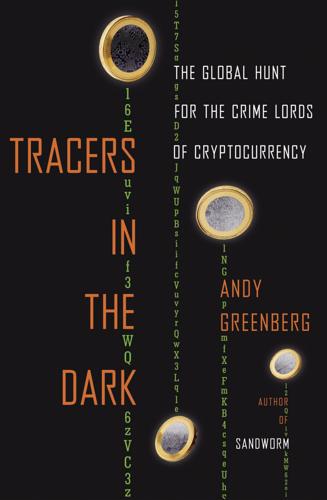
Tracers in the Dark: The Global Hunt for the Crime Lords of Cryptocurrency
by
Andy Greenberg
Published 15 Nov 2022
I’d spent countless hours digging through the archives of the Cypherpunks Mailing List, a community of hundreds of programmers, cryptographers, anarchists, and trolls who, for nearly a decade, had shared their innovations, manifestos, and internal squabbles in a torrent of emails. Julian Assange was an active participant on the Cypherpunks Mailing List, where many of the ideas for WikiLeaks, with its anonymity protections for its sources, were born. The first developers of so-called proxy servers, which offered encrypted and anonymized internet connections—and which would evolve into virtual private networks, or VPNs, in common use today—were core cypherpunk contributors.
…
A brilliant and coldly realist former Intel engineer who had retired young to a house in the Santa Cruz mountains, May had imagined a future where encryption tools supercharged a global black market for information. In a semi-satirical essay he posted to the Cypherpunks Mailing List, he proposed what he called BlackNet, a kind of monetized WikiLeaks where classified information and trade secrets could be anonymously sold for untraceable “CryptoCredits.” In his most famous essay, “The Crypto Anarchist Manifesto,” May summarized in 1988 the lawless future he both foresaw and, as a kind of absolutist libertarian, largely welcomed. “A specter is haunting the modern world, the specter of crypto anarchy,” May wrote forebodingly, imagining a “CryptoNet” of perfectly private communications and payments.
…
Welcome to Video users (unnamed): Border Patrol agent in Texas, 265–8 database of, 275 former congressional staffer in D.C., 260–3 high school assistant principal in Georgia, 259–60, 263–4 HSI agent in Texas, 259, 269, 281–2, 308n mass arrests of, 275–8 Wieczner, Jen, 337 WikiLeaks, 28 Wilson, Cody, 97 WME. See Vinnik, Alexander Y Yerevan, 20–1 Yomiuri Shimbun, 104 Yum, Ilhwan, 85 Z Zcash (cryptocurrency): Cazes, Alexandre, and, 218 dark web markets and, 299 lack of popularity of, 310 as privacy coin, 298–9 shielded transactions of, 298–9 traceability of, 299–300 vulnerabilities of, 323 zero-knowledge proofs and, 298 See also Green, Matthew zero-knowledge proofs, 45–6, 298 Zetas drug cartel, 163 A B C D E F G H I J K L M N O P Q R S T U V W X Y Z What’s next on your reading list?
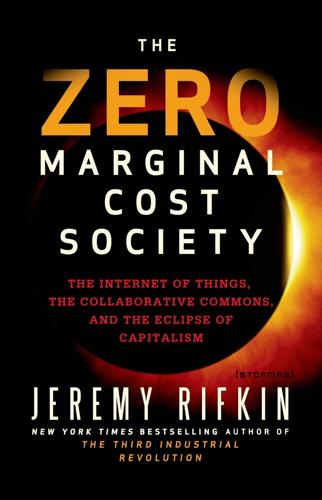
The Zero Marginal Cost Society: The Internet of Things, the Collaborative Commons, and the Eclipse of Capitalism
by
Jeremy Rifkin
Published 31 Mar 2014
For example, Twitter hosts a feature called Twitter Trends, which identifies hot topics and issues of current interest that are “trending.” Questions have been raised about whether the algorithms companies use to spot and rank trends might be programmed to reflect the biases of the management that oversees them, consciously or otherwise. Julian Assange’s supporters suspected that Twitter deliberately finagled the trending during the WikiLeaks scandal.36 Industry watchers are beginning to ask, how we can maintain “algorithm neutrality”? Tarleton Gillespie, a professor of communications at Cornell University, says that algorithm manipulation is not entirely out of the question, especially when the algorithms are created by commercial players who might see a pecuniary or ideological rationale for tampering with the data.
…
Lam Thuy Vo, “Another Ridiculous Number from the Patent Wars,” NPR Planet Money, April 27, 2012, http://www.npr.org/blogs/money/2012/04/27/151357127/another-ridiculous-number -from-the-patent-wars. 36. Angus Johnston, “Still More Questions about Why Wikileaks Hasn’t Trended on Twitter,” Student Activism, December 5, 2010, http://studentactivism.net/2010/12/05/wikileaks-twitter-3/. 37. Tarleton Gillespie, “Can an Algorithm Be Wrong? Twitter Trends, the Specter of Censorship, and Our Faith in the Algorithms around Us,” Social Media Collective, October 19, 2011, http://socialmediacollective.org/2011/10/19/can-an-algorithm-be-wrong/. 38.
…
H., 61 technological employment/unemployment, 7, 122, 266–269 telegraph(s), impact of, 22, 46, 50, 51, 71, 194 Tennessee Valley Authority (TVA), 206–210 textile industry, 31, 39–40, 124–125, 212 thermodynamic efficiencies, 10–15, 70–73, 78, 91, 143–144, 186 the third Industrial Revolution. see Collaborative Commons The Third Industrial Revolution (Rifkin), 11 3D printing, 89–108 and automobiles, 98–99 and bioprinting body parts/organs, 246–247 and construction of buildings, 96–97 and customization, 91 democratizing the replicator, 93–99 differs from conventional manufacturing, 90–92 efficiency and productivity of, 90 and feedstock, 48, 89, 95–98, 101–102 and furniture, 96 and lunar buildings, 97 and a makers infrastructure, 99–104 marketing of, 91 and micro infofacturing, 89–92 and a neo-Gandhian world, 104–108 and the Solar-Sinter, 95–96 and Xerox, 95 ThredUP, 236, 258 Thrun, Sebastian, 114–115 Time, 253 time bank(s), 261 The Times of London, 44 Tie Society, 236 TIR Consulting Group, 15, 191 Torvalds, Linus, 175 Toyota, 54, 99, 230 “The Tragedy of the Commons” (Hardin), 155–158 transborder park(s), 183 Treaty to Share the Genetic Commons, 167–168 TrustCloud, 258 Twitter becoming an online monopoly, 204–205 and algorithm manipulation, 203 changes the concept of privacy, 76 as communication, 151, 234, 248, 302 exploiting the Commons for commercial ends, 199–200, 310 and freedom, 226 as a podium for activism, 189 referenced in news and entertainment reporting, 201–202 revenue and market share, 201 and the WikiLeaks scandal, 203 as tracking tool, 245 Two Treatises of Government (Locke), 60 Udacity, 115 unemployment and blue-collar workers,123–124 due to technological advancement, 7, 121–128 and repercussions of job loss, 132 and white-collar workers, 126 United Nations, 21, 213 Food and Agriculture Organization (FAO), 274 Industrial Development Organization (UNIDO), 285 Internet Governance Forum (IGF), 196 United States Centers for Disease Control, 245 Department of Defense, 96, 125, 142, 294–295 Department of Energy, 87, 295 Energy Information Administration (EIA), 87 Federal Trade Commission, 202, 291 Gross Domestic Product (GDP), 122, 219 income disparity in the, 277–278 Justice Department, 129 National Academy of Sciences, 293–294 National Center for Atmospheric Research, 288 Patents and Trademark Office (PTO), 165–166 postal service, 45–46, 113, 125–126, 163–164 transmission grid, vulnerability of, 293–296 Treasury, 259, 291 upcycling, 91, 236 UPS, uses Big Data, 11–12 urbanization, caused by printing/rail industry, 53 Urbee, 98–99 utilitarian value, Hume and Bentham’s theory of, 62–63 Utopia (More), 31 Vail, Theodore Newton, 49–50 vehicle(s). see automobile(s) Verizon, 51, 54, 148, 198 Vernadsky, Vladimir, 183 vertical integration/vertically integrated companies and centralized management of production and distribution, 46–47 and removal of costly middle men, 23, 46, 232 see also Collaborative Commons Vietor, Richard H.
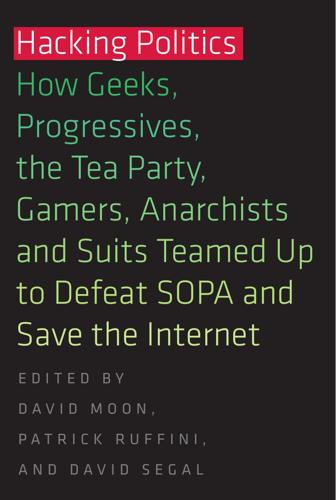
Hacking Politics: How Geeks, Progressives, the Tea Party, Gamers, Anarchists and Suits Teamed Up to Defeat SOPA and Save the Internet
by
David Moon
,
Patrick Ruffini
,
David Segal
,
Aaron Swartz
,
Lawrence Lessig
,
Cory Doctorow
,
Zoe Lofgren
,
Jamie Laurie
,
Ron Paul
,
Mike Masnick
,
Kim Dotcom
,
Tiffiniy Cheng
,
Alexis Ohanian
,
Nicole Powers
and
Josh Levy
Published 30 Apr 2013
OR Books PUBLISHING THE POLITICS OF THE INTERNET Cypherpunks: Freedom and the Future of the Internet JULIAN ASSANGE Tweets From Tahrir: Egypt’s Revolution as It Unfolded, in the Words of the People Who Made It NADIA IDLE AND ALEX NUNNS, EDITORS The Passion of Bradley Manning: The Story of the Suspect Behind the Largest Security Breach in U.S. History CHASE MADAR Freeloading: How Our Insatiable Appetite for Free Content Starves Creativity CHRIS RUEN Program or Be Programmed: Ten Commands for a Digital Age DOUGLAS RUSHKOFF WikiLeaks and the Age of Transparency MICAH L. SIFRY For more information, visit our website at www.orbooks.com
…
Aaron Swartz If you wanted to censor the Internet, if you wanted to come up with a way the government could shut down access to particular websites—this bill might just be the only way to do it. If you said it was about pornography, it’d probably get overturned by the courts—just like that adult bookstore case. But by claiming it was about copyright, it might just sneak through. And that was terrifying, because copyright was absolutely everywhere. If you wanted to shut down WikiLeaks, it’d be a bit of a stretch to claim you were doing it because they were distributing child pornography. But it wouldn’t be hard at all to claim they were violating copyright. Patrick Ruffini (Republican Party political strategist, cofounder of Engage) When I first read the bill that October, the notion that a bill like this could see the light of day was jaw-dropping.
…
Which means that if you wanted to censor the Internet, if you wanted to come up with a way the government could shut down access to particular websites—this bill might just be the only way to do it. If you said it was about pornography, it’d probably get overturned by the courts—just like that adult bookstore case. But by claiming it was about copyright, it might just sneak through. And that was terrifying, because copyright was absolutely everywhere. If you wanted to shut down WikiLeaks, it’d be a bit of a stretch to claim you were doing it because they were distributing child pornography. But it wouldn’t be hard at all to claim they were violating copyright. Because everything is copyrighted. These words are copyrighted. And it’s so easy to accidentally copy something. So easy, in fact, that we found the leading Republican supporter of COICA, Orrin Hatch, had illegally copied a bunch of code into his own Senate website.
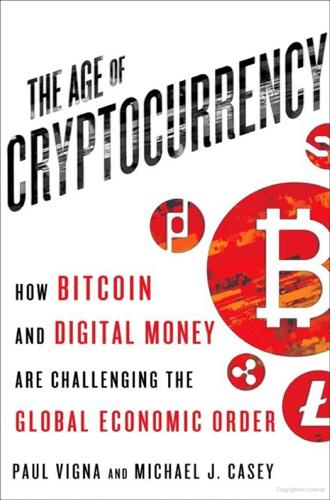
The Age of Cryptocurrency: How Bitcoin and Digital Money Are Challenging the Global Economic Order
by
Paul Vigna
and
Michael J. Casey
Published 27 Jan 2015
* * * Among the close-knit cryptography community invited to review Nakamoto’s work were members of the Cypherpunk movement, a loose association of tech-minded activists who had first gained notoriety in the 1990s with their efforts to use cryptographic privacy tools to force radical political and cultural change. This effort bore some fruit: transparency crusader Julian Assange and his activist publishing organization, WikiLeaks, grew out of this movement. To the Cypherpunks, the idea of an anonymous digital cash system was nothing new. It had been one of their first big ideas, but no one had yet turned it into something viable. Several had attempted to build digital cash systems, one had even got tantalizingly close, but ultimately no system had reached any kind of critical mass, and the cause had fizzled out.
…
One product they developed was the Cypherpunk version of an anonymous message remailer, which hid the identity of a person sending an e-mail and prevented the recipient from replying to it, all in the name of stopping governments or corporations from snooping on people’s daily communications. Other products had more subversive objectives—for example, May’s audacious BlackNet project, a precursor to WikiLeaks, which solicited secret information with the promise of encryption and payments in untraceable digital money. A few products were downright scary. Jim Bell, who like May was formerly employed by Intel, proposed an anonymous market for assassinations. The idea was that people could anonymously contribute to a bounty that they would pay to have a particular influential person killed, the assumption being that the market would put a greater price on the heads of those most egregiously abusing a position of authority.
…
Gox and trust industries Turing Festival 20Mission Twitter Uber U-Haul Ulbricht, Ross Ultimate Frisbee unbanked people Unenumerated Unfair Trade, The (Casey) UnionPay Union Square Partners United Kingdom Utah utilities value: of bitcoins of coins of cryptocurrencies of dollar of gold intrinsic of money van der Laan, Wladimir Vaurum venture capitalists (VCs) Ver, Roger Verisign Verizon Vessenes, Peter VHS Virgin Group VirtEx Visa Vodafone Volabit Volcker, Paul Voltaire Voorhees, Erik voting Wall Street Wall Street Journal Walmart Washington State wealth bitcoin and Wealth of Nations, The (Smith) Web Designs WeChat Wedbush Securities Weill, Sanford Wei Dai Weimar Republic welfare state Wells Fargo Western Union Whelan, Jason Whelan, John WikiLeaks Wikipedia Willard, Rik William III, King Williams, Mark T. Wilson, Cody Wilson, Fred Winklevoss, Cameron and Tyler Wise, Josh Women’s Annex Wood, Gavin work World Bank Wright, Frank Lloyd Wuille, Pieter Xapo XIPH Foundation Xpert Financial XRP Y2K threat Yahoo Yang, Jerry Yap Y Combinator Yellen, Janet Yermack, David YouTube YTCracker Yunus, Muhammad ZeroBlock Zhang, Ng Zimbabwe Zimmerman, Phil Zobro, Jonathan Zoosk Zuckerberg, Mark Zug Also by Michael J.

Nothing Is True and Everything Is Possible: The Surreal Heart of the New Russia
by
Peter Pomerantsev
Published 11 Nov 2014
And when the President will go on to annex Crimea and launch his new war with the West, RT will be in the vanguard, fabricating startling fictions about fascists taking over Ukraine. But the first-time viewer would not necessarily register these stories, for such obvious pro-Kremlin messaging is only one part of RT’s output. Its popularity stems from coverage of what it calls “other,” or “unreported,” news. Julian Assange, head of WikiLeaks, had a talk show on RT. American academics who fight the American World Order, 9/11 conspiracy theorists, antiglobalists, and the European Far Right are given generous space. Nigel Farage, leader of the nonparliamentary anti-immigration UKIP party, is a frequent guest; Far Left supporter of Saddam Hussein George Galloway hosts a program about Western media bias.
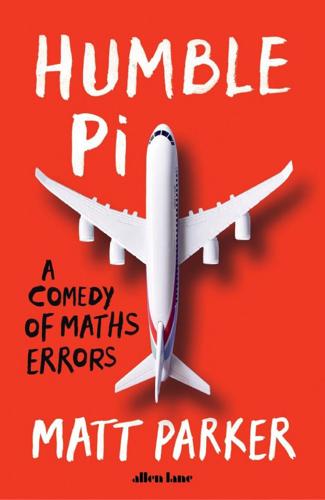
Humble Pi: A Comedy of Maths Errors
by
Matt Parker
Published 7 Mar 2019
The end of the spreadsheet Another limitation of spreadsheets as databases is that they eventually run out. Much like computers having trouble keeping track of time in a 32-digit binary number, Excel has difficulty keeping track of how many rows are in a spreadsheet. In 2010 WikiLeaks presented the Guardian and The New York Times with 92,000 leaked field reports from the war in Afghanistan. Julian Assange delivered them in person to the Guardian offices in London. The journalists quickly confirmed that they seemed to be real but, to their surprise, the reports ended abruptly in April 2009, when they should have gone through to the end of that year.
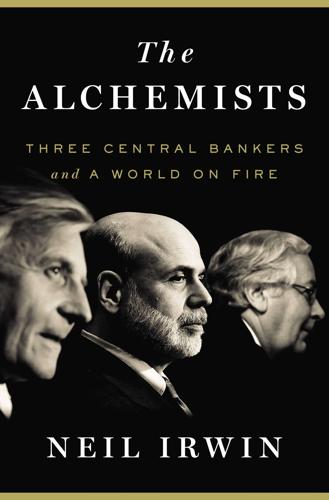
The Alchemists: Three Central Bankers and a World on Fire
by
Neil Irwin
Published 4 Apr 2013
The majority of the committee decided that they were comfortable with the language that appeared in the report. . . . It is factually correct, however, that at least one other member plus me were concerned that that language was too political, too much of a statement. That’s my personal opinion. A few days after that, another penny dropped. WikiLeaks, the publishing cooperative led by eccentric Australian Julian Assange and devoted to exposing the world’s secrets, began unveiling a trove of diplomatic cables that U.S. embassies around the world had sent to Washington, never meant for public consumption. Among them was Ambassador Susman’s write-up of his meeting with King from earlier in the year, showing the governor offering a ruthlessly critical assessment of the men who were now in power.
…
“This is a decisive moment”: Daniel Bentley, “Top Economists Call for Rapid Deficit Cut,” Independent (London), February 14, 2010. Five times in the winter and spring of 2010: Conaghan, Back from the Brink, 241. “King expressed great concern”: U.S. Embassy London, “Bank of England Governor: Concern about Recovery,” Cable 10LONDON364, http://wikileaks.org/cable/2010/02/10LONDON364.html. “was the spectre which loomed over our talks”: David Laws, 22 Days in May: The Birth of the Lib Dem–Conservative Coalition (London: Biteback Publishing, 2010), 109. “The most important thing now”: Bank of England, Quarterly Inflation Report Q&A, May 12, 2010, http://www.bankofengland.co.uk/publications/Documents/inflationreport/conf120510.pdf.
…
Chancellor, welcome your commitment”: Mervyn King, Speech at the Lord Mayor’s Banquet for Bankers and Merchants of the City of London at the Mansion House, June 16, 2010, http://www.bankofengland.co.uk/publications/Documents/speeches/2010/speech437.pdf. “thirst for power and influence”: David Blanchflower, “Mervyn King Must Go,” Guardian, December 1, 2010, http://www.guardian.co.uk/commentisfree/2010/dec/01/mervyn-king-bank-of-england. “the issue of confidence simply doesn’t arise”: Jennifer Ryan and Thomas Penny, “Cameron Backs King as Wikileaks Cites BOE Chief’s Concern on Inexperience,” Bloomberg News, December 1, 2010. “I have never discussed with [Osborne]”: Bank of England 2011 Inflation Report, Transcript of Treasury Select Committee, March 1, 2011, http://www.publications.parliament.uk/pa/cm201011/cmselect/cmtreasy/798/11030102.htm.
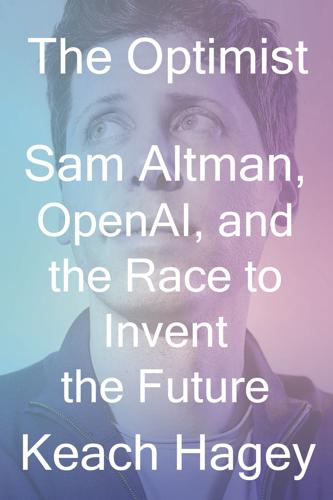
The Optimist: Sam Altman, OpenAI, and the Race to Invent the Future
by
Keach Hagey
Published 19 May 2025
The Wired article opens at one such Extropian gathering during which an attendee shows up dressed like “State,” wearing a vinyl bustier, miniskirt, and chain harness top and carrying a riding crop, dragging another attendee dressed up as “the Taxpayer” on a leash on all fours.16 The mailing list and broader Extropian community had only a few hundred members, but among them were a number of famous names, including Hanson; Marvin Minsky, the Turing Award–winning scientist who founded MIT’s AI lab in the 1970s; Ray Kurzweil, the computer scientist and futurist whose books would turn “the singularity” into a household word; Nick Bostrom, the Swedish philosopher whose writing would do the same for the supposed “existential risk” posed by AI; Julian Assange, a decade before he founded WikiLeaks; and three people—Nick Szabo, Wei Dai, and Hal Finney—rumored to either be or be adjacent to the pseudonymous creator of Bitcoin, Satoshi Nakamoto. “It is clear from even a casual perusal of the Extropians archive (maintained by Wei Dai) that within a few months, teenage Eliezer Yudkowsky became one of this extraordinary cacophony’s preeminent voices,” wrote the journalist Jon Evans in his history of the movement.
…
Louis Post-Dispatch (newspaper), 40–41 Stanford Daily, The (newspaper), 56, 63 Stanford Review, 56, 131 Stanford University AI lab at, 90 annual competition held by, 182 BASES (Business Association of Stanford Entrepreneurial Students), 60 courses at, 55, 131 Education Program for Gifted Youth, 173 electric vehicle project, 57 endowment of, 155 FroSoCo (short for Freshman Sophomore College), 55, 57 Full Moon on the Quad, 92–93 generous student leave policy, 91 program in India, 64 StartX startup accelerator, 90 Summer Research College program, 57 YC Startup School online course at, 122–23, 194, 234 startups bankruptcies, 31, 87–88, 145, 205 discrimination in, 70 the first venture-funded startup, 72 founders as kings, 6, 60, 65, 68, 70–75, 87, 95 normalization of starting a startup, 70, 150 “RIP Good Times” deck, 117, 123 Startup School online course, 122–23, 194, 234 unicorns, 150, 311 see also investing; Sequoia Capital; Y Combinator (YC) StartX, Stanford’s startup accelerator, 90 Stiegler, Marc, 140, 199–200 Stone, Zak, 76, 77, 82 “Strawberry” (o1), 284, 309 Streit, Steve, 126–28, 134 Stripe, 4, 16, 123, 125, 136, 139, 150, 152, 157–58, 172, 175–76, 189–90, 246, 251 Stross, Randall, 133 StumbleUpon, 174 Suleyman, Mustafa, 146–47, 277 Summer Founders Program and Angel Day, 62, 64, 68–70, 75–82 Summers, Larry, 294, 303 Sun Microsystems, 230 Sun Valley Resort, 228–29, 263 Sunak, Rishi, 274 Superalignment team, 284, 305–6 superhuman machine intelligence (SMI), 170 superintelligence, machine, 143, 145, 164, 167, 170, 309, 315, see also AI (artificial intelligence) Superintelligence: Paths, Dangers, Strategies (Bostrom), 5, 163–66, 167–68 Supreme Court, 26, 52 Sutskever, Ilya, 169, 178–88, 189–96, 209, 211, 217–23, 244–45, 266, 287, 282–94, 304–5, 308–10, 312–13 Swartz, Aaron, 63, 76, 81, 160n SXSW (South by Southwest), 118–19 Szabo, Nick, 142 Tallinn, Jaan, 5, 144, 168, 300–301 Talve, Susan, 43–44 Tamarine Asian fusion restaurant, Palo Alto, 92 Tan, Garry, 236 Tana, Evan, 96, 102, 121 Tang, Nini, 95–96 taxes, 22, 34–35, 53, 206, 256 Tay the chatbot, 270 Taylor, Bret, 293 Teach Yourself Visual Basic in 24 Hours, 56 “teach-ins,” 94 tech bros cosmic conversations of, 147, 260, 314–15 hackers/hacking, 3, 57, 63, 68–70, 160n, 162 love of Burning Man, 1, 198–99 love of cars, 26, 51 as mostly college drop-outs, 62, 88, 91–92, 96, 108, 113, 124, 132, 175, 179, 217–18 racism among, 164–65 sci-fi, 3, 43, 47, 140, 199–200, 214, 220, 307–8 space colonization, 144, 147, 170–71 techno-utopianism among, 205, 256–57 WhatsApp group of tech CEOs, 289 wrestling among the, 109 see also cryptocurrency tech industry Big Tech companies, 182, 185, 197, 299, 308 dot-com bubble of the late 1990s, 73, 87, 93 lobbying by the, 109, 144, 179, 274, 292, 300–301 the massive valuations of tech companies, 71, 73, 138–40, 152, 290 nanotechnology, 144, 164 semiconductor industry, 72–73, 132, 298 think tanks in the, 142, 144, 267, 299–300 “women in tech,” 42, 70, 203, 252, 271 see also innovation; software development; startups TechCrunch (news site), 161, 259 technological progress, see innovation techno-utopianism, 205, 256–57 Teespring T-shirt-making startup, 156 Tegmark, Max, 145, 168–69, 208 telepresence, 210 Teller, Sam, 171 Temple Israel, 24, 25 Terminator film franchise, 200 Tesla, 153, 167, 194, 223–26, 234, 255 Test of Time Award, 305 TextPayMe, 82 The Game (rapper), 102 “TheFacebook,” 60, see Facebook Theranos, 108 Thiel, Peter, 1–7, 10, 16–17, 125, 134–48 contributions to Trump presidential campaigns, 203–4 data-mining company, 217 Facebook and, 131, 204 Founders Fund venture firm, 2, 6, 132, 139, 147, 226 founding of the conservative Stanford Review, 56, 131 From Zero to One (with Masters), 132, 230 Halcyon Molecular, 257–59 Helion Energy nuclear fusion startup, 13, 136, 207, 259, 280, 298 his “Founders Fund” venture firm, 2, 6, 132, 139, 147, 226 Inflection AI, 277 PayPal, 93, 125, 131, 136, 140, 147, 161, 171 personal beef with Gawker Media, 137, 204–5 the pessimistic contrarianism of, 4, 131–33, 137–38, 204 Saudi Arabia and, 231–32 Thiel Fellowships, 132, 178 think tanks, 142, 144, 267, 299–300 Thole, Craig, 103 Thorpe, Meridith, 46 thought leadership, 89 Three Mile Island nuclear plant, Harrisburg, PA, 135 Thrive Capital, 161, 290, 310 Thrun, Sebastian, 144 Time magazine, 1, 112 Time Warner, 229 Tivo, 121 Tokyo, 79 Toner, Helen, 241–42, 266–67, 276–79, 282–88, 291, 292, 299, 309 Tools for Humanity, 256 Torres, Émile, 164 Track Trump website, 204 trademark issues, 101 transcendentalism, 46 “transformer paper, the,” 218–19, 270, see also AI research/training transhumanism, 143–45, 165, 166, 170 Trapp, Shel, 22, 35 Traynor, Bill, 35 Tripadvisor, 80 Trump, Donald, 40, 201, 203–4, 208, 296, 313 Tsai, Tommy, 96, 113, 114 Tulyasathien, Charnsin, 110 Tuna, Cari, 212 Turing, Alan, 173–74, 295 Turing Award, 142 Twitch, 82, 157, 292–93 Twitter, 118, 158, 169, 246–47, 261, 270, 281 Uber, 231 “Unified Theory of VC Suckage, A,” 72–73 United Arab Emirates (UAE), 281, 298, 310, 313 United Nations Moon Agreement of 1979, 144 United Slate, The (online platform), 206–7 United States during the AIDS crisis, 33, 43, 49 Biden administration’s AI policies, 232, 267, 277, 299–300 Defense Advanced Research Projects Agency (DARPA), 140, 196 Democratic Party, 21, 204, 207–8, 234, 296 Department of Commerce, 273, 277, 299, 301 Department of Defense, 299 Department of Energy, 196 Department of Homeland Security, 299 Department of Housing and Urban Development (HUD) redevelopment projects, 35 Federal Communications Commission (FCC), 59, 106 Federal Trade Commission, 285 the frontier in American history, 153 Government Accountability Office, 300 during the Great Depression, 24 Intelligence Advanced Research Projects Activity (IARPA), 267 investment blacklists from the, 231 loss of technological mojo since the 1960s, 135 Medicare for All, 206 NASA, 132–33 National Security Council, 299, 301 post–World War II industrial boom, 72 Supreme Court, 26, 52 taxes, 22, 34–35, 53, 206, 256 US Army, 24, 27n, 32 see also US Congress universal basic income (UBI), 12–14, 194, 205, 256 Universe project, a general AI agent, 191–93 University College London’s Gatsby Computational Neuroscience Unit, 145 University of California, Berkeley, 94, 111, 122–23, 167, 178, 194, 234, 277, 305 University of Virginia retracted gang rape allegations, 204 Upright Citizens Brigade, 228 US Congress, 301, 309 CHIPS and Science Act, 298 Computer Fraud and Abuse Act, 68 Congressional Internet Caucus, 106 House of Representatives, 34, 106 law on location tracking on mobile phones, 58–59 Senate, 2–3, 5, 273, 296–97, 300, 309–10 user experience, 79, 119, 195, 254 average revenue per user, 79 churn rates, 105 content moderation, 254 see also chatbots utilitarianism, 2, 143, 211 “utilons,” 212 Uygur population in China, 231 Valentine, Don, 87, 112–14 Valleywag (blog), 137, 205 “value-lock,” 252 Valve, 215 Venture Beat (news site), 117 venture capital (VCs), 6–7, 8, 12, 60–62, 66 “aligning our incentives,” 256 Andreessen Horowitz, 155, 158, 161, 257 deal flow, 88, 95, 124 history of, 72–73 Khosla Ventures, 230, 235, 257 Kleiner Perkins, 162, 230 Matrix Partners, 90 Mithril Capital, 136 Peter Thiel’s Founders Fund, 2, 6, 132, 139, 147, 226 on Sand Hill Road, Palo Alto, 79, 85, 93, 116–17, 158, 177 why they suck, 72–75, 77 see also investing; Sequoia Capital; startups; Y Combinator (YC) Verbling video chat language learning service, 138 Verge, The (news site), 272 Verizon, 62, 100, 104–5, 110, 119 Viaweb, 68, 70, 73–74 Vice News Tonight, 205–6 Victor, Bret, 197 video games AI Dungeon, 247–48, 254–55 Atari, 87, 147, 165, 190 Breakout, 147 Dota 2, 215–18, 221–22, 242, 284 Halo 3, 95, 109 Resident Evil, 97 The Sims, 97 Warcraft III: Reign of Chaos, 215 Viendo, 60, 61, 63–65, 74, 76 Viewpoints Research Institute, 198 Vinge, Vernor, 140, 145, 168 viruses, computer, 154, 200 viruses, Covid-19, 248–50 Visual Basic language, 56 Visual Studio development environment, 262 Vivarium Project, 209–10 VotePlz voter registration app, 203–4 “Voting with Your Feet: An Investigative Study of the Relationship Between Place Visit Behavior and Preference” (Potter and Howard), 111 Vox (news site), 306 Wall Street Journal, The, 7, 10–12, 17, 42, 57, 105, 124, 212, 229–32, 298 “walled garden,” 110 Walmart, 126, 133 Walton, Nick, 246–47, 254–55 Warcraft III: Reign of Chaos (video game), 215 Washington, Harold, 21–22, 33–34, 37 Washington Post, The (newspaper), 232, 301 “waterfall” method of software development, 126 Watters, Nathan, 50–51, 201 We Are the Nerds (Lagorio-Chafkin), 161 WebGPT, 265 WebMind stock market trend prediction software, 145 WebText, 241, 244 Weebly, 157 Weiden, David, 89–90, 103–4, 108, 230 Weigend, Andreas, 90 Weil, Elizabeth, 281 Welinder, Peter, 247–48 West, Kanye, 102 Westrup, Evan, 206 Westworld (TV show), 199 Wevorce online divorce service, 138 “Where is Ilya?” meme, 304 white flight, 22, 26, 32 whiteboards, 189–90 Whitman, Walt, 46 Wiener, Scott, 310 WikiLeaks, 142 Wikipedia, 244, 252, 265 Wilde, Oscar, 51 Willett Advisors financial management firm, 155 Williams, Walker, 156 WilmerHale law firm, 303 Wilson Sonsini Goodrich & Rosati law firm, 85, 90–91, 93–94, 109, 124, 232 Winer, Lowell, 99–103, 105–6 Wired, 81, 138–39, 141–42, 192, 207, 218–20, 242, 251, 254, 310 wireless carriers, 58–59, 75, 79, 90, 98, 100–109, 110, 118, 120, 159, see also specific telecom companies Wolfe, Sam, 24 Wolfram, Steve, 80, 81 “women in tech,” 42, 70, 203, 252, 271 Wong, Hannah, 288 Wong, Yishan, 161–62 Wood, Evan Rachel, 199 Woodward, Bob, 296 World Transhumanist Association, 165 World War II, 24, 26, 72, 139, 196 Worldcoin cryptocurrency, 13, 256–57 WorldCom, 60 Worldwide Developers Conference, 111, 114 Wozniak, Steve, 272 X.com (Twitter), 118, 125, 158, 169, 246–47, 261, 270, 281 xAI, 15, 277, 310 Xerox’s Palo Alto Research Center (PARC), 195–97 XPRIZE, 144, 210 Y Combinator (YC), 3, 6, 16, 62–63, 65–75, 77, 81–82 Camp YC the annual glamping getaway, 177 Condé Nast purchase of, 81, 160–62 Continuity Fund, 159, 194, 232–33, 290 Demo Days, 74, 133, 138–39, 155–56, 159, 258 expansion of the batches (2011–2014), 138–40 the first Summer Founders Program and Angel Day, 62, 64, 68–70, 75–82 index fund, 138 “Manhattan Project” for AI, 8, 145, 147, 219 as a new Bell Labs, 140, 185 SAFE convertible notes, 94–95 scrappy ethos of “ramen profitability,” 233 Startup School online course, 122–23, 194, 234 unicorns from, 123, 150 as “woke and bloated,” 232 YC China, 230–31 YC Cities, 231 YC Core, 194, 232 YC Group, 194 YC Research, 185, 187, 194–98, 207, 232, 236 YCVC program, 155 Yaeger, Larry, 196, 209 Yahoo!

Rise and Kill First: The Secret History of Israel's Targeted Assassinations
by
Ronen Bergman
Published 30 Jan 2018
not even the experienced Hayden anticipated the bombshell Ibid. Hayden leaned over to Vice President Dick Cheney Hayden, Playing to the Edge, 256. “this reactor was not intended for peaceful purposes” Secretary of State Rice, “Syria’s Clandestine Nuclear Program,” April 25, 2008 (taken from the Wikileaks archive, as given to the author by Julian Assange, March 4, 2011). he wanted U.S. forces to destroy the reactor Interview with “Oscar,” April 2014. The Assad family…reminded him of the Corleone family Interview with Hayden, July 20, 2016. “Assad could not stand another embarrassment” That retreat was forced on Assad by the international community, led by the United States and France, for his involvement in the assassination of Rafik Hariri.
…
“His operational capabilities were greater” Interview with Dagan, June 19, 2013. “Lucky for us, he wasn’t” Interview with “Terminal,” September 2014. This behavior “took discipline,” Olmert observed “Boehner’s Meeting with Prime Minister Olmert,” March 23, 2008, Tel Aviv 000738 (author’s archive, received from Julian Assange). But Olmert rejected the idea Interview with “Shimshon,” November 2012. “Suleiman was a real shit” Interview with Olmert, August 29, 2011. “a hand in three primary areas” “Manhunting Timeline 2008,” Intellipedia, NSA (Snowden archive), www.documentcloud.org/documents/2165140-manhunting-redacted.html#document/p1.
…
INTERVIEWS Aharon Abramovich, Worko Abuhi, Ehud (Udi) Adam, Nathan Adams, Avraham Adan, Nahum Admoni, Gadi Afriat, Shlomi Afriat, David Agmon, Amram Aharoni, Zvi Aharoni, Wanda Akale, Lior Akerman, Fereda Aklum, Aql Al-Hashem, Kanatjan Alibekov, Doron Almog, Ze’ev Alon, Yossi Alpher, Hamdi Aman, Yaakov Amidror, Meir Amit, Frank Anderson, Christopher Andrew, Hugo Anzorreguy, Uzi Arad, Dror Arad-Ayalon, Yasser Arafat, David Arbel, Dani Arditi, Moshe Arens, Anna Aroch, Julian Assange, Rojer Auqe, Gad Aviran, Shai Avital, Juval Aviv, Pinchas Avivi, David Avner, Talia Avner, Uri Avnery, Avner Avraham, Haim Avraham, Aharon Avramovich, Ami Ayalon, Danny Ayalon, Avner Azoulai, Robert Baer, Yossi Baidatz, Ehud Barak, Amatzia Baram, Miki Barel, Aharon Barnea, Avner Barnea, Itamar Barnea, Omer Bar-Lev, Uri Bar-Lev, Hannan Bar-On, David Barkai, Hanoch Bartov, Mehereta Baruch, Yona Baumel, Stanley Bedlington, Benjamin Begin, Yossi Beilin, Dorit Beinisch, Ilan Ben David, Moshe Ben David, Zvika Bendori, Gilad Ben Dror, Benjamin Ben-Eliezer, Eliyahu Ben-Elissar, Eitan Ben Eliyahu, Avigdor “Yanosh” Ben-Gal, Isaac Ben Israel, Arthur (Asher) Ben-Natan, Eyal Ben Reuven, Eitan Ben Tsur, Barak Ben Tzur, David Ben Uziel, Ron Ben-Yishai, Yoran Ben Ze’ev, Ronnie (Aharon) Bergman, Muki Betser, Avino Biber, Amnon Biran, Dov Biran, Ilan Biran, Yoav Biran, Kai Bird, Uri Blau, Hans Blix, Gabriella Blum, Naftali Blumenthal, Yossef Bodansky, Joyce Boim, Ze’ev Boim, Chaim Boru, Avraham Botzer, Eitan Braun, Shlomo Brom, Shay Brosh, Jean-Louis Bruguière, Pinchas Buchris, Haim Buzaglo, Zvi Caftori, Haim Carmon, Igal Carmon, Aharon Chelouche, Dvora Chen, Uri Chen, Michael Chertoff, Itamar Chizik, Joseph Ciechanover, Wesley Clark, Avner Cohen, Haim Cohen, Moshe Cohen, Ronen Cohen (scholar), Dr.

The Secret World: A History of Intelligence
by
Christopher Andrew
Published 27 Jun 2018
.* That intelligence continues to generate headline news has been due not merely to the prolonged official enquiries into 9/11 and the Iraq War but also to unprecedented amounts of classified material leaked by ‘whistle-blowers’. In 2010 the WikiLeaks website, founded by Julian Assange, began publishing online documents downloaded from State Department and military databases by US Army Private Bradley (now Chelsea) Manning.† The 251,287 confidential documents passed by Manning to WikiLeaks were by far the largest number ever leaked by a whistleblower.67 When Mike Pompeo became the CIA’s director early in 2017, he denounced WikiLeaks as ‘a non-state hostile intelligence service’.68 Like much other reporting on twenty-first-century intelligence, the enormous global publicity given to WikiLeaks has been mostly devoid of historical perspective.
…
Manning’s achievements as a whistleblower were far outdone by Edward Snowden, an NSA contractor who claimed that its electronic eavesdropping had spiralled out of control. In 2013 Snowden downloaded 1.5 million highly classified intelligence documents onto thumbnail drives – the largest ever breach of Western SIGINT security. Even Julian Assange was taken aback. Andrew O’Hagan, who was commissioned to ghostwrite Assange’s autobiography (which was never completed), found him ‘like an ageing movie star, . . . a little put out by the global superstardom of Snowden’.71 As Snowden began to release documents for publication by global media, he took refuge in, successively, Hong Kong and Moscow.
…
.† The 251,287 confidential documents passed by Manning to WikiLeaks were by far the largest number ever leaked by a whistleblower.67 When Mike Pompeo became the CIA’s director early in 2017, he denounced WikiLeaks as ‘a non-state hostile intelligence service’.68 Like much other reporting on twenty-first-century intelligence, the enormous global publicity given to WikiLeaks has been mostly devoid of historical perspective. Publication of sensitive American diplomatic documents began, on a far more modest scale, almost one and a half centuries before WikiLeaks – not by the press but by the US government. In the later nineteenth century some American ambassadors became reluctant to send despatches to Washington which criticized their host governments for fear that the State Department would make them public.69 Some of the diplomatic despatches published by WikiLeaks were quite similar to those released by the State Department over a century earlier. One of the best-publicized documents during Tunisia’s ‘Jasmine Revolution’, which overthrew the corrupt authoritarian regime of President Ben Ali at the beginning of the Arab Spring in January 2012, was a report to Washington by the US ambassador to Tunisia, Robert Godec, in July 2009, published by WikiLeaks: Whether it’s cash, services, land, property, or yes, even your yacht, President Ben Ali’s family is rumored to covet it and reportedly gets what it wants . . .
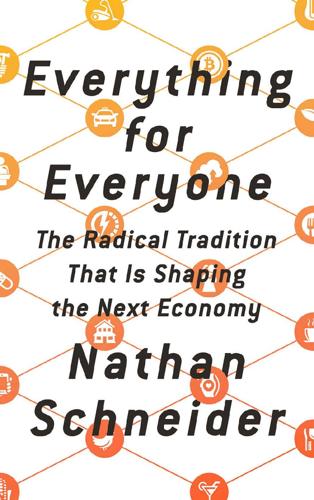
Everything for Everyone: The Radical Tradition That Is Shaping the Next Economy
by
Nathan Schneider
Published 10 Sep 2018
“It’s taking advantage of a historic opportunity to do something innovative and transformative in Ecuador.” He saw a chance to set the conditions for a commonwealth. FLOK bore the style and contradictions of Ecuador’s brand at the time. The president, Rafael Correa, sometimes spoke in favor of open-source software; WikiLeaks founder Julian Assange had been living in Ecuador’s London embassy since 2012. Even while exploiting rain-forest oil resources and silencing dissenters, Correa’s administration called for changing the country’s “productive matrix” from reliance on finite resources in the ground to the infinite possibilities of unfettered information.
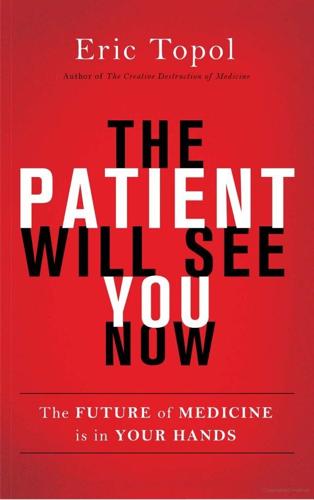
The Patient Will See You Now: The Future of Medicine Is in Your Hands
by
Eric Topol
Published 6 Jan 2015
Cure “I do not want to live in a world where everything I do and say is recorded.” —EDWARD SNOWDEN1 “Today’s Web-enabled gadgets should come with a digital Miranda warning: Anything you say or do online, from a status update to a selfie, can and will be used as evidence against you on the Internet.” —NICK BILTON, New York Times2 In a world of Julian Assange’s Wikileaks and Edward Snowden’s exposé of the National Security Agency, we are progressing toward zero tolerance of governmental non-transparency.1,3 At the same time, massive Internet security breaches are occurring or being discovered, from retailers like Target to the Heartbleed bug. Just as everything is getting digitized, making it eminently portable and accessible, we’re betwixt and between.
…
Vallee, David, 65 van de Werf, Ysbrand, 53 Variants of unknown significance (VUS), genomic, 85–86, 205 Veatch, Robert, 18, 29–30 Verghese, Abraham, 279 Veterans Affairs, Department of, 129, 136 Virtual Doctor Project, 270–271 Virtual health assistants (VHAs), 164–165 Virtual office visits, 165–172 Voice recognition software, 131 Voigt, John, 56–57 VSee, 270–271 Walgreens, 68, 106–107, 162–163, 224, 292 Walker, Jan, 131 Wall Street Journal, 22, 69 Warner, David, 127 Waste in health care expenditures, 142–147 Wearable book, 54 White coat lecture, 175–176 Whole genome sequencing, 86 Wikileaks, 219 Wikilife Foundation, 200 Wilsey, Grace, 9–10, 10(fig.) Wireshark network analysis tool, 221 Wisdom of the body, 280 The Wisdom of the Body (Cannon), 280–281 Wojcicki, Anne, 63, 69–72 Wolfram, Stephen, 82, 221 Wolpert, Ann, 210 World Bank, 257 World Health Organization (WHO), 257, 270 Worstall, Tim, 151 Xpert, 266 X-rays, 113 Zero: The Biography of a Dangerous Idea (Seife), 71–72
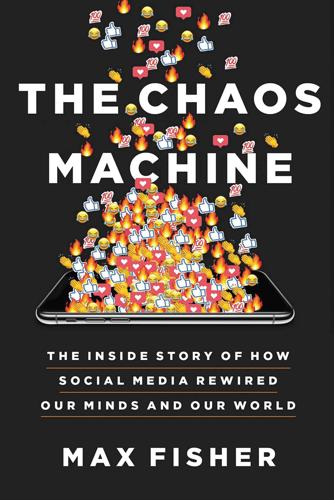
The Chaos Machine: The Inside Story of How Social Media Rewired Our Minds and Our World
by
Max Fisher
Published 5 Sep 2022
But it was on 4chan’s politics board, the internet’s petri dish for pathogenic conspiracies, that he’d watched its genesis. Conspiracy belief is highly associated with “anomie,” the feeling of being disconnected from society. The userbase of 4chan defined itself around anomie—mutual rejection of the off-line world, resentful certainty that the system was rigged against them. And they idolized WikiLeaks chief Julian Assange, an anarchist hacker whose politics, like 4chan’s, had drifted alt right. So when Assange published Podesta’s emails in October, a month before the election, they saw it not as a Russian-backed operation, but as the start of a thrilling campaign to expose the hated elite. Pursuing the 4chan pastime of crowdsourced dives, users scoured the tens of thousands of pages for revelations.
…
They claimed that the police investigation of Anthony Weiner, a former Democratic congressman caught sexting a fifteen-year-old girl, had discovered evidence that Weiner, along with his wife, Huma Abedin, and his wife’s boss, Hillary Clinton, were all involved in a child sex ring. As evidence, they cited the emails of John Podesta, Clinton’s campaign manager, which Russian hackers had stolen and published through WikiLeaks. A Washington DC pizza place that Podesta had mentioned in his emails, Comet Ping Pong, was, the conspiracists insisted, the headquarters of a vast, elite conspiracy to ritualistically cannibalize children. “Half or more of the people I have met online believe in it fully,” Adam, the longtime 4channer, told me.
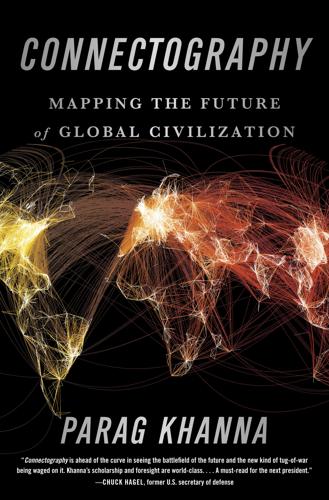
Connectography: Mapping the Future of Global Civilization
by
Parag Khanna
Published 18 Apr 2016
The intersection of demographic and technological flows creates new opportunities for Facebook groups and other cloud communities to emerge more rapidly, globally, and in greater number, generating flash mobs of allegiance that force us to evolve our political concepts beyond states. Social networks provide the tools for people to shape their welfare by motivating members, financing activities, and sparking political action. The WikiLeaks founder, Julian Assange, argues that the Internet enables connected groups to anneal into empowered collectives that can act on their principles. The taxonomy of influential actors is thus expanding to include terrorist networks, hacker units, and religious fundamentalist groups who define themselves by what they do rather than where they are.
…
Structural change makes the world complicated; systems change makes it complex. International relations among states are complicated, while today’s global network civilization is complex. Financial feedback loops destabilize markets, and corporations can be more influential than countries, while ISIS, Occupy Wall Street, and WikiLeaks are all quantum in nature: everywhere and nowhere, constantly metastasizing, capable of sudden phase shifts. If planet Earth had a Facebook account, its status should read “It’s Complex.” Connectivity is the main cause of this complexity. Globalization is almost always written about in terms of how it operates within the existing order rather than how it creates a new one.
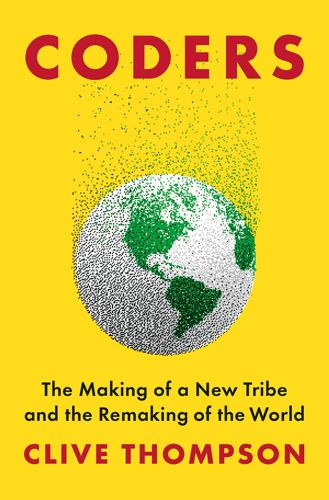
Coders: The Making of a New Tribe and the Remaking of the World
by
Clive Thompson
Published 26 Mar 2019
In 2013, Edward Snowden revealed that the NSA was collecting everyday Americans’ phone calls, hoovering up chat messages, and tapping into the backbones of services like Google and Yahoo! Phillips was horrified. But it also seemed like an area where he could make an impact. He’d been reading up on cryptographic history and watching videos where Julian Assange and the founders of the Tor project talked about the need for better, easy-to-use tools for everyday people to enable them to remain private online. Now that—that seemed like a meaningful thing to do with one’s life. “I can literally sit here, like they say, in your underwear, and write world-changing software—protect people’s civil liberties, specifically right to privacy,” he tells me.
…
“Pragmatic judgments often trump ideological ones,” Coleman writes, “leading to situations where, say, an anti-capitalist anarchist might work in partnership with a liberal social democrat without friction or sectarian infighting.” The afternoon of the hackathon, I run into Steve Phillips; he’s arrived with a group of volunteers, coders who’ve all begun helping build the Pursuance system. In the afternoon he climbs onstage in the Archive’s auditorium in a WikiLeaks T-shirt to show off what they’ve built. There’s the beginnings of the full software, where activists can set up to-do lists, set tasks, delegate jobs. As he tells the crowd, there are a ton of forums where people can talk, but few tools to help them get things done, he explains; Pursuance aims to help fix that.
…
Today’s big cybercrime groups themselves may not be directly run by national governments or their spy agencies, but they often appear to be at least working in communication with them. When the Russian hacking group Fancy Bear penetrated the Democratic National Committee—via the ever-popular trick of phishing, getting John Podesta to click on a bad link—the trove of DNC email soon appeared in Russian intelligence circles, and thence on WikiLeaks and other sites online. Meanwhile, Chinese state-sponsored hackers are busily penetrating US firms and government agencies: The Department of Defense blocks 36 million phishing attempts each day. And in every authoritarian country, government-sponsored hackers busily wage attacks on civil society advocates and pro-freedom groups—installing spyware on dissidents, the better to bust them.
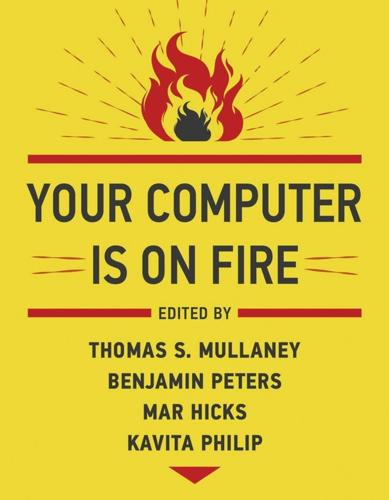
Your Computer Is on Fire
by
Thomas S. Mullaney
,
Benjamin Peters
,
Mar Hicks
and
Kavita Philip
Published 9 Mar 2021
It appears likely that Baran’s supervisors deprioritized his work because it did not have weight of the top-secret imprimatur: if so, it is bitter comment on how interagency collaboration often bloomed in secrecy, not open, cultures, since Baran deliberately chose to publish his research publicly in the hopes his designs would reach the Soviets and ensure mutual competitiveness. (Perhaps the limits of contemporary open-source politics—such as the radical transparency of WikiLeaks and the private cipher that is Julian Assange—follow the limits of Cold War mutual intelligibility.) AT&T, the near analogue to a state network monopoly at the time, also rejected Baran’s proposal to develop digital networks, fearing digital networks would bring them into competition against their own services.32 And so Baran’s research languished until an Englishman named Donald Davies, with the support of the UK post office, independently developed network innovations similar to Baran.33 Only then, in 1966, under the pressure of an outside organization to which the national government felt compelled to respond (an ally nation backed by another hefty state media monopoly), did Baran’s superiors feel pressured to revisit and reclaim his team’s network research for ARPA under J.
…
See also Bias, accent languages recognized, 190t patterns of language support, 189t Volkswagen, 175 Voyeurism, 14–15 Walmart, 29, 316 Ward, Aaron Montgomery, 36 Watson, Arthur K., 164 Watson, Jeanette Kittredge, 160, 164–167, 172 and Germany, 167–168 Watson, Thomas J., Sr., 160–162, 163f, 164, 174 and Germany, 168–169, 171–173 IBM family, 164–167 Web service providers, 318 Weizenbaum, Joseph, 15–16 Wells, Nate, 238 West (Western) corporate content, 331 democratic practices, 366 Enlightenment, 364 enterprise culture, 300 industrial, 88 internet, 94 language, 180 networks, 77 non-West, notions of, 96, 110 non-Western critiques of, 338–339 non-Western technology, 104–105, 107 non-Western typing technology, 342–345, 353–354, 356 non-Western workers, 99, 102, 104–105 postindustrial, 32, 152 society, 39 technology, 109, 120 telecom companies, 103 typing technology, 219–221, 225, 227, 338, 381 WhatsApp, 329, 331–333 Wheeler, David A., 274, 291–292 White collar, 23, 43, 105, 150, 170, 174, 288–289 Whitespace, 279, 281, 284 White supremacy, 18–19, 139, 289–290, 344 Whose Knowledge?, 91 Wiener, Norbert, 73 WikiLeaks, 83 Wikimedia Foundation, 91, 111 Wikipedia, 233 Word processing, 221–227, 337, 350, 354 designed for English, 213–216 Workforce, 18, 45, 65, 104, 140, 260 all-male, 148 diversify, 253, 261, 265, 383 IBM, 160, 171, 173, 175 lean, 53, 56 software, 255 women, 17, 143, 145, 261 World War I (First World War), 184, 219, 373, 378 World War II (Second World War), 21, 93, 152, 166, 367, 378 Allies, 17, 139–140 Britain and, 137–138, 140, 143 Germany, 170–171 World Wide Web, 14, 18, 109, 188, 232, 317, 330 World Wide Web Foundation, 331 W32/Induc-A, 290 Wyatt Earp Syndrome, 262 Wyden, Ron, 61 x86, 275 Xerox, 82, 175 Yahoo, 17, 257 Yes We Code, 255 YouTube, 54–55, 179, 313, 319, 331 Y2K, 104 Zambia, 330 Zuckerberg, Mark, 11–12, 14, 16–17, 59–60, 264 universal internet access, 329–331 Zymergen, 261, 263
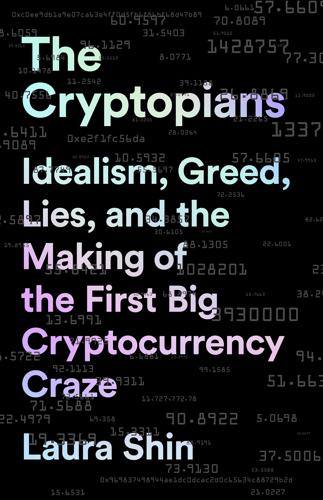
The Cryptopians: Idealism, Greed, Lies, and the Making of the First Big Cryptocurrency Craze
by
Laura Shin
Published 22 Feb 2022
Headlines read, “Winklevoss twin predicts multitrillion-dollar value for bitcoin,” “Analyst who predicted bitcoin’s rise now sees it hitting $300,000–$400,000,” and “Trader who called bitcoin rally says cryptocurrency will surge above $100,000 in 2018.”28 News about Bitcoin and Ethereum proliferated: about teens who’d become millionaires off Bitcoin, ETH traders who turned $8,500 into $7.5 million in six months with leveraged crypto trades, and WikiLeaks’ founder Julian Assange thanking the US government, because the site was now enjoying 50,000 percent returns since it had been forced to use Bitcoin after being blocked by credit cards and PayPal.29 Now that Bitcoin had gone “to the moon,” a company named Moonlambos made it possible for anyone wanting to buy a Lamborghini to do so with BTC or ETH.30 It also planned an ILO—initial Lambo offering.31 On December 13, PineappleFund, an anonymous early Bitcoiner, posted on Reddit, announcing that he or she had “far more money than I can ever spend” and so was going to give away 5,057 Bitcoins—$86 million—to what he or she had christened The Pineapple Fund.32 (A software engineer who, by email, helped “Pine” distribute the money got a strong sense, from Pine’s mannerisms and use of emojis, that Pine was a woman and, from Pine’s references to things like Hacker News, perhaps an engineer familiar with Silicon Valley.)
…
Michelle Castillo, “This High School Dropout Who Invested in Bitcoin at $12 Is Now a Millionaire at 18,” CNBC, June 20, 2017, https://www.cnbc.com/2017/06/20/bitcoin-millionaire-erik-finman-says-going-to-college-isnt-worth-it.html; Laura Shin, “Return of the Day Traders,” Forbes, July 10, 2017, https://www.forbes.com/sites/laurashin/2017/07/10/return-of-the-day-traders; Defend Assange Campaign (@DefendAssange), “My deepest thanks to the US government, Senator McCain and Senator Lieberman for pushing Visa, MasterCard, Payal, AmEx, Mooneybookers, et al, into erecting an illegal banking blockade against @WikiLeaks starting in 2010. It caused us to invest in Bitcoin—with > 50000% return,” Twitter, October 14, 2017, https://twitter.com/DefendAssange/status/919247873648283653?s=20. 30. Chris O’Brien, “Moonlambos Sells Lamborghinis for Bitcoin to Help Gilded Cryptocurrency Generation Spend Its Windfall,” VentureBeat, December 15, 2017, https://venturebeat.com/2017/12/15/moonlambos-sells-lamborghinis-for-bitcoin-to-help-the-gilded-cryptocurrency-generation-spend-its-windfall. 31.
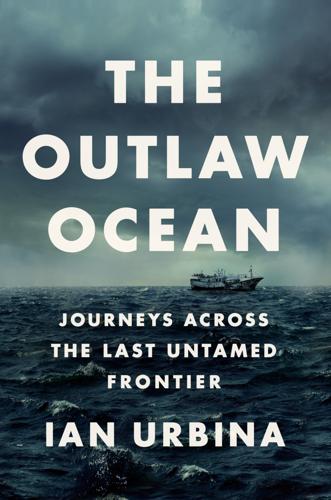
The Outlaw Ocean: Journeys Across the Last Untamed Frontier
by
Ian Urbina
Published 19 Aug 2019
It turned away clients tied to spam, child porn, and corporate cyber sabotage. “We have our limits,” Michael said. (I refrained from asking him the question on my mind, which was why pyramid schemes were okay if spam was not.) He added that in 2010 he had declined a request from representatives of WikiLeaks for a Sealand passport and safe haven for the group’s founder, Julian Assange. “They were releasing more than made me comfortable,” he added. The idea of moving online services offshore was not new. Science-fiction writers had dreamed of data havens for years. Perhaps the most famous was in Neal Stephenson’s Cryptonomicon, published in 1999, in which the sultan of Kinakuta, a fictional, small, oil-rich island between the Philippines and Borneo, invites the novel’s protagonists to convert an island into a communications hub free from copyright law and other restrictions.
…
In the 1970s, a German businessman named Alexander Gottfried Achenbach hired a team of Dutch mercenaries to stage a coup at Sealand, resulting in a hostage crisis and a tense diplomatic row between Germany and England. In the early 1980s, during the Falklands War, a group of Argentinians tried to buy the platform for a training camp. More recently, WikiLeaks explored moving its servers there, and Sealand appeared in the Panama Papers as a haven for organized crime. A cartoon that ran on October 23, 1968, in the London-based newspaper The Sun offers some context on Sealand’s status as a nascent postcolonial breakaway nation with a reference to Rhodesia, which had declared independence from Britain in an attempt to preserve white minority rule.
…
See James Cusick, “Shots Fired in Sealand’s Defence of a Small Freedom,” Independent, Feb. 24, 1990. The British government soon brought firearms: Grimmelmann, “Sealand, HavenCo, and the Rule of Law.” Recently declassified U.K. documents: Dan Bell, “Darkest Hour for ‘Smallest State,’ ” BBC, Dec. 30, 2008. More recently, WikiLeaks explored: Katrin Langhans, “Newer Sealand,” Süddeutsche Zeitung and the Panama Papers, April 25, 2016. They were often called seasteads: My full bibliography on seasteading is as follows: Jerome Fitzgerald, Sea-Steading: A Life of Hope and Freedom on the Last Viable Frontier (New York: iUniverse, 2006); “Homesteading the Ocean,” Spectrum, May 1, 2008; Oliver Burkeman, “Fantasy Islands,” Guardian, July 18, 2008; Patri Friedman and Wayne Gramlich, “Seasteading: A Practical Guide to Homesteading the High Seas,” Gramlich.net, 2009; Declan McCullagh, “The Next Frontier: ‘Seasteading’ the Oceans,” CNET News, Feb. 2, 2009; Alex Pell, “Welcome Aboard a Brand New Country,” Sunday Times, March 15, 2009; Brian Doherty, “20,000 Nations Above the Sea,” Reason, July 2009; Eamonn Fingleton, “The Great Escape,” Prospect, March 25, 2010; Brad Taylor, “Governing Seasteads: An Outline of the Options,” Seasteading Institute, Nov. 9, 2010; “Cities on the Ocean,” Economist, Dec. 3, 2011; Jessica Bruder, “A Start-Up Incubator That Floats,” New York Times, Dec. 14, 2011; Michael Posner, “Floating City Conceived as High-Tech Incubator,” Globe and Mail, Feb. 24, 2012; Josh Harkinson, “My Sunset Cruise with the Clever, Nutty, Techno-libertarian Seasteading Gurus,” Mother Jones, June 7, 2012; Stephen McGinty, “The Real Nowhere Men,” Scotsman, Sept. 8, 2012; Michelle Price, “Is the Sea the Next Frontier for High-Frequency Trading?
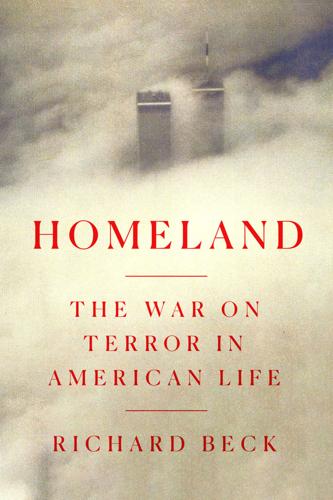
Homeland: The War on Terror in American Life
by
Richard Beck
Published 2 Sep 2024
When whistleblowers took transparency into their own hands in order to publicize war crimes and illegal government surveillance, the Obama administration pursued them with a frightening intensity.[16] Edward Snowden, a Russian citizen as of 2022, can never return to the United States without risking life in prison. Julian Assange, the founder of the whistleblowing organization WikiLeaks, spent seven years living in Ecuador’s London embassy, never setting foot outside, in order to avoid extradition to the United States. After Ecuador withdrew his asylum in 2019, the British government approved Assange’s extradition, which he is appealing as of this writing. Chelsea Manning, who provided hundreds of thousands of government documents to WikiLeaks in 2010, was charged with aiding the enemy, a crime that carried a potential death sentence, and spent seven years in prison.

The Rough Guide to Sweden (Travel Guide eBook)
by
Rough Guides
Published 1 Nov 2019
Some economists argue it is this enforced shaking up of the business environment from outside, rather than any direct government measures, that is responsible for Sweden’s improved economic fortunes since 1998 – although unemployment remains stubbornly above government targets. Since 2010, Sweden has found itself at the centre of the scandal surrounding Julian Assange – founder of the media website, Wikileaks – who was wanted for questioning by Swedish police over sexual assault charges. A court ruling in 2011 cleared the way for his extradition to Sweden, but since 2012 Assange has sought asylum inside the Ecuadorian embassy in London. In October 2016 he was set to be interviewed by an Ecuadorian prosecutor in the presence of Swedish officials.

Sweden Travel Guide
by
Lonely Planet
Under his guidance, the UN resolves the 1956 Suez Crisis. 1974 ABBA triumphs in the Eurovision Song Contest in England, kick-starting a hugely successful pop career. 1994 The ferry Estonia sinks during a storm on the Baltic Sea, killing 852 passengers, including 551 Swedes. 1995 Reluctantly, Sweden joins the European Union. 2001 Parliament votes 260 to 48 against abolition of the monarchy, even though the monarch ceased to have any political power in 1974. 2009 Victoria, Crown Princess of Sweden, marries Daniel Westling, her personal trainer; she is the first Swedish royal to marry a commoner. 2011 Julian Assange of WikiLeaks, due for extradition to Sweden on sexual-assault charges, takes refuge in the Ecuador embassy in London. (Sweden drops the inquiry in 2017.) 2014 Umea is named a European Capital of Culture, with the spotlight falling on northern Sweden and Sami art and culture. 2017 Five people are killed and several injured when an Uzbek asylum-seeker with ties to ISIS hijacks a truck and drives it into a crowd outside a Stockholm department store.
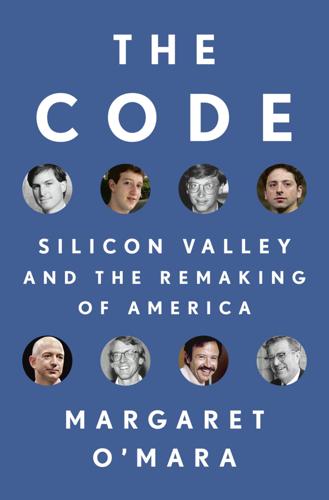
The Code: Silicon Valley and the Remaking of America
by
Margaret O'Mara
Published 8 Jul 2019
Laura Smith, “In the early 1980s, white supremacist groups were early adopters (and masters) of the internet,” Medium, October 11, 2017, https://timeline.com/white-supremacist-early-internet-5e91676eb847, archived at https://perma.cc/8UKG-UB8H; Kathleen Belew, Bring the War Home: The White Power Movement and Paramilitary America (Cambridge, Mass.: Harvard University Press, 2018). One early and leading participant in the Cypherpunk movement was Wikileaks founder Julian Assange, who made it the subject of a book-length treatise, Cypherpunks: Freedom and the Future of the Internet (New York: OR Books, 2016). 26. Peter H. Lewis, “Despite a New Plan for Cooling it Off, Cybersex Stays Hot,” The New York Times, March 26, 1995, 1. 27. President’s Blue Ribbon Commission on Defense Management, A Quest for Excellence: Final Report to the President (Washington, D.C.: USGPO, June 1986); William J.

Liberalism at Large: The World According to the Economist
by
Alex Zevin
Published 12 Nov 2019
Obama’s unprecedented use of drones to assassinate suspected terrorists on his ‘kill lists’ – in Yemen, Somalia or Pakistan, where America was not at war, and without judicial oversight even when the targets were its own citizens – ‘do not undermine the rules of war’, though more could be done to ‘adapt’ a ‘potent new weapon’ to the constitution.123 When the US Army private then named Bradley Manning leaked hundreds of thousands of secret government documents related partly to the wars in Iraq and Afghanistan in 2010, exposing war crimes committed by US mercenaries, the Economist insisted that both he and the ‘digital Jacobins’ at Wikileaks to whom Manning confided this cache be punished. Julian Assange should be extradited, though in the meantime the paper found ‘some consolation’ that his revelations actually offered ‘a largely flattering picture of America’s diplomats: conscientious, cool-headed, well-informed, and on occasion eloquent’.124 Three years later Edward Snowden, a private analyst for the National Security Agency, exposed the staggering extent of its illegal surveillance of US citizens and foreigners, including such staunch allies of the US as German chancellor Angela Merkel.

Reaganland: America's Right Turn 1976-1980
by
Rick Perlstein
Published 17 Aug 2020
Elections Atlas provides indispensable statistics; the diehard Saturday Night Live fans behind SNLtranscripts.jt.org; and Hawes Publications, which has uploaded every week’s New York Times bestseller list for easy reference. Brewster Kahle is an American hero for providing a platform for crowdsourced historian preservation through his nonprofit Internet Archive, where, for example, one kind soul uploaded transcripts of all the ABC News broadcasts from 1979 to 1980. Julian Assange remains a controversial figure, but the State Department documents uploaded to Wikileaks.org documenting the fall of the Shah of Iran were indispensable to me. I also cherish Gerhard Peters and John Woolly for building the Presidency Project (Presidency.UCSB.Edu), where just about every public utterance by Jimmy Carter quoted here can be found.
…
“no identifiable leader” “For Iran, No Clear Alternative to the Shah,” NYT, November 6, 1978. The failure to grasp the emergence of revolutionary Islamism is a theme I take from Caryl’s Strange Rebels: 1979 and the Birth of the 21st Century. On November 22 “Secretary Blumenthal’s Meeting with Shah of Iran,” November 22, 1978, Wikileaks Canonical ID 1978KUWAIT06258_d and 1978STATE295264_d, Wikileaks.org. “on a vacation” Translations of the Shah’s statement differ. See AP, January 17, 1979. hushed awe Washington Post Service, January 17, 1979; “Teary-Eyed Shah Flies Out of Iran and Millions Take to Streets in Joy,” CT, January 17, 1979. “God is Great” Toronto Globe and Mail, January 17, 1979.